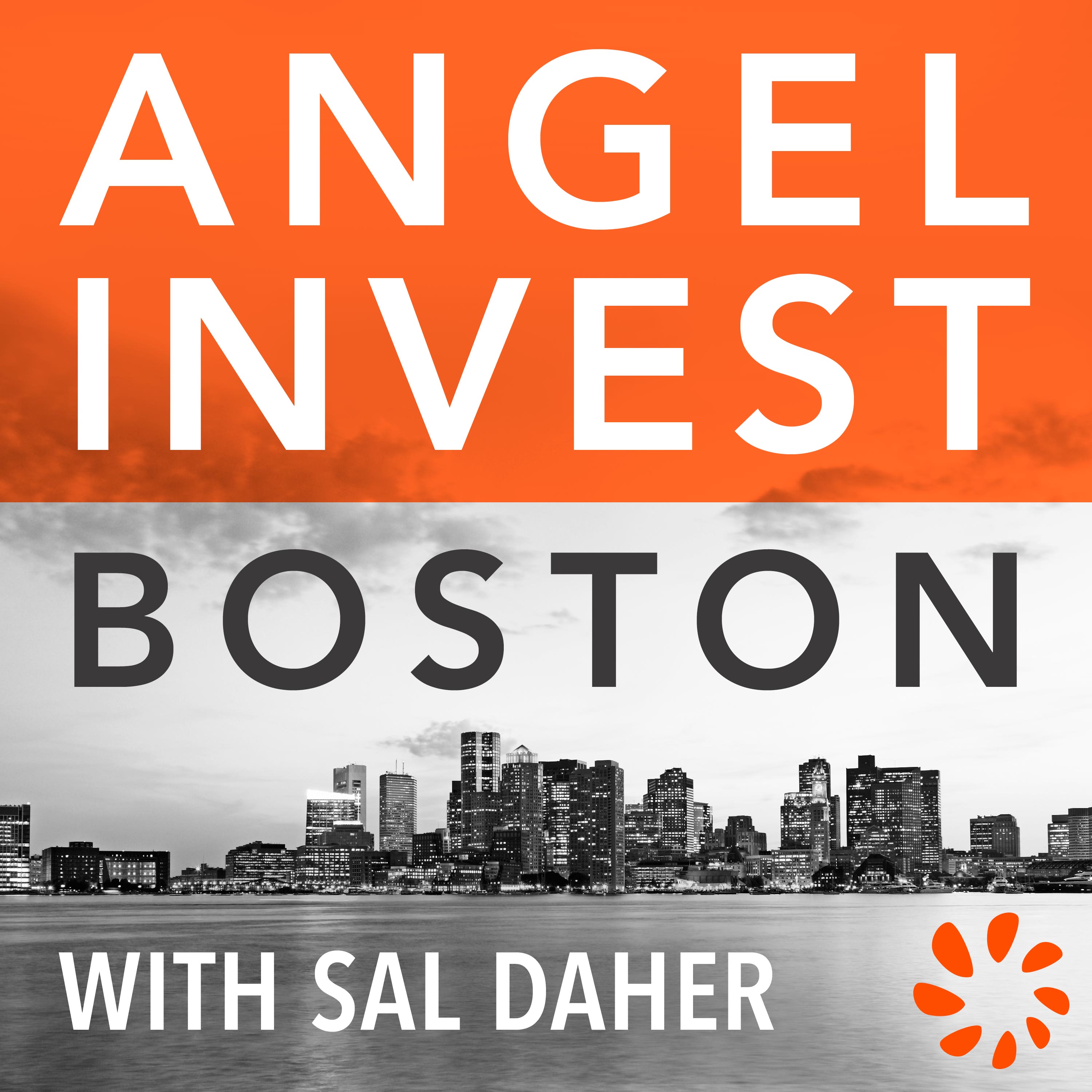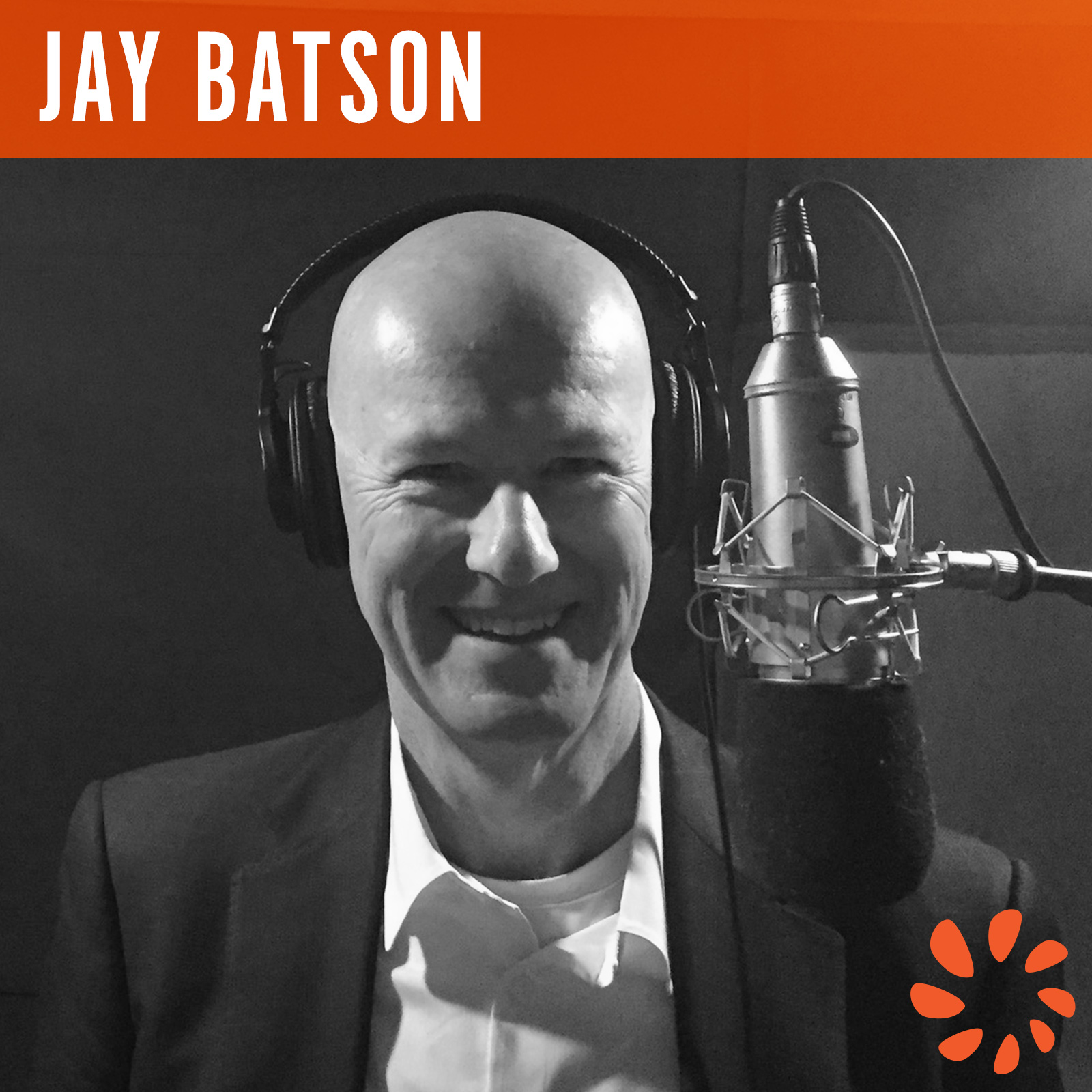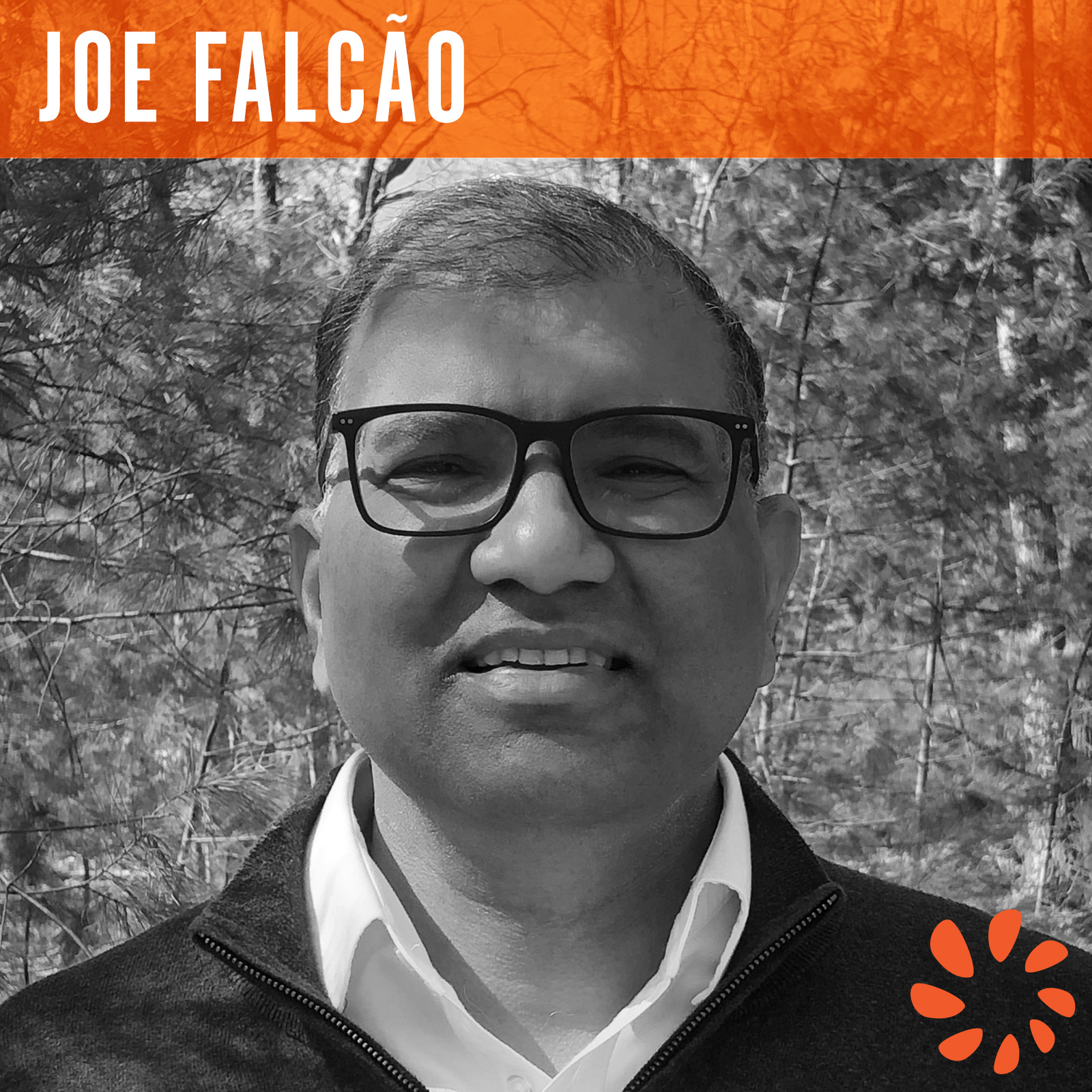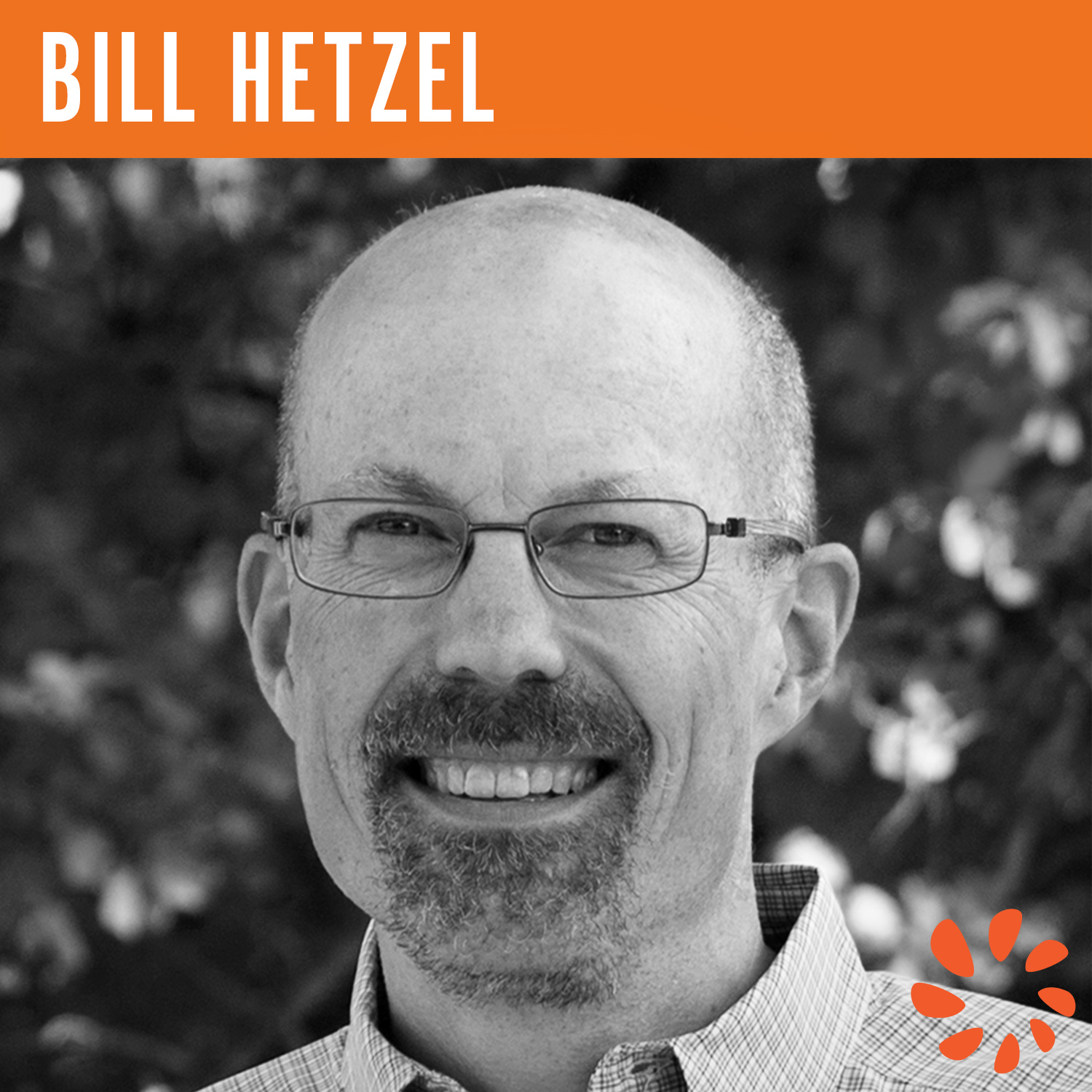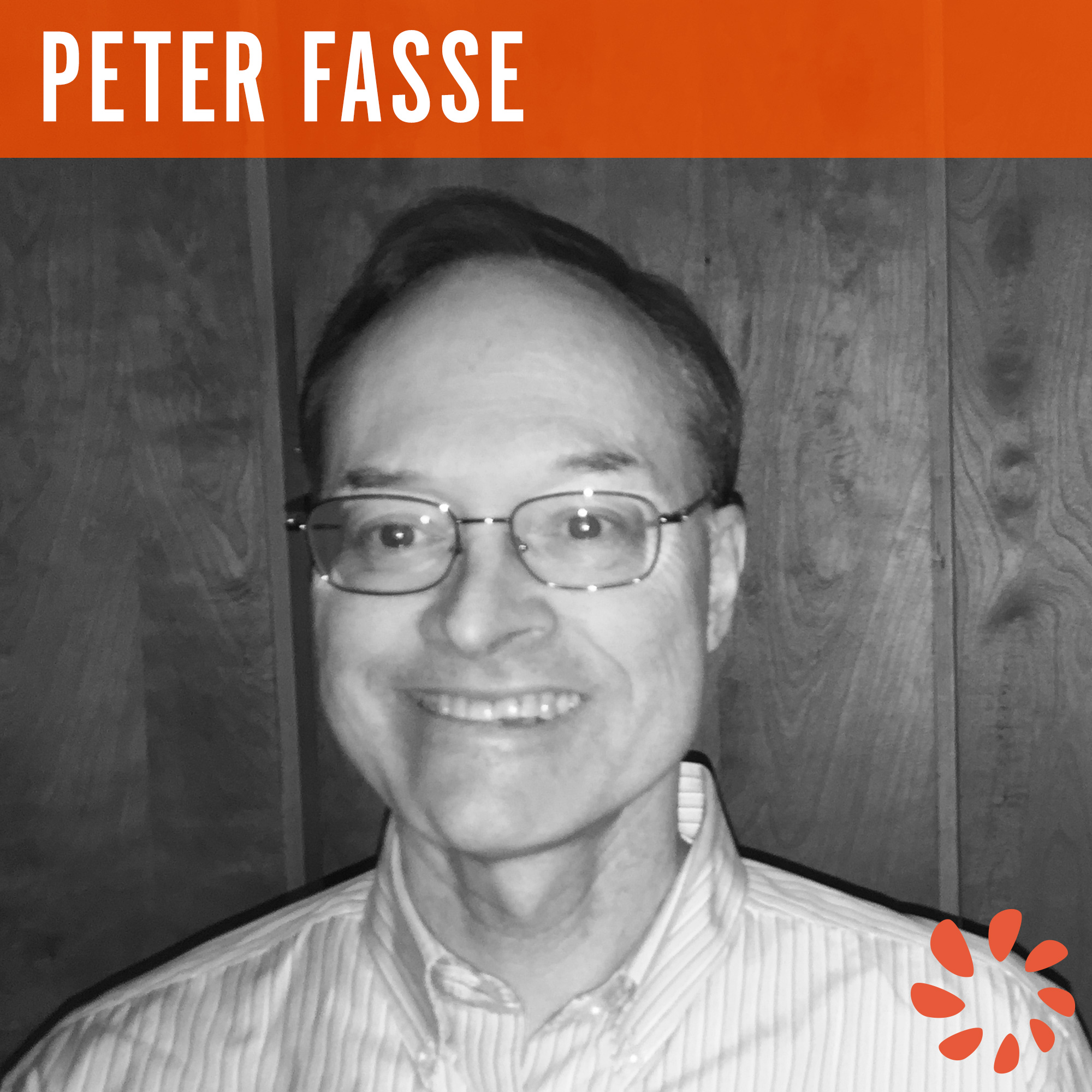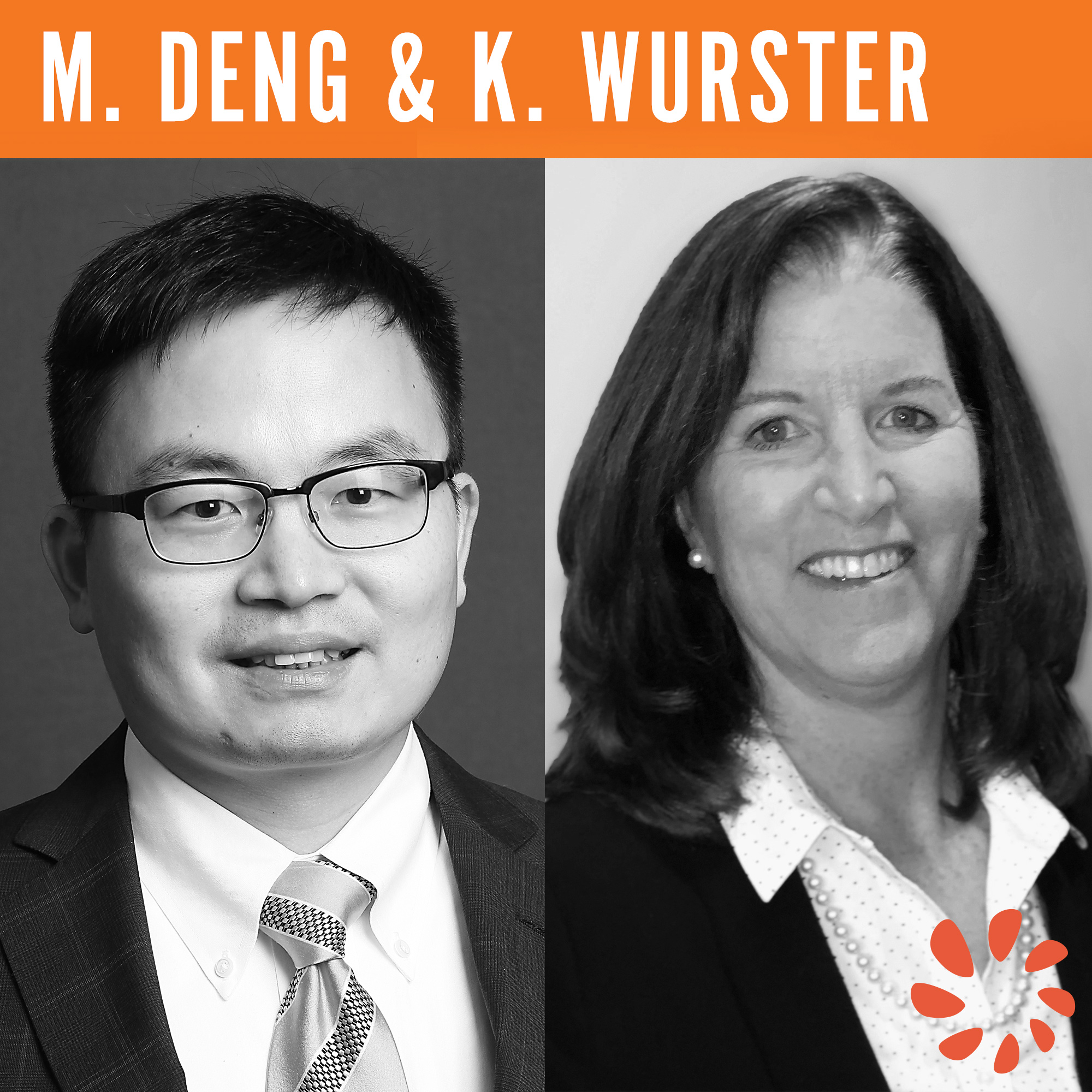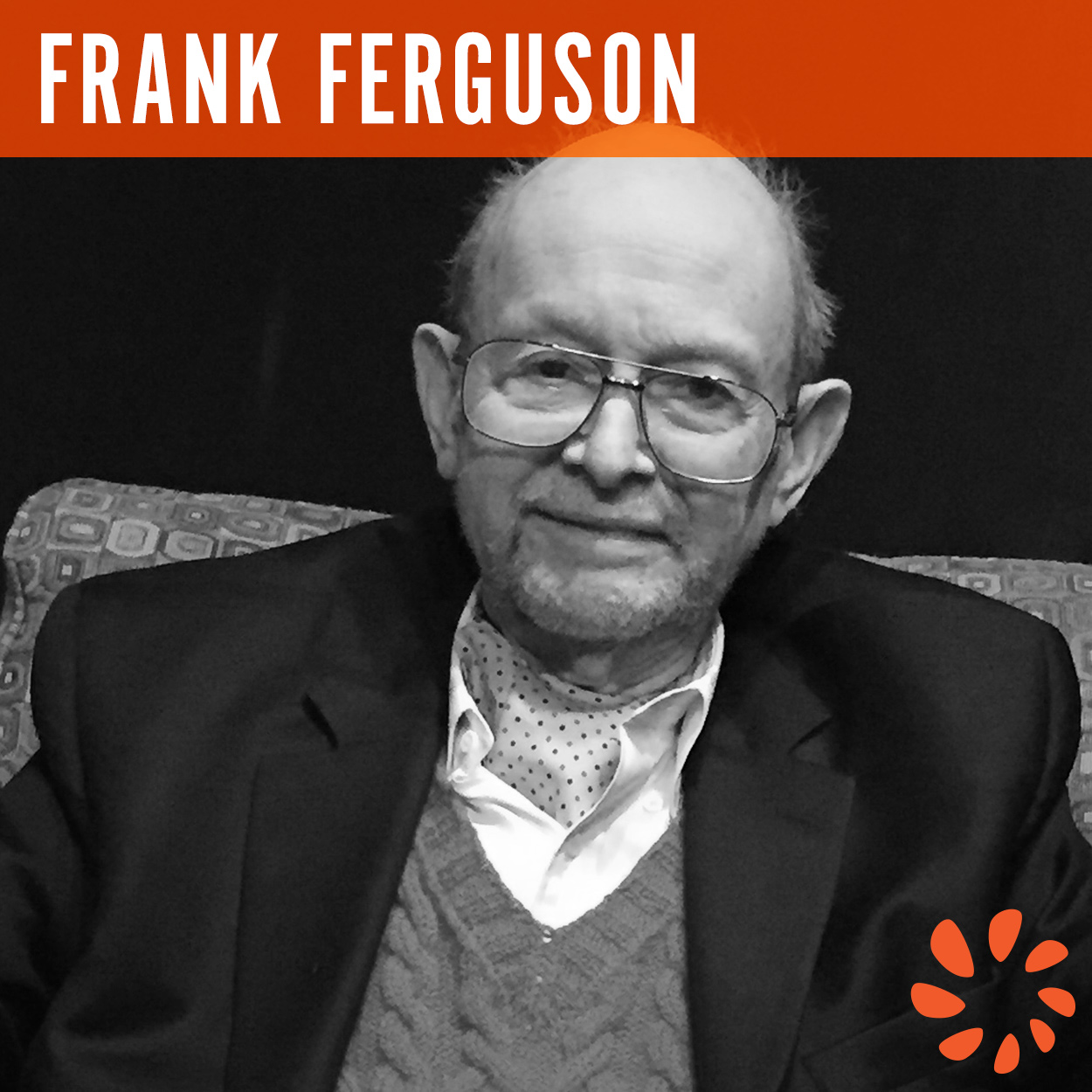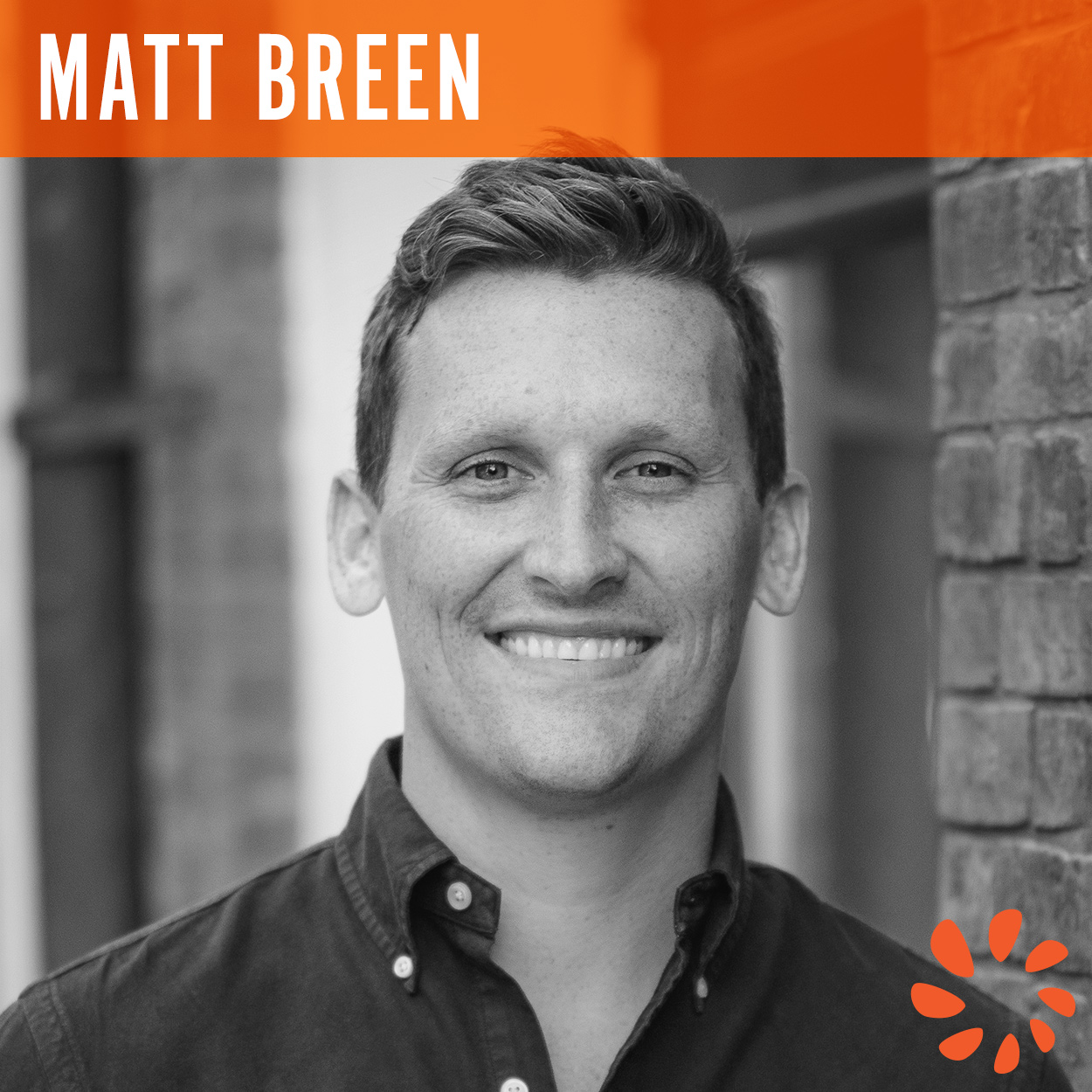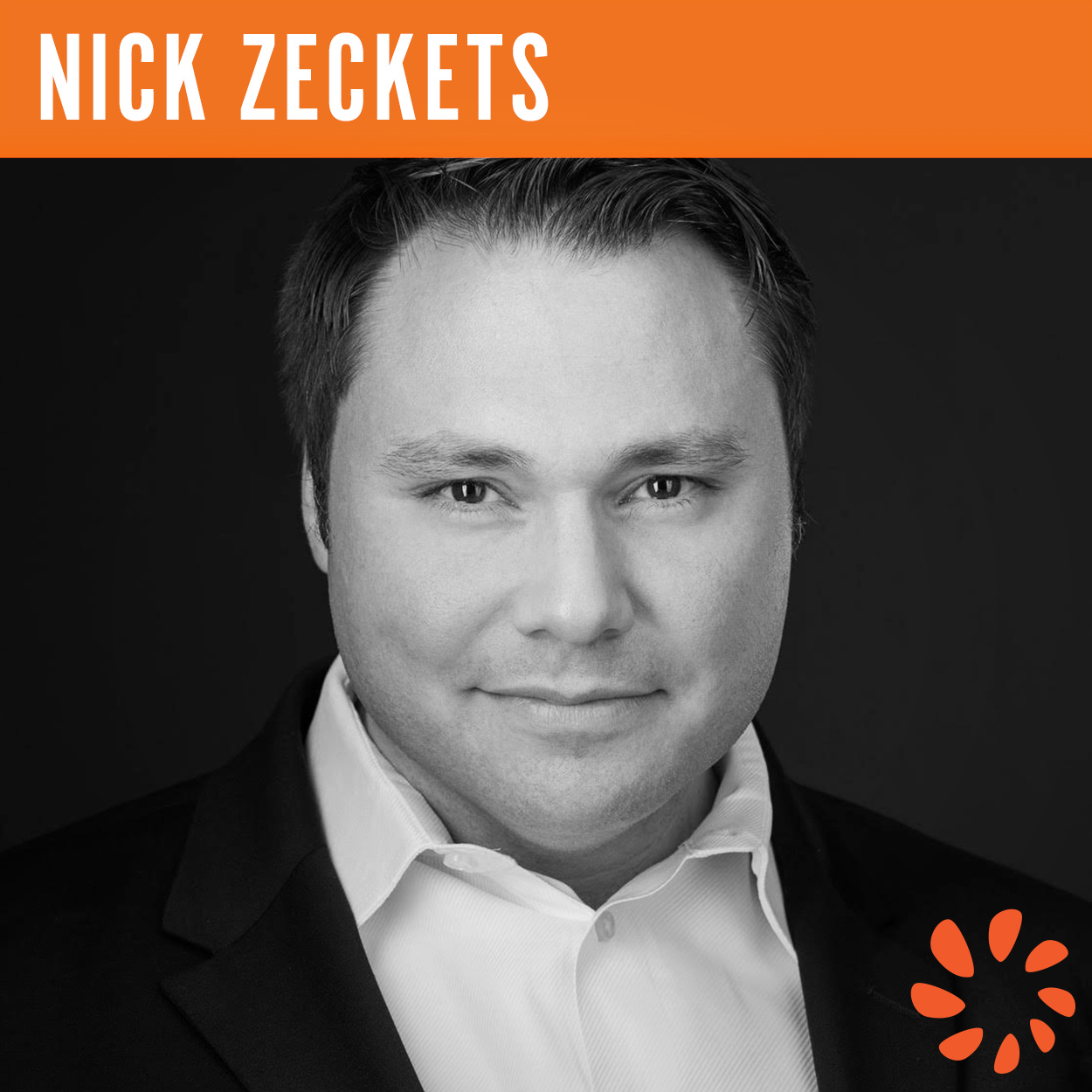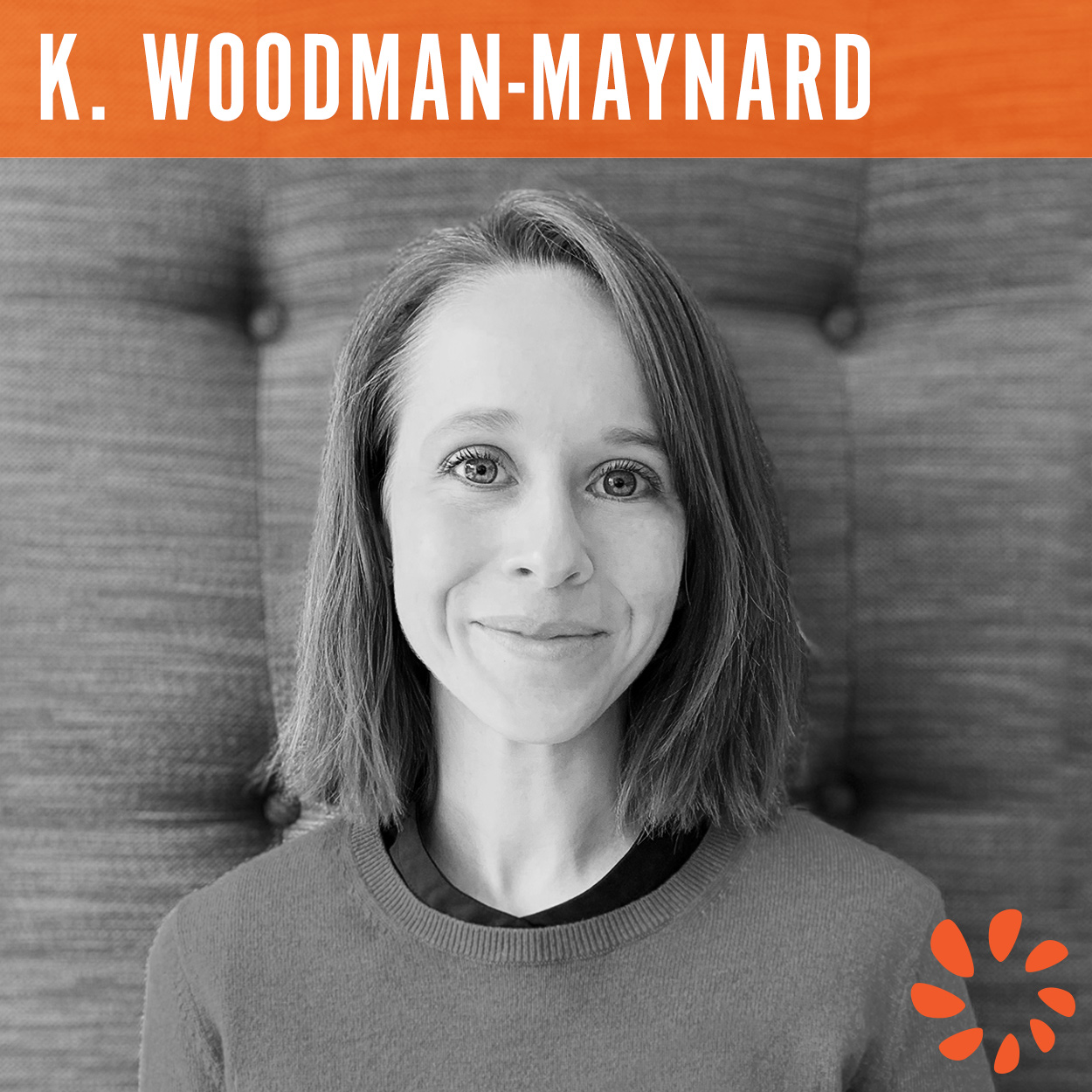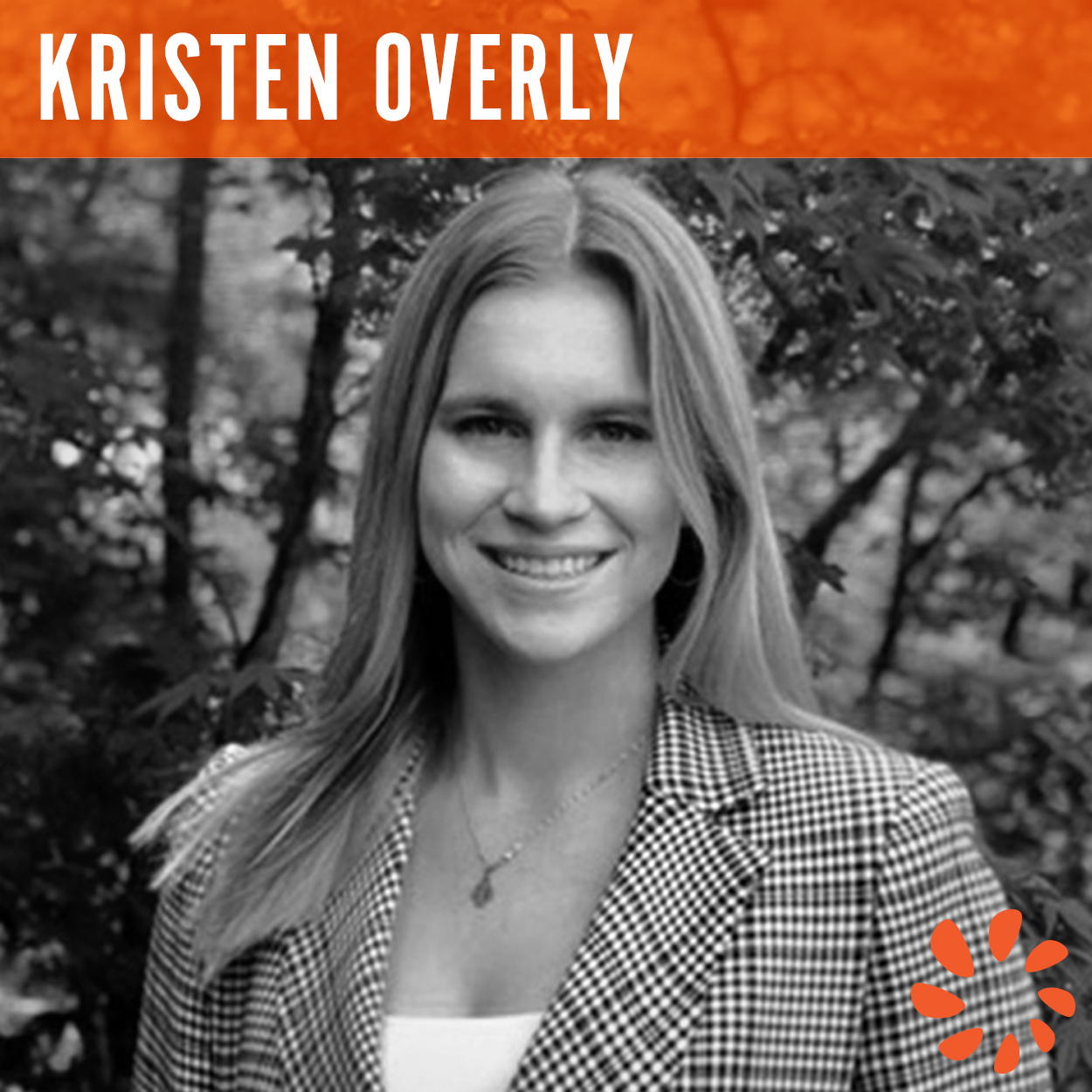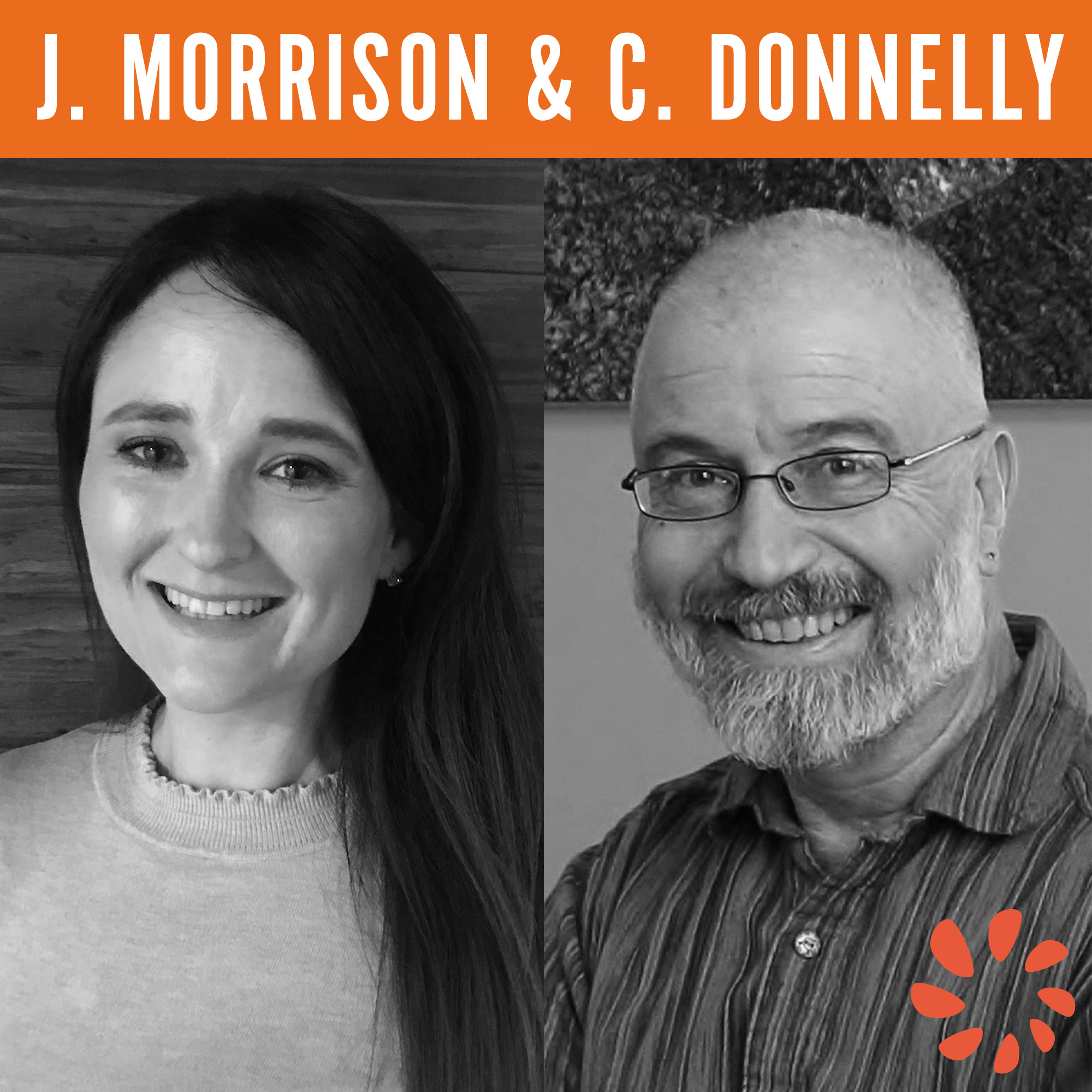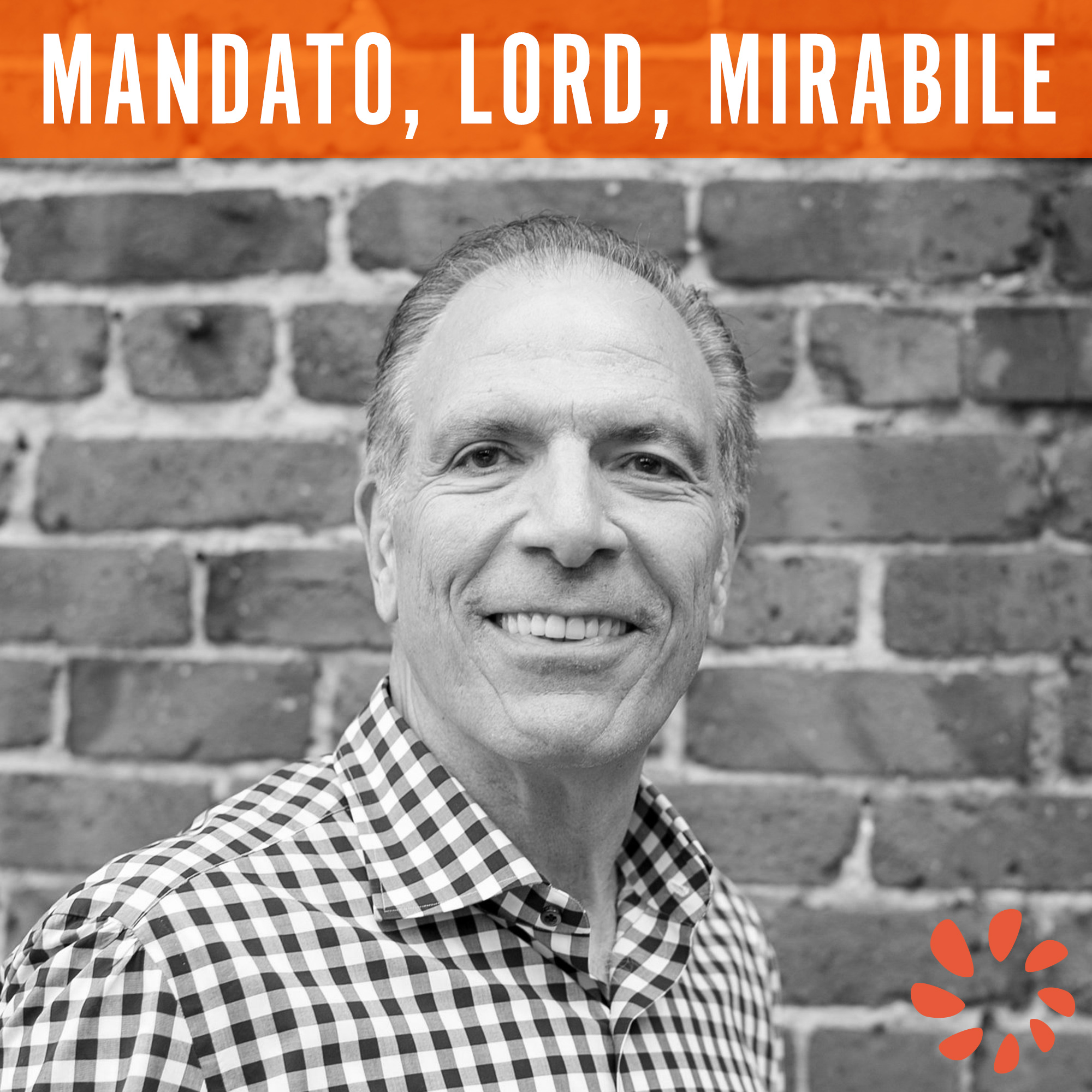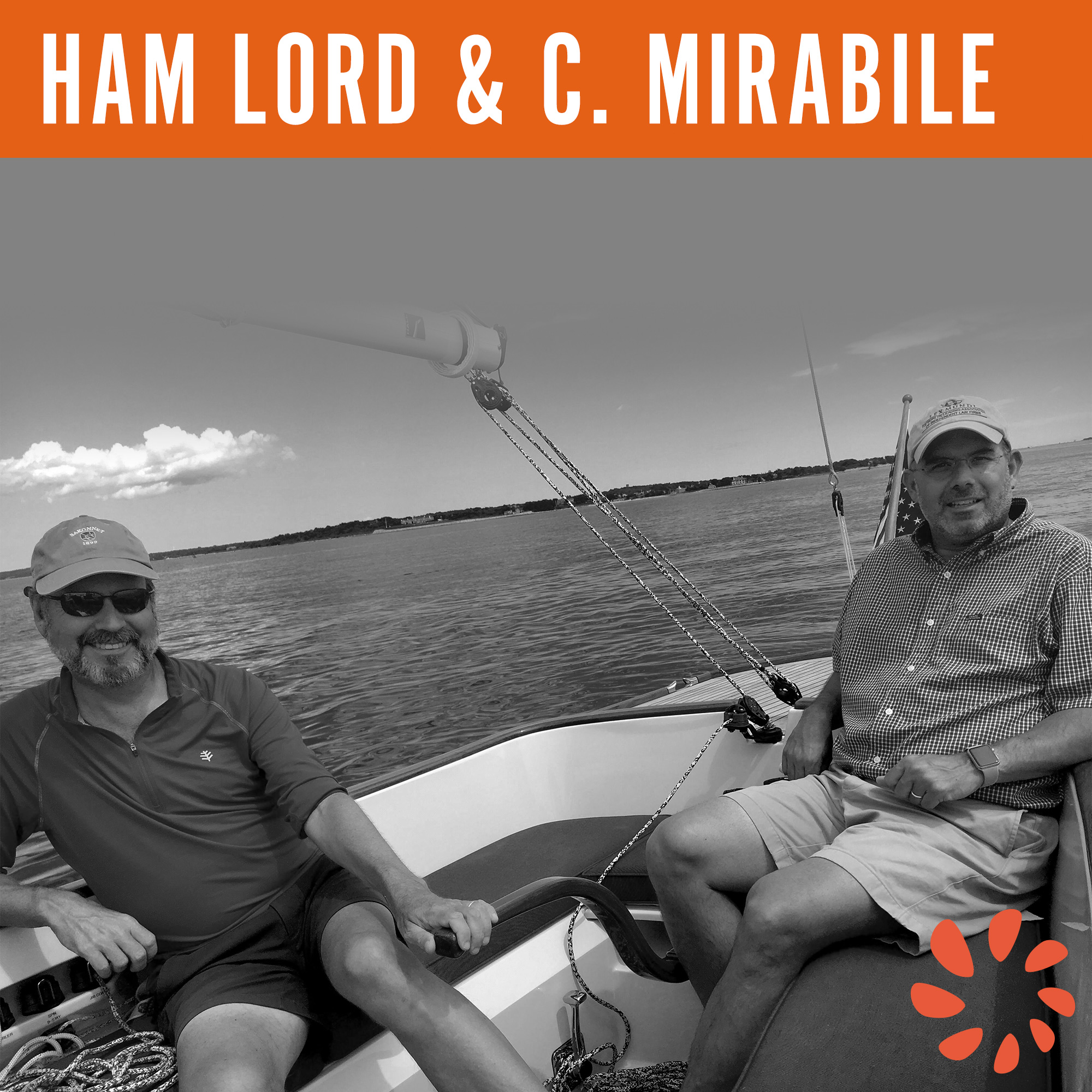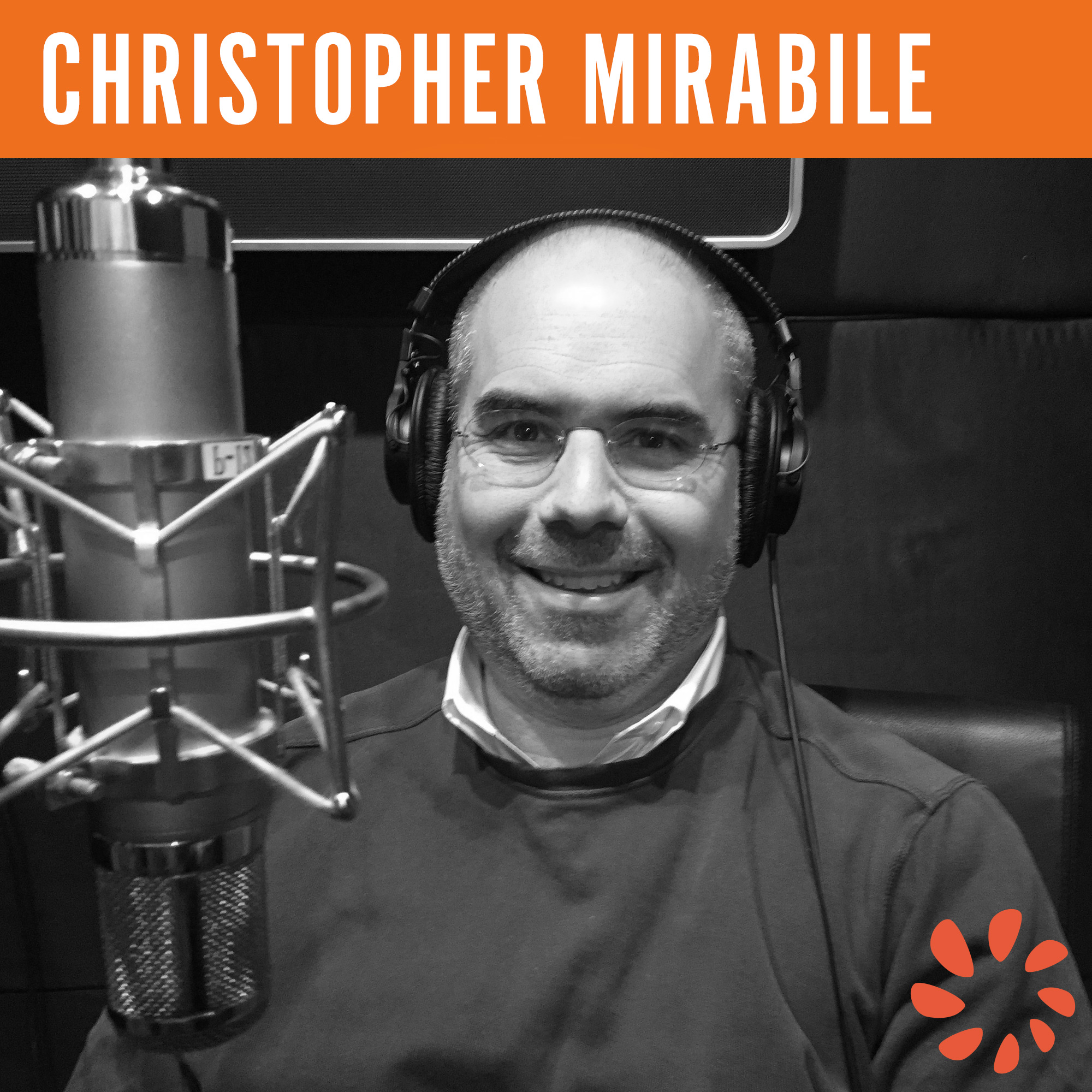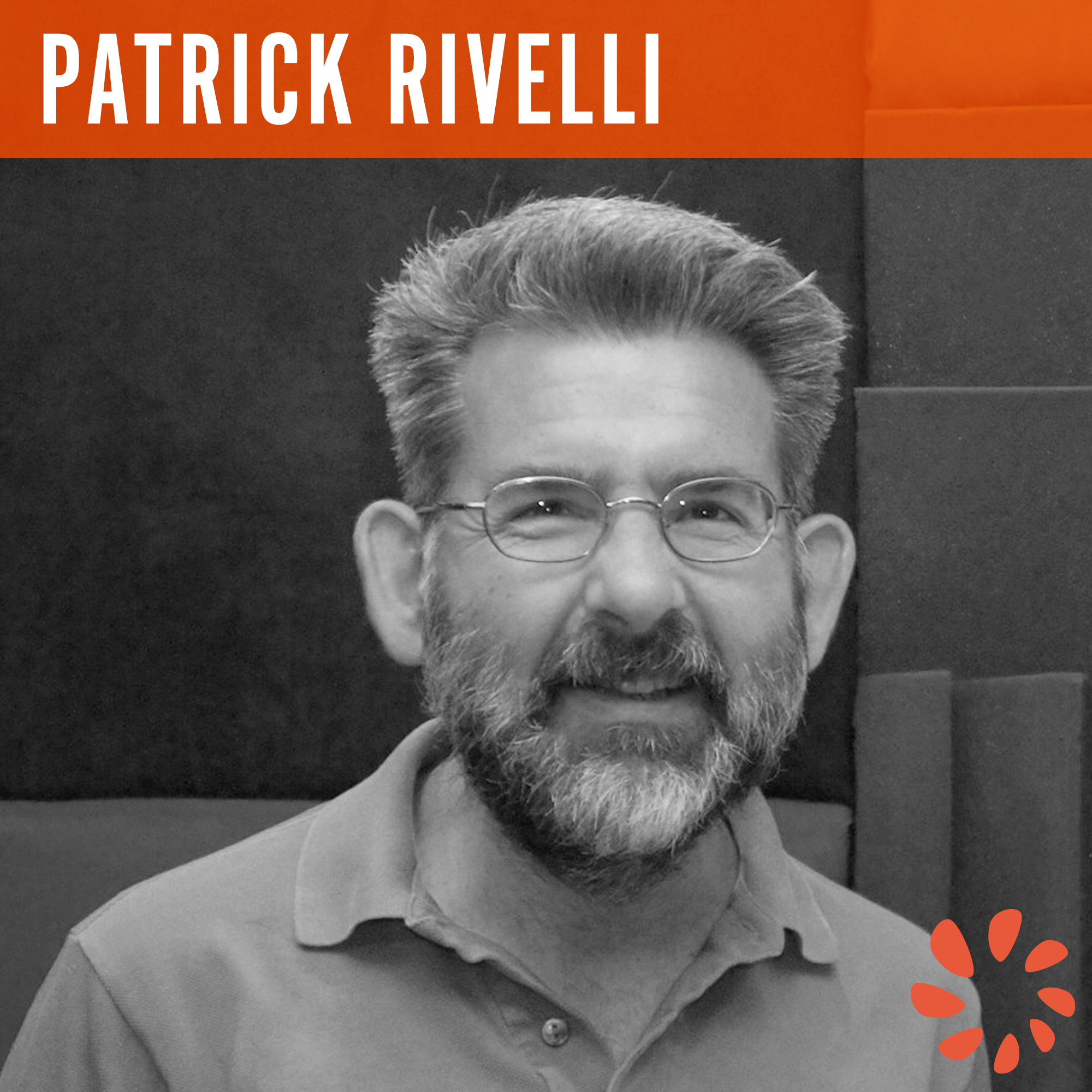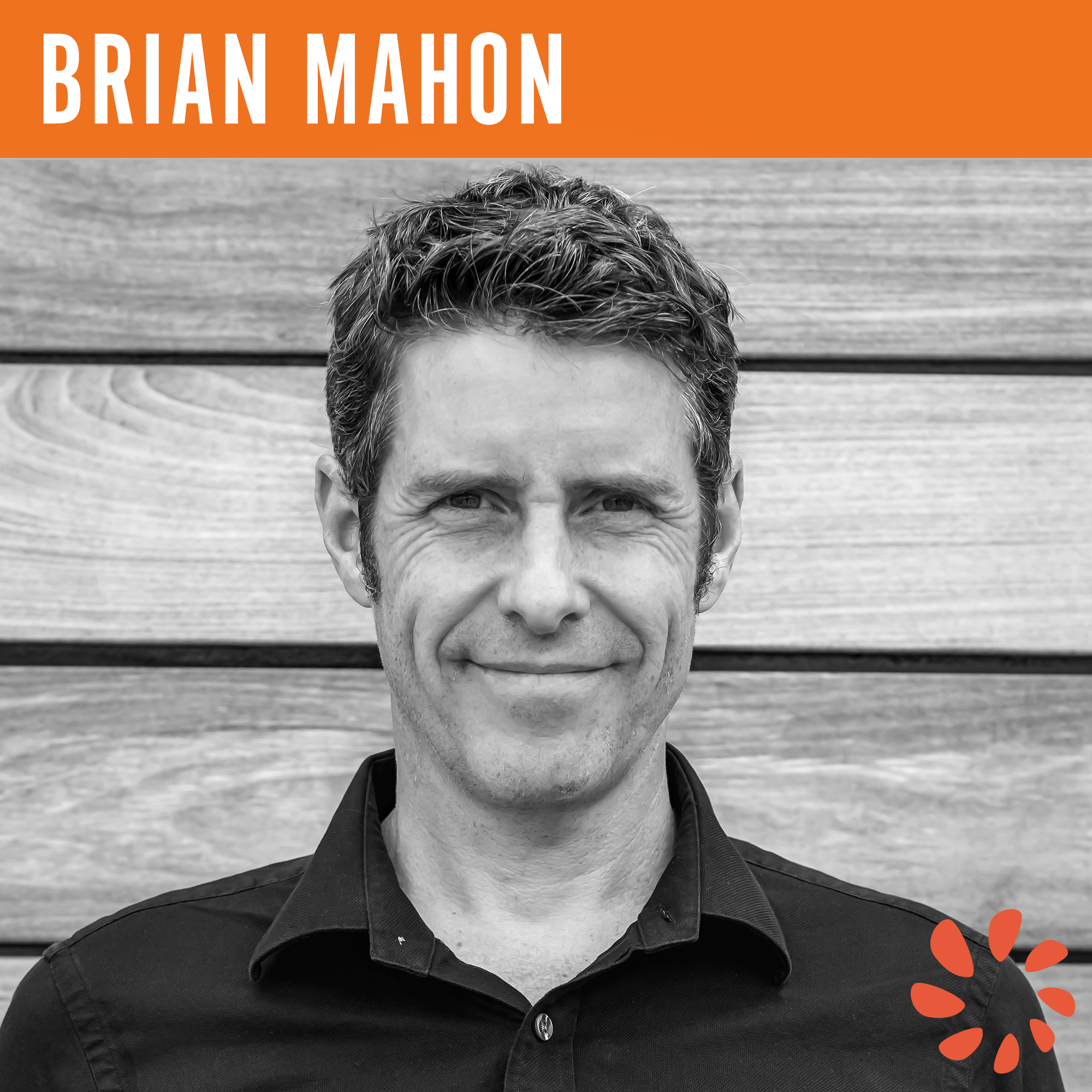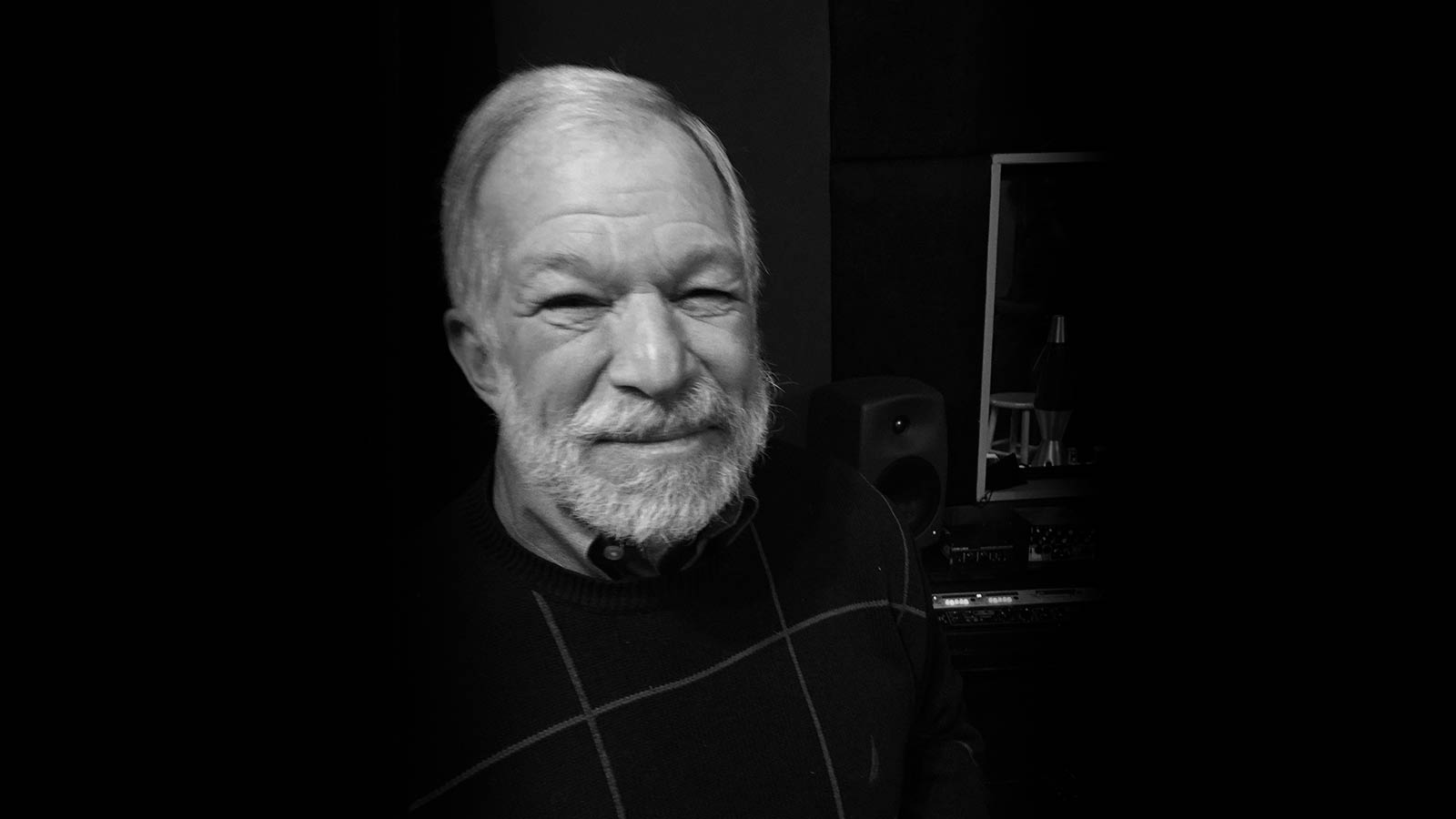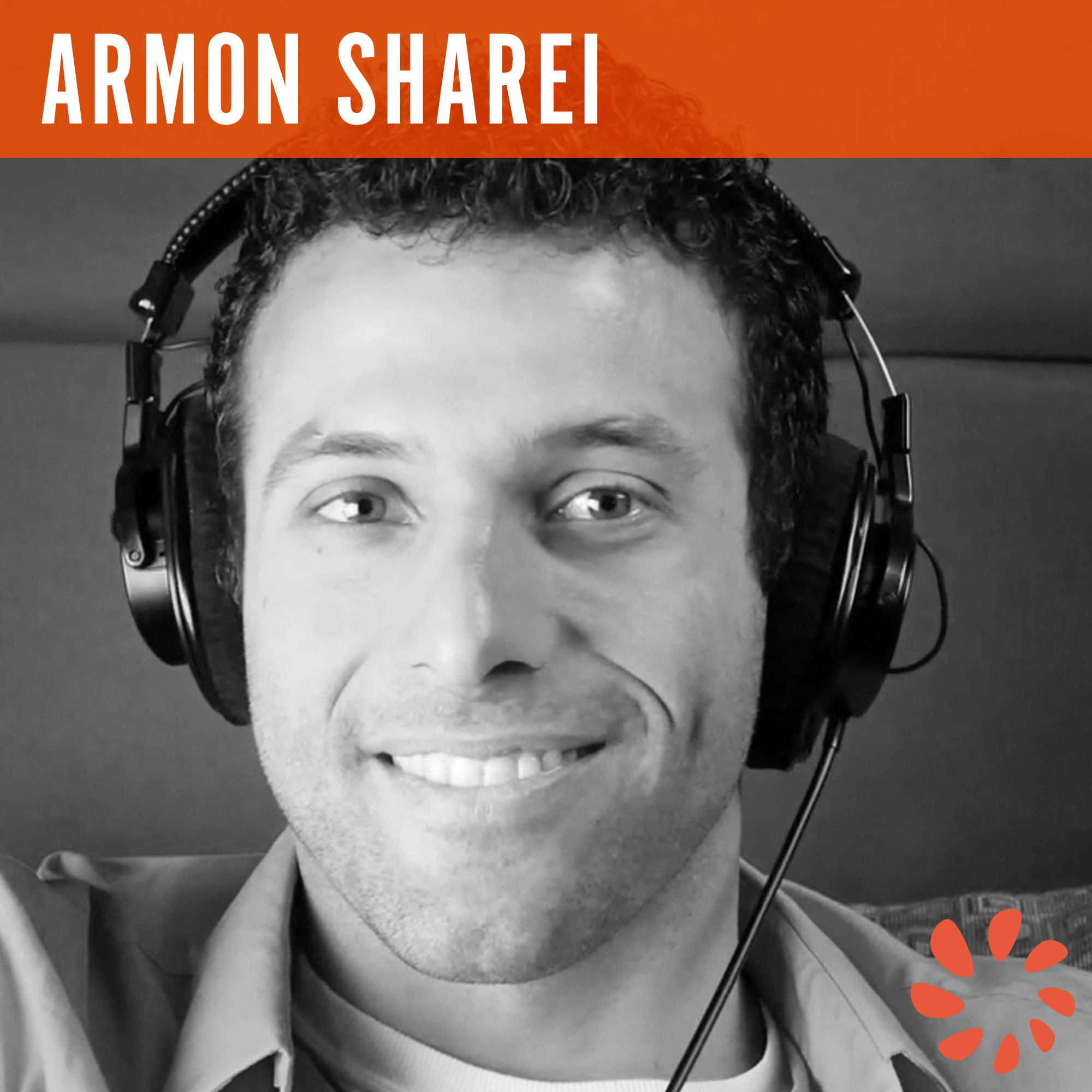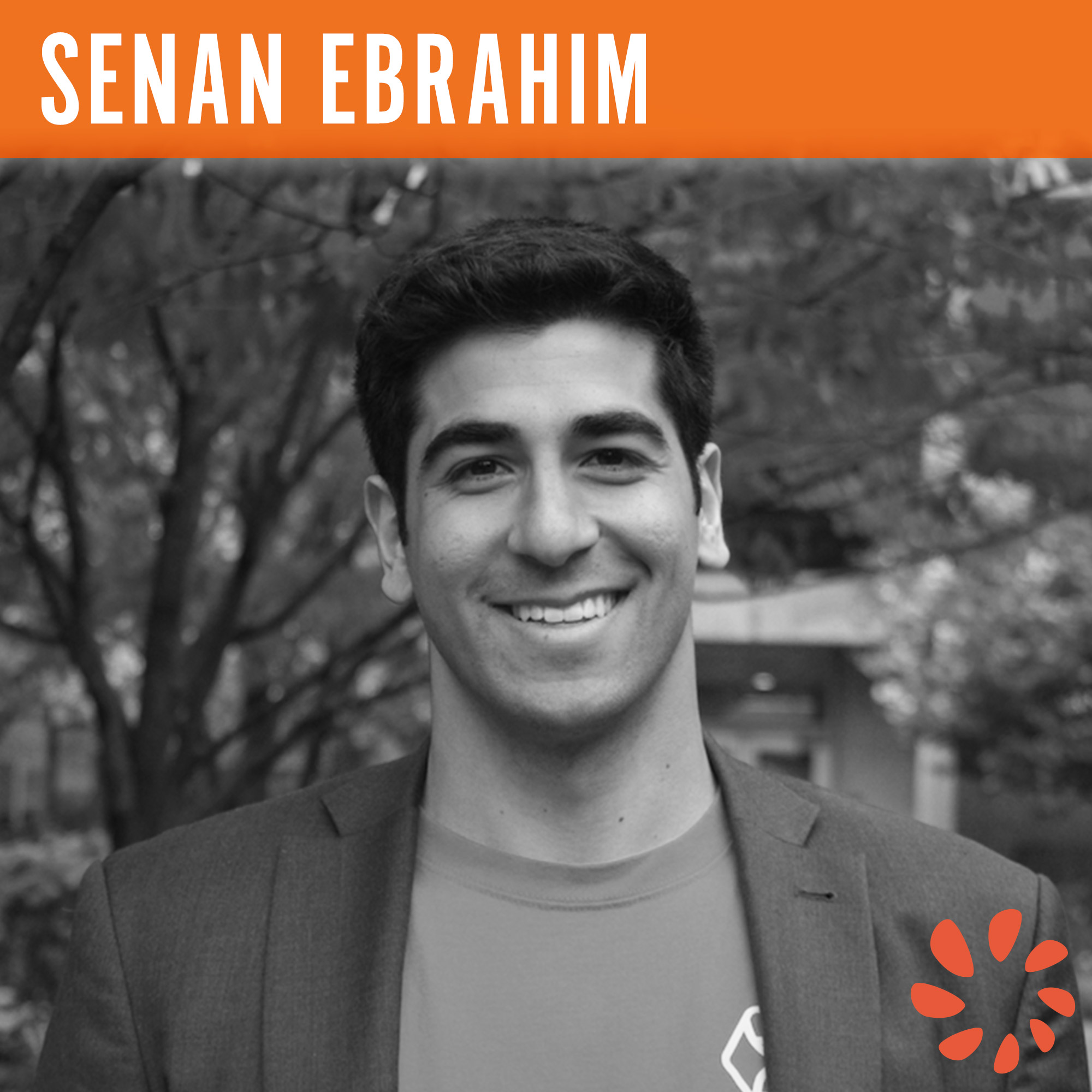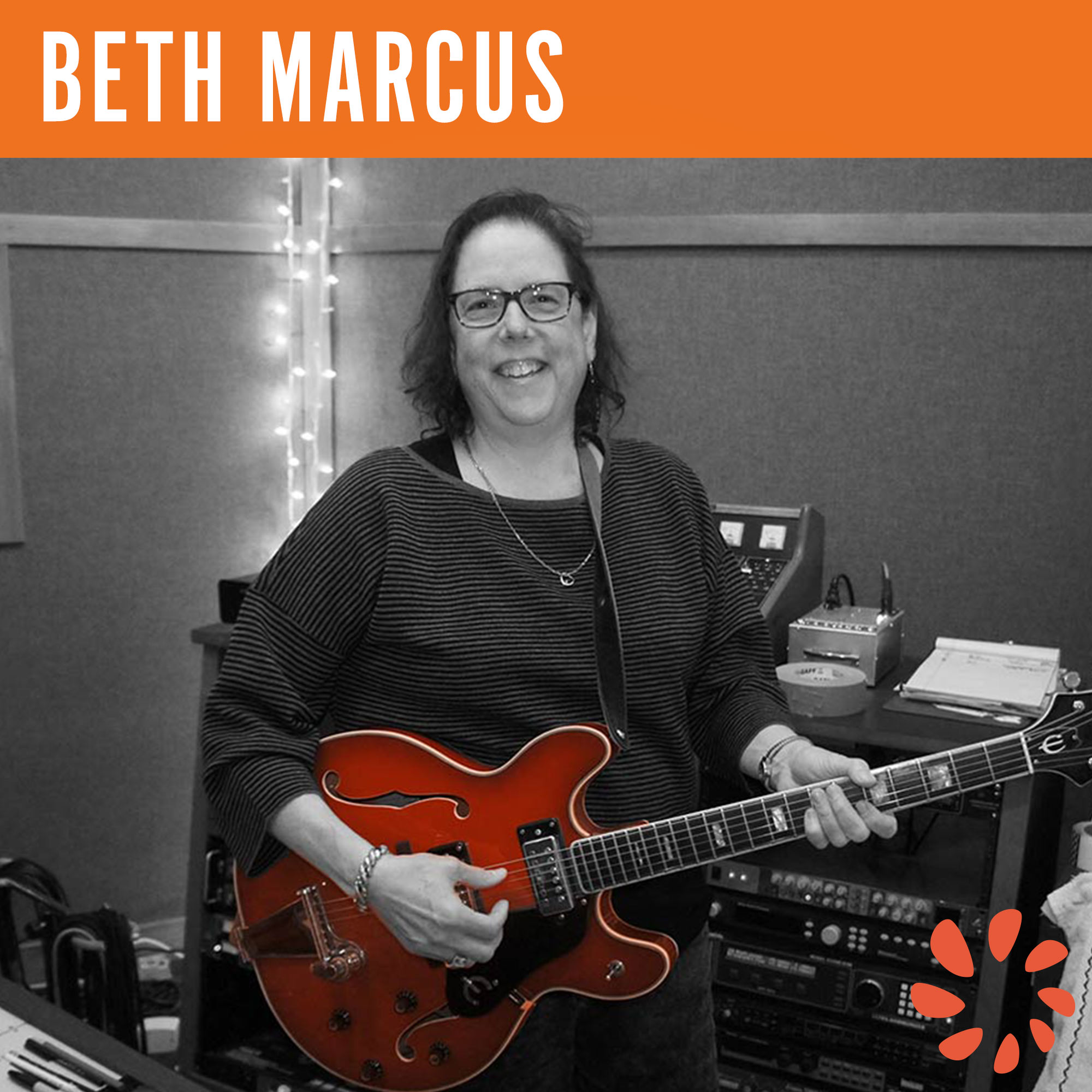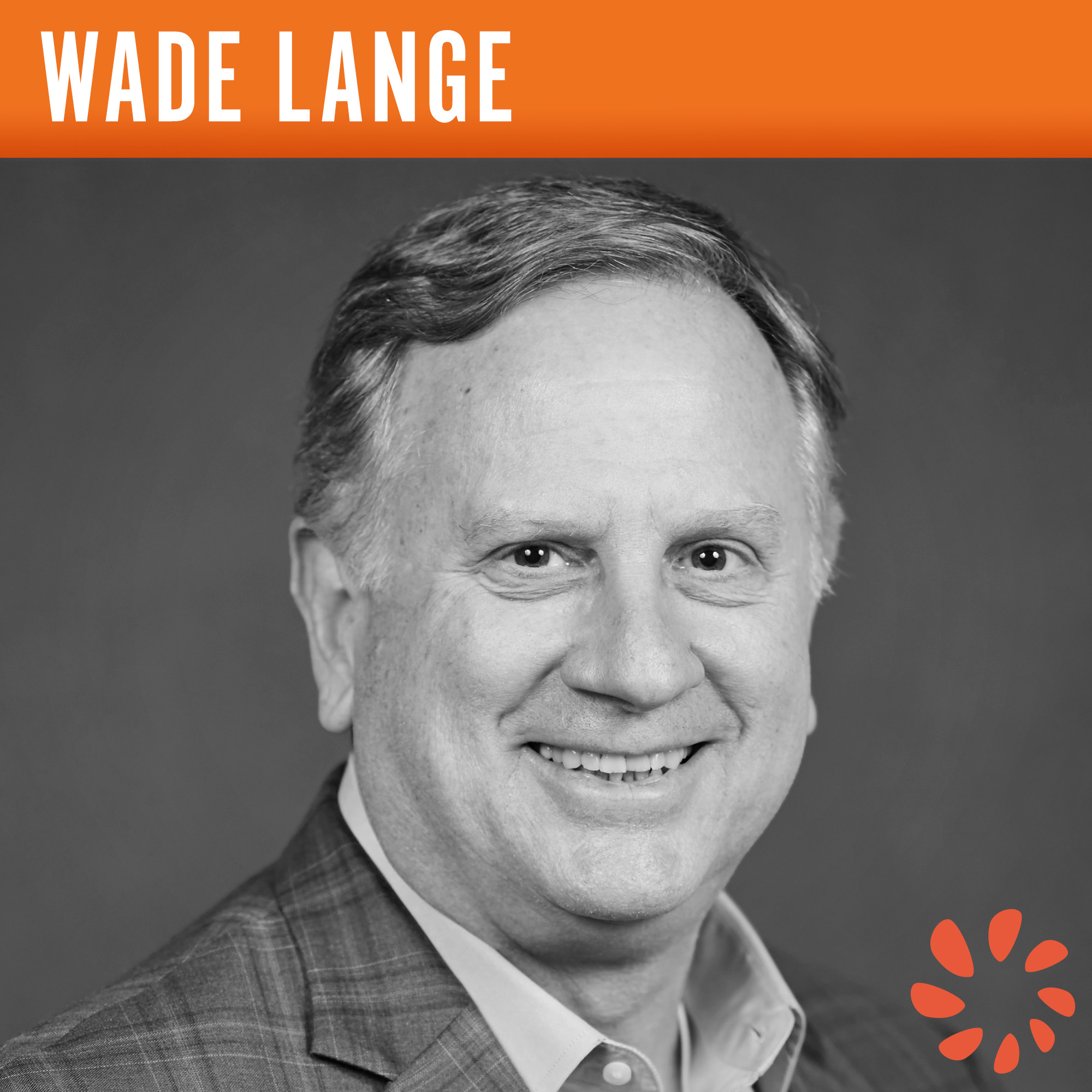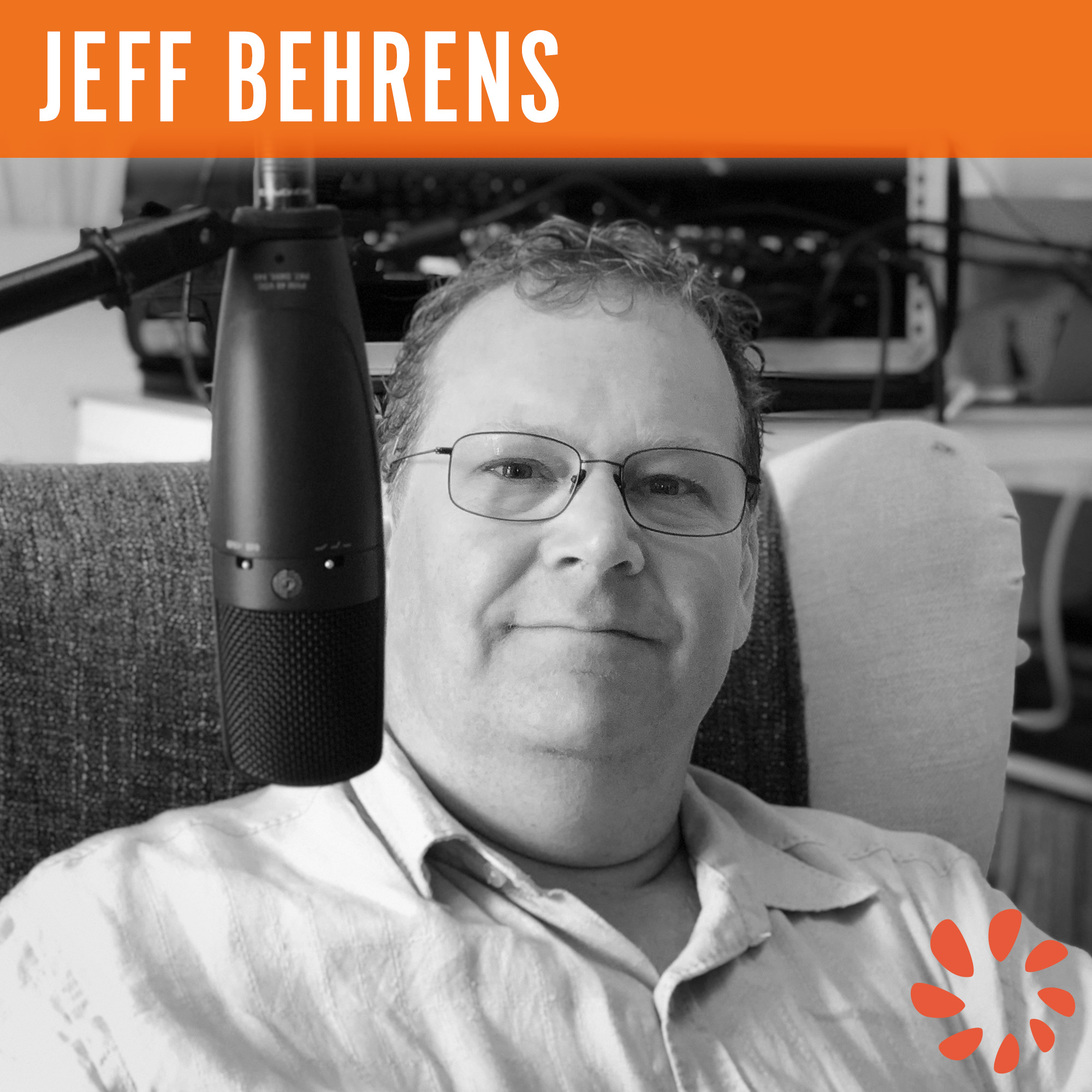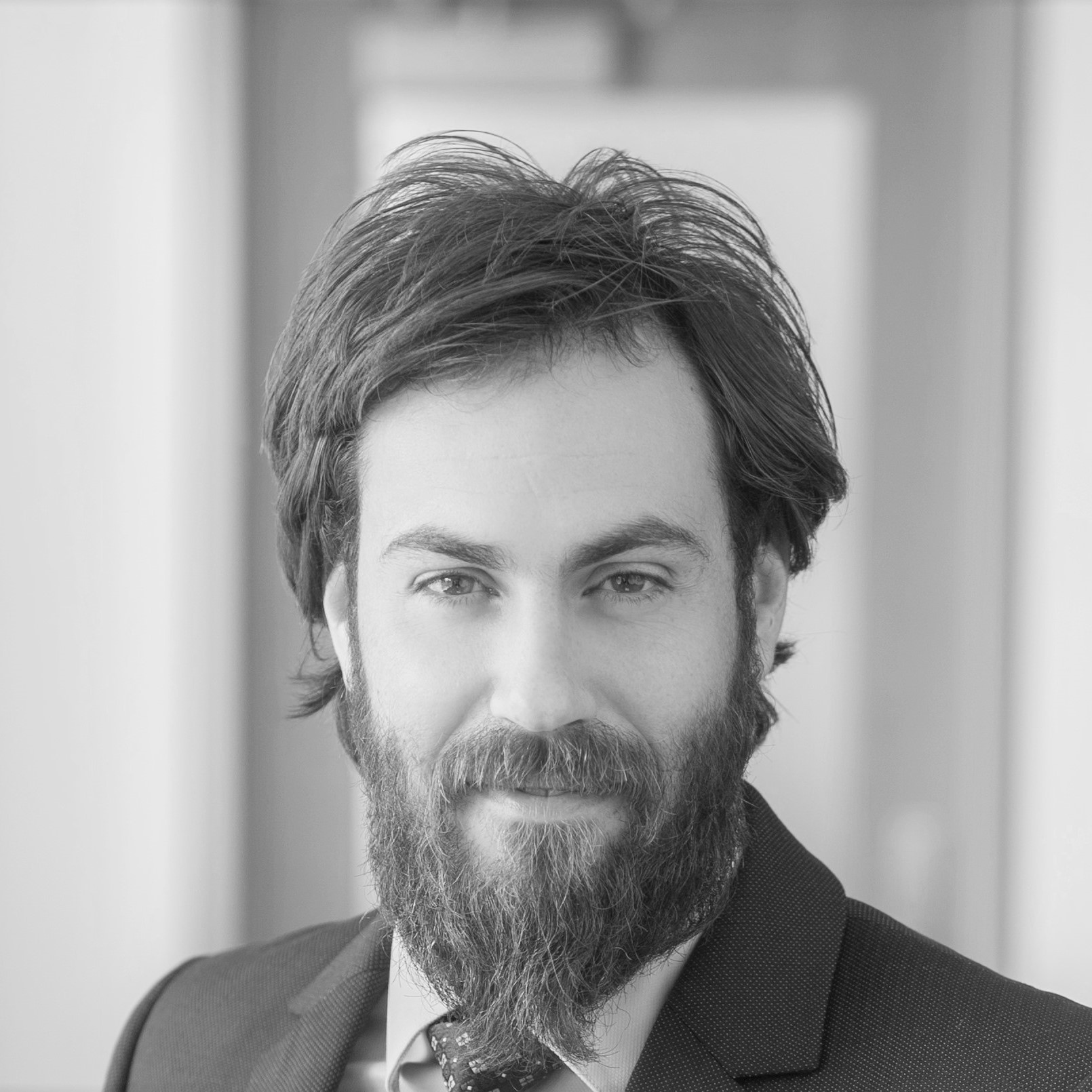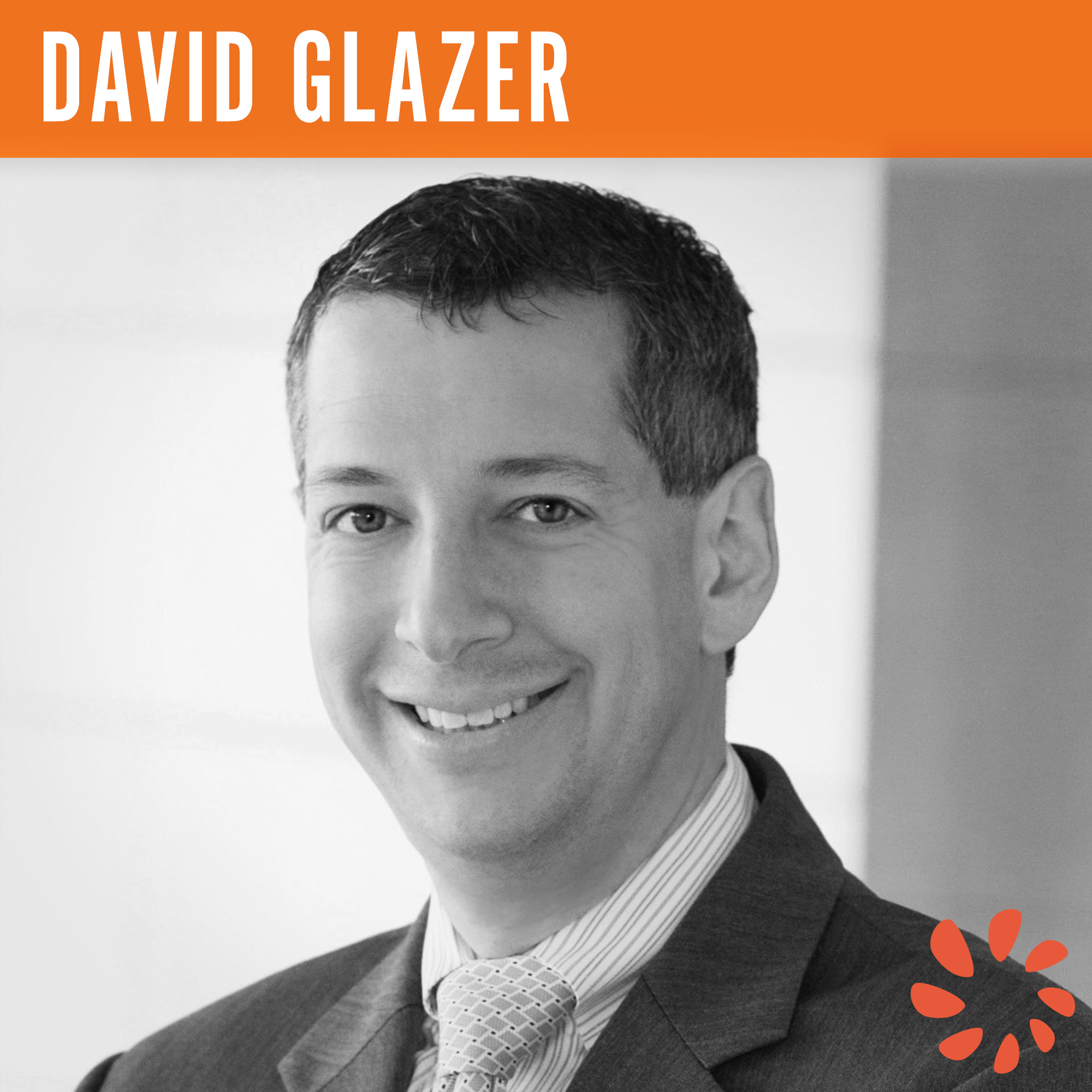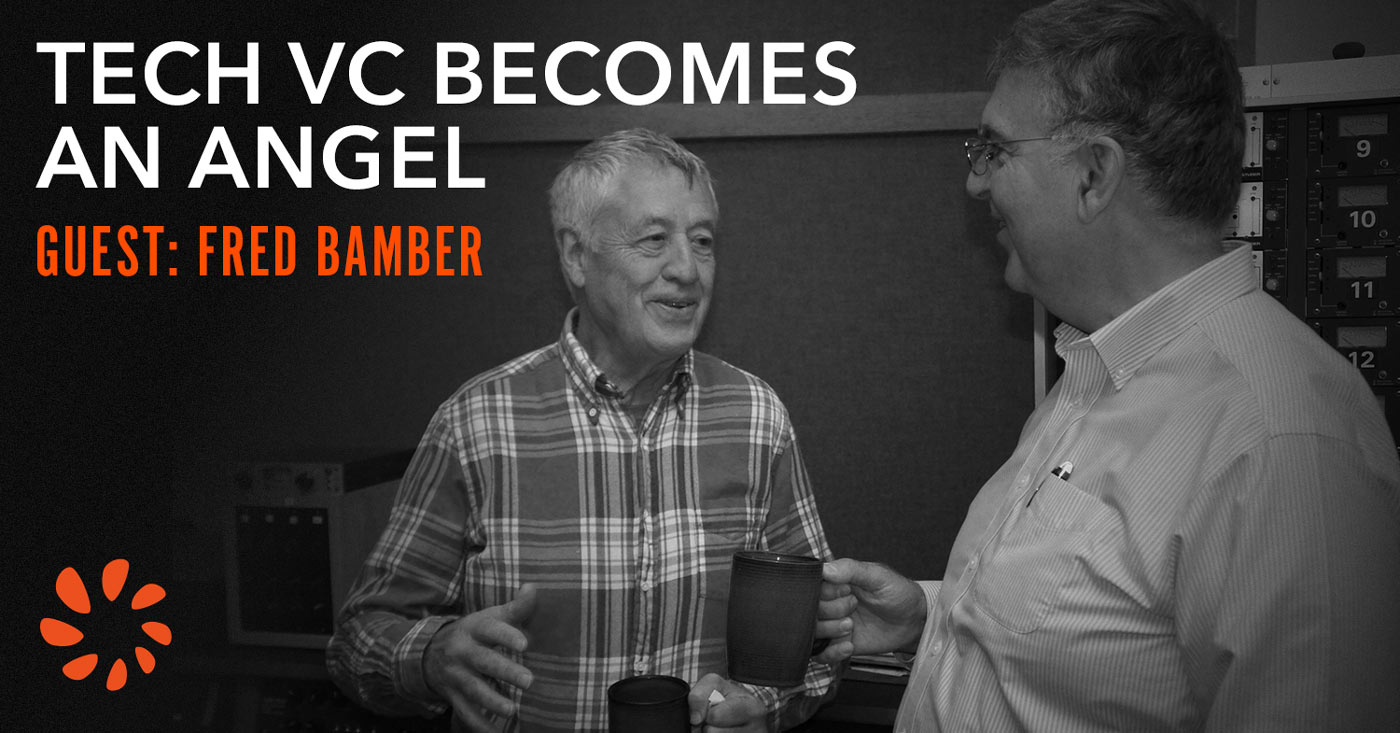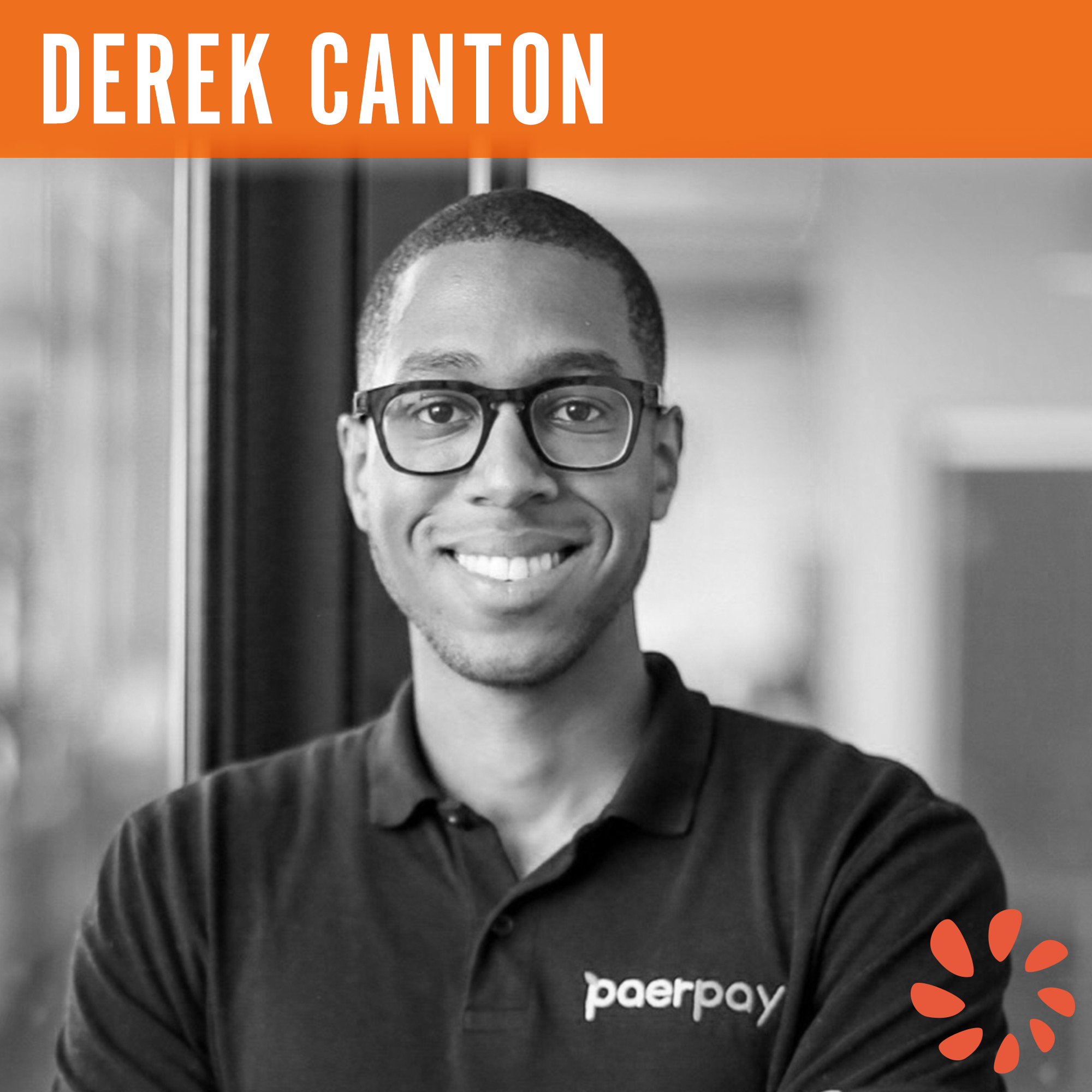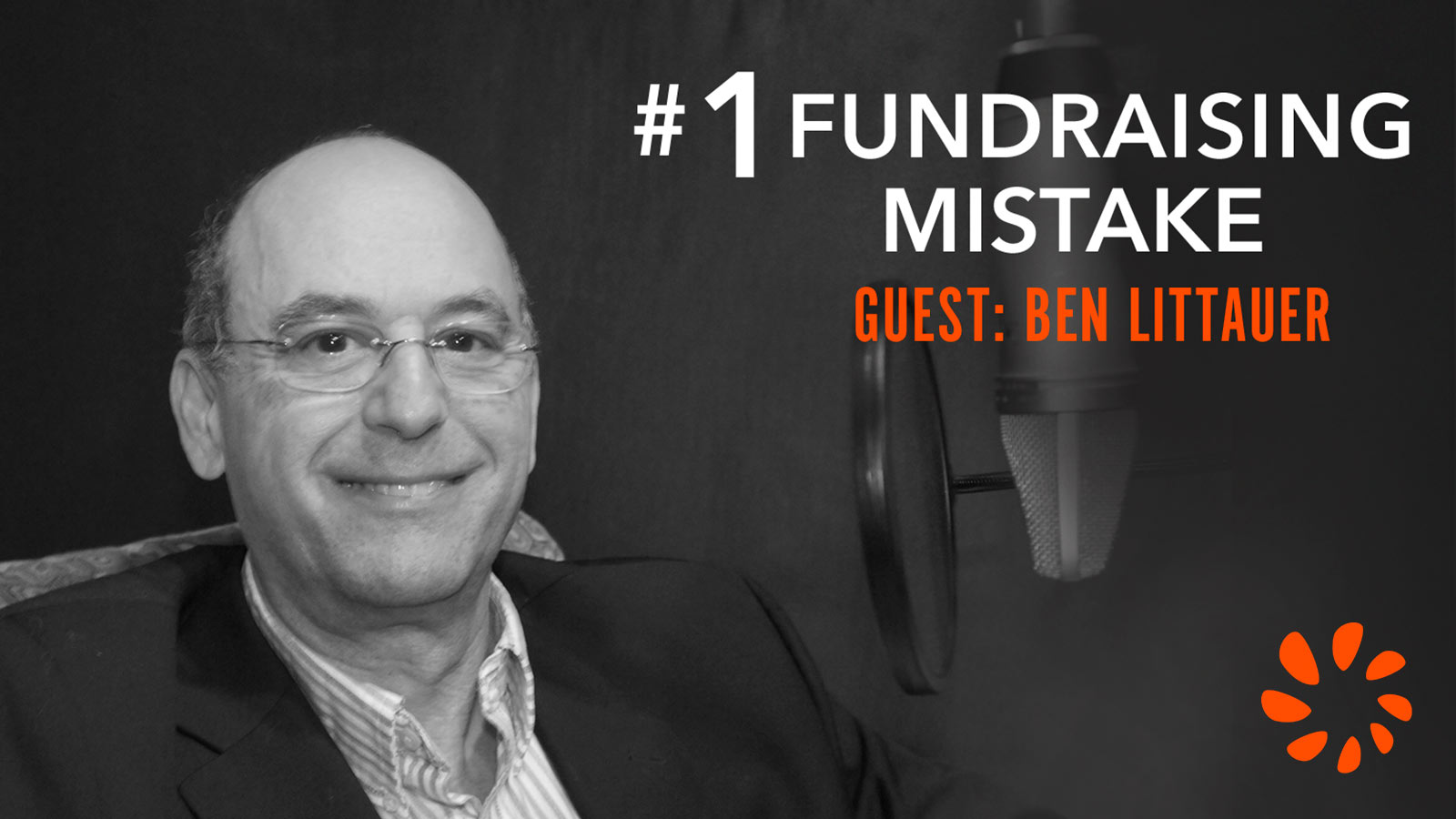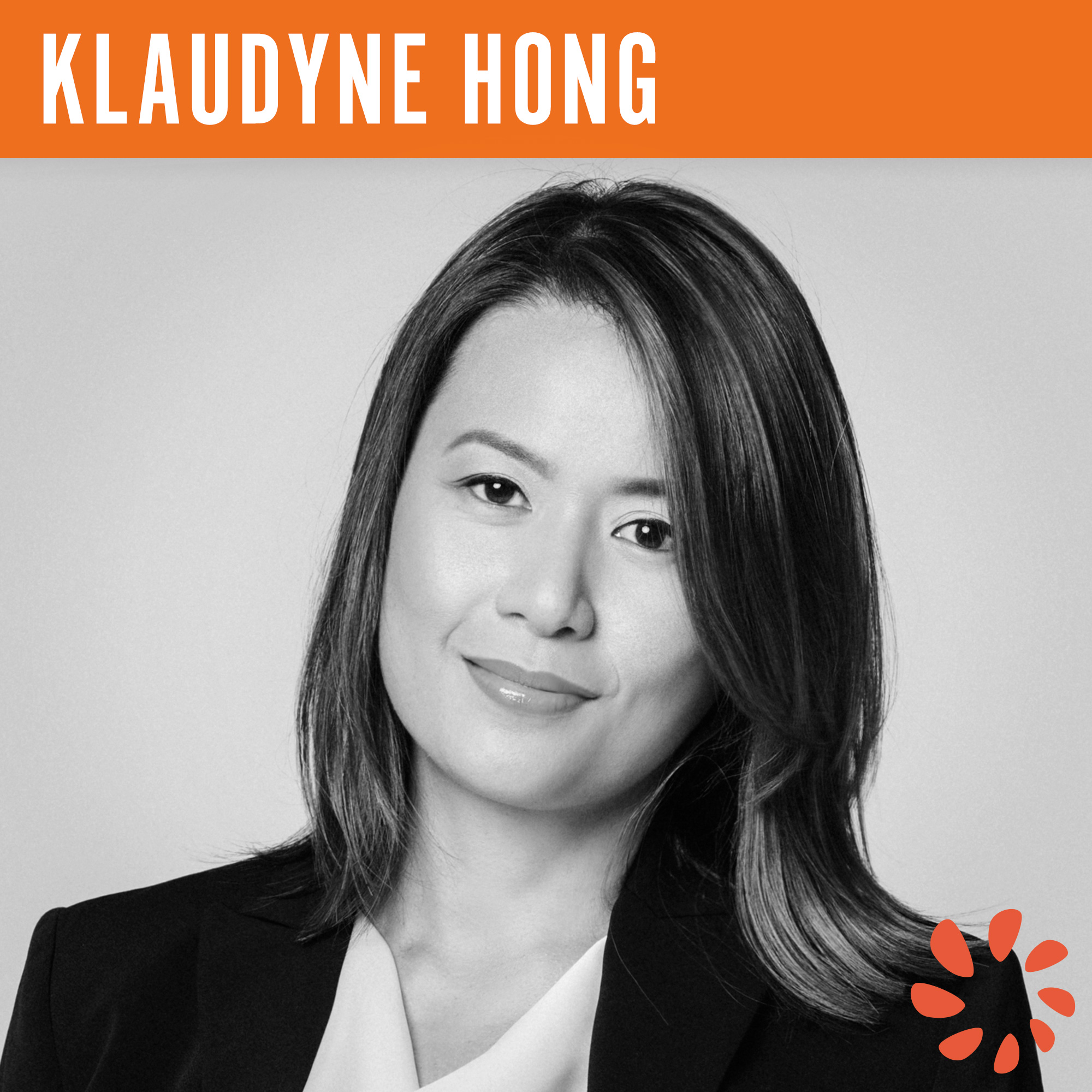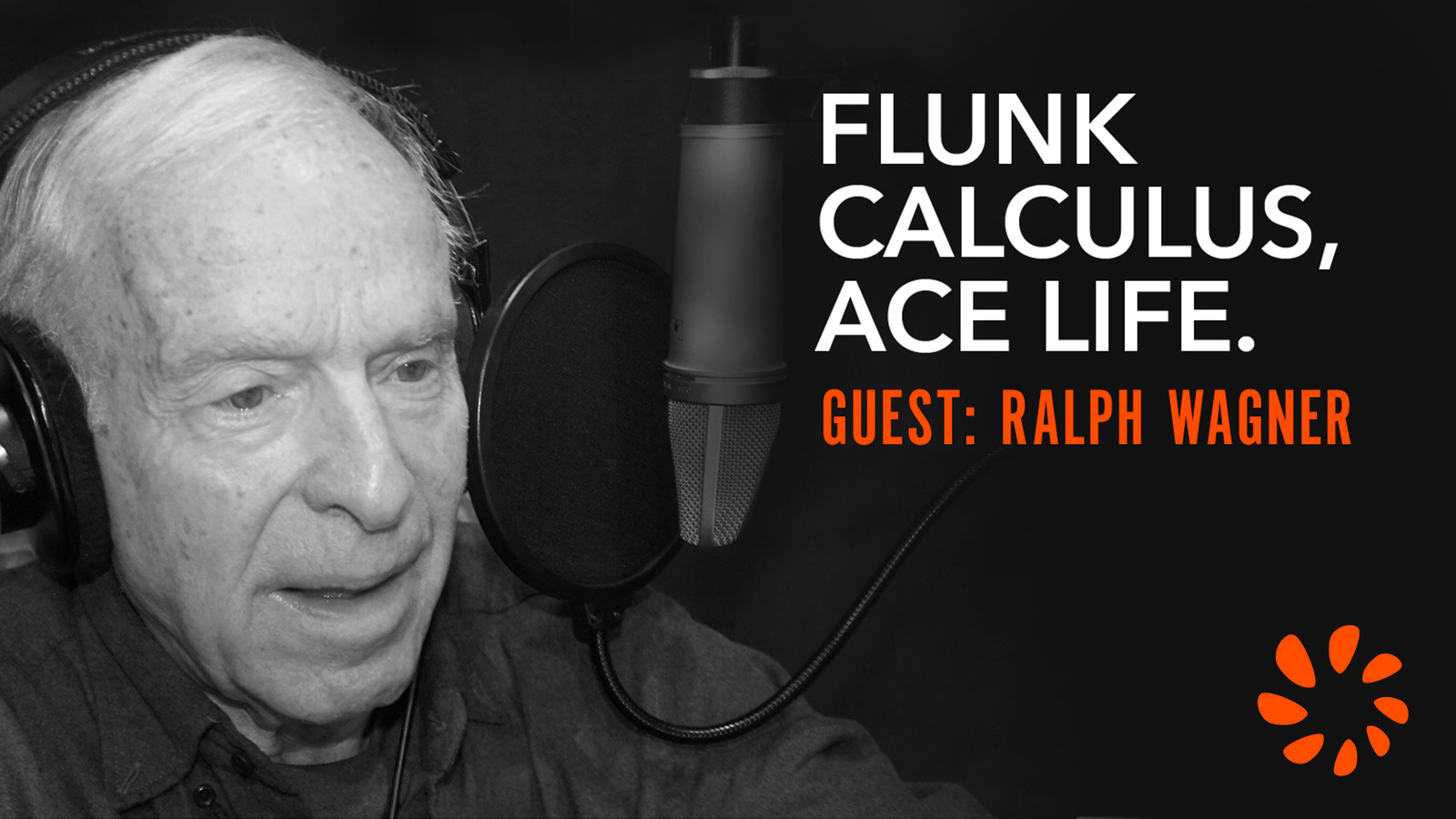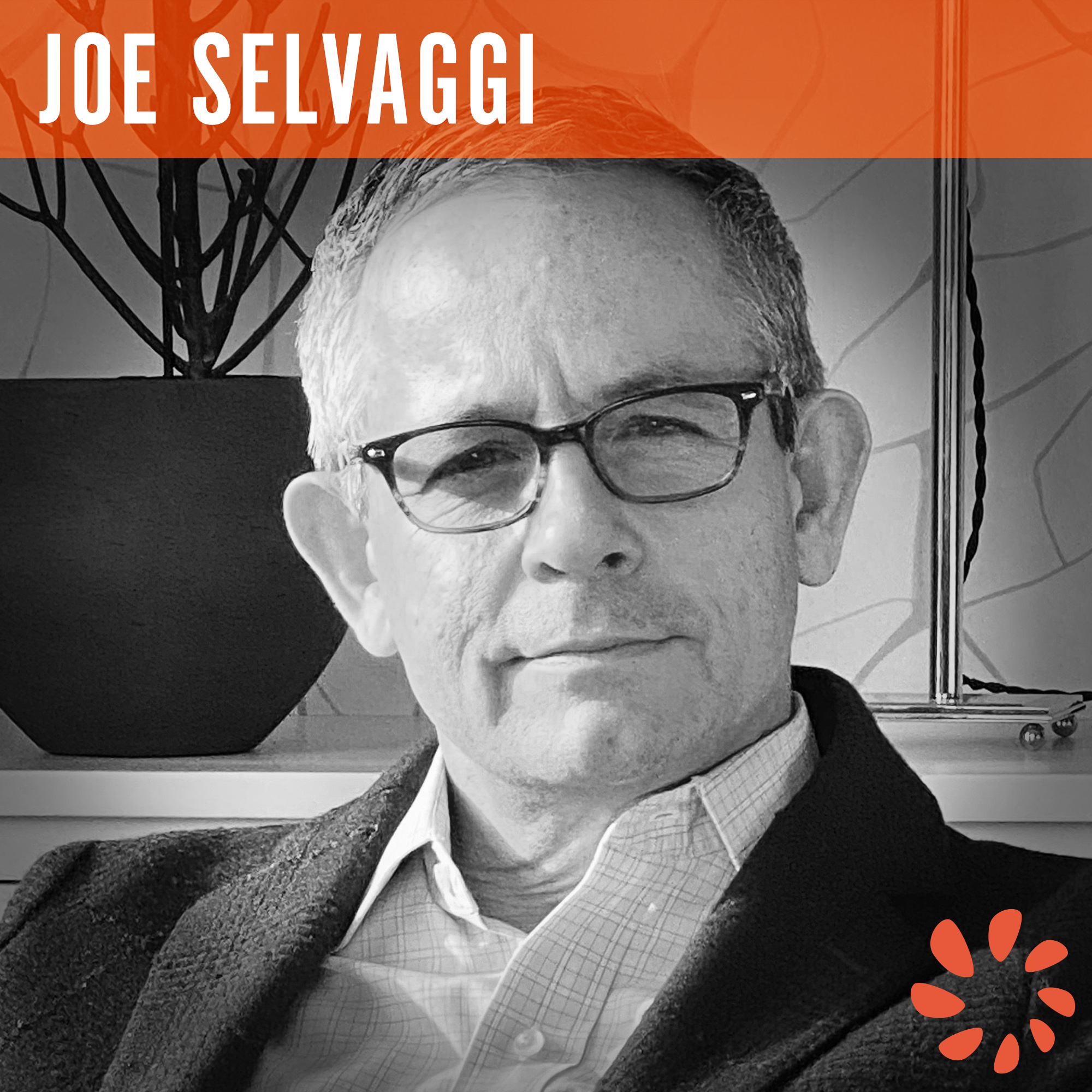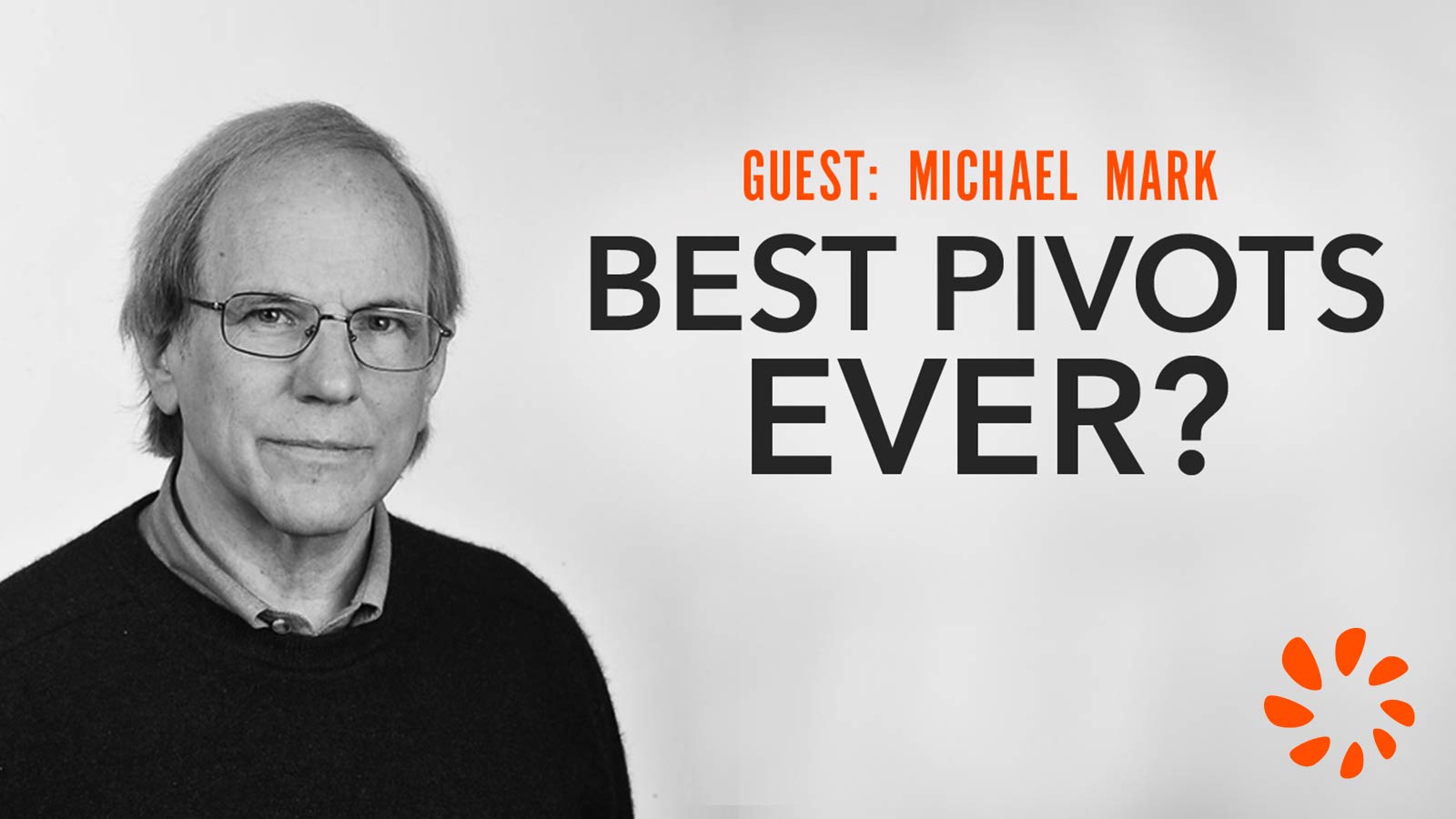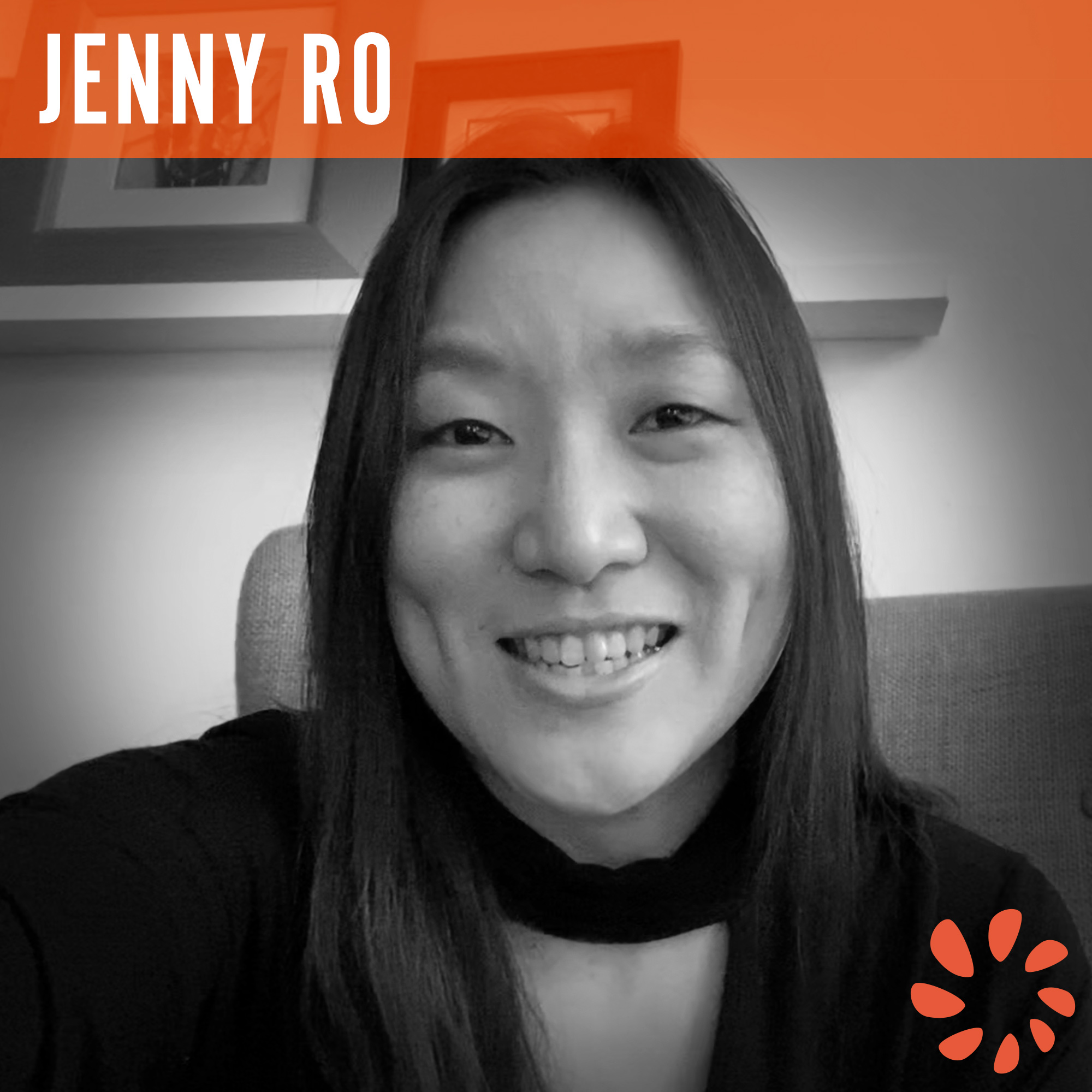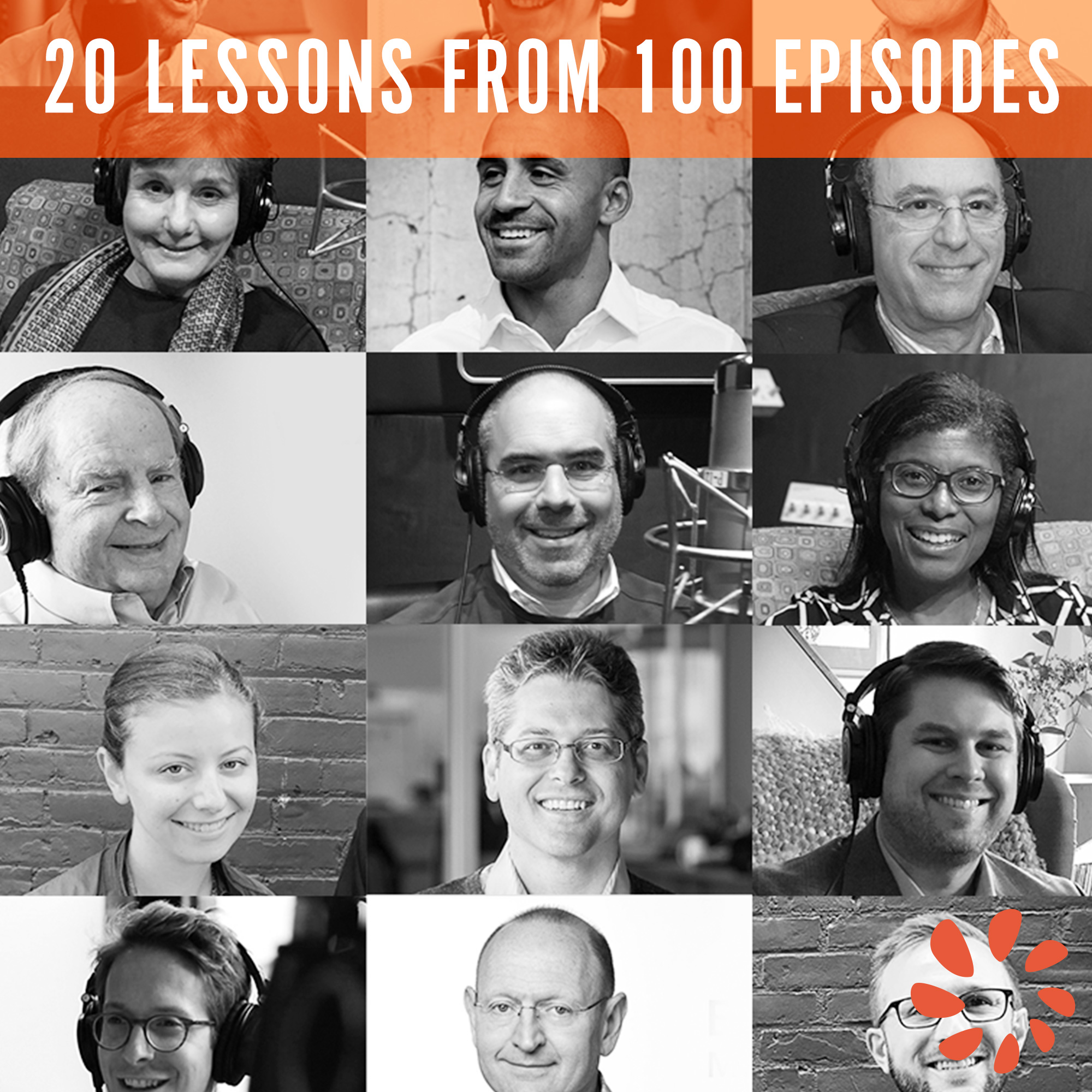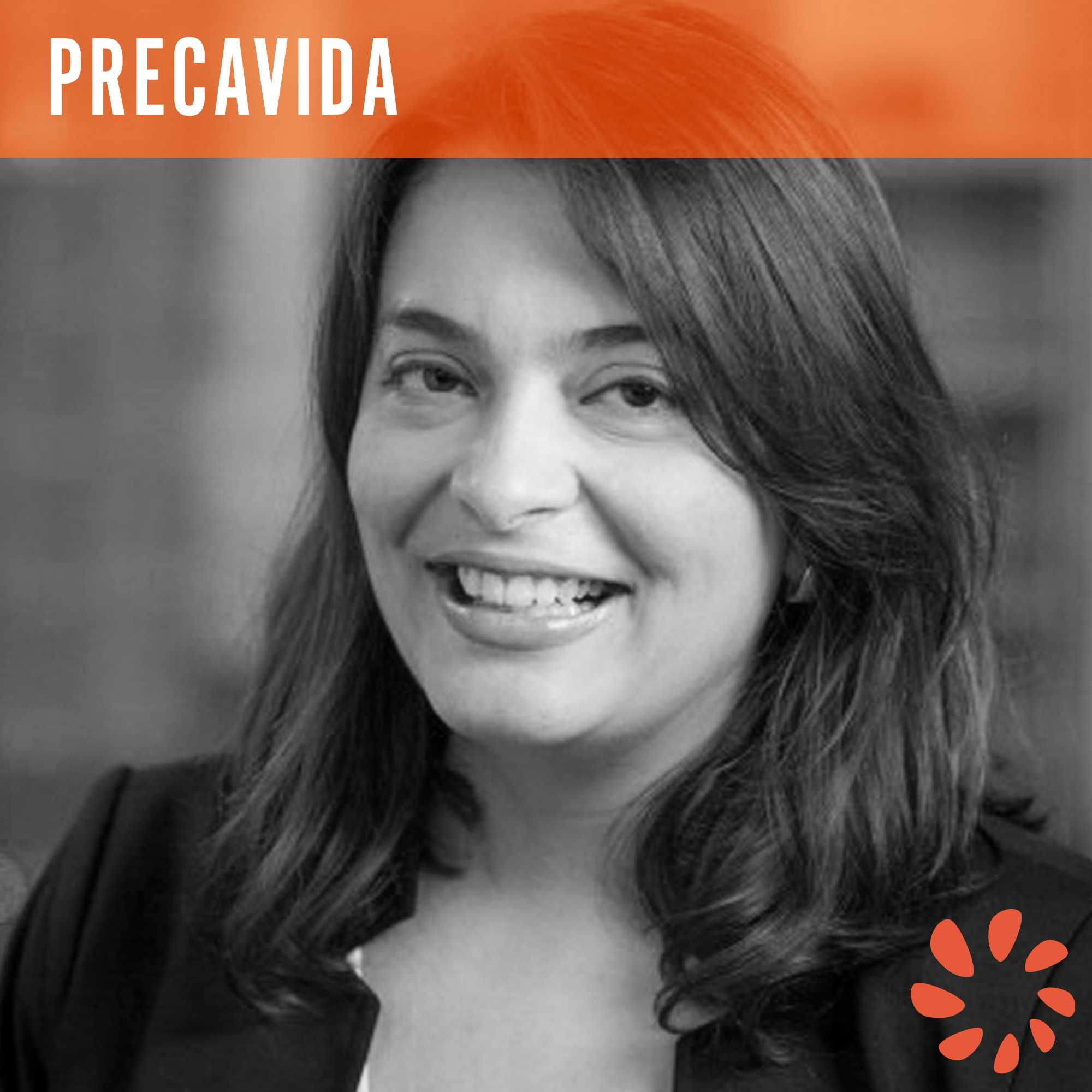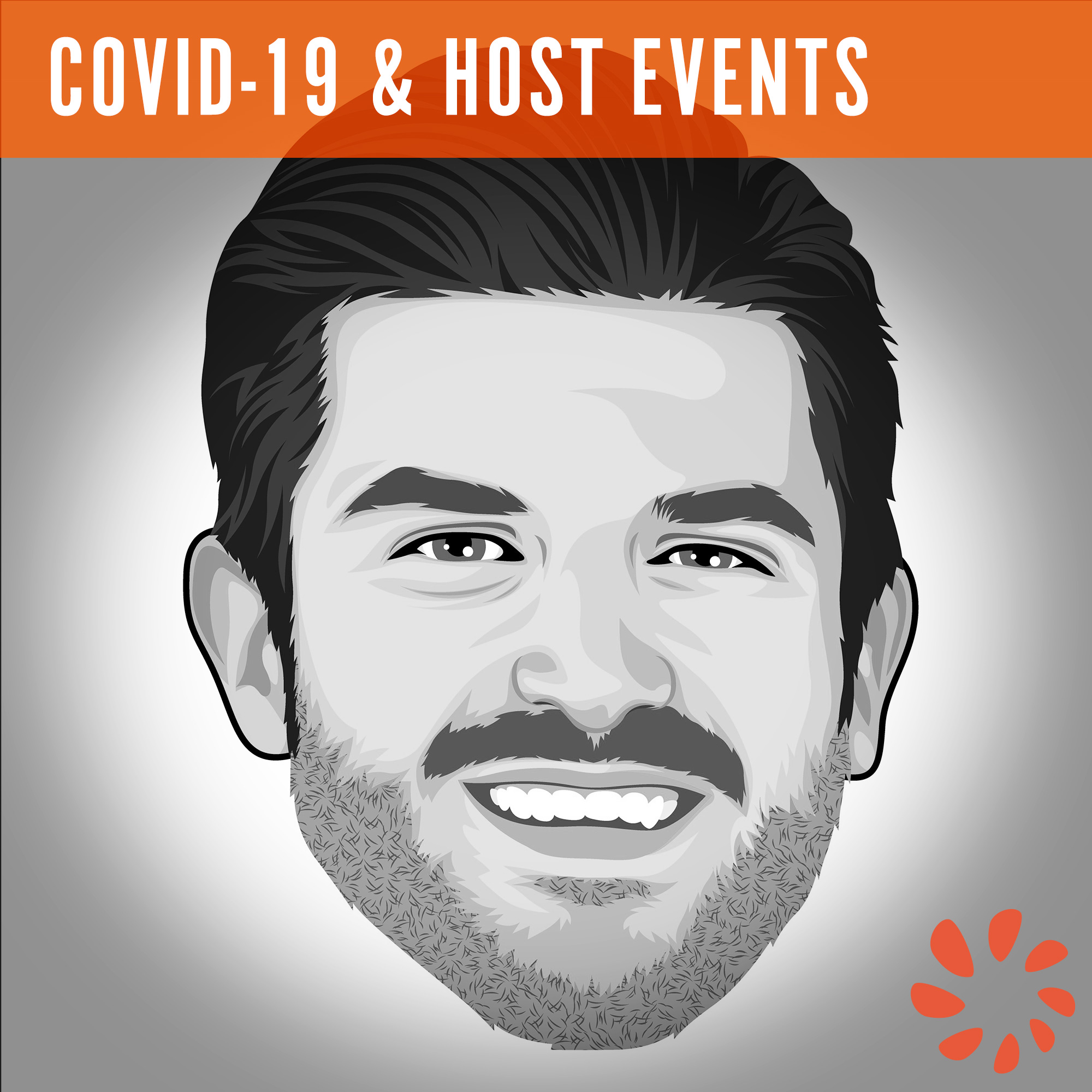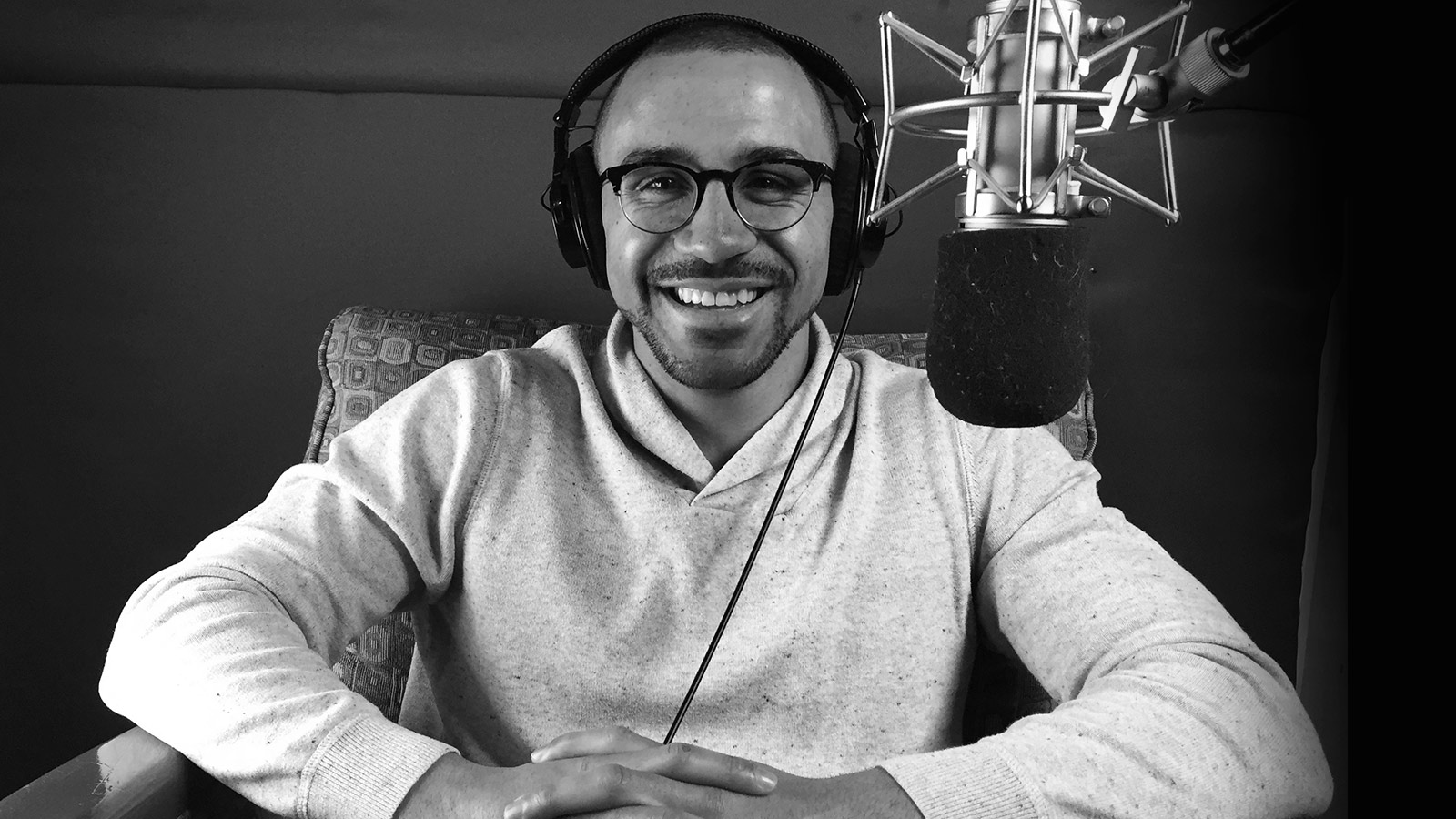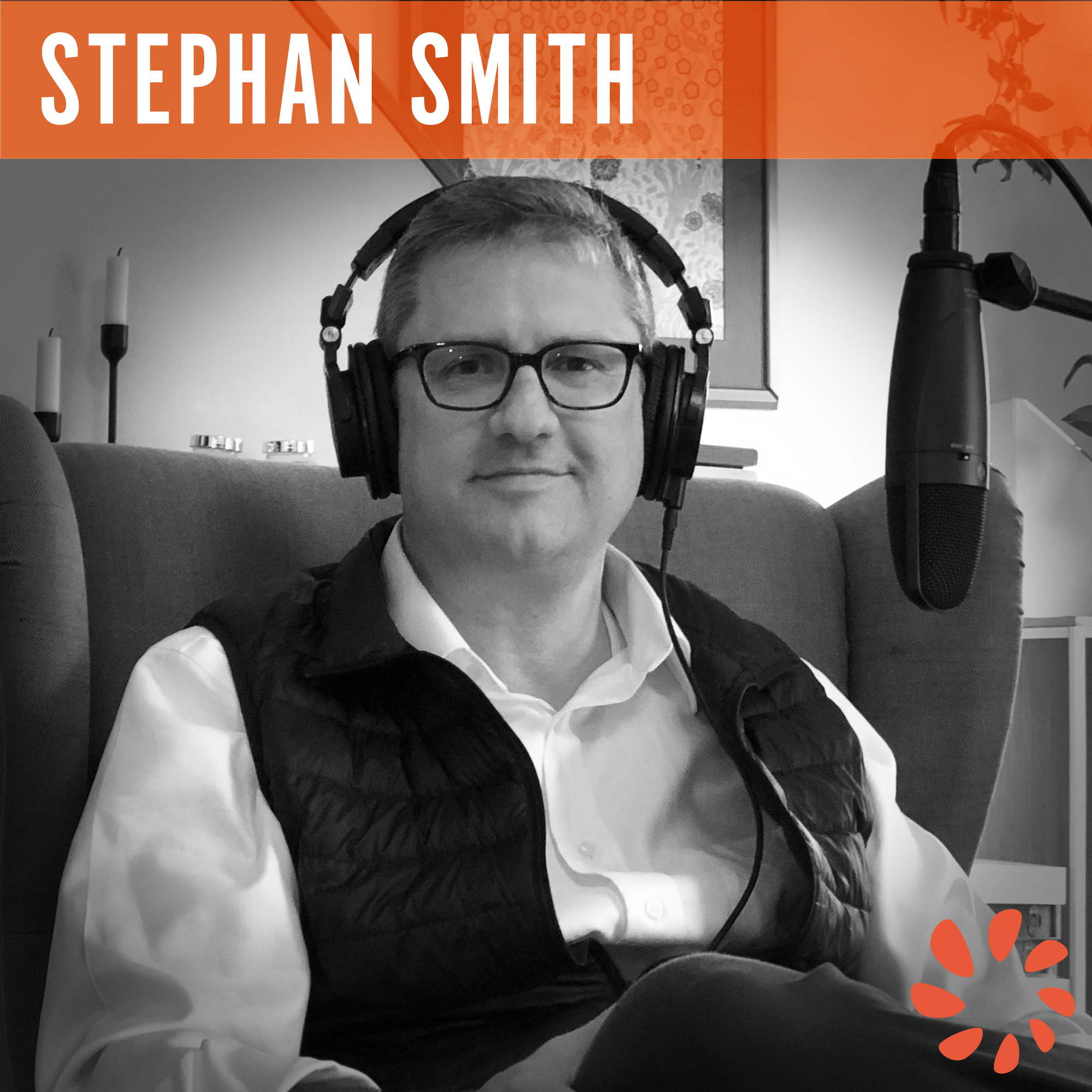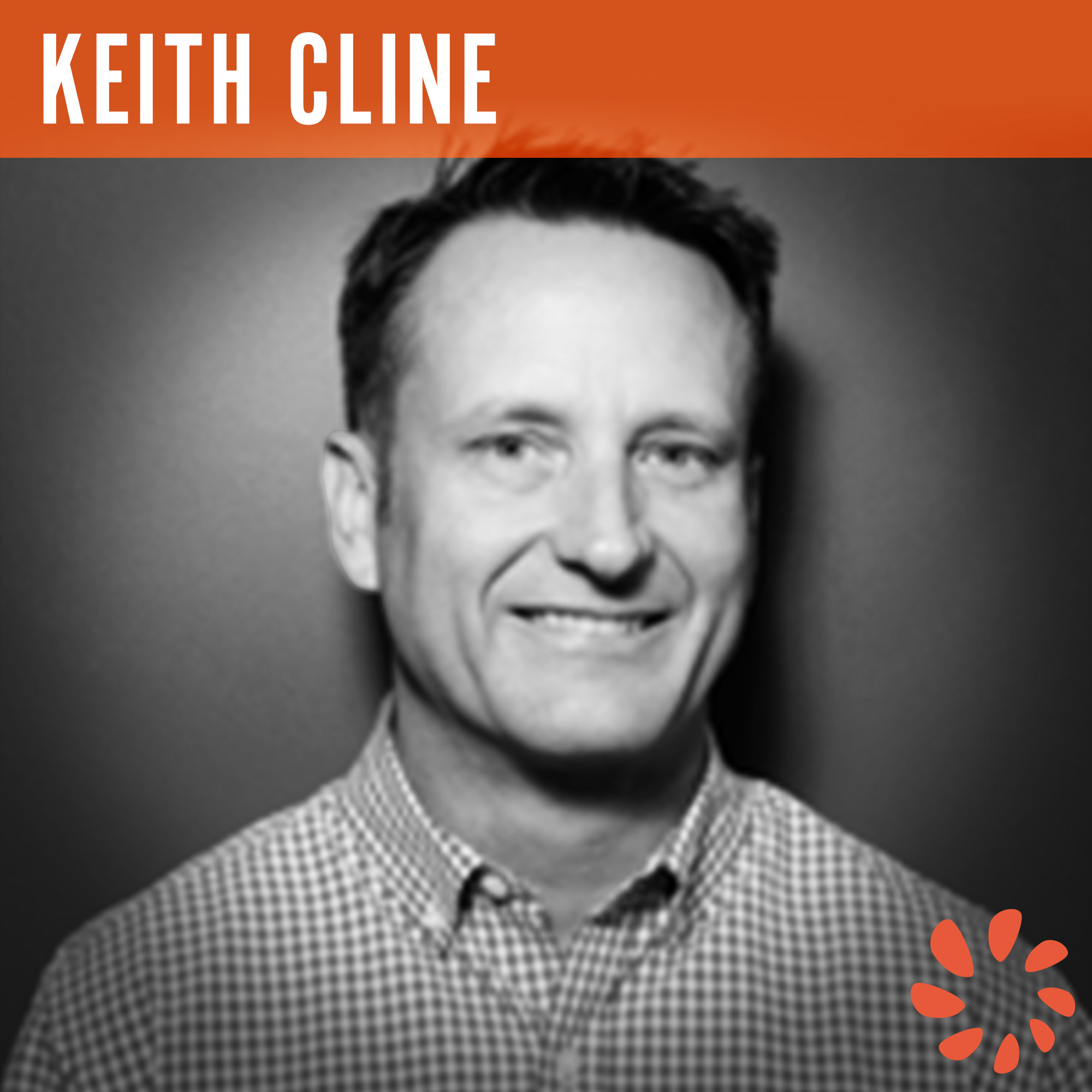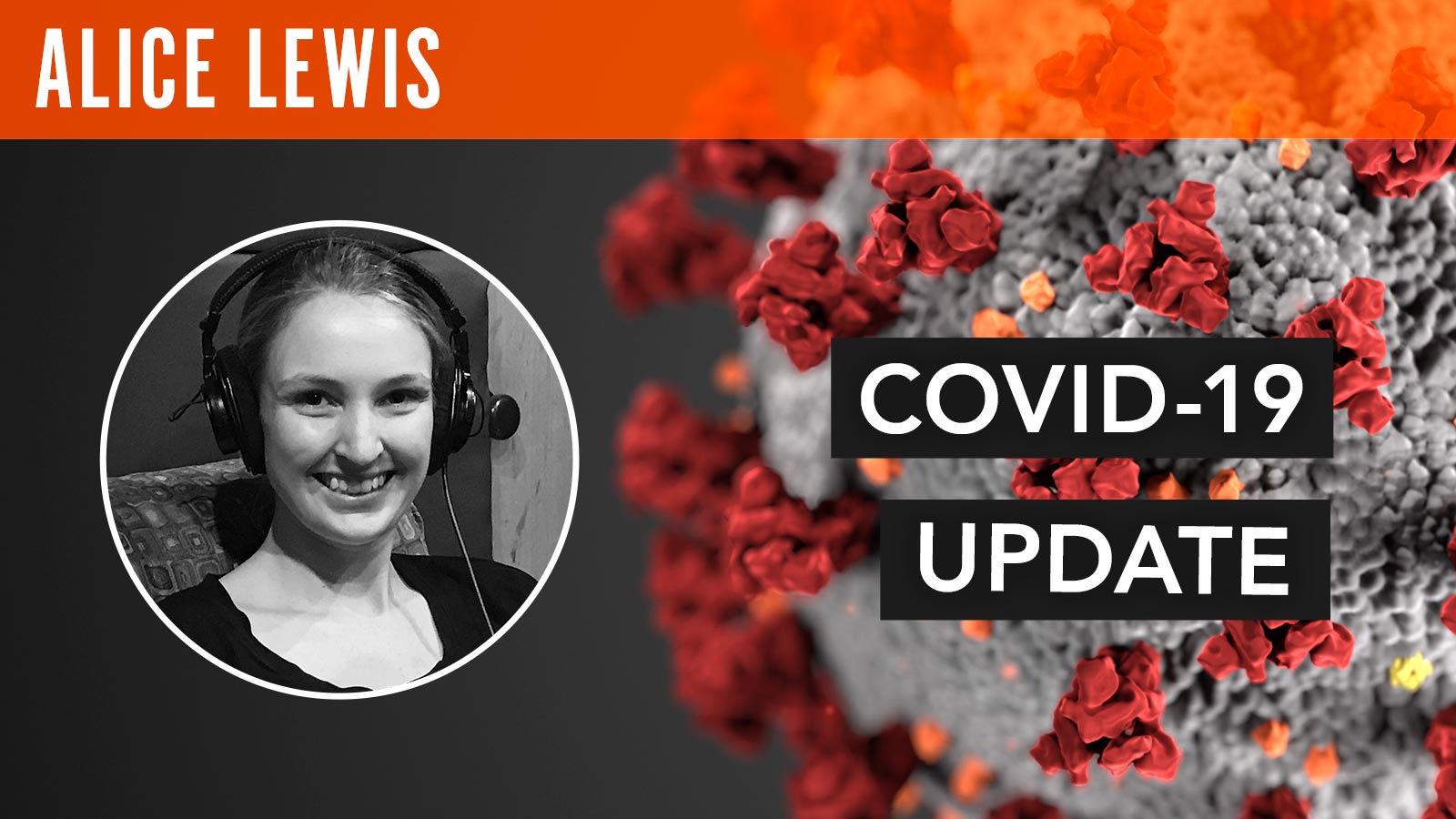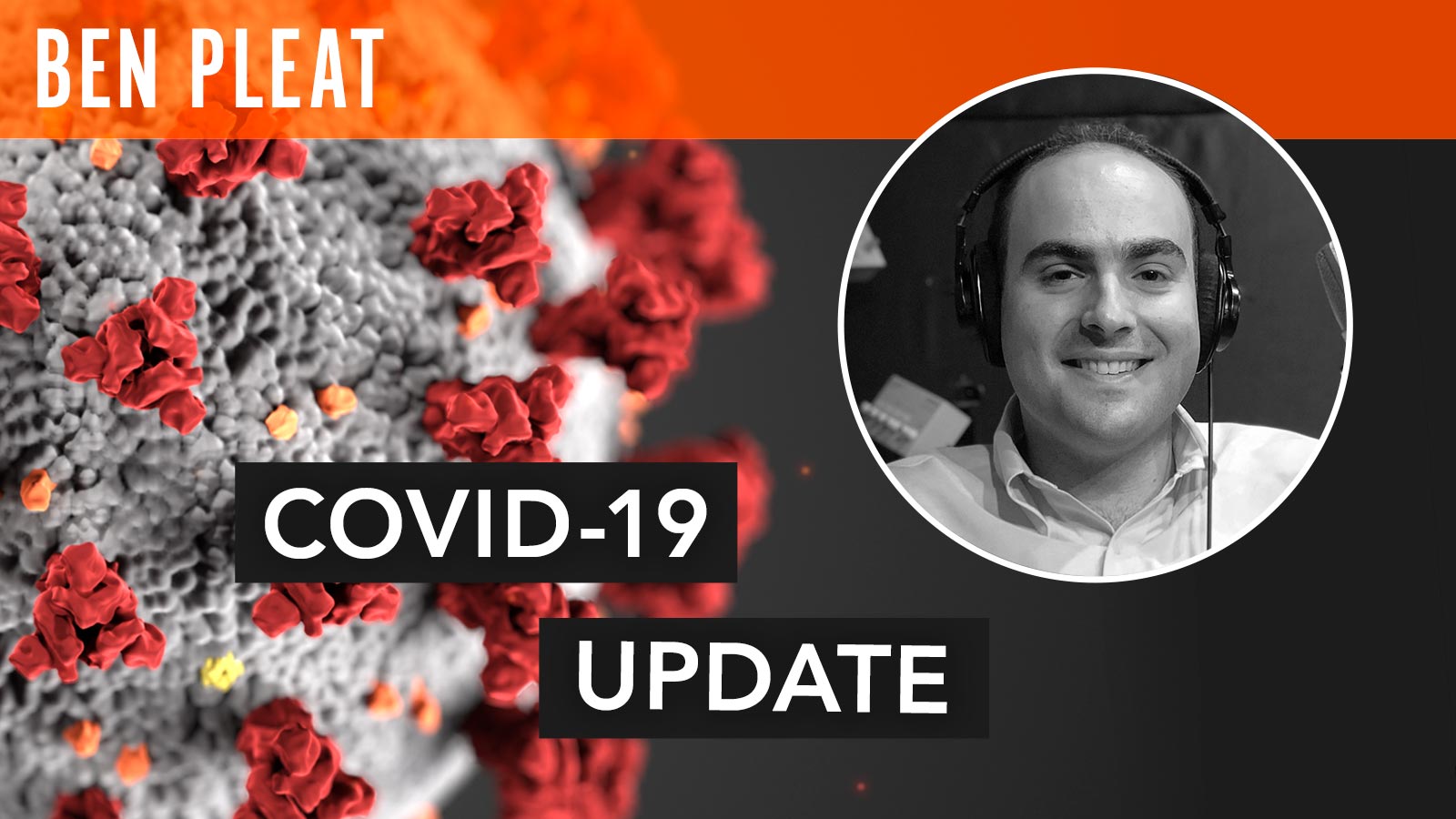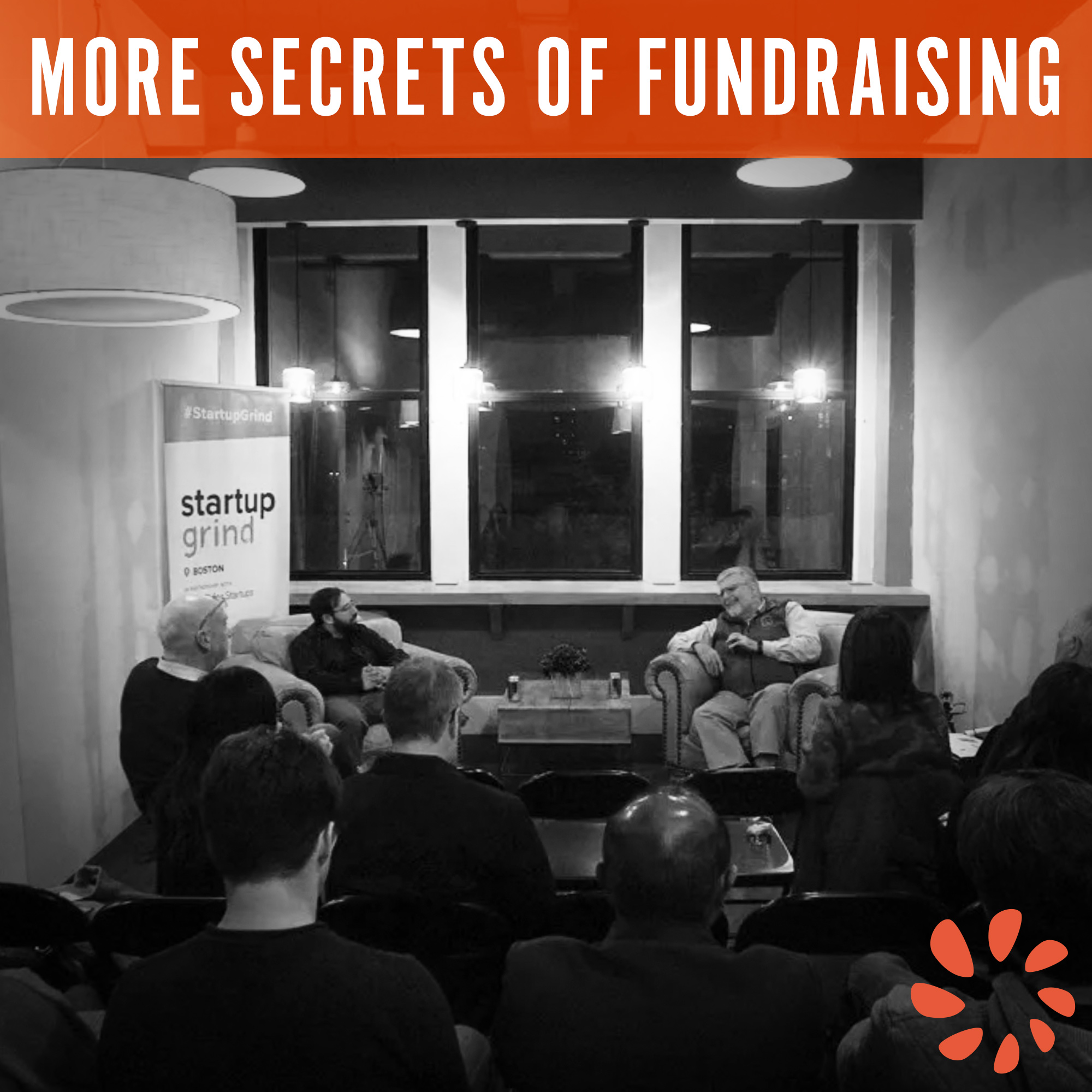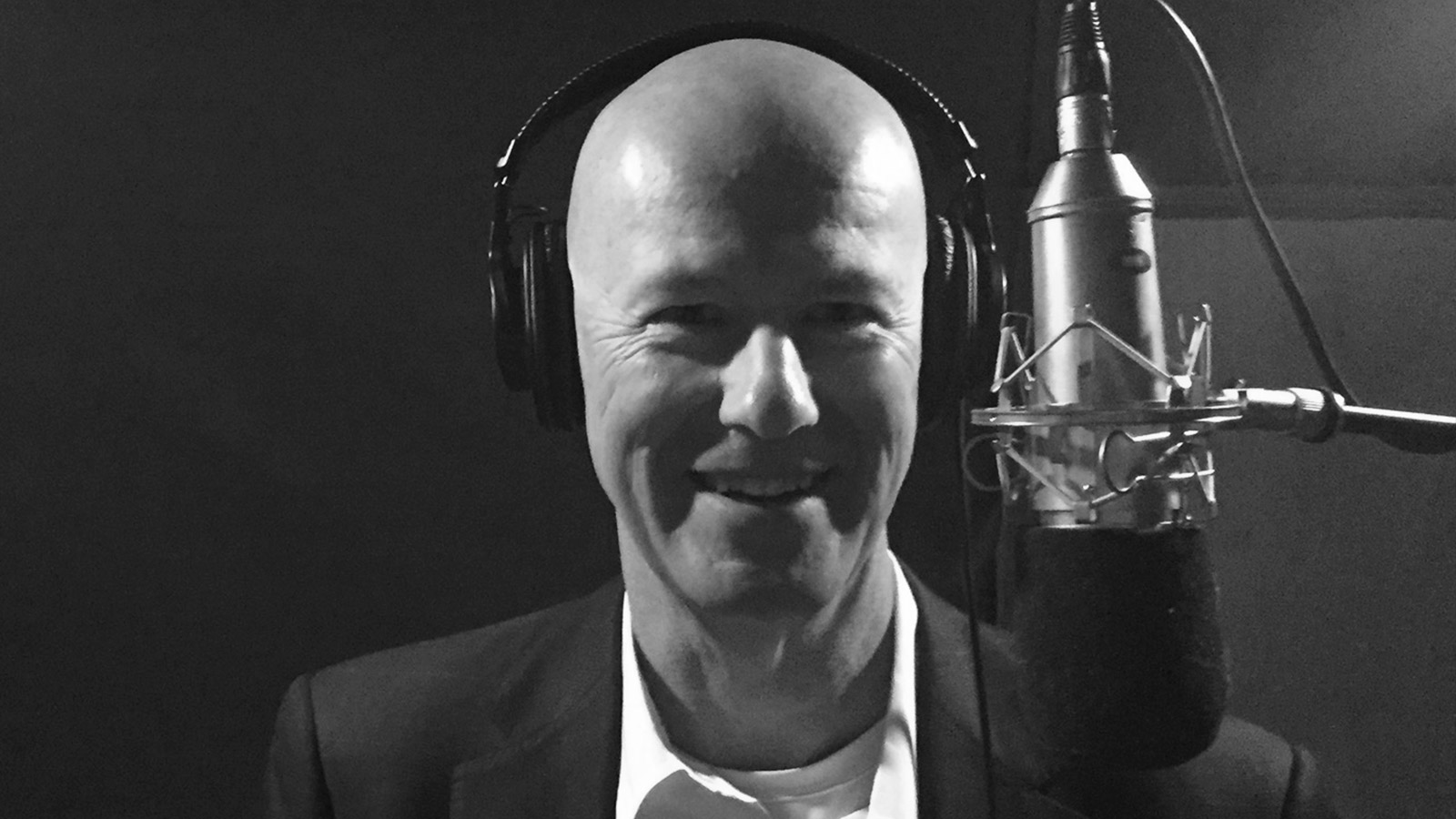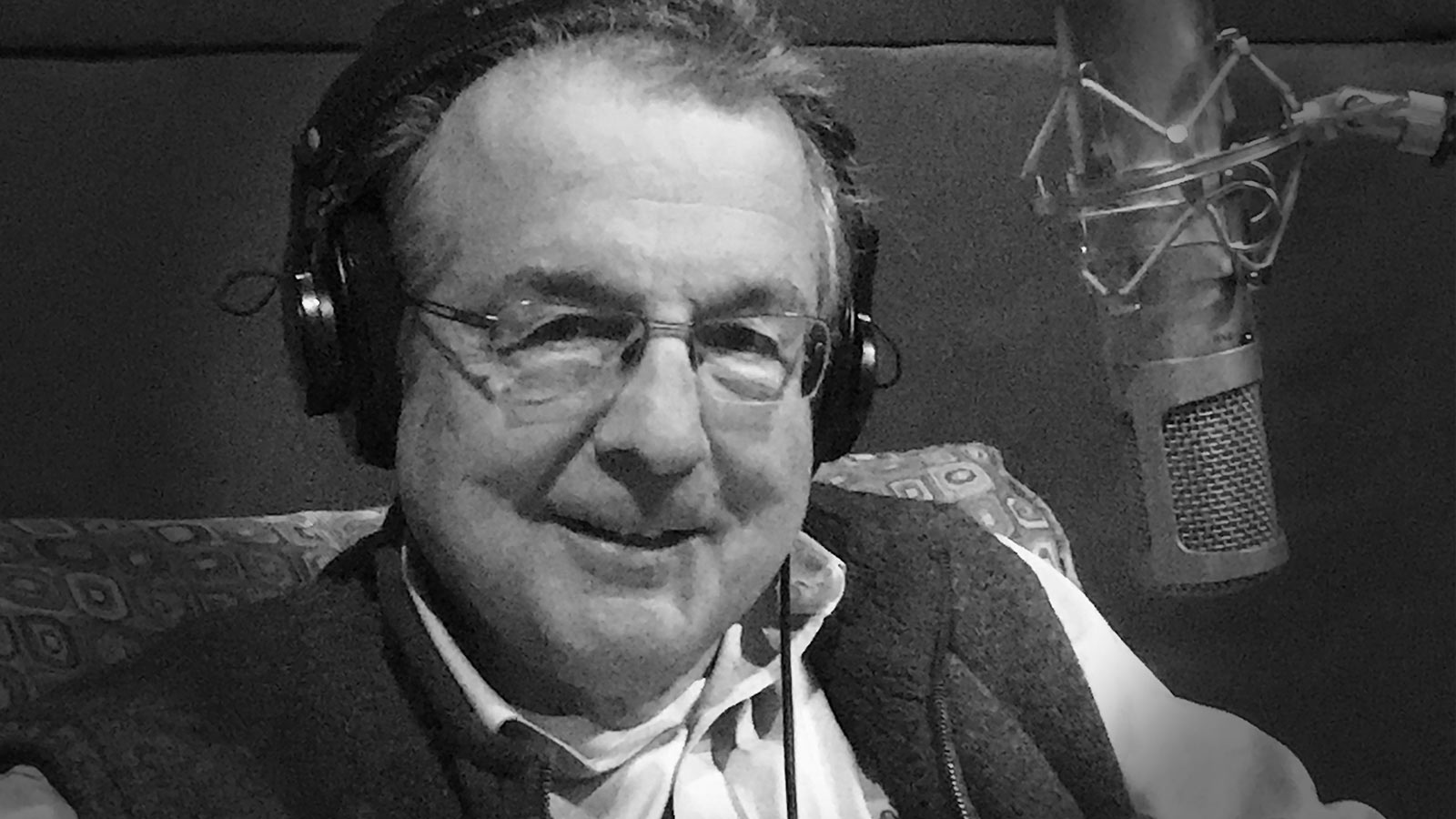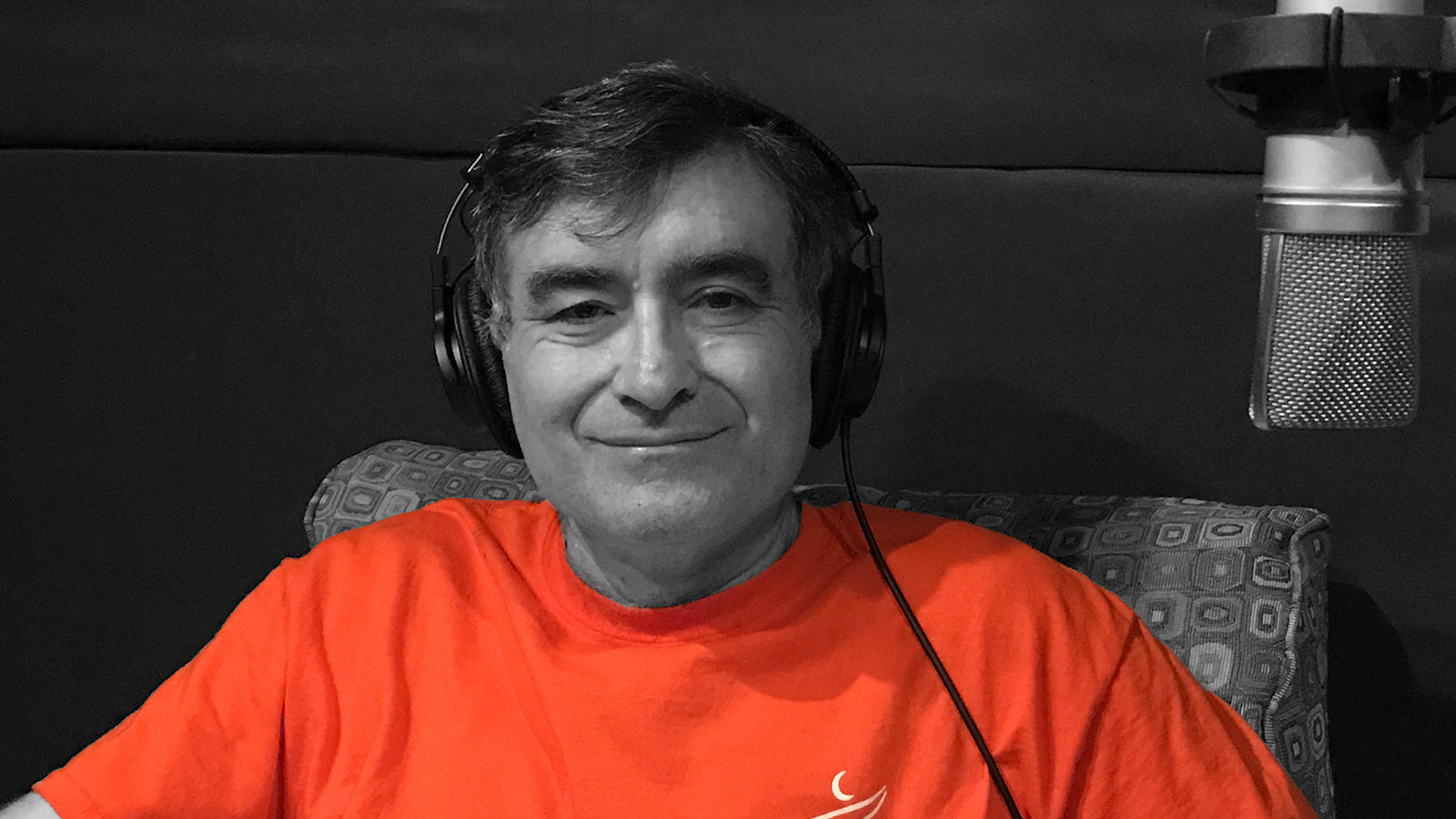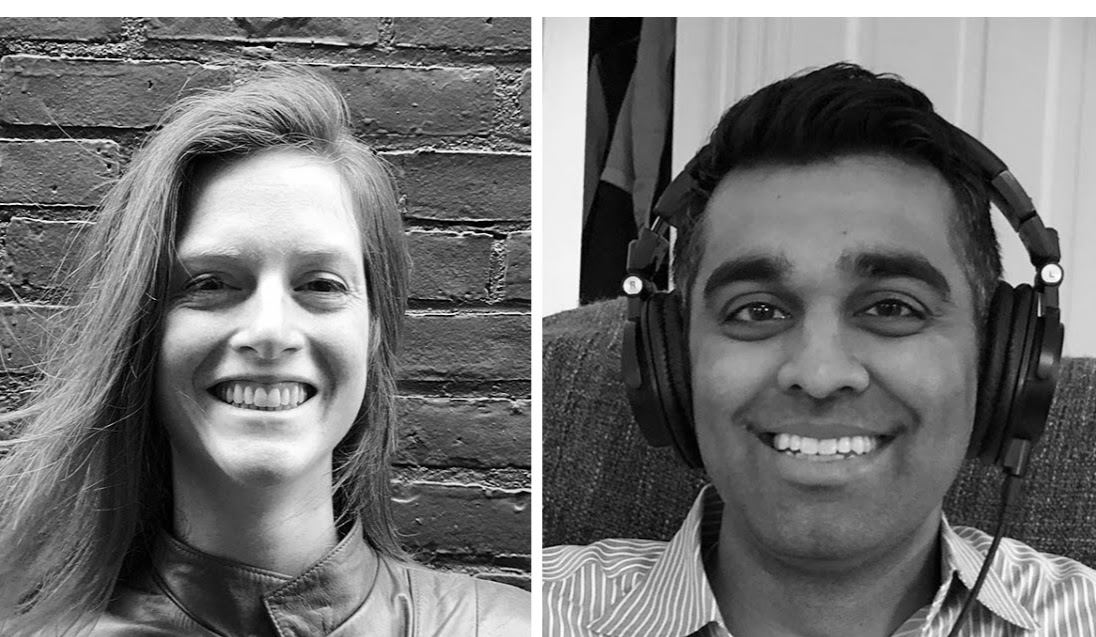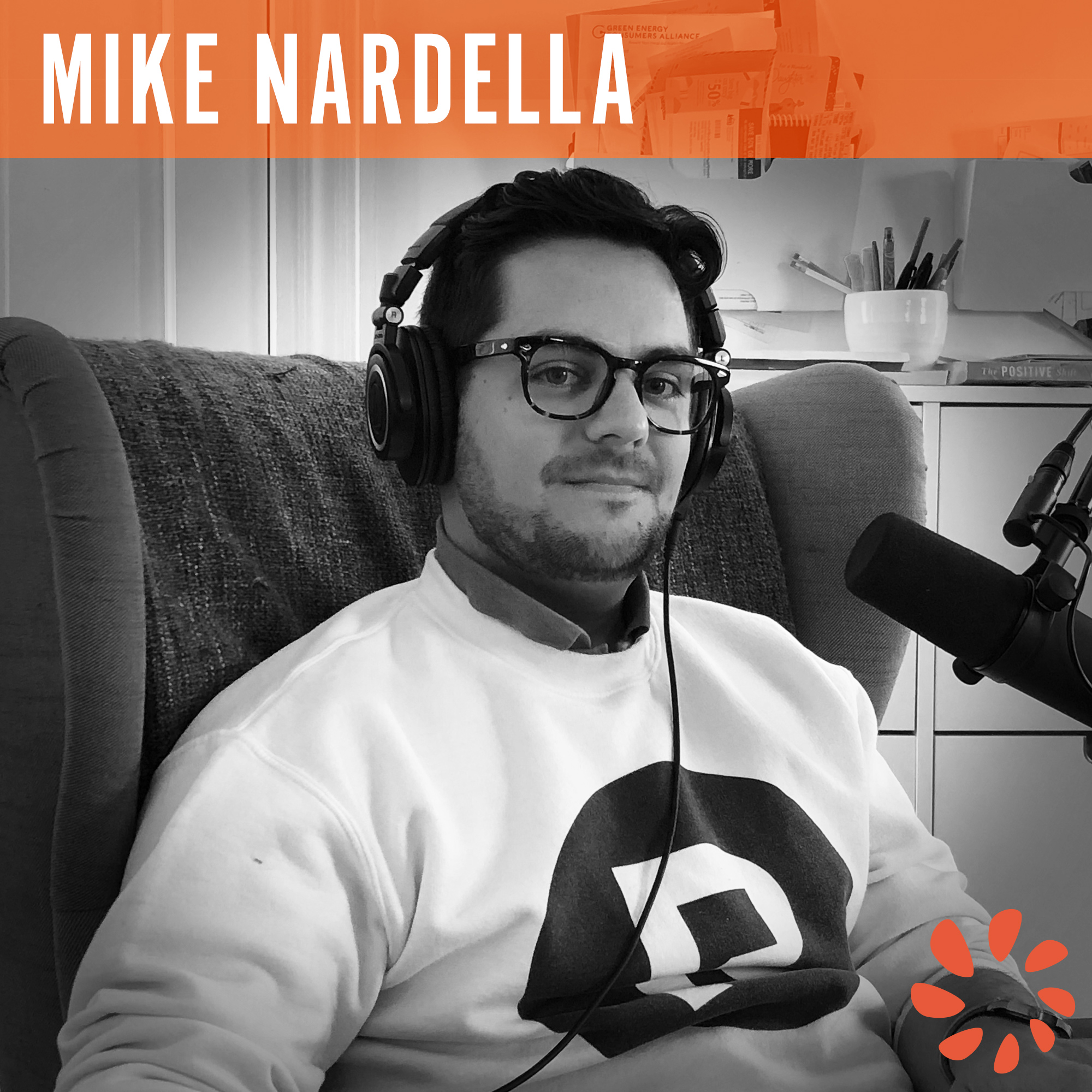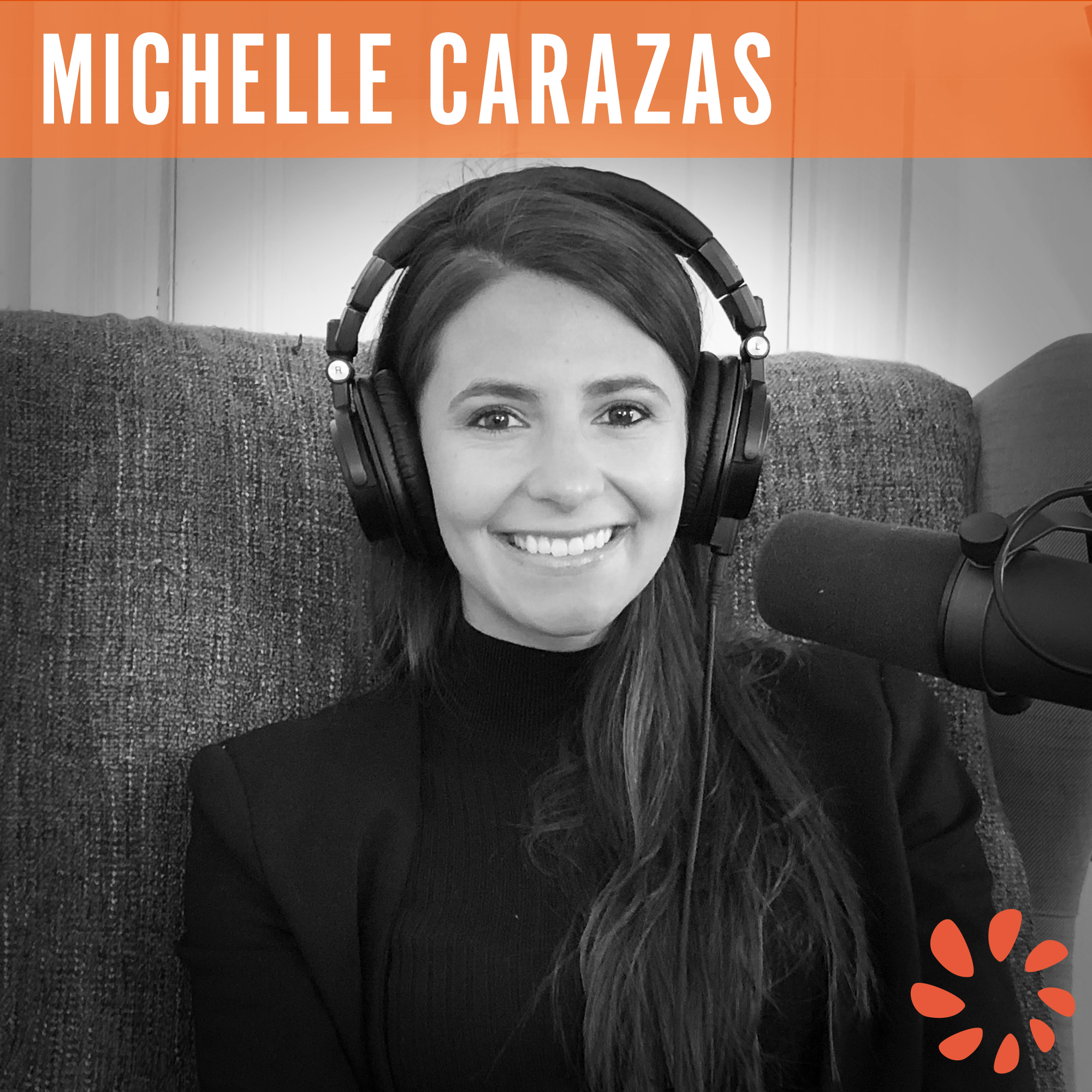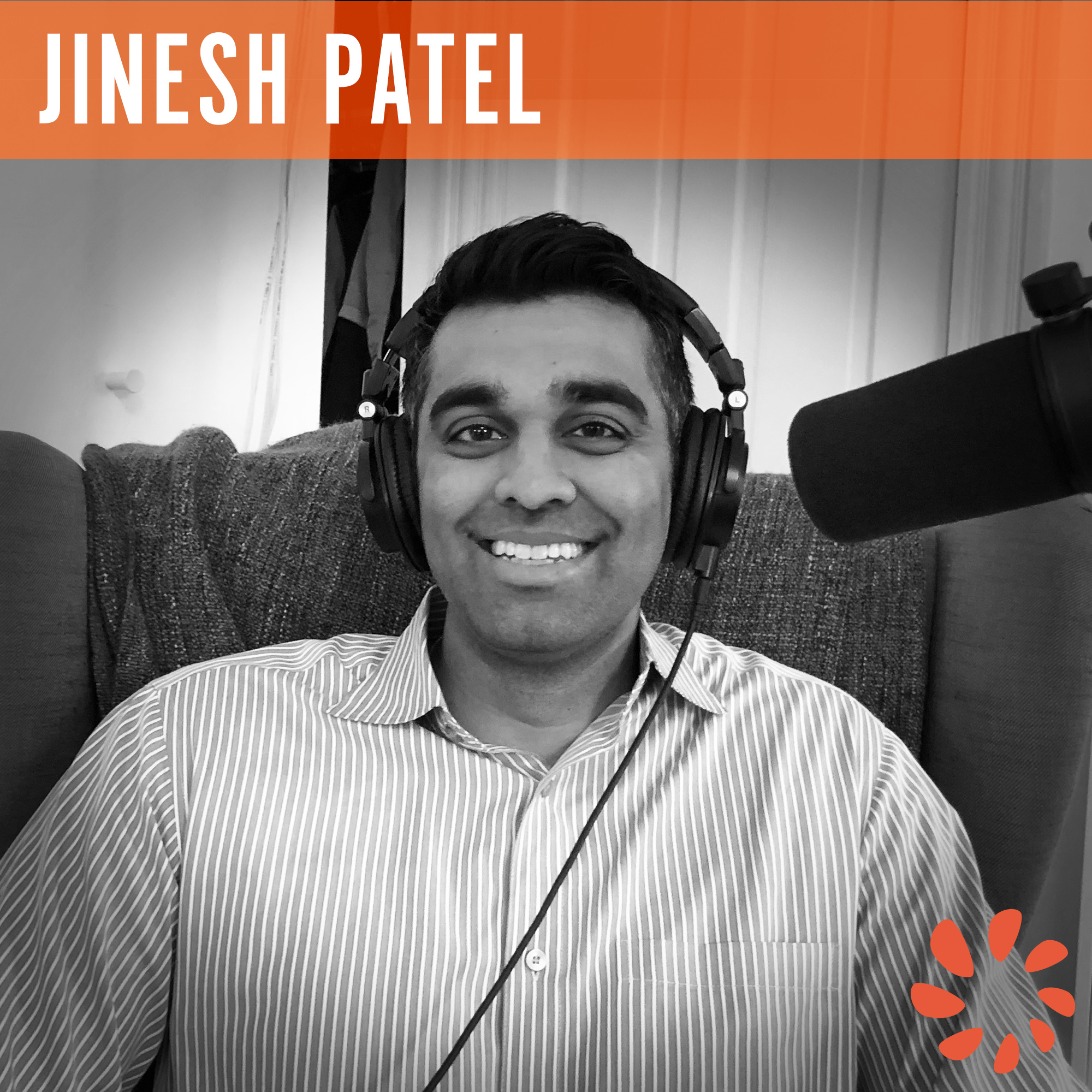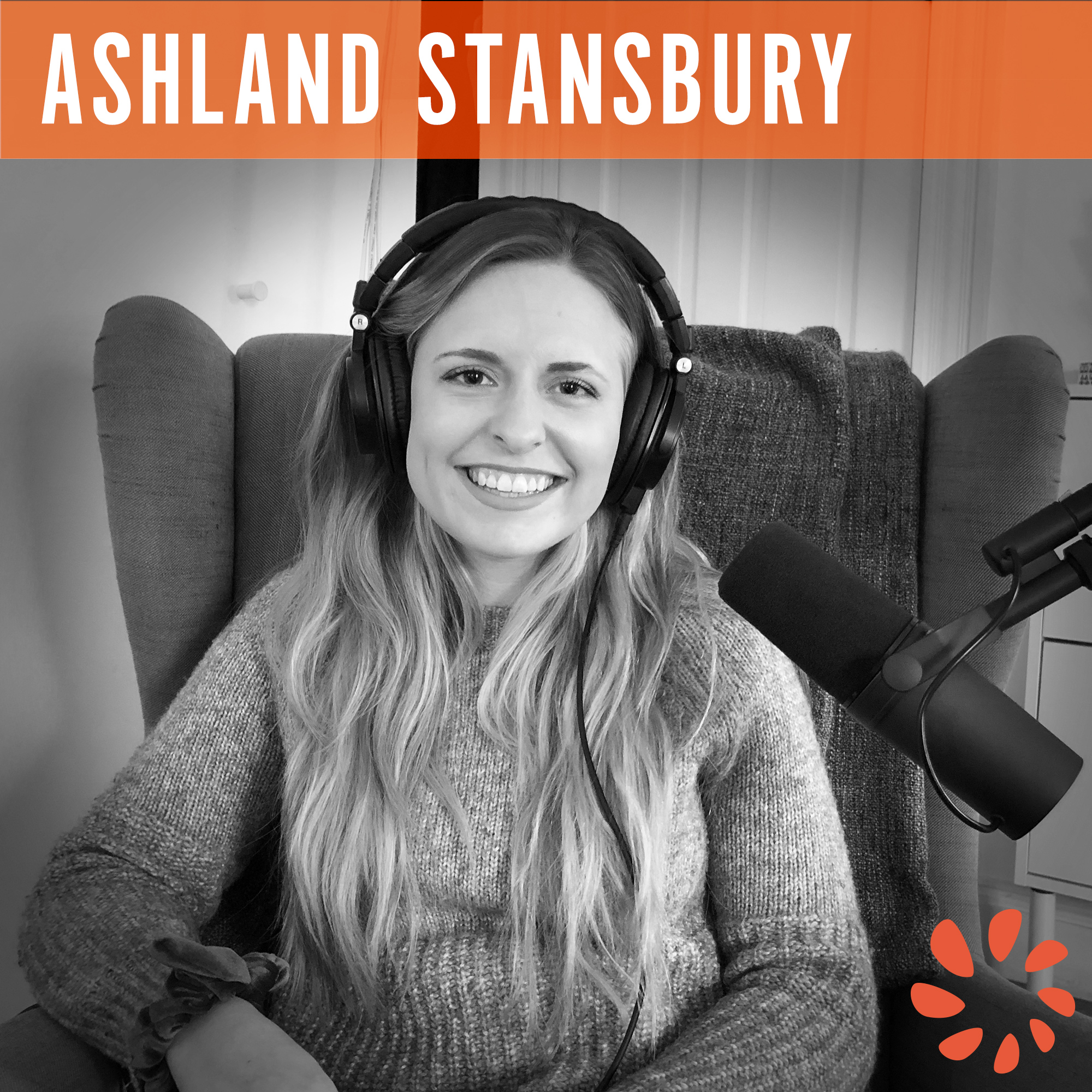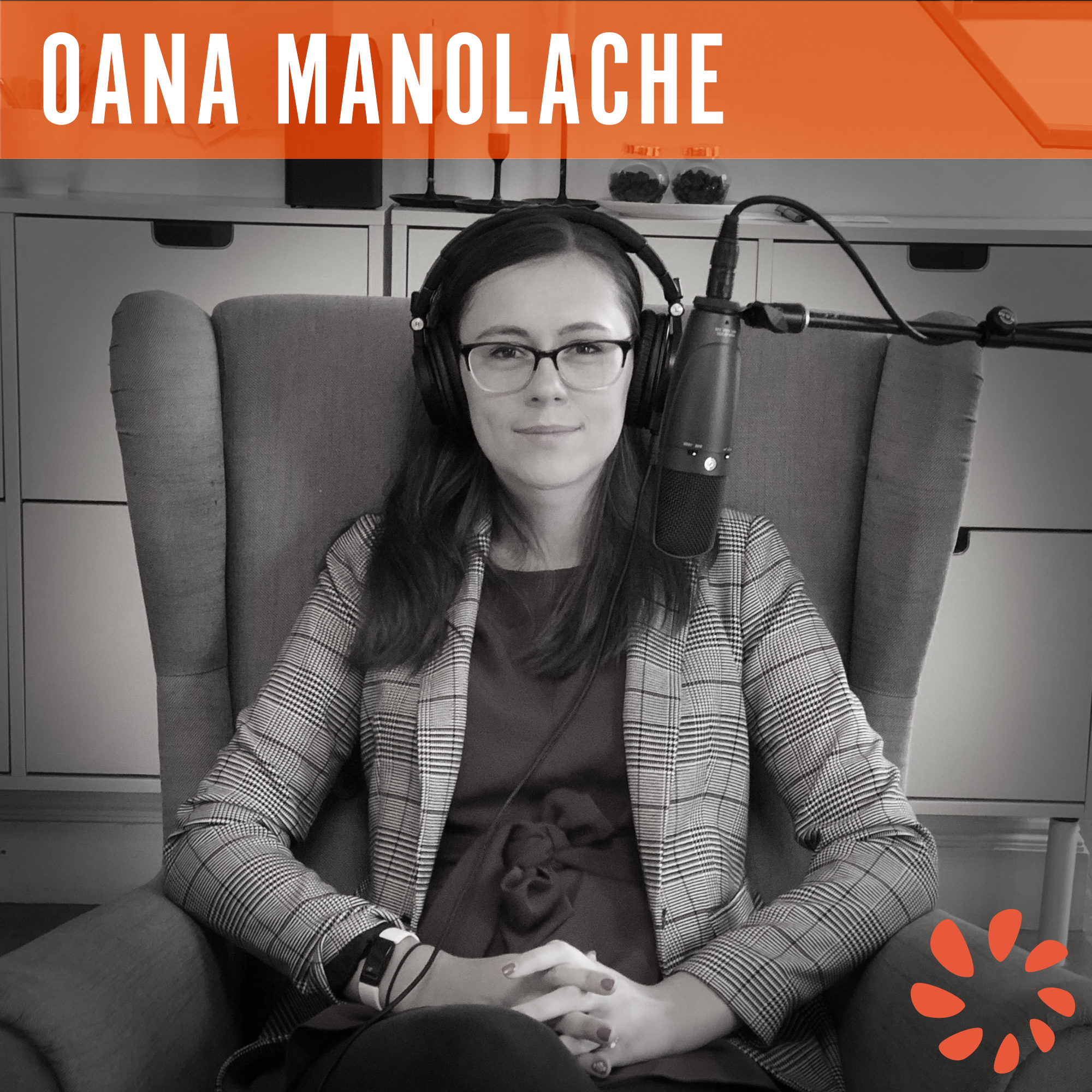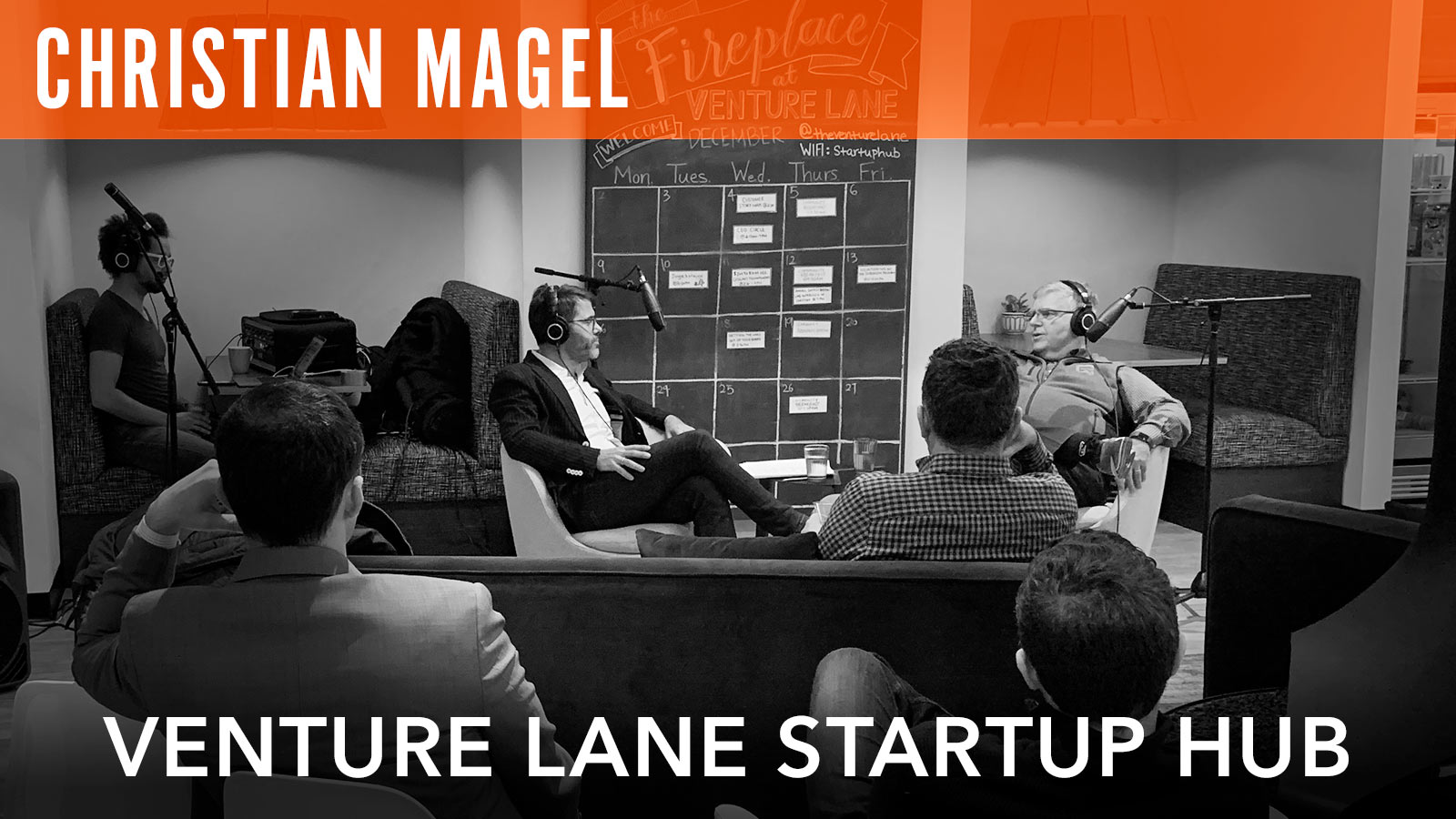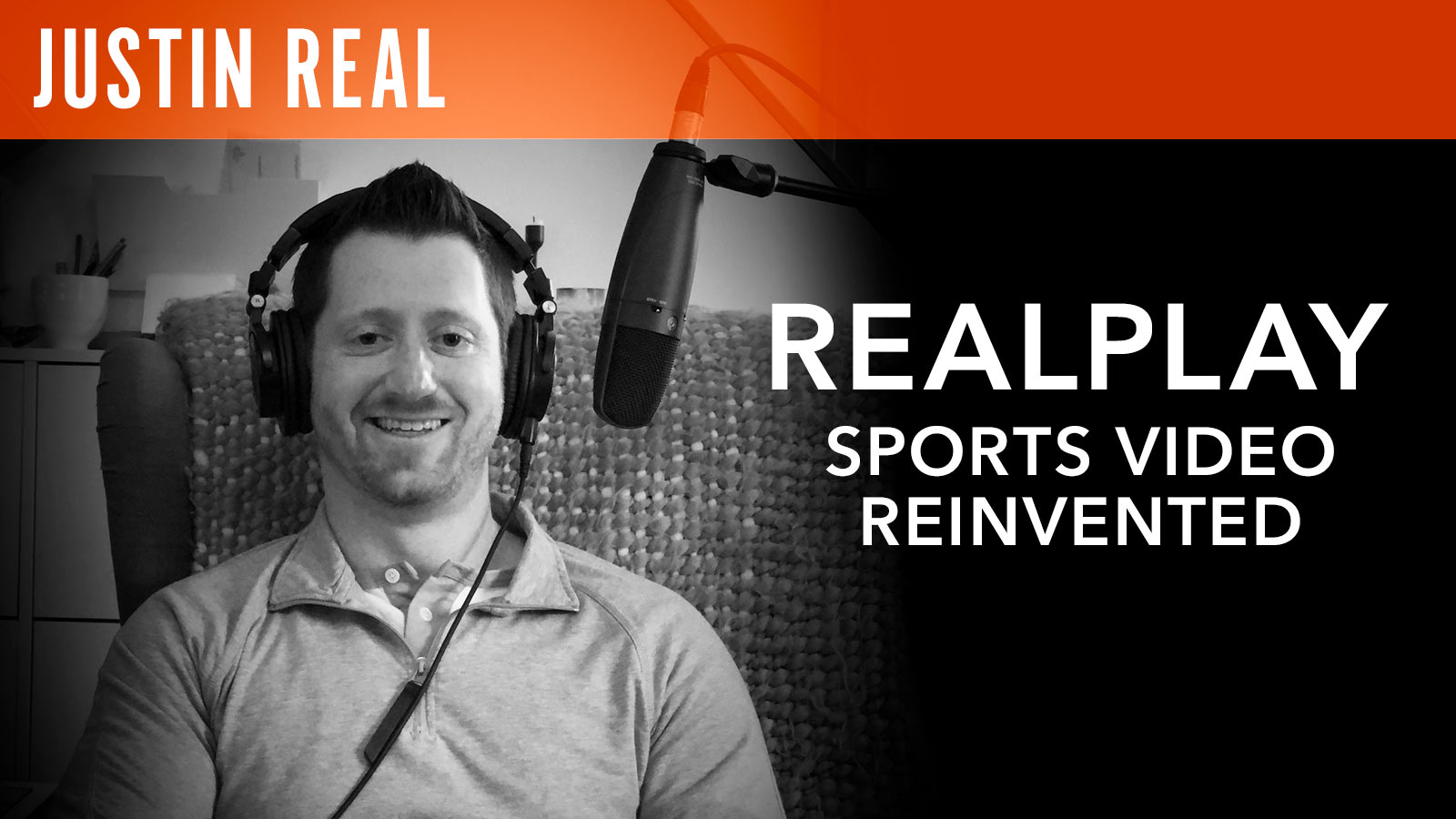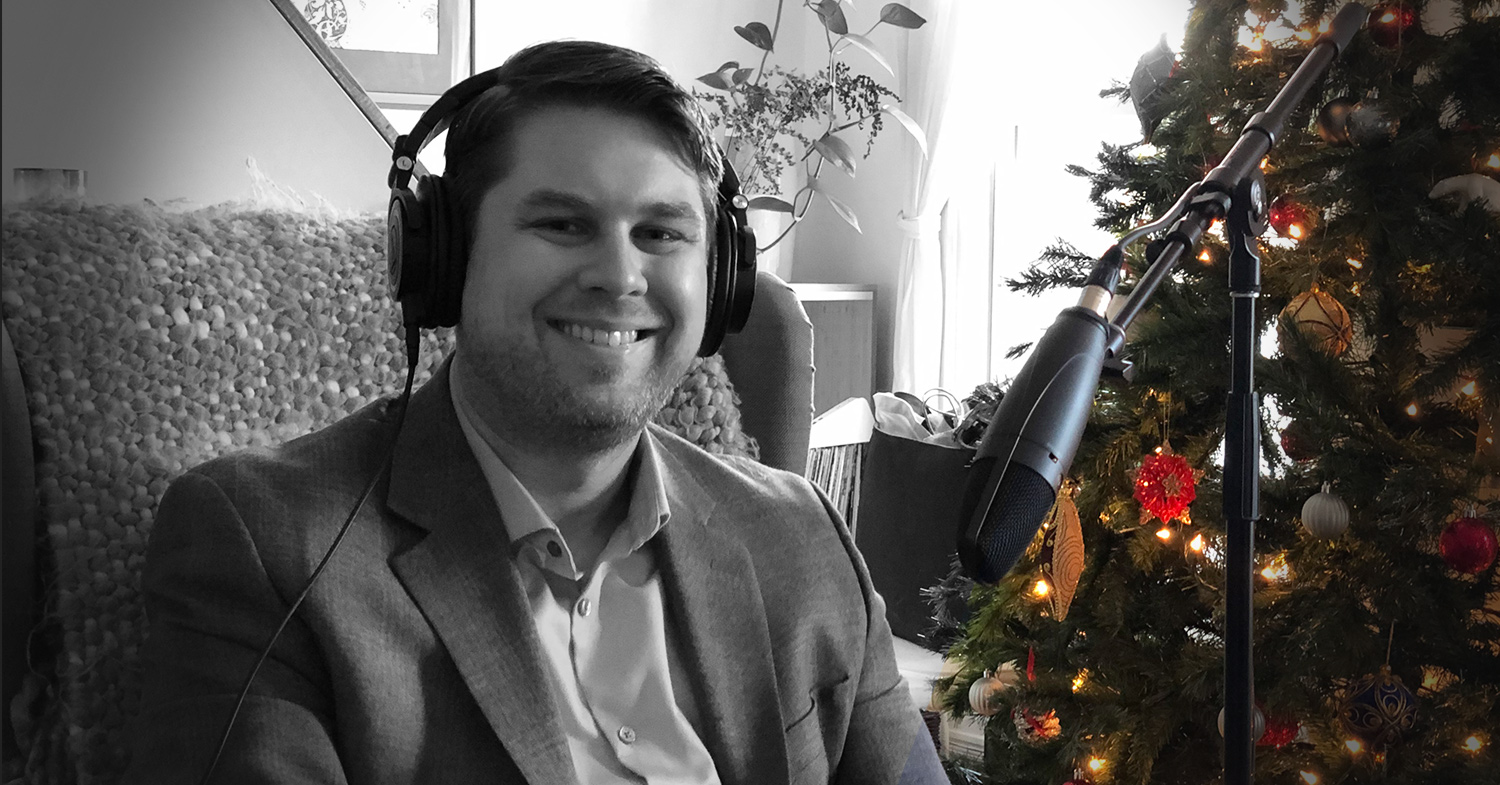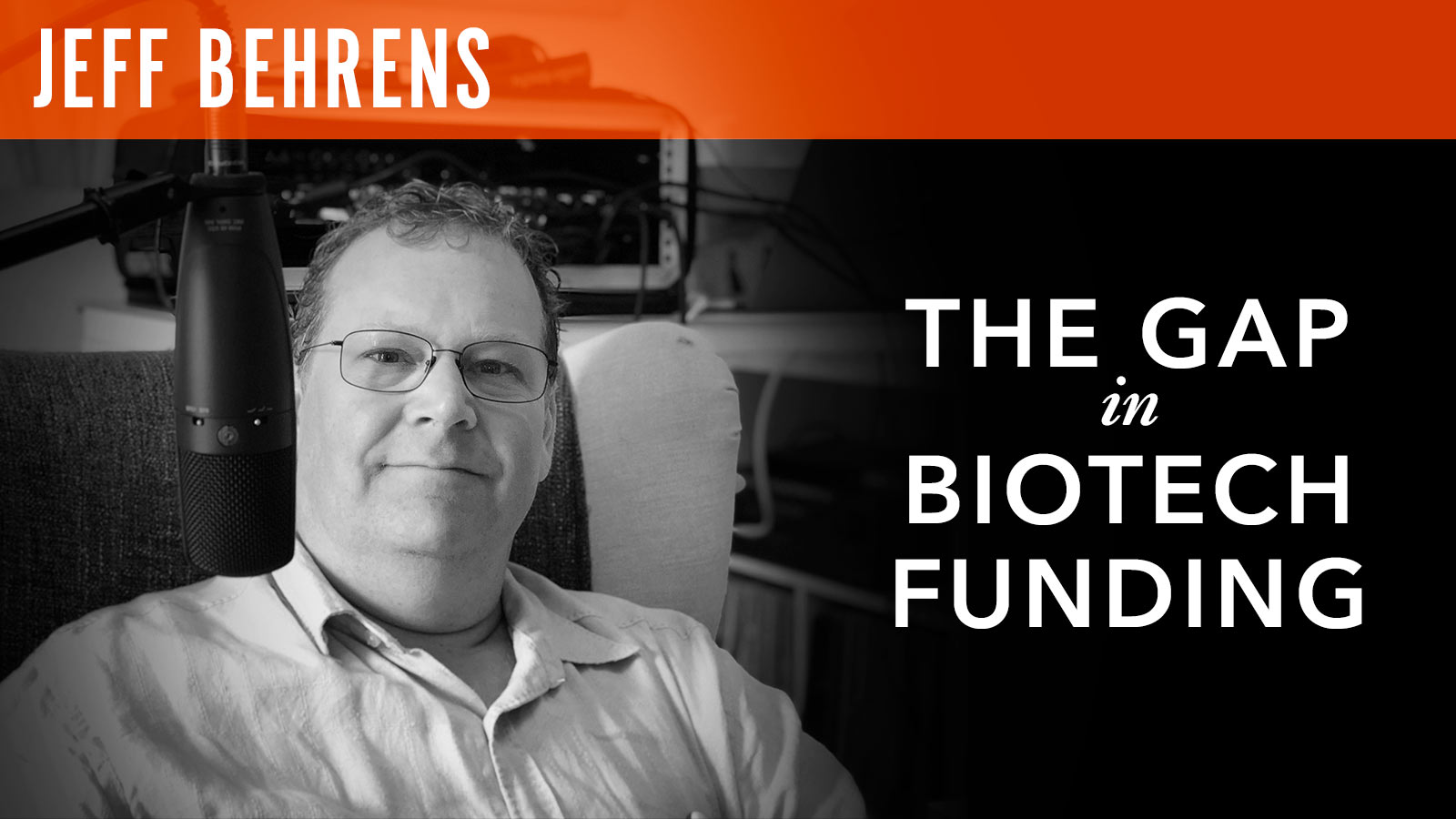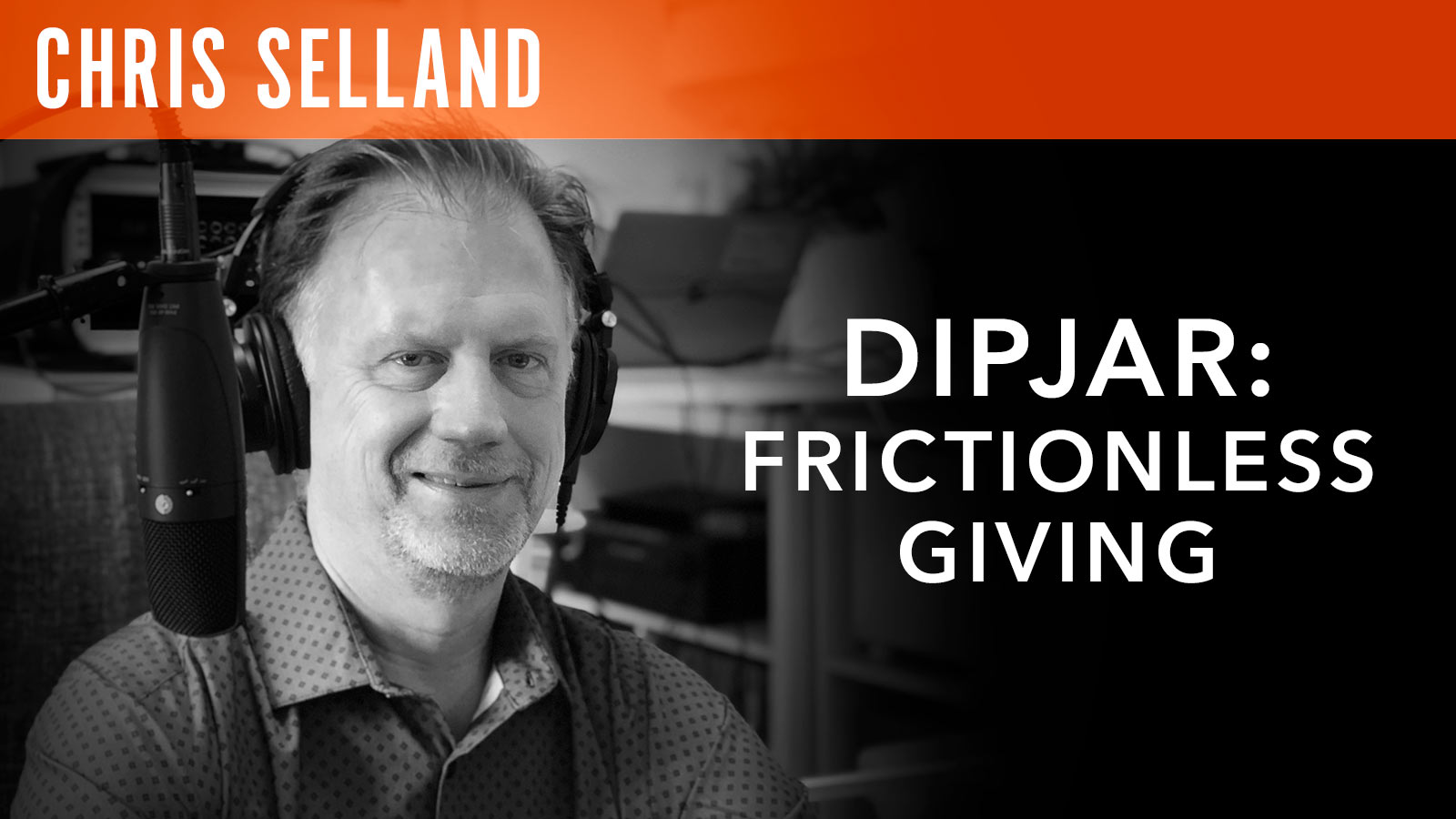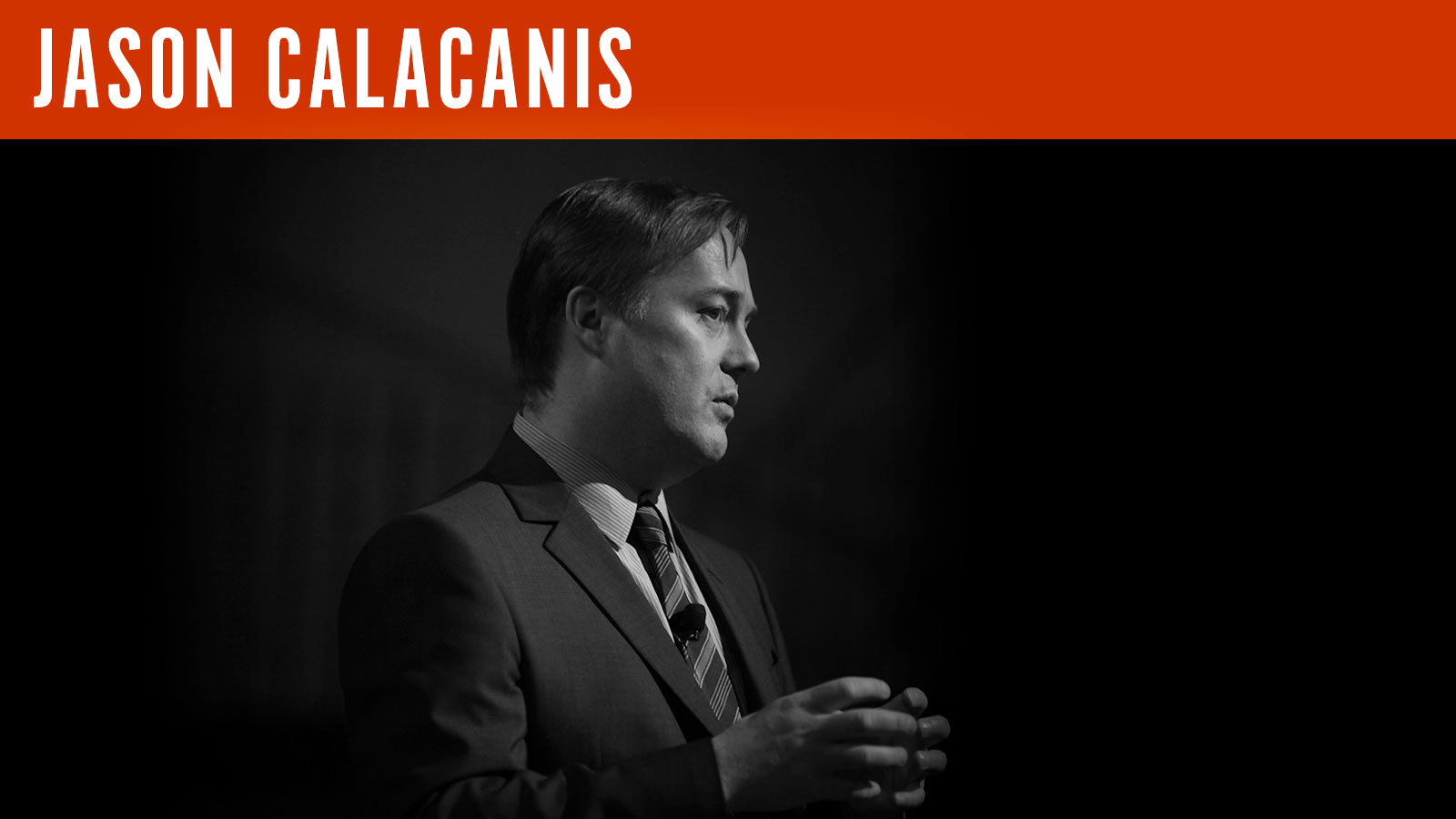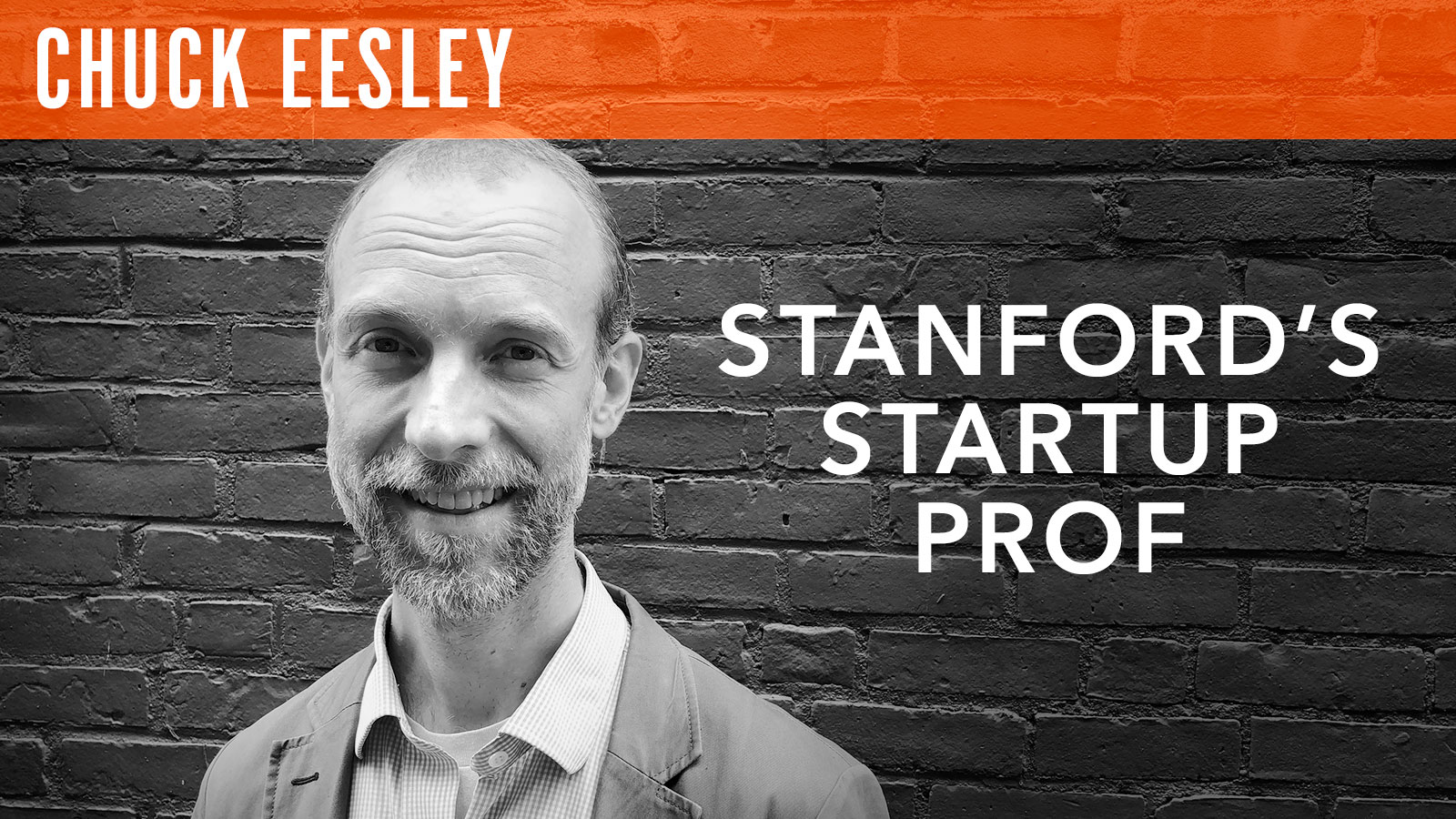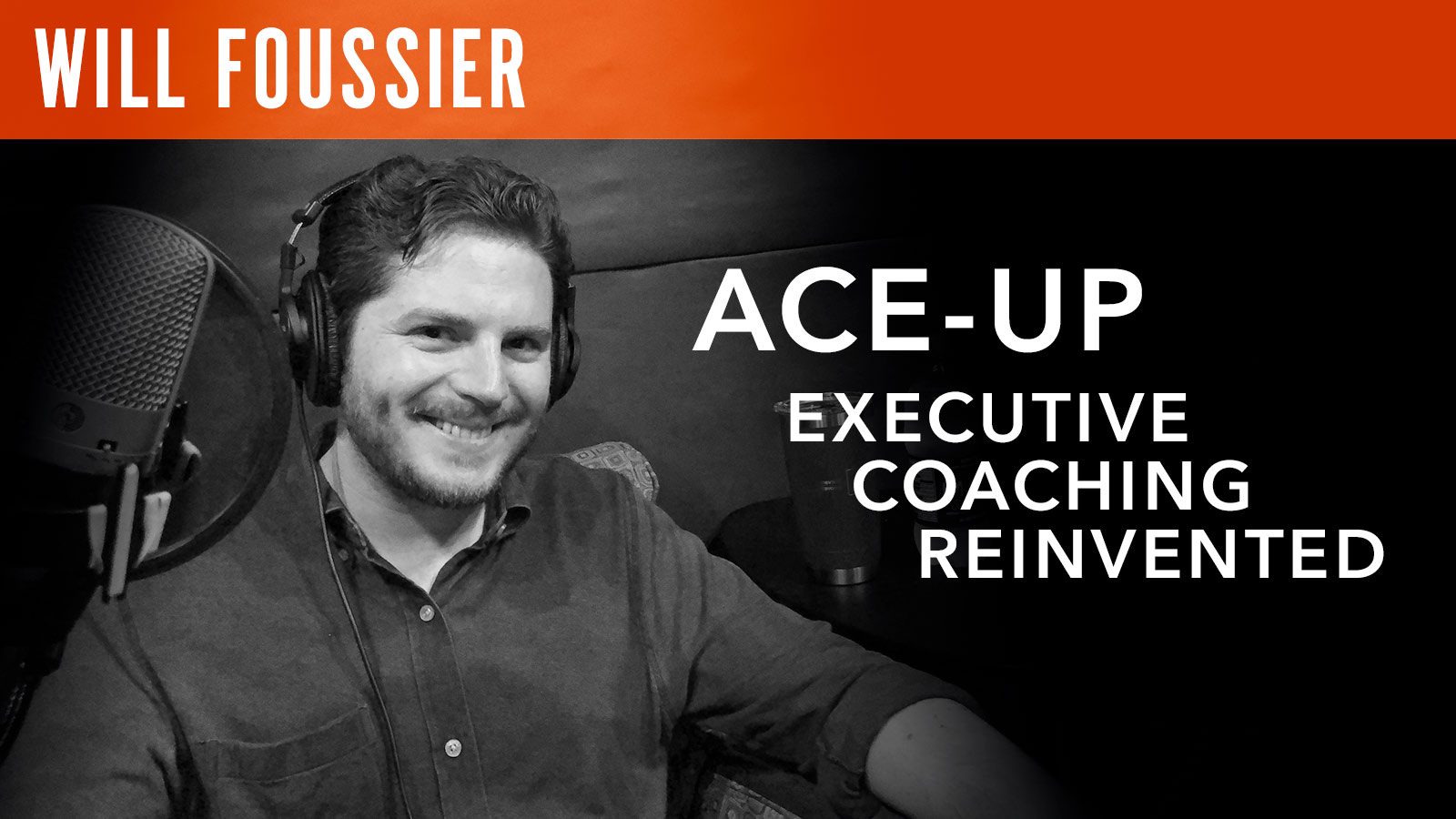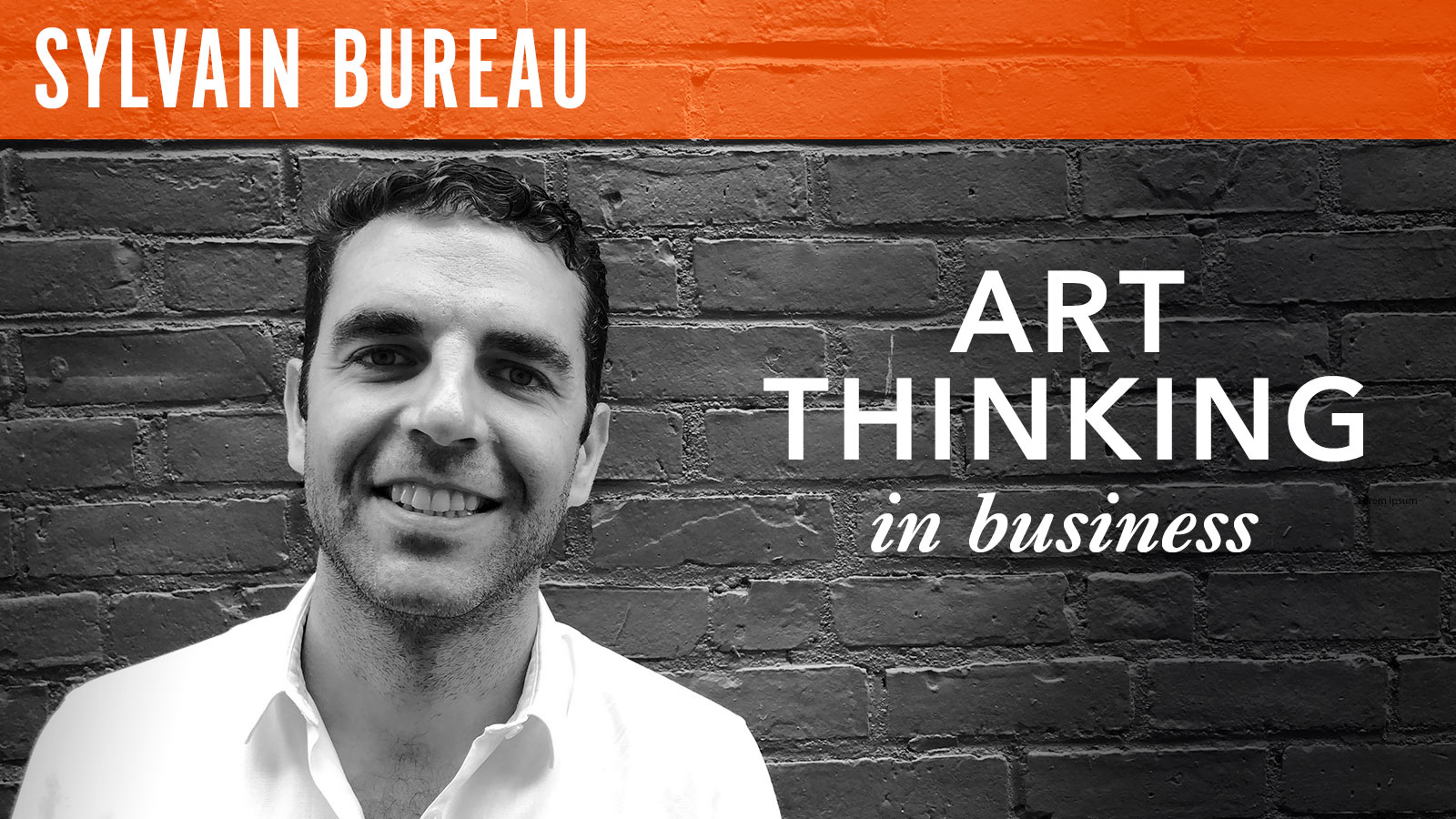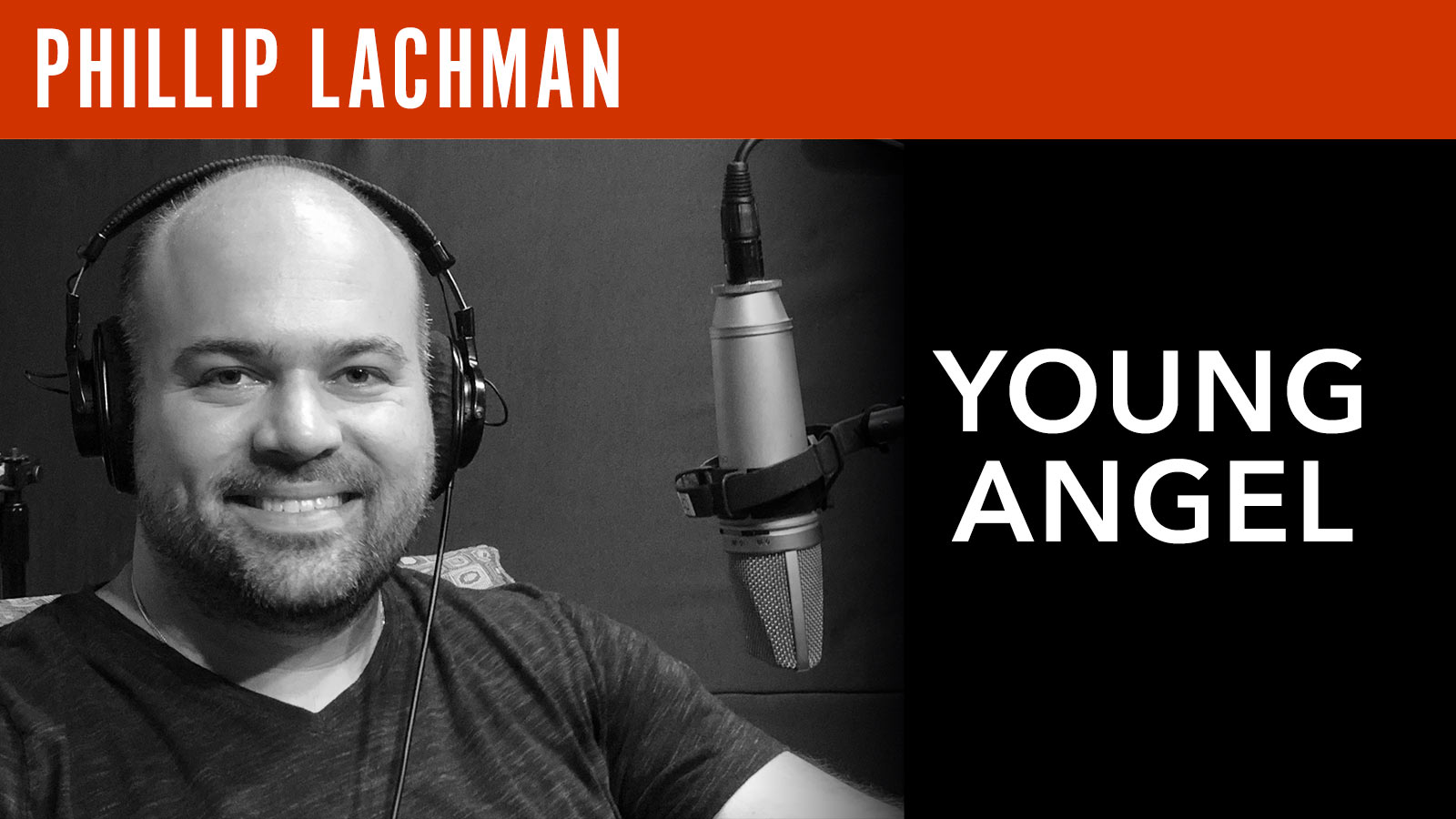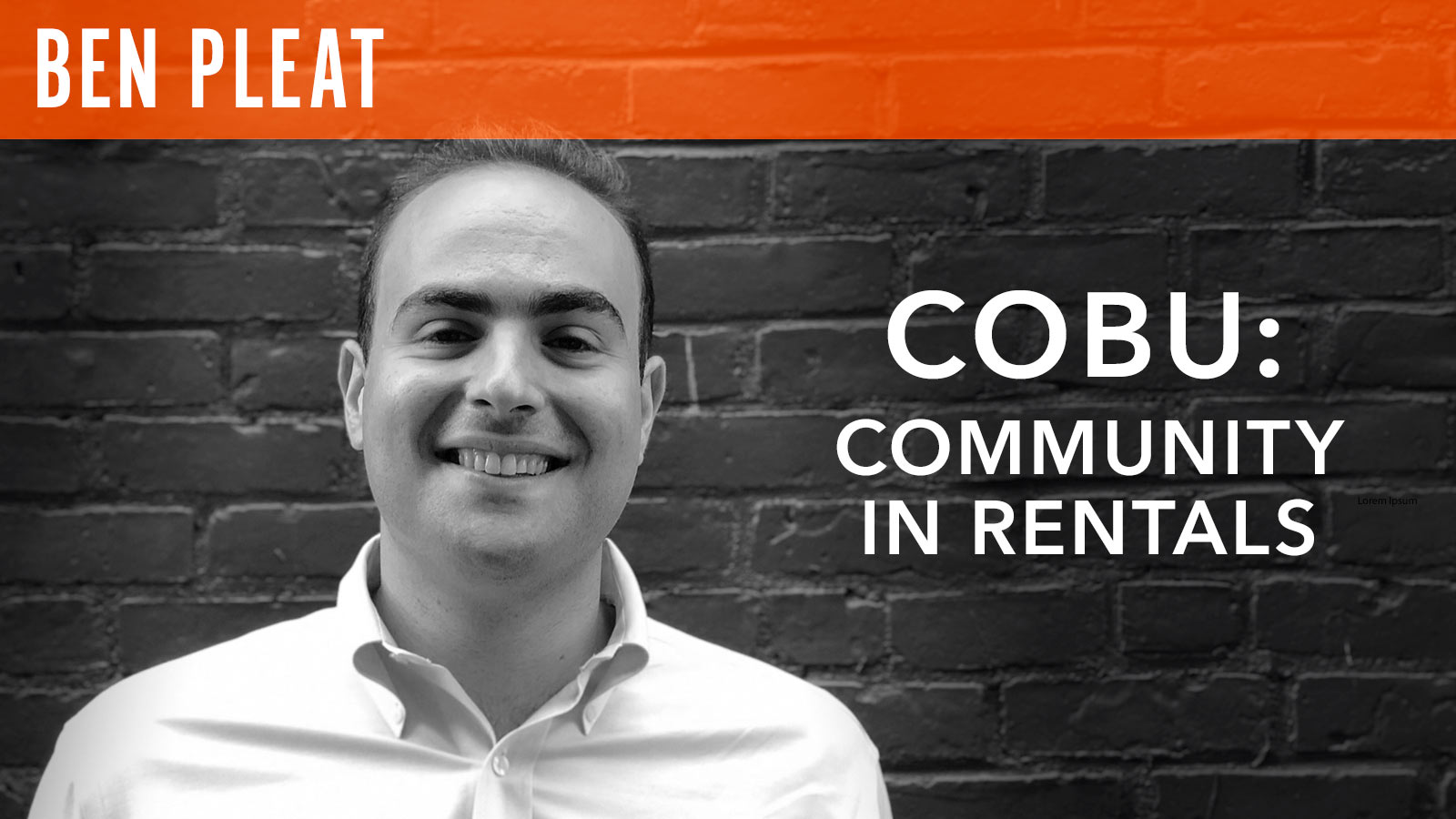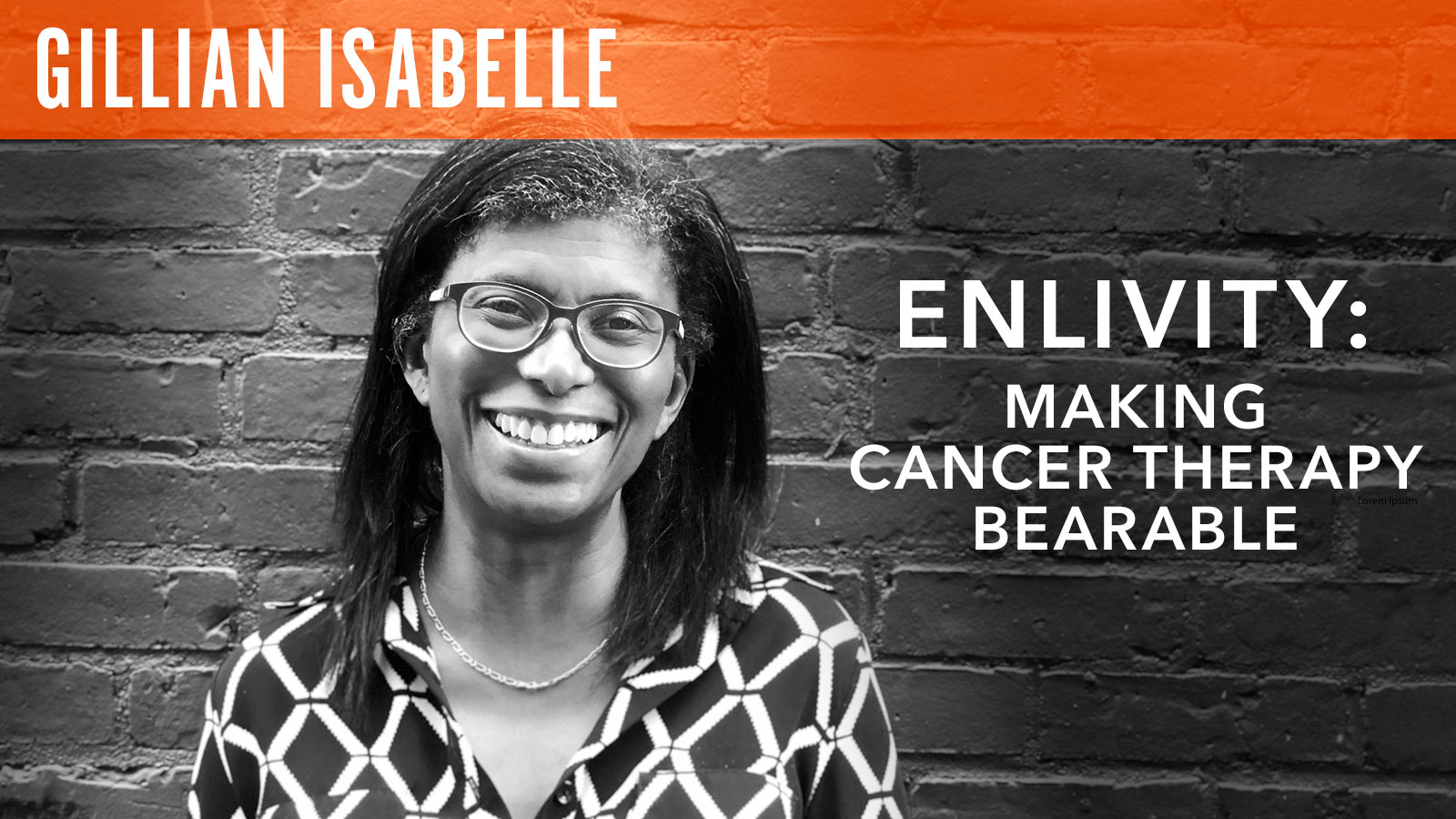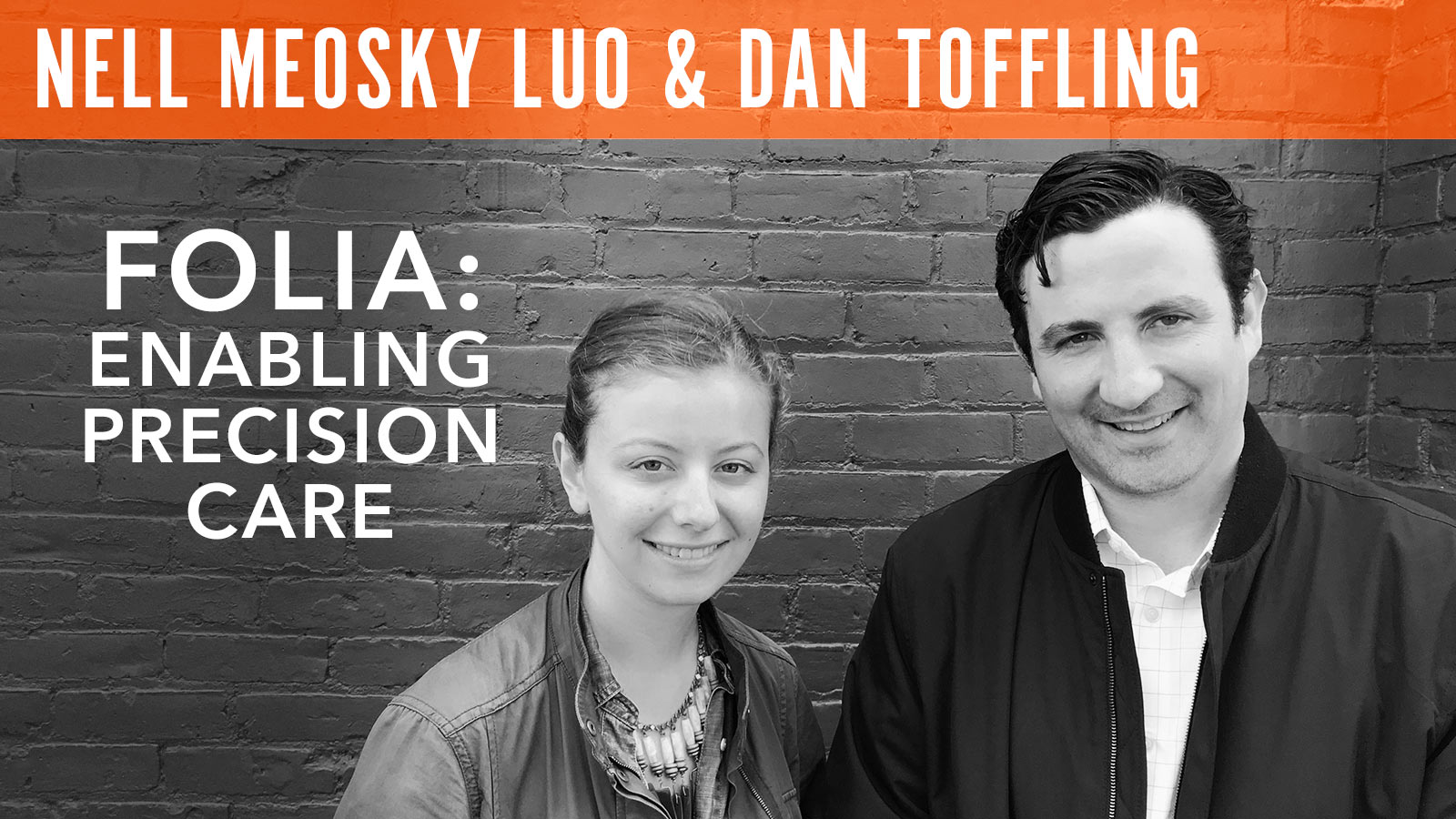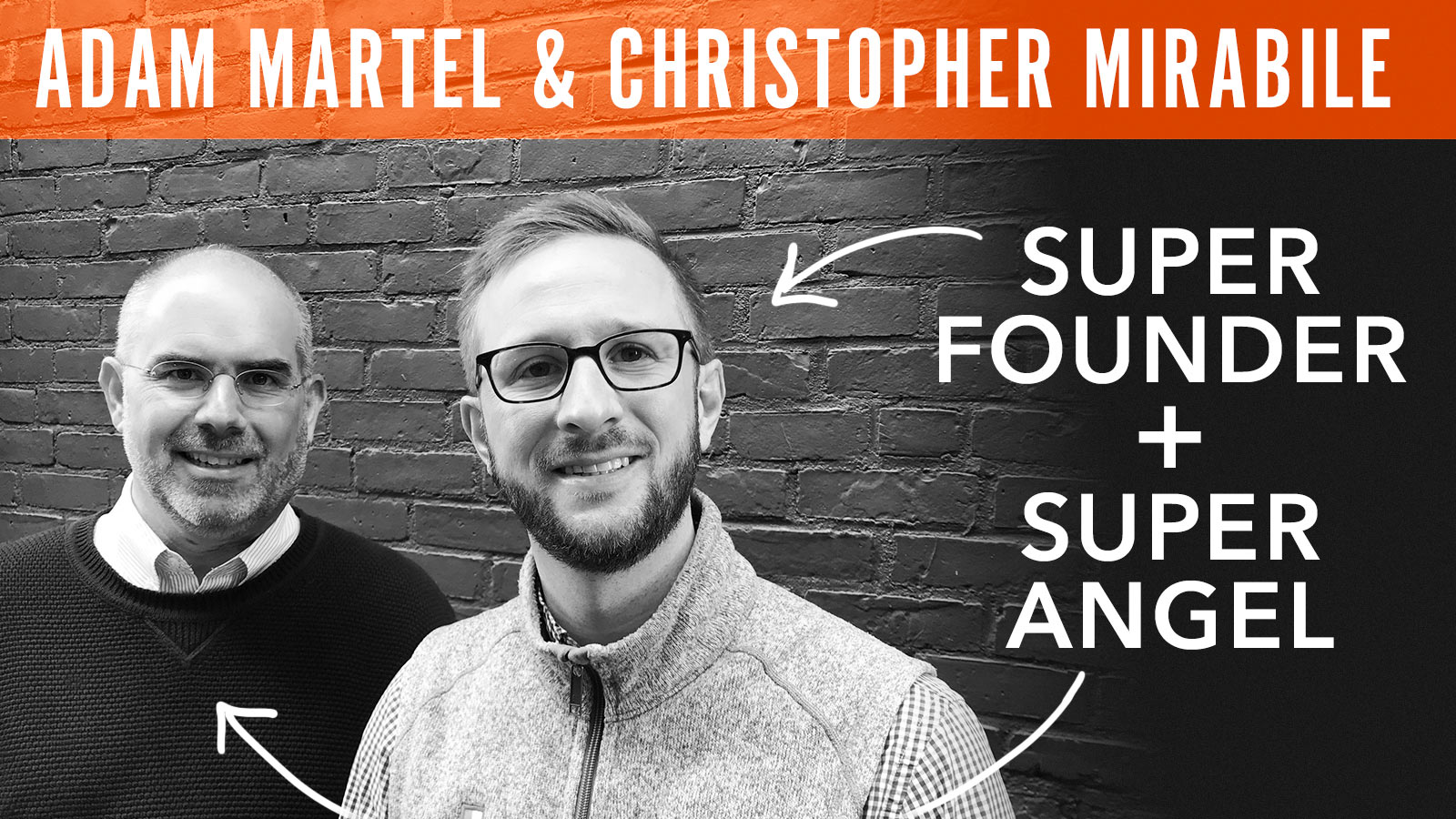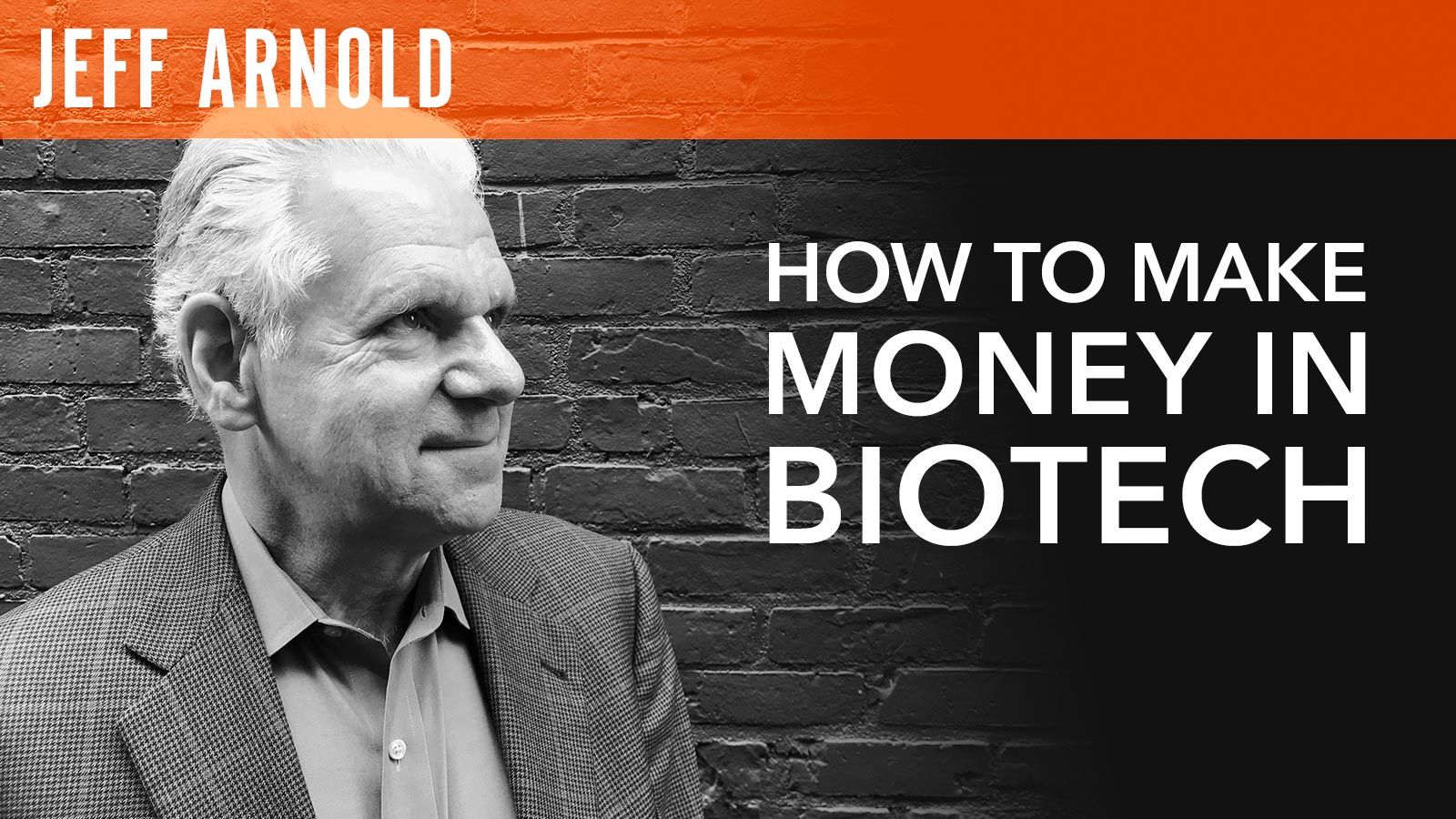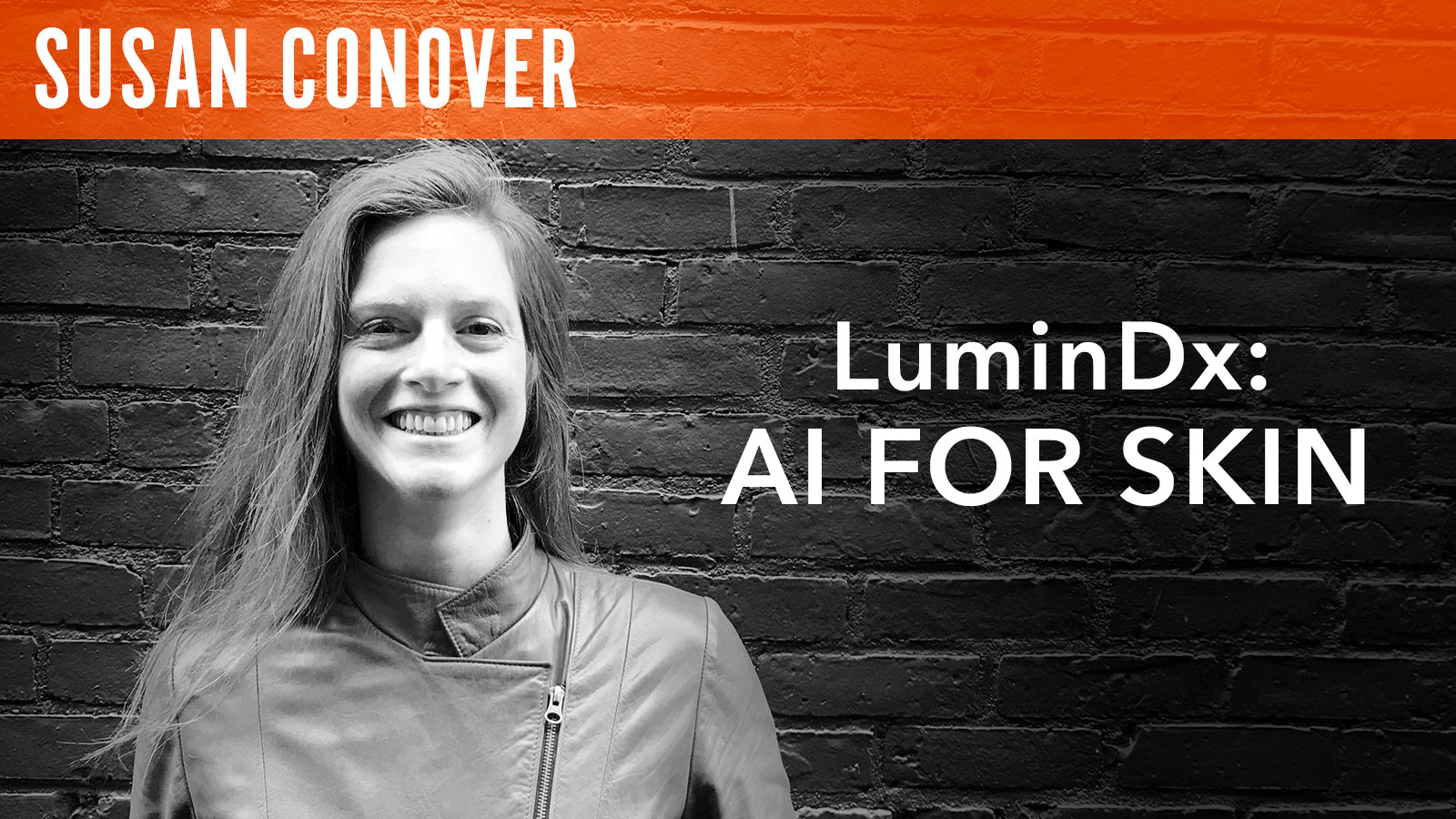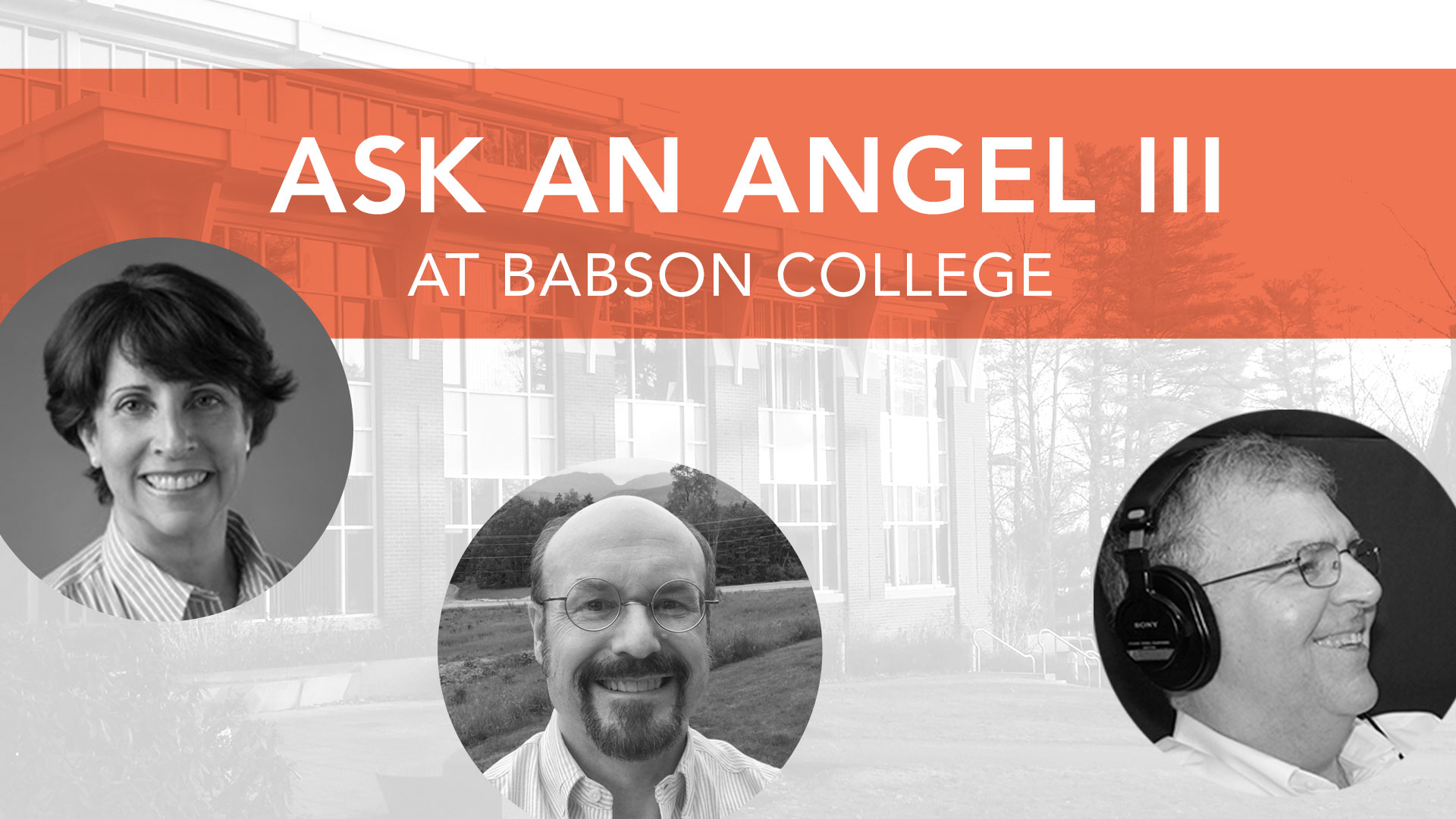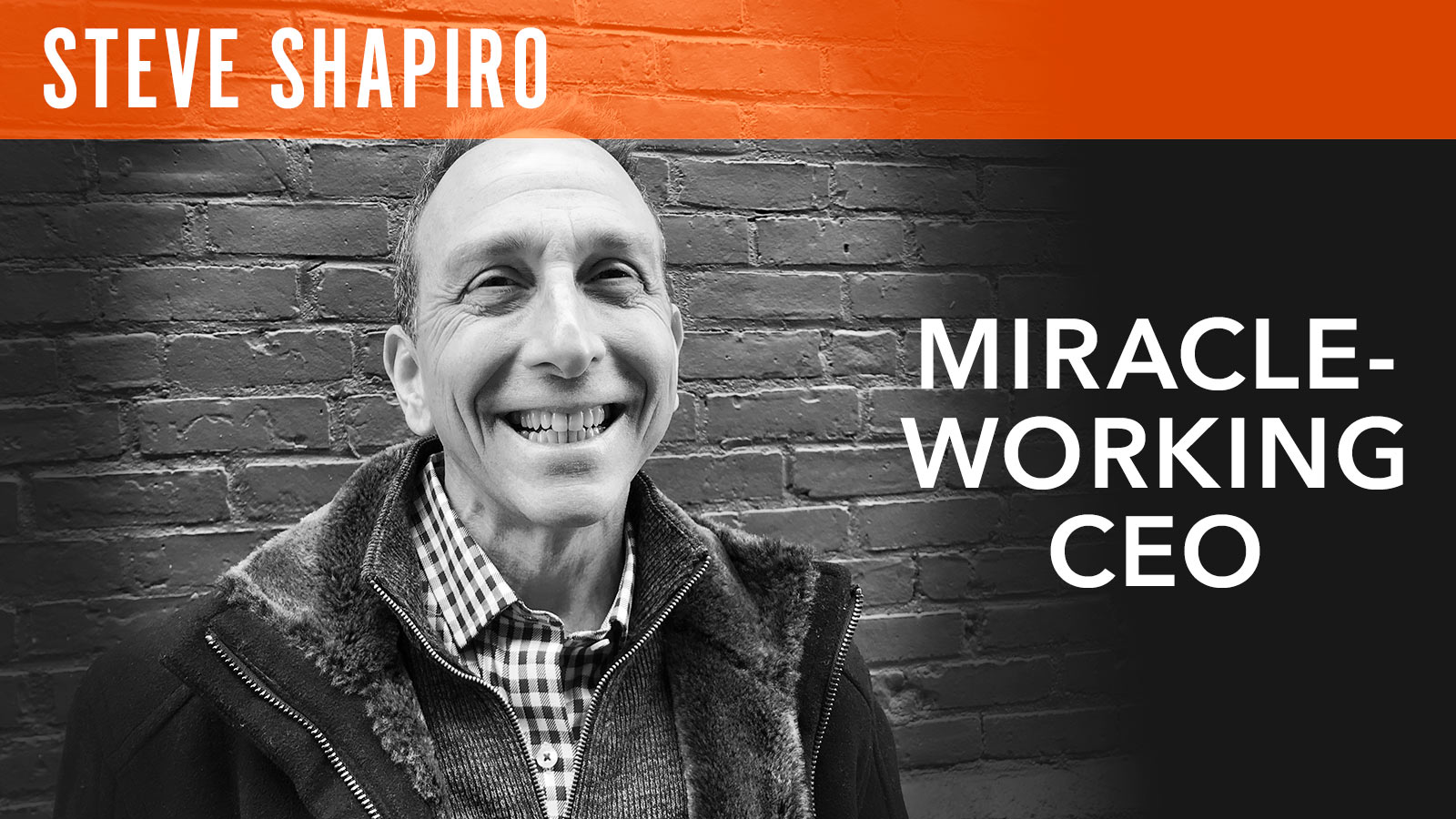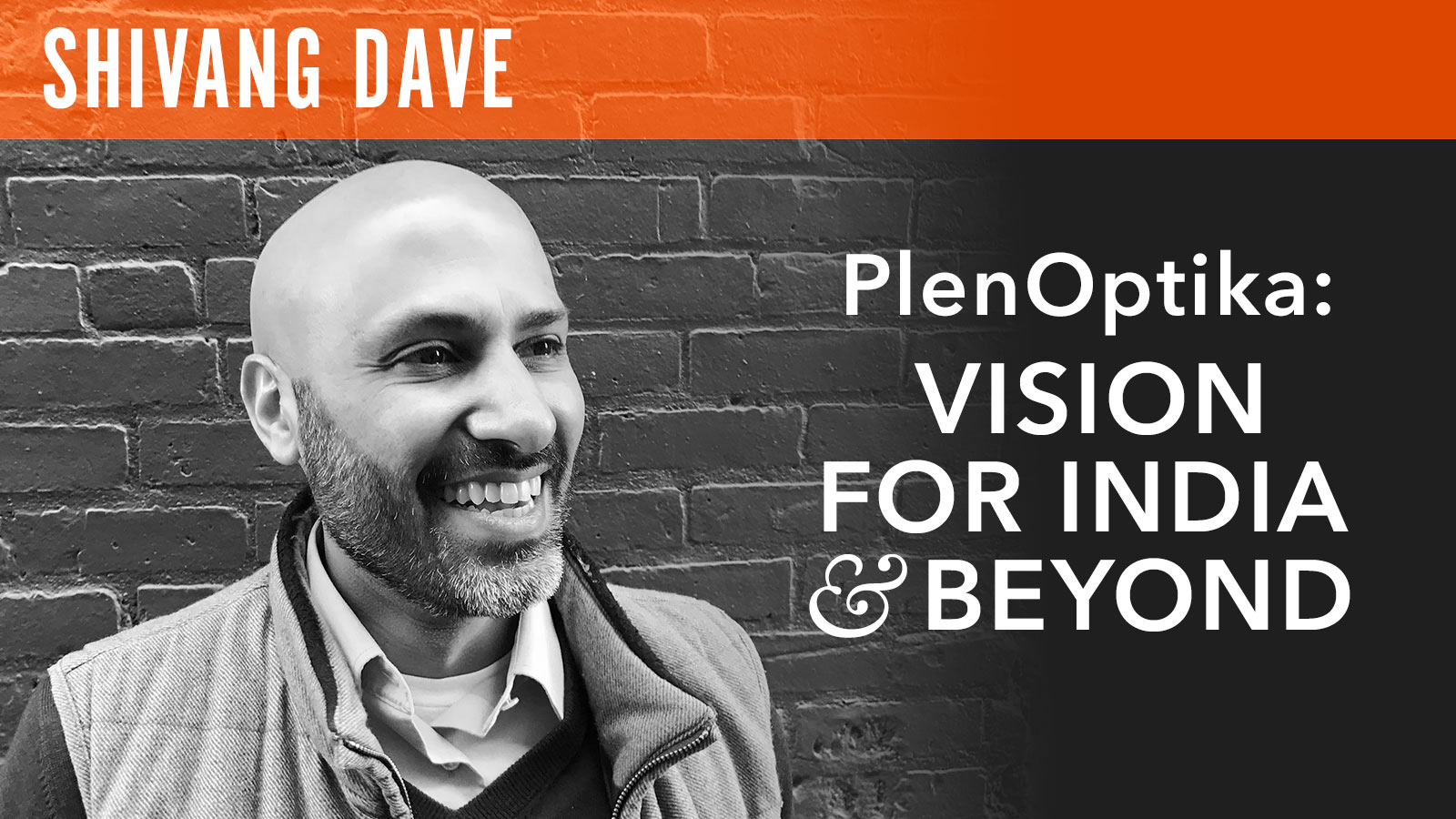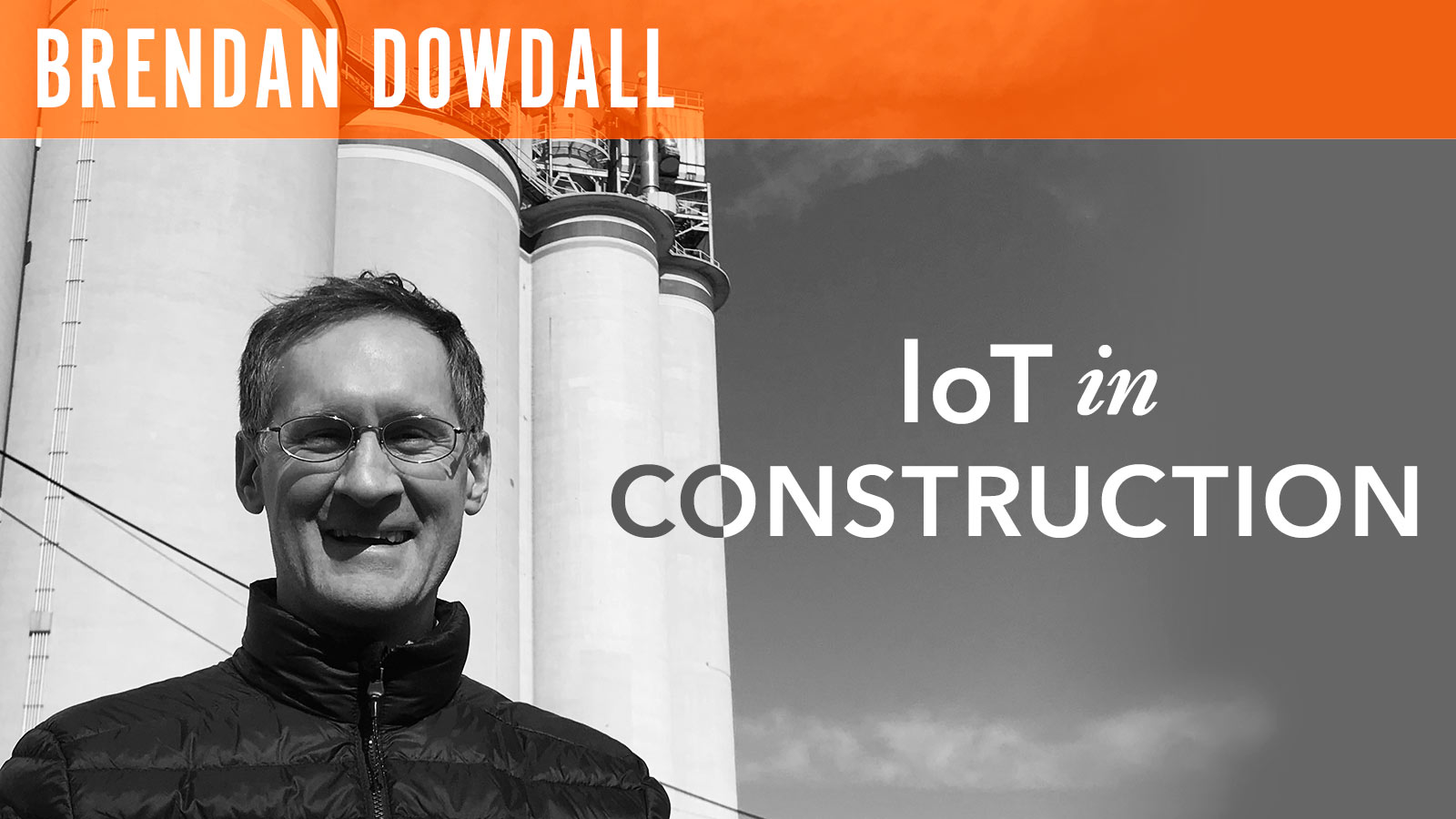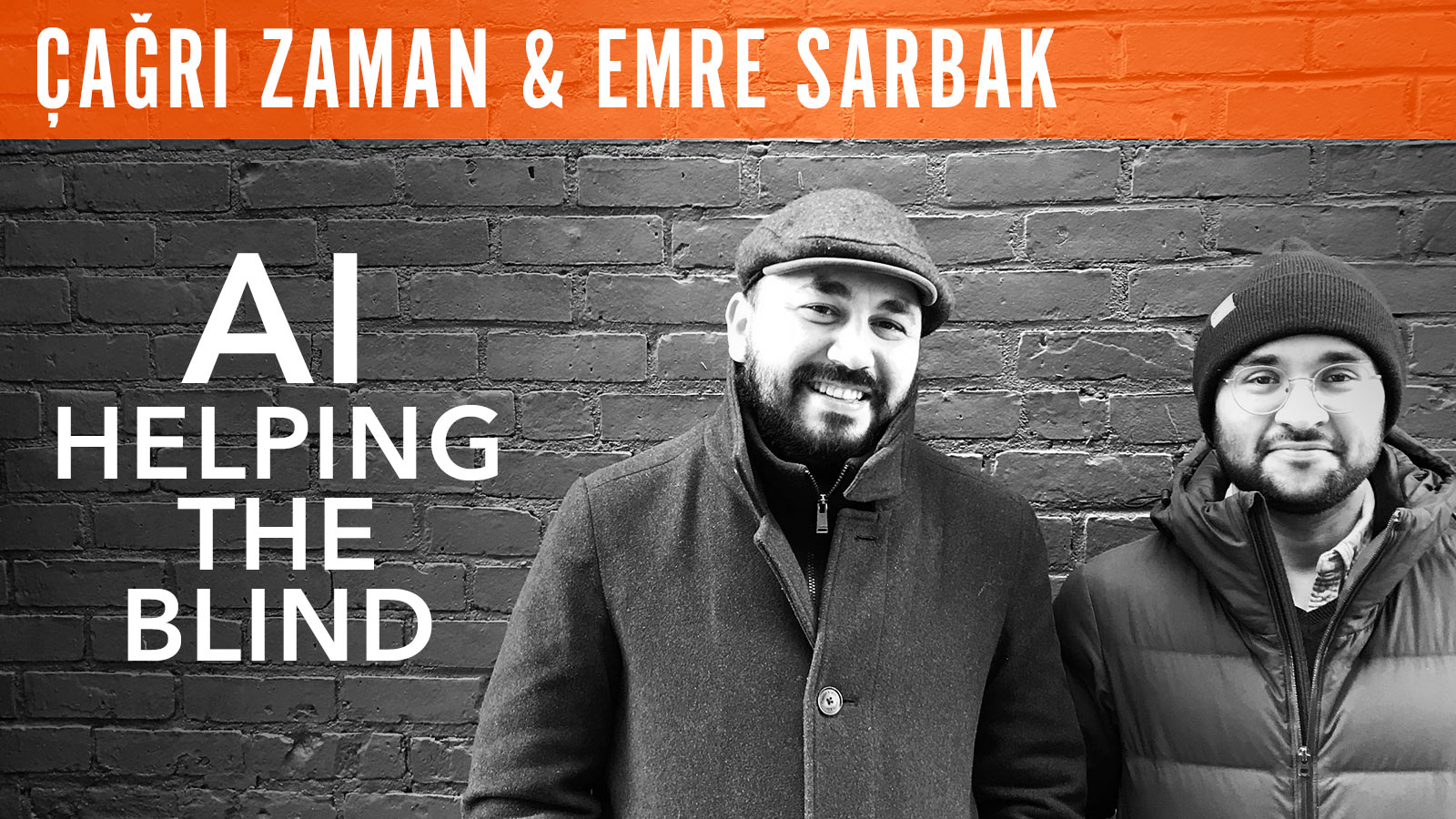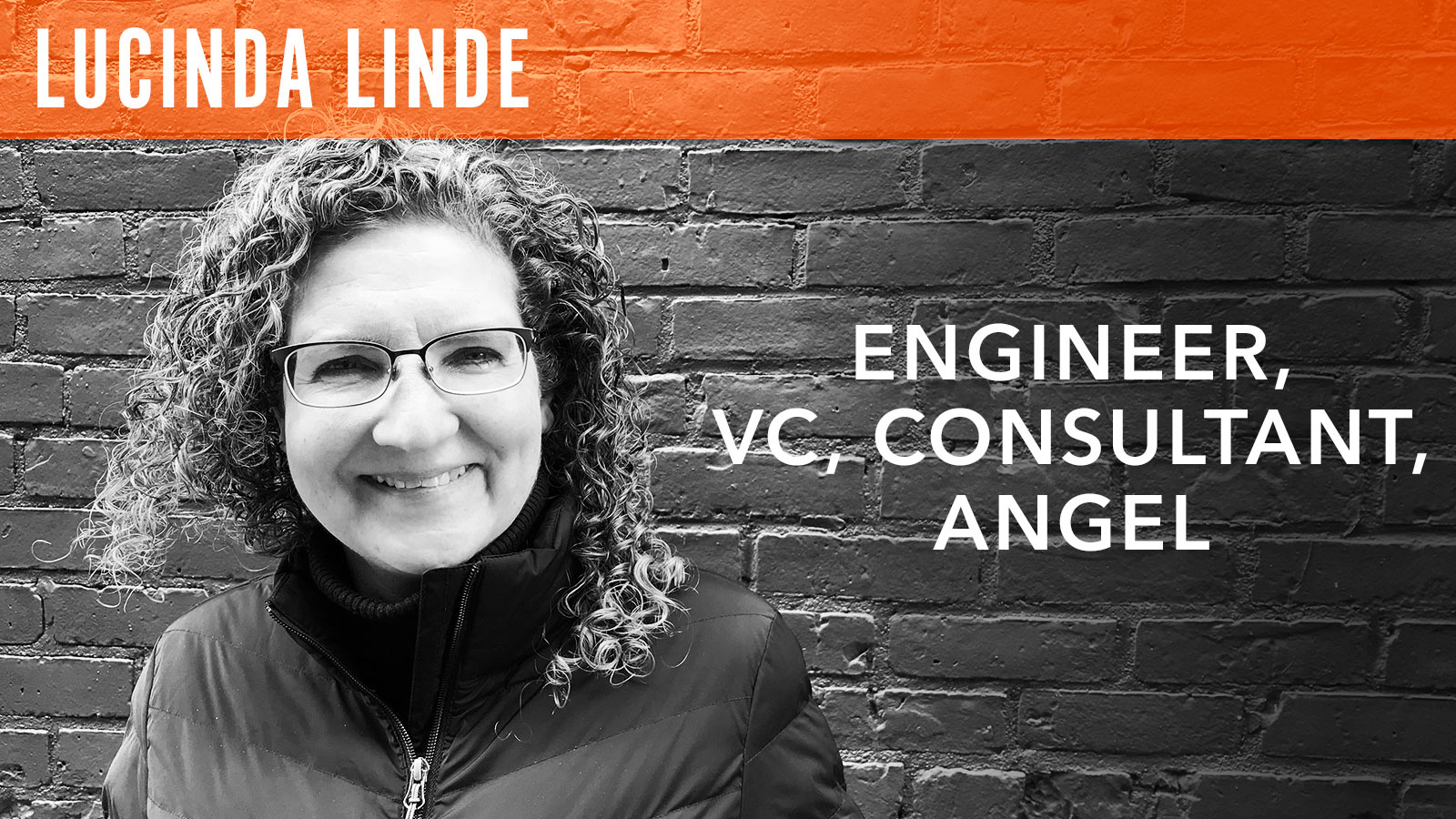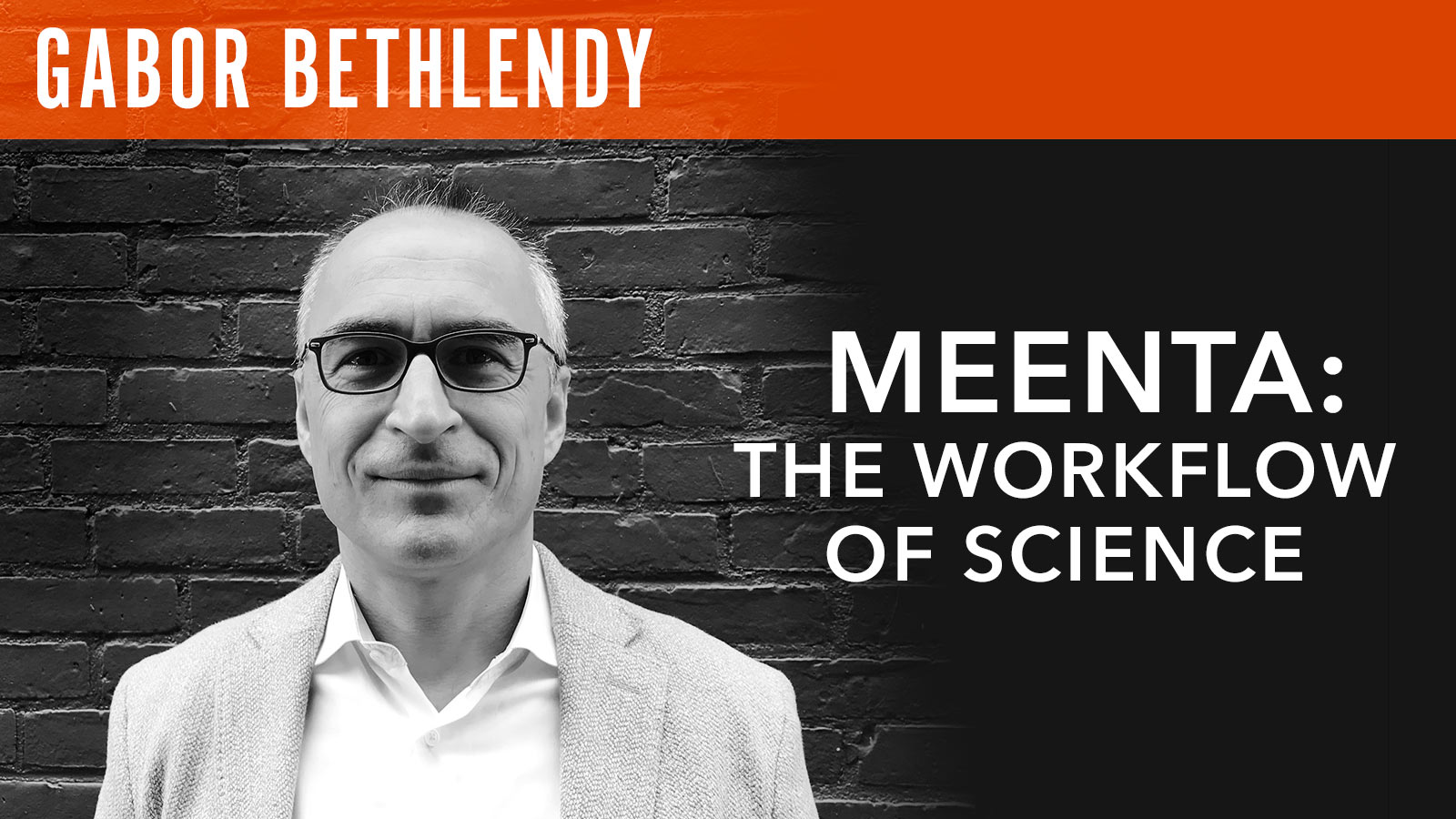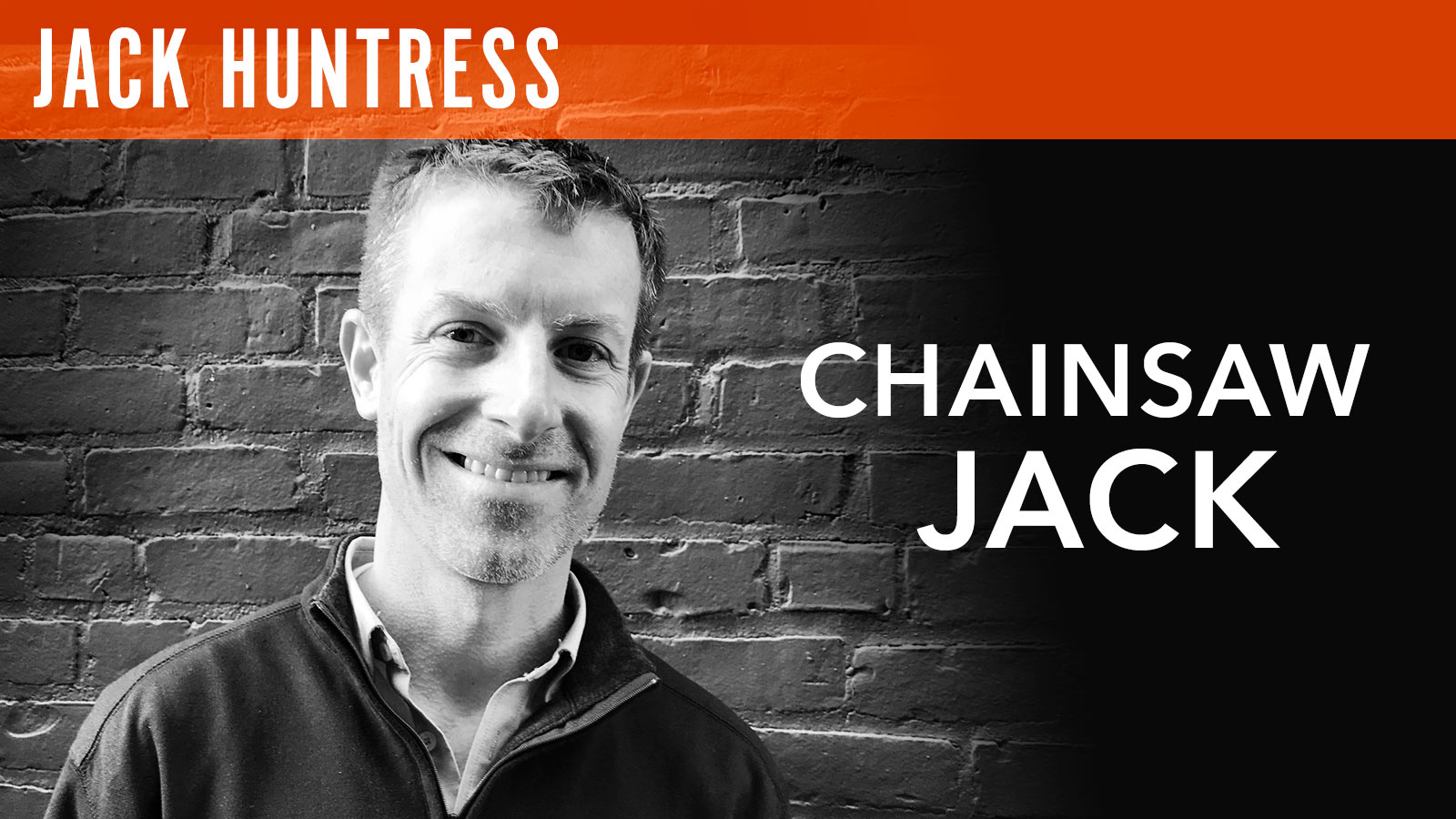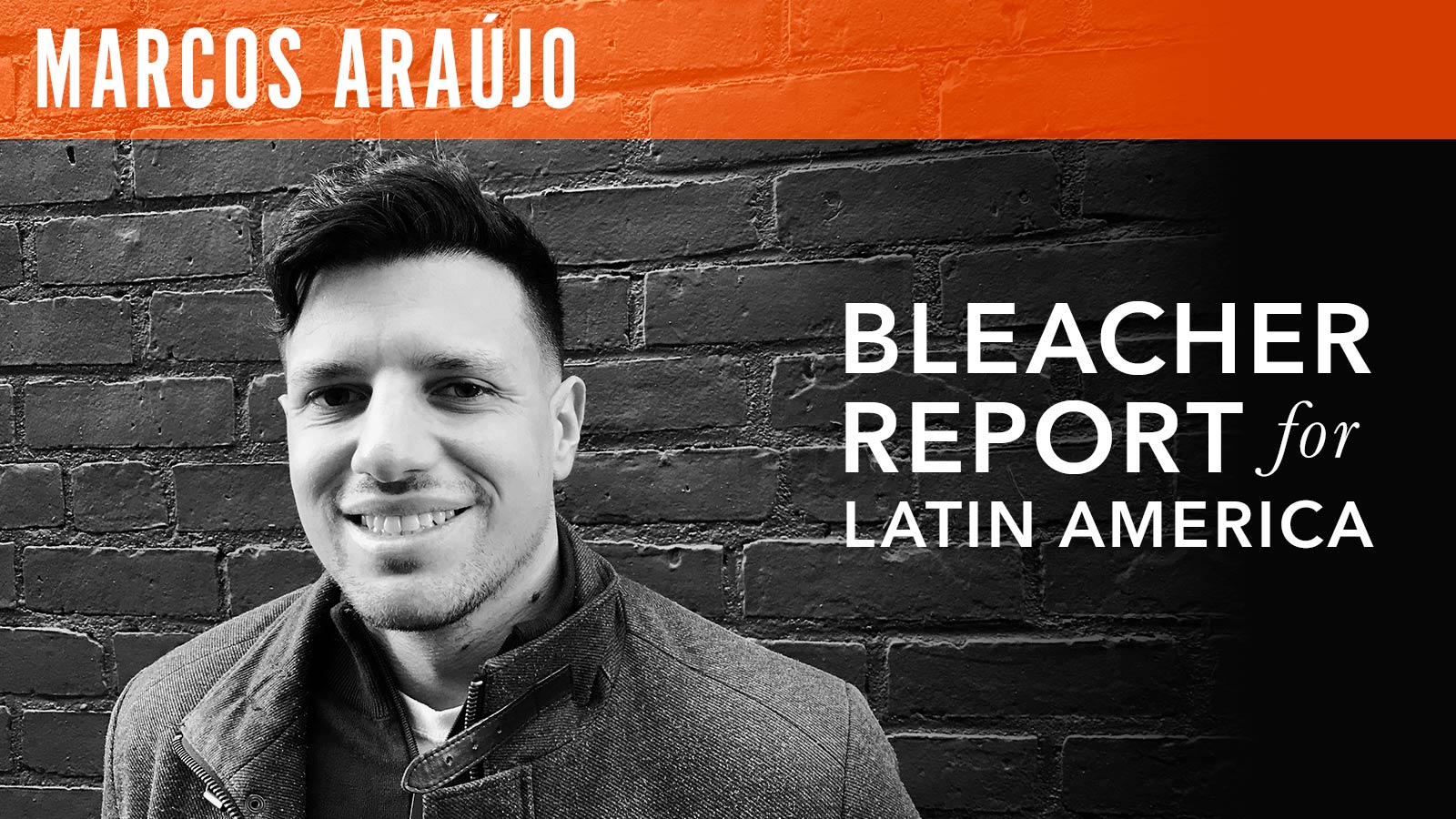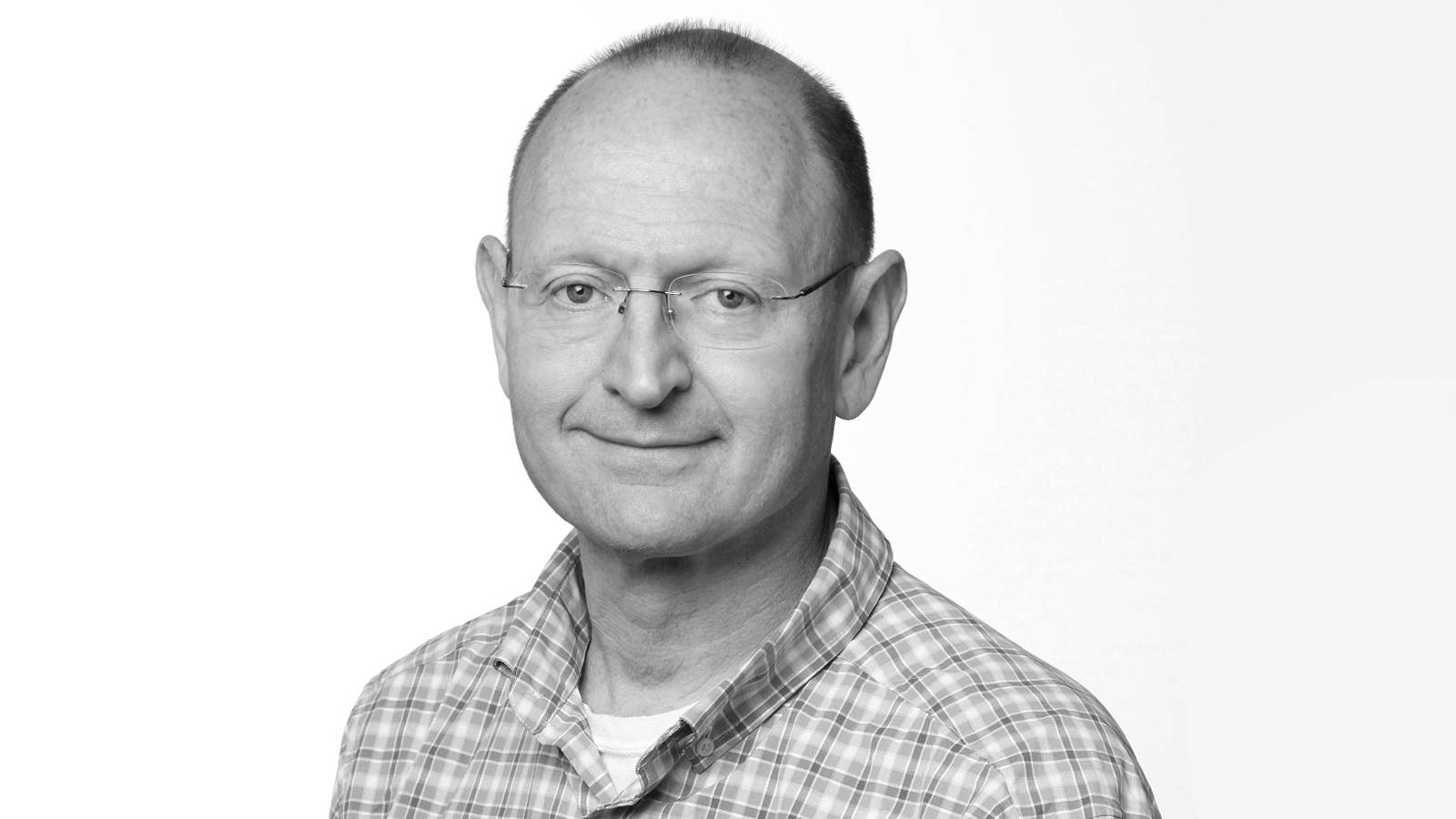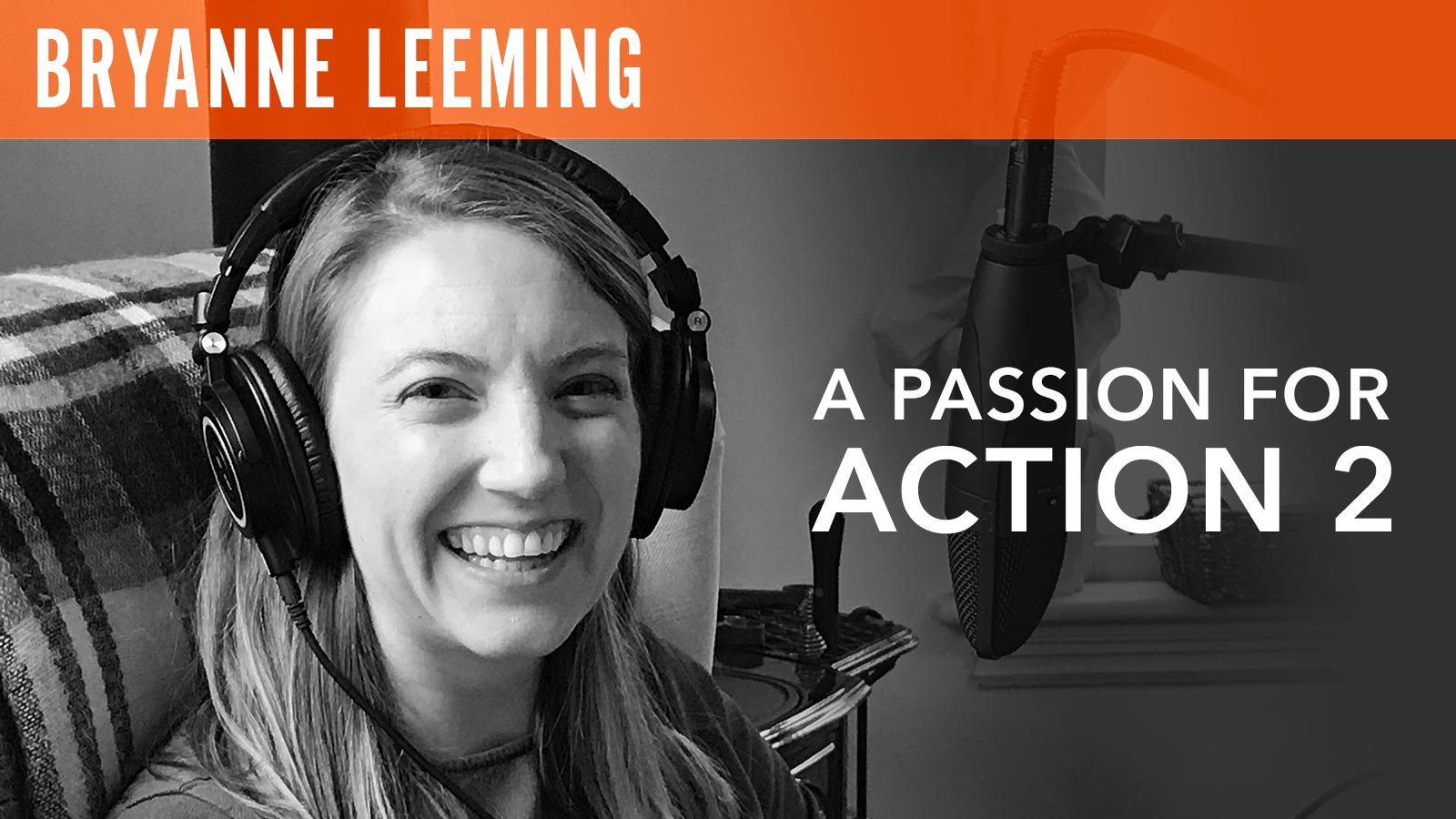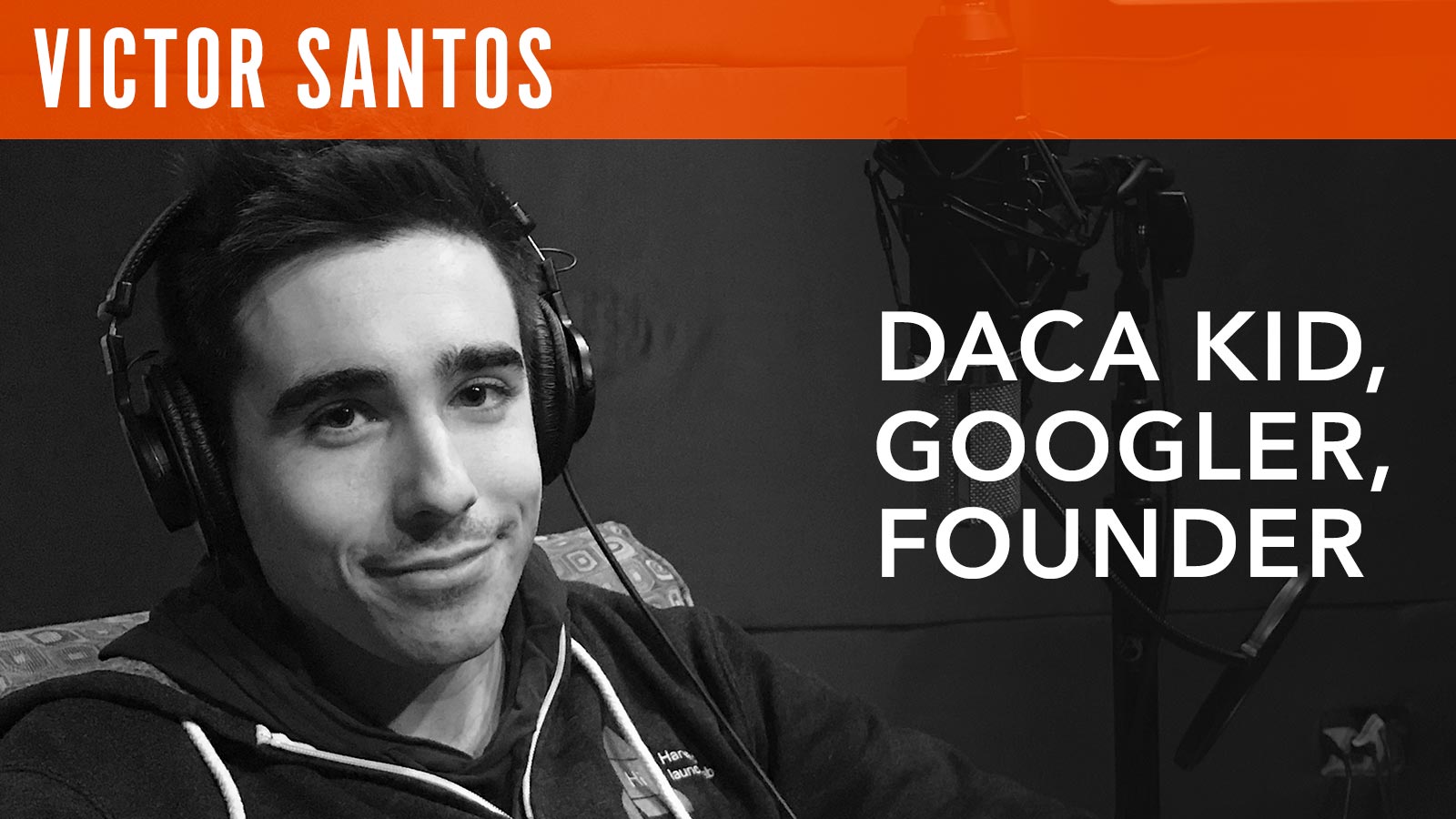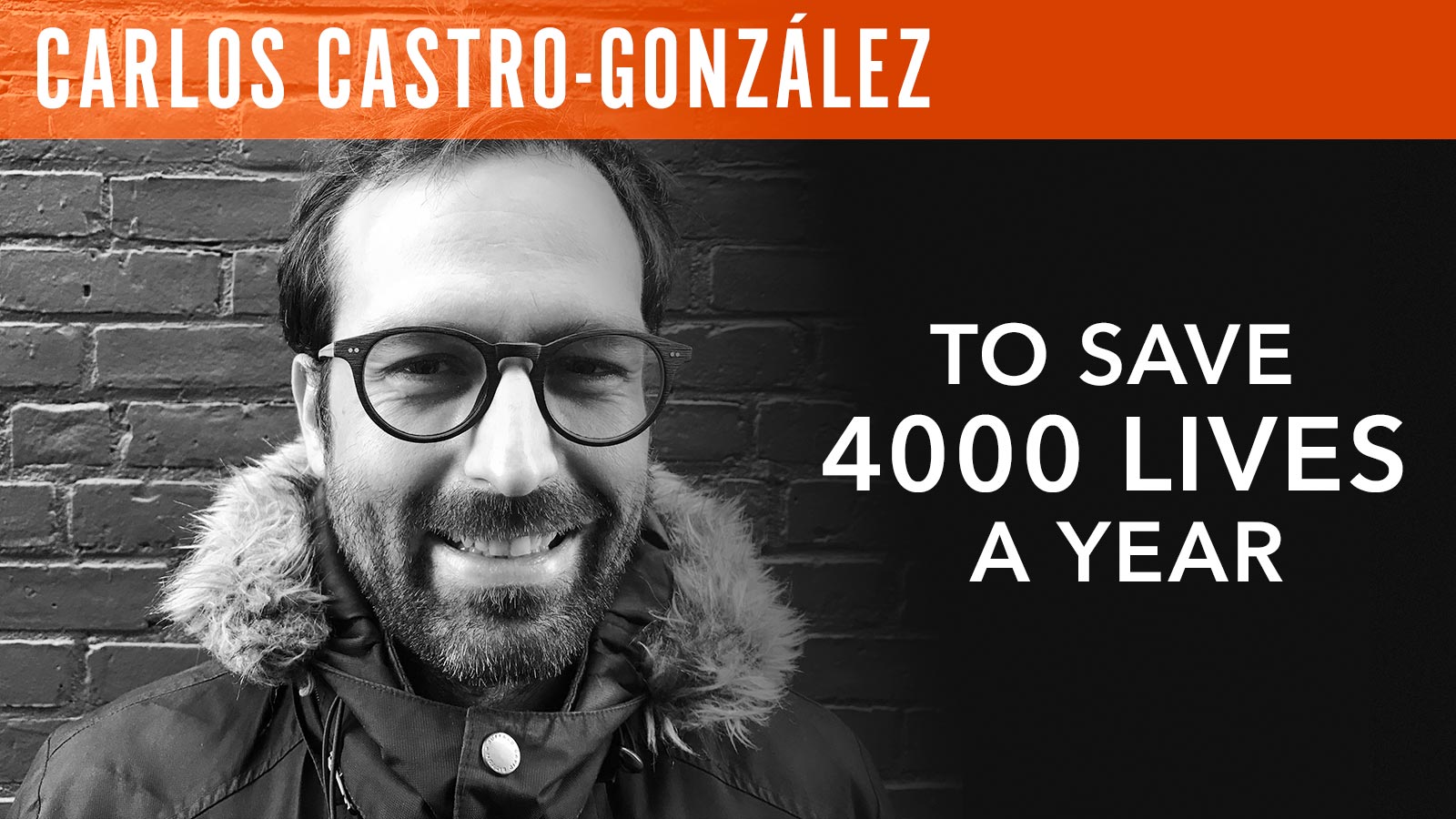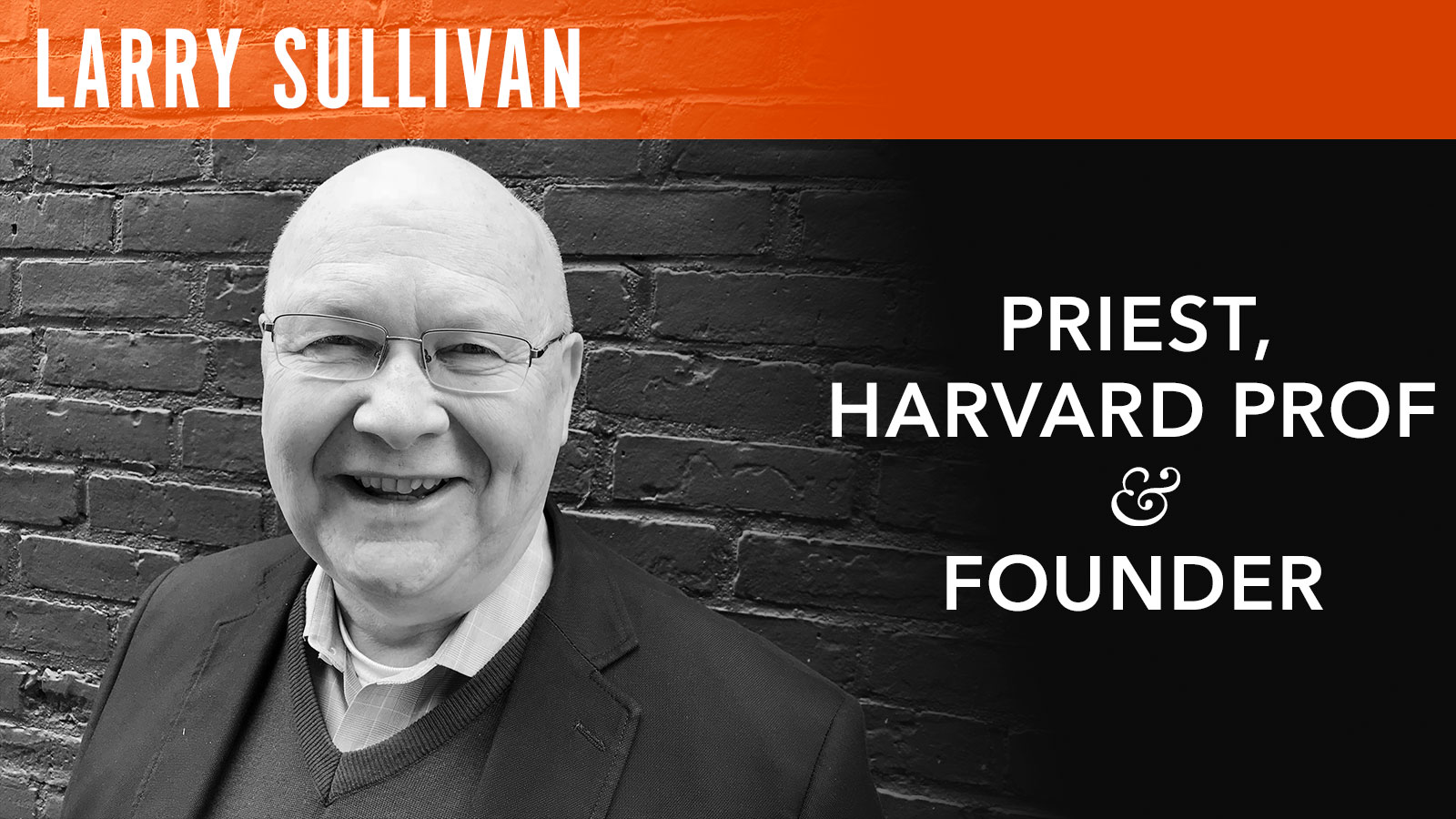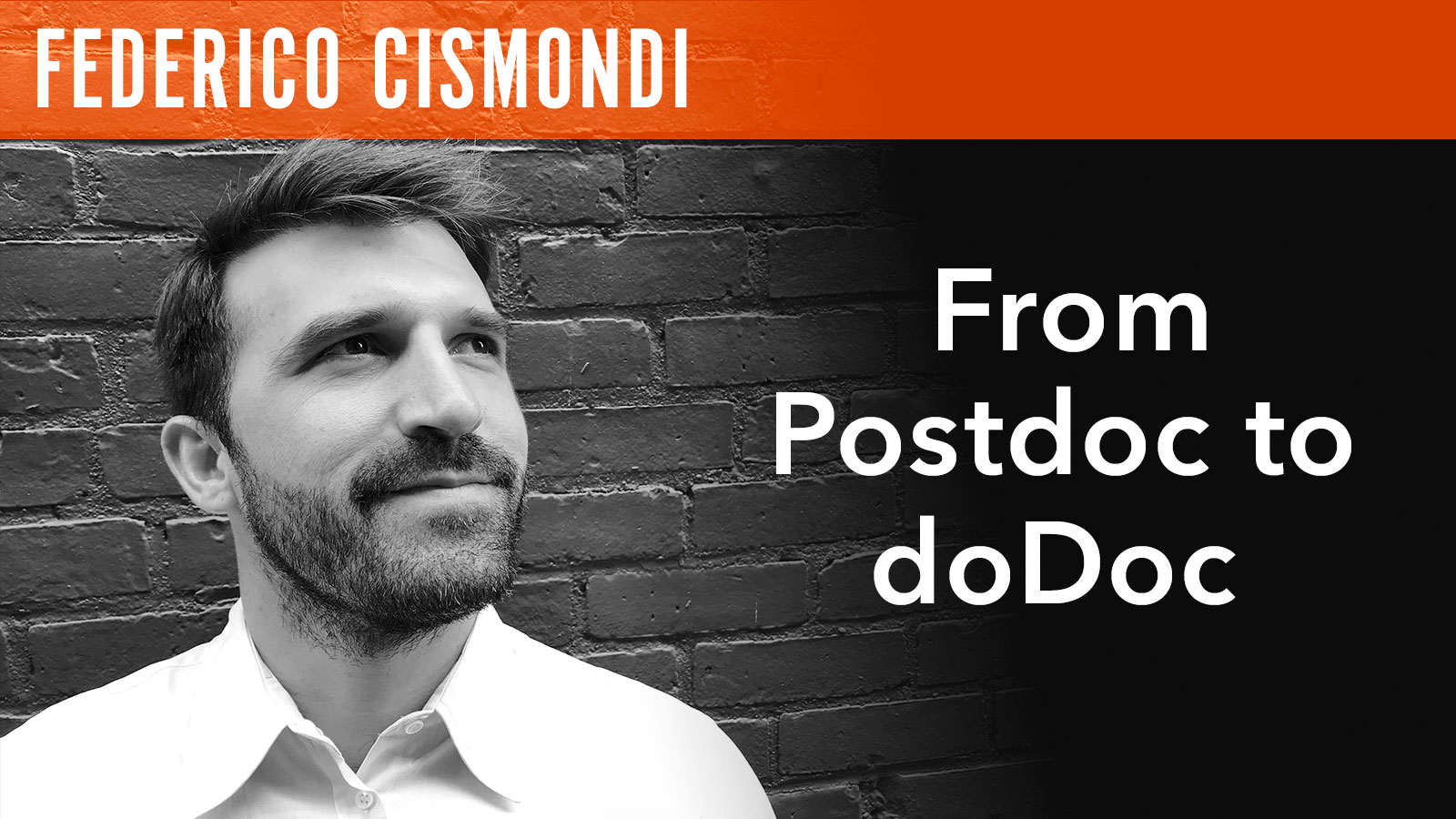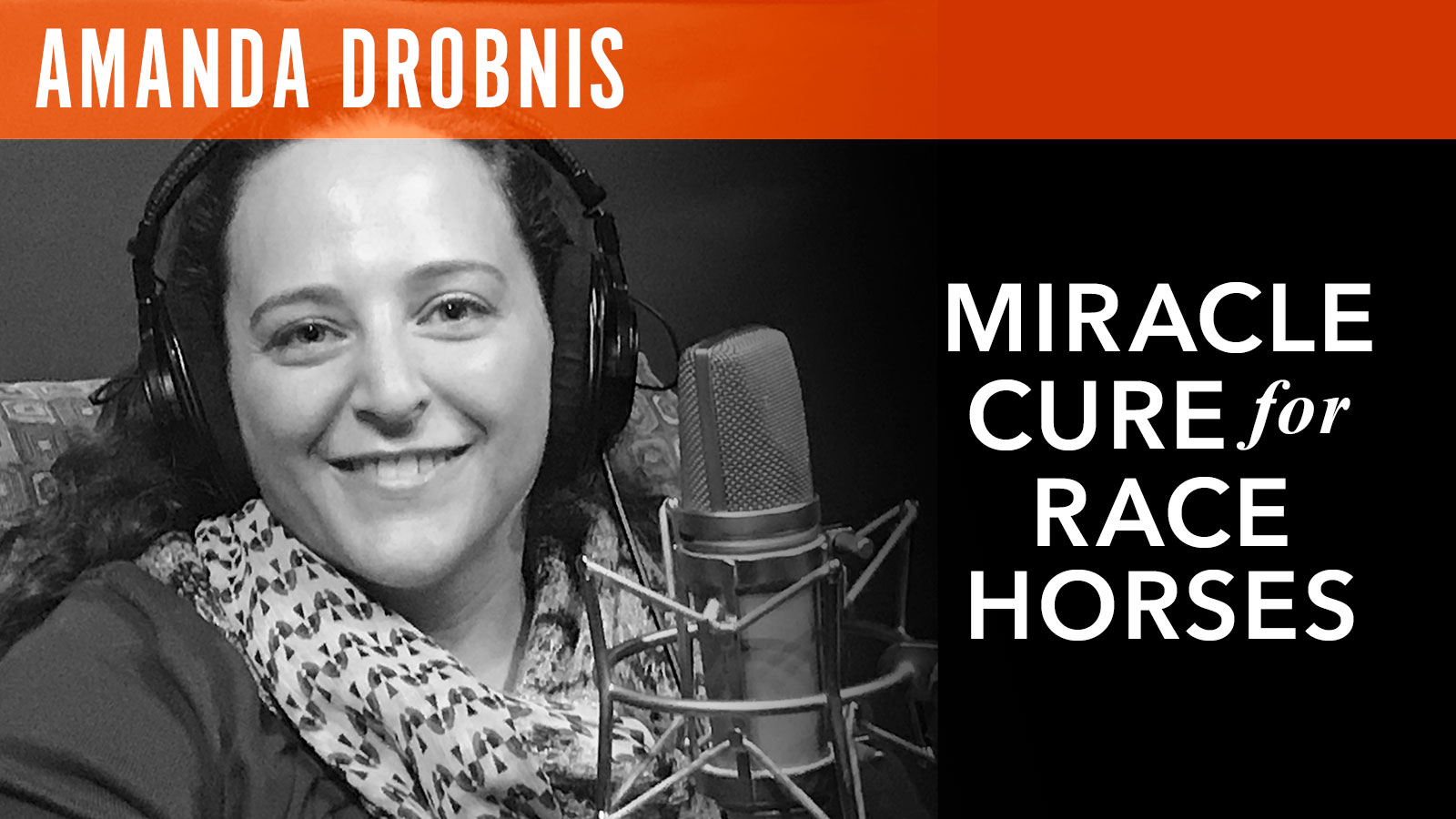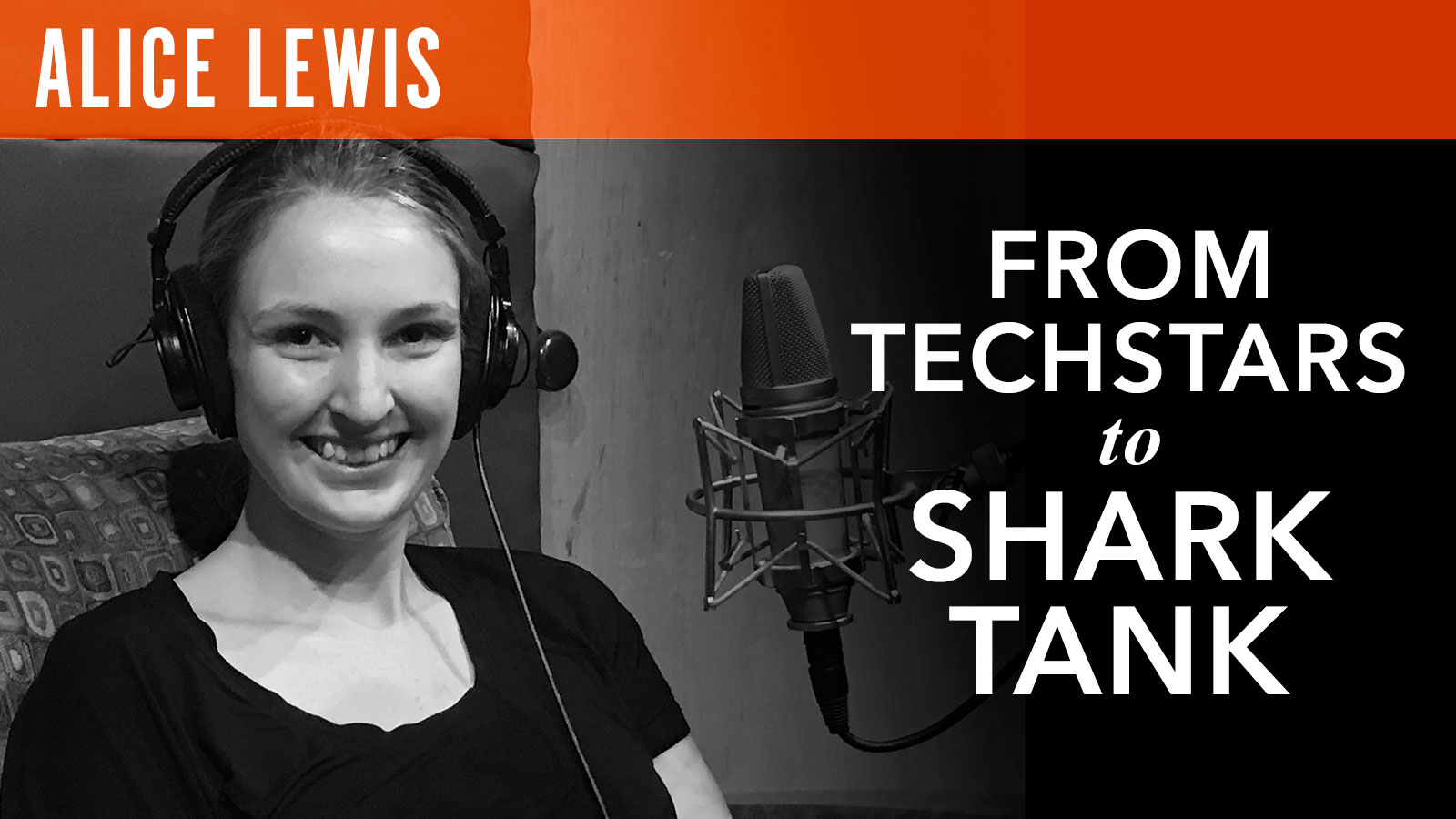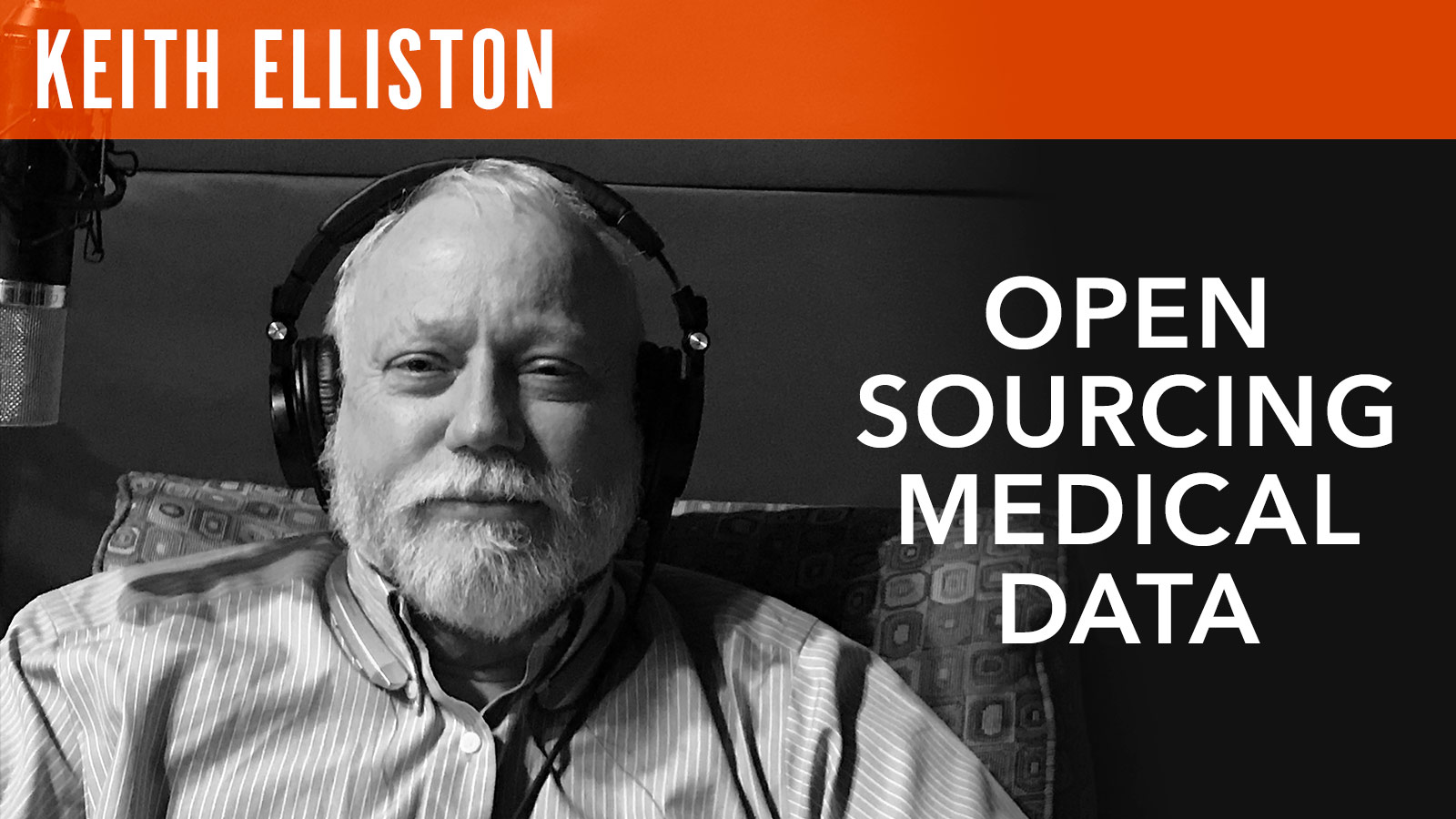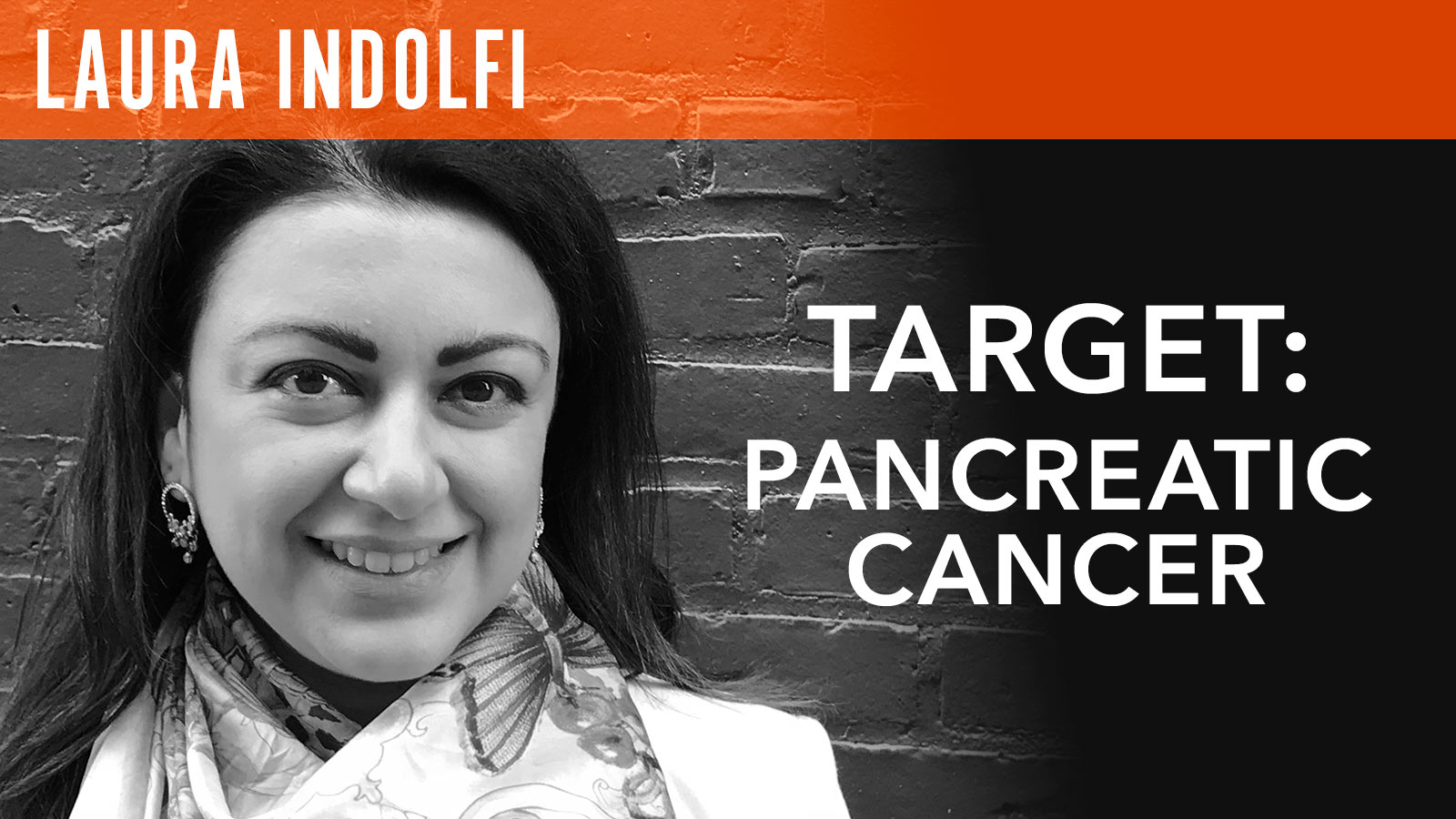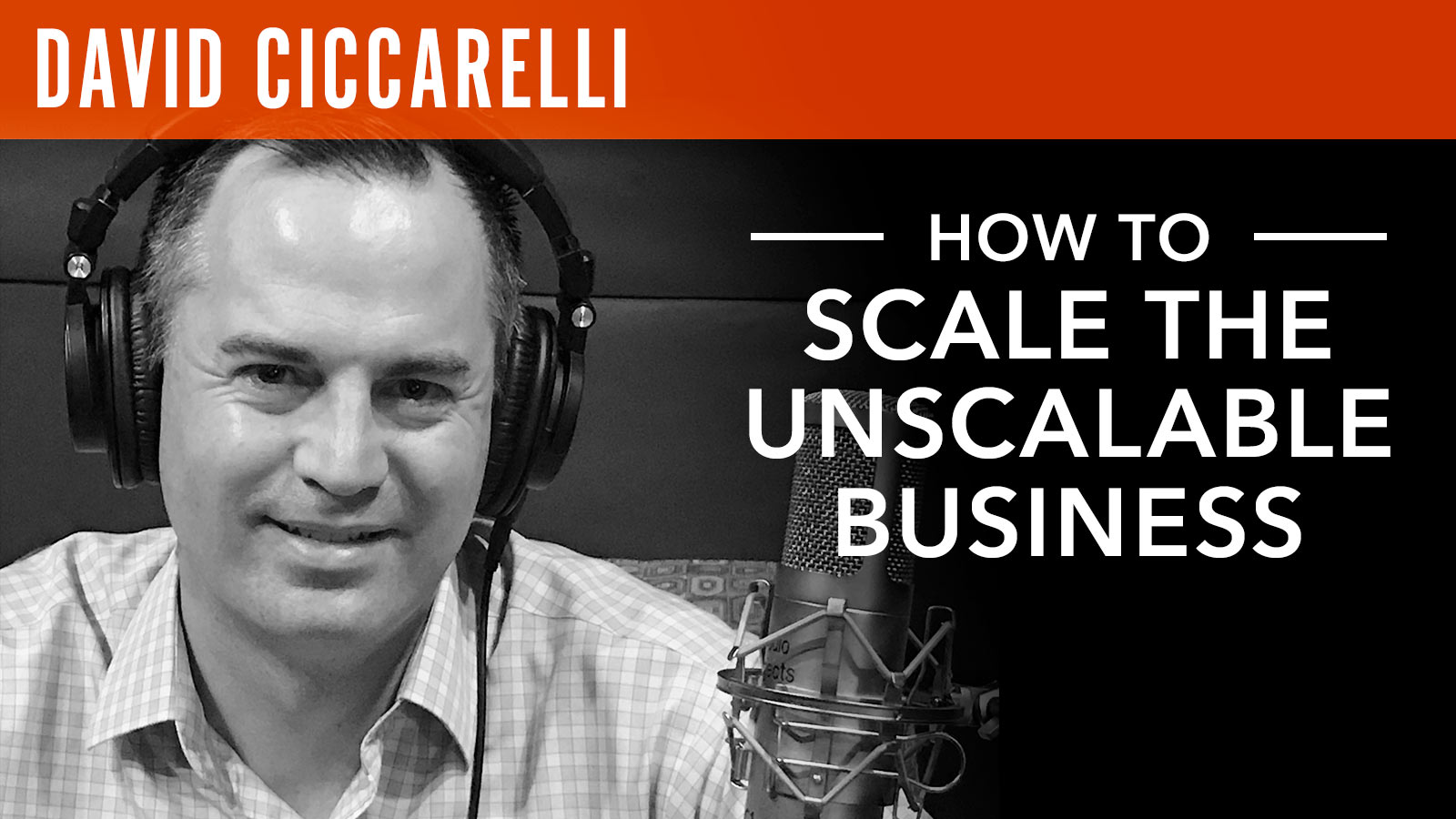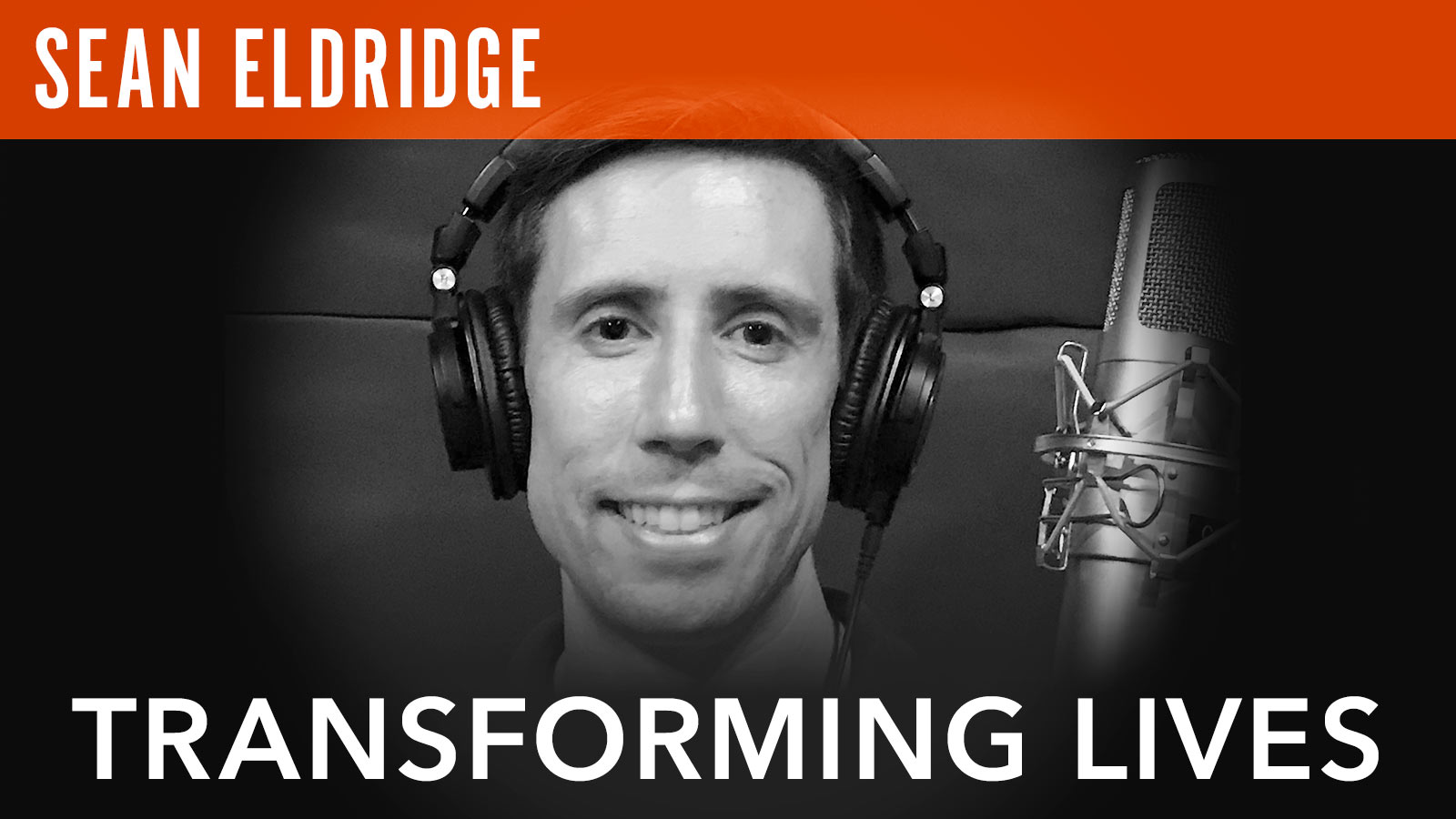Angel Invest Boston
Boston exports ideas and imports money. The city's unique concentration of academic talent and entrepreneurial culture is renowned for creating powerful new technologies and companies. These ideas and companies attract smart money from around the globe. This podcast surveys the companies that venture capitalists and strategic investors will be courting in a few years. I’m Sal Daher, host of the Angel Invest Boston Podcast. After immigrating to Boston as a child and attending Belmont High School, I studied engineering at MIT and Stanford. Decades of work in international finance followed. During that time, I invested in a handful of ventures founded by friends and acquaintances. Now, I’m a member of Walnut Ventures and MIT Angels and spend most of my time as an angel investor. Startups in my portfolio include: SQZ Biotech, Gelesis, Akili Interactive, Vedanta Biosciences, FineTune Learning, Concrete Sensors, Squadle, doDoc, Pixability, Mavrck, Viral Gains, Streamroot, XMOS, Alice's Table and others. Exits include: Exos (Microsoft), Rifiniti (KKR) and PIKA Energy (Generac).
Sponsored by Peter Fasse, Patent Attorney at Fish & Richardson: https://www.fr.com/team/j-peter-fasse/
Jay Batson is an angel investor’s angel investor. He’s the kind of guy who people like me, and lots of other people, go to ask really tough questions about angel investing. And, he always has really thoughtful ideas. Whenever I’m puzzling over something, I reach out to Jay. If I can get 10 minutes of his time it’s really precious. I really recommend this relaunch of my first interview with Jay Batson.
It is rare to hear reports from the frontiers of technology expressed so lucidly and accessibly by a real insider. This gem of an interview rewards the listener with Jay’s sensible and eloquently expressed explanations of the pitfalls of building products and companies. Jay recounts how angel investing taught him things he wishes he had known as a founder. He closes with wise words to recent college grads thinking of founding a startup.
Jay Batson started out as a land man helping oil and gas explorers secure drilling rights. Computerizing part of his work led to his first startup. This made him realize that he loved technology. He would eventually embody this passion for tech in the founding of two venture-backed companies which brought significant innovation by way of the open source movement.
Here are some of the topics included in this podcast:
- Sal Daher’s Intro: “Jay Batson is an angel investor’s angel investor.”
- Jay Batson Bio
- Born to a Family of Entrepreneurs – Land Man Studying Law at Night – Tech Founder
- Jay Batson Exits first Startup – Learns UNIX & C - Heads to Job with BBN in Boston – Massively Parallel Computing
- Jay Batson Goes from Engineering to Product Management
- At Forrester Research, Jay Batson Foresaw some of the Internet’s Potential
- Desktop Internet Phone – Pingtel – SIP – Bits of Code We still Use Today
- The Story of Acquia
- Open Source Primer
- Jay Batson Gets into Angel Investing
- What Jay Batson Looks for In a Startup
- What Jay Batson Has Learned from Being an Angel Investor
- Technique Jay Batson Uses in Mentoring Startups
- What Do Startups Most Frequently Not Do Well?
- Jay Batson Relates the Story of Pingtel’s Pivot
- Jay Batson’s Eloquent Statement of the Value of a Working Board of Directors
- Jay Batson’s Advice to Recent College Grads Thinking of Founding a Company
Topics: software, product, management, exits, boards, discovering entrepreneurship, founding story
Sponsored by Peter Fasse, Patent Attorney at Fish & Richardson: https://www.fr.com/team/j-peter-fasse/
Joe Falcão is the CFO of Boston-based unicorn Thrasio. Learn the secrets of this uniquely successful startup. Retrace my friend’s exciting journey which started in Kenya and led to Boston via Brazil and other interesting places.
Highlights:
- Sal Daher Introduces Joe Falcão, CFO & #5 Employee at Boston-based Unicorn Thrasio
- “Always be open to meet people.”
- “…we are playing within the Amazon ecosystem by acquiring Amazon third-party sellers.”
- “…what we are buying is basically a proven customer experience and a proven supply chain that they can use in our platform and build in scale.”
- “…from that point, onward it becomes very time-consuming or capital onerous for them to grow and scale. And that's a sweet spot where Thrasio can acquire these companies.”
- “And we want to make sure that they feel pride in what we are growing and helping them out.”
- “…we've got a unicorn status in the summer.”
- “…what we want to do is provide awesome products for the customers.”
- “One other element I will suggest for the founders of companies is to understand their numbers, the flow very well. How the company makes money, the business model.”
- “…create a strong relationship with investors, because investors can help you.”
- “Your mom may be more interested in your success, but your investors are second, a very close second.”
- “…doing the right thing and build up strong trust and relationships. That's the cornerstone of everything I do.”
- “Vasco da Gama went to India, and that was the startup of 500 years ago.”
- “…every company I joined, I tried to pick up a corner of the company, which had problems that needed to be fixed.”
- How Joe Met His Wife Cheryl on a Trip to India
Patrocinado pelo Peter Fasse, advogado de patentes da Fish & Richardson: https://www.fr.com/team/j-peter-fasse/
José Falcão, Chefe de Finanças da Thrasio explica o que motiva esta companhia que adquire comércios na Amazon.com. Falamos também sobre a jornada de sua vida pela Africa, Asia e o Brasil.
Sponsored by Peter Fasse, Prominent Patent Attorney at Fish & Richardson (https://www.fr.com/team/j-peter-fasse/)
Growing up in Northern Italy, Arrigo Bodda dreamed of becoming an architect. He chose instead to study law, a handy pre-requisite for a career in human resources in a country where staffing involves a lot of legal work. His corporate career neatly coincided with the emergence of the European Union, a phenomenon that deeply influenced his work and life. After much success in the executive suites of global enterprises, Arrigo now has the opportunity to pursue his passion for design and architecture as an angel investor with Walnut Venture Associates and as an entrepreneur.
In this lighthearted interview, Arrigo shares some of the valuable wisdom gained in navigating large multinational enterprises across cultures and across disciplines. He offers valuable suggestions for founders of startups seeking to do business with multinational companies. He also provides an appealing model of finding the right balance between following your passions and making concessions to reality.
Topics discussed in this podcast include:
- Sal Daher’s Intro of International Angel Investor Arrigo Bodda
- Arrigo Bodda Bio
- Living & Working in Europe vs. in the United States
- The Secrets of Successful Cross-cultural Relations in the Workplace
- How Arrigo Bodda found His Career Path – Deep Wisdom on Career Development from an HR Specialist
- “The suggestion that I have for everyone that is listening now, and that they are thinking where I should make my first move, my recommendation is make your first move in a place where the people around you are better than you.”
- European Union 2.0
- Tips for Startups Navigating Huge Multinationals
- The Value of an MBA from IMD
- Starting a Company in Thailand
- What Kind of Companies Arrigo Bodda Likes to Invest In
- What Does Arrigo Bodda Look for in a Founding Team?
- Don’t Invest in Startups Alone – Join a Group, It will Save you Money & Be More Fun than Investing Alone
Podcast Sponsored by Peter Fasse of Fish & Richardson
Dropping prices for solar panels sank many American clean tech companies. PIKA Energy, however, was able to benefit from the trend by innovating. Generac acquired them in 2019 because of their uniquely efficient home energy storage system. Bill Hetzel, former COO, tells the compelling story of this Maine Angel (and Sal)-backed success and more.
Highlights:
- Sal Daher Introduces Bill Hetzel, Clean Tech Exec & Angel Investor
- “The original idea behind Pika Energy was to make the world's lowest cost, highest efficiency home/residential wind turbine.”
- “His wind turbines sold for around $10,000. They were sized to power part of your home.”
- “Every year, as we developed our wind turbine, the price of solar dropped faster, and that means one thing to a startup, pivot.”
- “…one of the great things about Pika Energy…were these power electronics and the power electronics we had had a special capability. It meant that each part of the system controlled itself without some fancy engineer coming in and programming it.”
- “You mean you had a more elegant design than Elon Musk's design?”
- “Well, our batteries, too, didn't come in one big, five-person carry Powerwall-sized monolith. Our models came part by part and you built them on-site for the battery as well. A solar installer felt very comfortable.”
- “The business community in Maine is really human-scale... I mean, you can get to know everybody and it's very supportive. I've invested in three Maine”
- “I just got on the phone and I called up Ben [Ben Polito, co-founder of PIKA] and said, "I'm interested in learning more about your company." Ben and Joshua, who are like all good entrepreneurs, were willing to open up their network.”
- “Pika Energy stood out as it was a small, but a seriously well-run company. Did things well, took care of investor money. It was serious about that.”
- “I think one of Pika's big strengths was the ability to listen to advice, and Ben Polito, the CEO, was really good at this.”
- Excellent Monthly Reporting to Investors Made Follow-On Rounds Much Easier
- “And we cycled and got better with each cycle.”
- “We got better at what we did and that made a huge difference when we were ready to pivot because we already had a foundation of business processes, and so our pivot wasn't the entire company.”
- “We showed them [Generac] a demonstration of our product and they were just thrilled. They'd been working on it in-house to build it themselves. They had looked at competitors and they were sophisticated enough and far enough along in their own investigation of this that they recognized our patented power electronics were special.”
- Angel Investing in Maine – A Strong Statewide Ecosystem
- “Maine Angels tend to go out of their way to support the company, not just in terms of money, but also in terms of advice, connections, providing all of the resources that the companies need.”
- Eighty Percent of Success Is Showing Up During a Maine Snow Storm
- ORONO Spectral Solutions – Highly Efficient Water Screening
- HighByte – Making Information from the Industrial Floor Easily Available for Analysis
- Junora – Tech for Depositing Thin Film of Different Elements on Architectural Materials
- VETRO – Mapping Optical Fiber Networks
- “…I can say that there's a certain pride that Maine has, and the Maine Angels have that same feeling and it makes for a really close-knit community. It's really a joy to work with this group of people.”
Join Sal Daher's Investment Syndicate: Click to Join
Peter Fasse comes from a family of patent attorneys. He is a highly respected partner at Fish & Richardson, the storied Boston-based (now global) firm that represented Alexander Graham Bell, Thomas Edison and the Wright Brothers. Peter’s work continues that tradition by representing some of the leading technological innovators of today. Peter also invests as an angel in technology companies. In this practical and accessible conversation he revealed valuable insights and resources for founders and investors in technology companies. He also relayed some interesting and instructive stories of intellectual property success and calamity.
Among the topics covered were:
- Introduction by Sal Daher of the Interview with Peter Fasse, Patent Attorney
- Peter Fasse Bio
- Young Cornell Grad in Textiles & Fabrics Becomes Patent Office Examiner
- Peter Fasse’s Practice
- In What Areas Is it Important to Have Patents and Why?
- Software Patents, Why Have Them and Why Not?
- Supreme Court Taking Harsh Views on Patents
- Patent Attorney Horror Stories – Theft, Suicide, Rogue Wave, Bear Mauling & Hasty Firing
- How Institutions Can Claim Intellectual Property of Employees
- Freedom to Operate – Should Be a Big Concern for Tech Startup Founders & Investors
- “There's a common misconception that if you have a patent on something, that it allows you to practice and commercialize that invention, but that's not true.”
- Different Levels of Freedom to Operate Analysis
- Two Extreme Freedom to Operate Cases & Outcomes
- Strong IP Position a Vital Ingredient in Sale of Tech Startups
- Mass Tech Transfer Center (MTTC) Is a Great Resource for Technology Startups
- Transcytos & SQZ Biotech
- Most Patents Are Not Commercially Viable, But Fish & Richardson Has a Special Package for Highly Promising Startups – Fish Steps
- Unsolicited Client Testimonial for Peter Fasse!
- Why Investing Through a Vehicle Rather than Directly Can Make Sense
- Trade Secrets – Formula for Coca Cola
- Trademarks – Frequently Overlooked
- Trouble with Chinese Partners – Capital Controls & Theft of Intellectual Property
Join Sal Daher's Investment Syndicate: Click to Join
What if an injection could cure your diabetes? Meng Deng, PhD and Karen Wurster were on the podcast to talk about Adipo Therapeutics’ ambitious plan to remake the metabolism of diabetic people. Informative and accessible.
Highlights include:
- Sal Daher Introduces the Founder and the CEO of Adipo Therapeutics
- “…we're talking about having too much white fat and not enough brown fat.”
- “…transform that energy-storing white fat into energy-burning brown fat.”
- “…a nanoparticle that you inject into the white fat and it converts the white fat into brown fat…”
- “…you can eat the same amount and continue to lose weight.”
- “…because the sizes are so small that the particles are easily uptaken by the fat cells…”
- Adipo Will Need Five to Six Million Dollars in Funding to Get to a Deal with a Strategic Player
- “…it's a large market that has a proven, well understood regulatory pathway.”
- Purdue’s Entrepreneurial Infrastructure Was Vital to Getting Adipo Off the Ground, According to Founder Meng Deng, PhD
- The Podcast Is Sponsored by Pater Fasse of Fish & Richardson
- Karen Wurster Took Early Retirement at Eli Lilly and Was Looking for an Entrepreneurial Activity
Join Sal Daher's Investment Syndicate: Click to Join
Frank Ferguson had a knack for building companies. He headed Bose at a time of rapid growth and built Curriculum Associates into a great success. Frank Ferguson’s angel investing was unusual in that he invested in just a few startups but lavished support on those few. The results were great. Frank was active well into his nineties but passed away recently; this relaunch of an interview I recorded with him is a memorial for his life of achievement and passion. It’s loaded with lessons for angels and founders. Rest in peace, Frank Ferguson.
My favorite observation from the conversation with Frank Fergusson neatly encapsulates his recipe for success as an investor:
“You can get sucked in and fall in love with a lot of things, but then you have to ask, "Are these the guys who can actually make it happen?” What are the odds that these guys can keep together, not fight, get over it, be successful, run things correctly, not fall in love with their own things so much that they lose track of the financial realities of the business? Can they sell?”
Click Here to read the transcript of the interview.
TOPICS DISCUSSED INCLUDE:
- Yes, That Bose Corporation!
- Curriculum Associates, Which Frank Ferguson Built, Continues to Be Hugely Successful
- Scraping Chicken Droppings in an Iowa Farm
- From Iowa State University to Teheran Courtesy of Syracuse University & the US State Department
- Frank Ferguson Thinks about Business School at MIT or Harvard Thanks to a Friendly Psychologist
- With an MIT Sloan MBA in Hand, Frank Ferguson Goes to Work at Baird Atomic Near Harvard Square
- Frank Ferguson Meets his Co-founders at Curriculum Associates Just as He Starts Work at the Bose Corporation
- Frank Ferguson Invests $80,000 in Today’s Dollars in Curriculum Associates Circa 1959 - Money Saved through Frugal Living in Iran
- How Frank Ferguson Connected with Amar Bose, Founder of the Bose Corporation
- Frank Ferguson Invests in the Bose Corporation
- Amar Bose Invites Frank Ferguson to Be President of the Bose Corporation in 1969
- Frank Ferguson Moonlighted at Curriculum Associates while Running the Bose Corporation
- Frank Ferguson Left the Bose Corporation When it Was Experiencing Growth of 70% per Year to Get Curriculum Associates off the Ground
- Amar Bose, Brilliant but Difficult at Times
- Frank Ferguson Succeeds in Educational Publishing, a Notoriously Tough Business, by Finding a Niche – Differentiated Instruction
- Curriculum Associates Succeeds but Discord Arises Over the Purchase of a Water Cooler!
- Competition Gets Rough in the World of Educational Publishing
- Curriculum Associates’ i-Ready Succeeds by Measuring Progress of Individual Student to Help
- Teachers Better Support Students – Teacher Training a Pivotal Element of i-Ready’s Success
- Before Teacher Training Was Required i-Ready Saw No Gains – With Teacher Training Student Gains Are Dramatic!
- Ugly Truth – Fifth-grade Teacher Has Three to Five Year Grade Span in Her Classroom
- Lev Vygotsky, Seneca The Younger & Andrew Bell of Madras College – “By Teaching We Learn”
- “Talk to Me Baby – How You Can Support Young Children’s Language Development” by Betty Bardige
- Visionary Entrepreneurs Need to Hire Grunts Who Are Really Good at Execution – Frank Ferguson Was the Grunt & Amar Bose Was the Visionary
- How Amar Bose Hired the Smartest of the Smartest for the Bose Corporation
- Family with 11 Children Uses the Madras Method Whereby the Elder Learn by Teaching the Younger
- Sign Up at AngelInvestBoston.com to Hear About Upcoming Free, In-person Events – do Review Us on iTunes
- Frank Ferguson, Practical & Involved Philanthropist – Lionheart Foundation – Robin Casarjian
- Frank Ferguson Does Nothing in Half Measures – Elon Musk Would Approve
- Frank Ferguson - Angel Investor in the Bose Corporation and Curriculum Associates – Participated in the Baird Atomic IPO
- Hugh Stoddard, Father & Son, Piali De & Senscio Systems
- Amos Tversky & Daniel Kahneman, “Thinking Fast & Slow”, “Nudge” by Cass Sunstein and Richard Thaler
- Frank Ferguson Connects with Will Graylin, Invests in Loop Pay Now Samsung Pay
- Will Graylin and ONvocal
- Frank Ferguson’s Approach to Angel Investing – Invests Where He Finds the People and Technologies Compelling – Few Enough Companies So He Can Make a Real Difference
- People Come up with Great Ideas, Great Markets but Sometimes Forget that there Is Friction in the World
- Lessons from Iran for Angel Investors
Join Sal Daher's Investment Syndicate: Click to Join
The hardships faced by parents of babies with developmental problems led Matt Breen and his co-founder / fiancée, Erica Costa, both pediatric occupational therapists, to start Rahoo Baby to make it easier for parents to support their baby’s development.Their first product is now at buybuy BABY and Target. A fun chat with a down-to earth founder.
Highlights:
- Sal Daher Introduces Matt Breen, Founder of Rahoo Baby
- “…how acutely aware parents have become about how important brain development is from birth to three years old…”
- “…something's happened to them or they've just fallen behind in one category of development.”
- “…he's not rolling independently at five months old, but quite literally within two minutes of this session starting with this baby, by implementing just the most simple fundamental therapy technique, this baby was rolling over independently from his back to his belly once, twice, three times.”
- “We can be curating education for parents that gives them the ability to help their own baby reach these developmental milestones…”
- “…not only is tummy time important for strengthening, but it also reduces pressure on the back off the baby's head.”
- “The way it supports tummy time is because it makes far more engaging for the baby and the parent together.”
- “We are in buybuy BABY which is the number one premium baby wear We're launching with Target in just a couple of months.”
- “One of those advisors… he has hands-on experience in this industry working directly with factories, overseas, going all the way from the design phase to the supply chain phase, to your own warehouse.”
- “…we're really going after is building a brand that's really synonymous with early childhood development, early childhood well-being…”
- “We want parents to feel comfortable around this idea that their baby is working towards developmental milestones.”
- “We're trying to make sure that all parents can have access to these tools, this information that sparks early childhood development.”
- “We know the bumps in the road where babies tend to stumble developmentally.”
- Matt’s Co-Founder Is His Fiancée
- “Erica and I together, we are a really, really strong team, but separate. We wouldn't have had any success so far, I'm sure of that.”
- Matt Breen Points to Valuable Advice from Ed Belove
Join Sal Daher's Investment Syndicate List: Click to Join
Founder and revenue consultant Nick Zeckets and I discussed his first startup and what he learned from it. Then we talked about the best ways for startups to build revenues. Instructive and inspiring.
Highlights include:
- Sal Introduces Nick Zeckets, Founder & Revenue Consultant
- What Quadwrangle Does
- "What is already out there that I can make better? I don't want to replace it, at least not on day one."
- “…first and foremost, and I heard it 1,000 times and I never really got it, but it was to fall in love with the problem and not the solution.”
- “The sales process was there… the product wasn't ready.”
- “Oftentimes, it's just like any good advisor, it's just asking some really concrete questions.”
- “Because everything's a referral economy at this point.”
- “Her trick was that she was the most methodical person you could imagine… Bottom line was that she had a sales process.”
- “…the founder's out there doing the selling. The founder is the one picking up the cash. And it is almost impossible… to templatize that passion.”
- “…remarkably common amongst startups is a real... In small companies in general, is a lack of belief in their own value.”
- “there's a lot of this stuff that between software and freelancers and on-demand services, you can look like an absolute marketing juggernaut.”
- “And otherwise, these on-demand services are incredible. It just doesn't cost that much, and so I love modeling that out for companies.”
- “…I was a fairly prolific hustler in high school, and even in elementary school.”
- “…if we shine a light on the bad stuff as soon as we can identify that we've got bad stuff, it's going to kill that mold.”
- “Follow the process.”
- “Again, it's the truth will set you free in all things.”
Join Sal Daher's Investment Syndicate List: Click to Join
Artist K. Woodman-Maynard discusses her gorgeous graphic novel interpretation of The Great Gatsby, the business of being a graphic artist and other engrossing matters. A delightfully different interview with a charming guest.
Highlights include:
- Sal Introduces K. Woodman-Maynard, Creator of The Great Gatsby Graphic Novel
- “Color is gorgeous. The drawings are extremely expressive and interesting… the style of the period is displayed.”
- “…I think it's a good way to get people who might not otherwise read The Great Gatsby, the prose book, interested.”
- Cashflow from a Graphic Novel Is Inconsistent – Good to Have Steady Income from Graphic Design
- “…it was very painful for me to cut out specific lines, because I love those lines.”
- “I'm in complete agreement that you shouldn't dismiss somebody's whole life's work just based on certain philosophies. It's a balance.”
- “…it started by a very intense deep reading of the text…”
- “The whole book took about 1500 hours. That's actively time tracked hours.”
- “…the first thing for a beginner that they need to know is that they can do it. You can make a living as a graphic artist.”
- “I was encouraged to go into architecture because that was considered to be more stable for artists. I'm so glad I didn't, because I graduated college in 2008.”
- “One thing that's been key for me has been diversifying my income. I have income from graphic novels. I have income from graphic design work, from illustration.”
- “I think it's an important thing for yourself as a graphic artist to be able to pivot and to be able to work in different ways.”
- “…finding good mentors. That's something that I would encourage your niece to do.”
- “Going to Harvard has really helped me with asking stupid questions.”
- “You can be a good business person and also be good at your craft.”
- “The Great Gatsby was a commercial flop at the time that it was published.”
- “He was making a huge amount. He would just spend it before he even got it, which is the direct opposite of me.”
- “…a captive audience of troops who read The Great Gatsby and then returned and spread the word about it.”
- “I'm wondering what's going to happen once the vaccine is out. Will we experience another Roaring Twenties in a different way?”
- “I do the Pomodoro method. …You work for 25 minutes; you take 5 minutes off. Then every two hours, you take a half an hour break.”
- “In high school, we had to take career placement tests. I had equal likelihood artist and military officer.”
- The Importance of Story Telling
- Addressing Mental Health Issues with Kids via Comics: TKAMI.org
- “I decided not to go into architecture because it wasn't my calling. Also, because I could see that it wouldn't be good for my mental health.”
- “It's just gorgeous. I highly recommend this work.”
Join Sal Daher's Investment Syndicate List: Click to Join
Kristen Overly works as management consultant and is a leader at MIT Life Science Angels. Kristen and I discussed various aspects of the funding of life science startups. She, like me, is intrigued by the opportunities in what Jeff Behrens called the scrappy biotechs in his doctoral thesis. Highlights include:
- Sal Daher Introduces Kristen Overly of MIT Life Science Angels & Back Bay Advisors
- “…MITLifeSciAngels.com. And we look for companies that have some sort of affiliation with MIT, whether that's a founder or a board member or maybe a scientific founder or maybe the technology came out of MIT.”
- “Who's invited to the [MIT Life Science Angels] meetings as potential investors?”
- “…. I remember it was kind of in the beginning times of Rubius Therapeutics because that was a similar-ish platform play to Remora.”
- “I suspect he had a hard time raising money, not having had a Ph.D. He's a brilliant guy, he could have done it but in the life sciences, it's almost like joining a holy priesthood or something. You have to have your Ph.D.”
- “… the increase in the number of SPACs recently. I think it just shows how different the life sciences industry is from the tech.”
- “…you just have to believe in the people, sign a blank cheque and hope that they can do their jobs right.”
- “But still the [SPAC] model is untested…. Acquisitions are hard. Most acquisitions fail…”
- “So basically 97% of the funding go to either life science companies that are created by the venture capital firms themselves or companies that have some kind of a star player, right?”
- “…when I was at MIT, I found myself frustrated because there were so many amazing technologies just kind of stuck in a lab.”
- “The number of scrappy biotechs is about to skyrocket.”
- “And there's a lot of not great AI technologies. People are just taking the open-source code and applying it and calling it a product and starting a company and getting money.”
- An Intro to Radio Pharmaceuticals
- “…my senior year, I got a really bad concussion, freak accident.”
- “Yeah, it was the hardest decision I had ever had to make in my life to take the year off at school. I mean, I was on this set path since I was born.”
- I'm passionate about is that only about two percent of all VC funds overall go to female founded companies.
Join Sal Daher's Investment Syndicate List: Click to Join
RockStep Solutions improves efficiency by 70% according to one client. This is why the startup is getting word of mouth traffic from clients running in vivo drug trials. Founders Chuck Donnelly and Julie Morrison tell their story and share valuable wisdom about this intersection of software and bio.
Highlights include:
- Sal Daher Introduces Chuck Donnelly and Julie Morrison, the Founders of RockStep Solutions
- RockStep Provides a SaaS Solution for a Sector of the Drug Discovery Space That Is Poorly Served by Existing Vendors
- “The problem that we're solving is data chaos in drug discovery.”
- “…we have one of our customers that's projecting a 70% efficiency gain.”
- “We bring value to the pharmaceutical companies by speeding up that pipeline, reducing the number of errors that happen.”
- “While I was at Jackson Lab… We recognized that there was this gap, if you will, that we just talked about. The NIH actually funded us.”
- “One full day of my work week was designed to take all my data out of paper and put it into Excel even.”
- "But they don't actually have any money." I said, "I'm not sure it matters at this point because I'm so passionate about the problem they're solving."
- “I can tell you that these equity-only deals work very rarely…”
- On co-founders: “You have to be aligned on your personal values because this is a marriage. In very many ways it's similar.”
- “There's no question, your family is part of this company. You will not have a work-life balance.”
- “Ultimately, if we don't get the pricing right, we're not going to succeed. You have to get your pricing right.”
- “…they're just academic customers paying, I think our cheapest is $50 a user. Right now, in industry we're getting $1,800 per user. That's how different our pricing has scaled up.”
- “We spent about a year and a half, two years, perfecting the product that we have out in our biopharmas today.”
- “After a year and a half of doing that, we ended up with a product that is totally, uniquely positioned in the market…”
- “…if she had gone in thinking that she already knew it and she just was trying to validate it, she would be coming in with her own biases, almost telling the people, "This is how it should be done."”
- “If you have a toxic person or persons in the company, that goes through the entire company. You cannot; it will kill your company.”
- “…a hire that almost tore the company apart, to be honest. It was a salesperson forced on us by an investment firm.”
- “...we can teach anyone anything for the most part…But you can't really change someone's culture or their personality, their willingness to dig in.”
- “First thing is that it takes a lot longer to raise capital than you might think. The other thing is that you're going to probably need more money than you think.”
- Deep Wisdom on Grants: “All told we got three grants, total of 1.85 million… from the NIH. That was all great non-dilutive funding and life is good. But I would caution anybody who wants to continue living off of grants, don't do it.”
- “We could have written another grant, but it's not going to be a market-driven product anymore, it's going to be a grant-driven product.”
- “The market still needs to stop using paper and spreadsheets.”
- “…it's hard. I spend a lot of my time raising money.”
- “…our sweet spot really is the small, mid, to large biotech and global pharmaceutical companies.”
- “…it feels good when you start seeing people coming to you on word of mouth.”
- “…there are fires burning every day. It's overwhelming. The big mistake you can make is just trying to put every fire out because you're not going to make any progress.”
- “…don't do it unless you're ready. This is the hardest thing you will ever do.”
- “…manage burnout. Burnout is very real.”
- “I would say another really important tip is you can't do this alone.”
Join Sal's Investment Syndicate List: Click to Join
Launchpad, Boston’s leading angel group, has published a polished collection of stories that illustrate the success and failure of their portfolio companies over two decades. It is titled “The Entrepreneur’s Journey”. Listen to my interview of authors Ham Lord, Christopher Mirabile and Joe Mandato to learn more about this valuable resource for angels and founders.
Highlights from the interview:
- Peter Fasse of Fish & Richardson Sponsors the Angel Invest Boston Podcast
- Boston’s Answer to The Three Tenors, The Three Super-Angels
- “…back in 2012, started working with some of the members within Launchpad to understand why some of our companies succeeded and why some of them failed.”
- “But there was something about that team that we just couldn't disengage.”
- “…it was one of these software purchases ... unlike a lot of enterprise software ... that immediately paid for itself.”
- “…if we had looked at Mobius and said, "No, hardware company, we're not investing," we would have lost out on an investment that ultimately is going to be a 35x return.”
- “…Intuitive Surgical, where it violated every principle of venture investing. Right?”
- “…it was a 10 year, 35x. That is a beautiful, beautiful investment.”
- “…I could sort of hear myself in some of these stories, and I've changed the approach that I'm taking in certain areas.”
- “We included as much failure as success in this book. Every theme is illustrated by both companies that got lucky and got it right, and companies that didn't.”
- “…One of the challenges is the timeline. For VC, the timeline, it's so long with the biotech's and that's really become problematic.”
Join Sal Daher's Investment Syndicate: Click to Join
The collaboration of Ham Lord and Christopher Mirabile, two of Boston’s most consequential super angels, is widely admired. Its most visible fruit is the success of Launchpad Venture Group, which they manage together. In the relaunch of this revealing interview, they let us in on how this winning collaboration came to be and what keeps it productive as it approaches the end of its first decade.
Christopher Mirabile and Ham Lord are already familiar to our listeners. Each has been interviewed individually on earlier episodes of the Angel Invest Boston Podcast. In the current episode, the two different personalities interact and give us a glimpse into what drives their working relationship.
Click here to read the full episode transcript.
TOPICS COVERED INCLUDE:
- Christopher & Ham’s Remarkable Collaboration
- How They Connected
- Division of Labor
- Lucky to Have Jody Collier as Operations Manager
- Complementary Skills & Creative Tension
- What They Enjoy in Working Together
- What Motivates Christopher and Ham
- How Christopher & Ham Differ in their Investing
- Gene Gregerson, an Engineer’s Engineer & Mobius Imaging – Astonishing Feat of Entrepreneurship
- Blind Spots: How Having a Partner Helps Avoid Them
- Integrity in the Founding Team is Essential – Due Diligence Screens Out Frauds
- Geographic Focus Makes It Possible to Add Value
- Dos & Don’ts for a Winning Collaboration
- How Ham and Christopher Work Things Out When Problems Arise
- Co-CEOs Raise a Red Flag but Can Work
- Trends Christopher & Ham See
- A Business Semyon Dukach Would Like!
Join Sal Daher's Investment Syndicate: Click to Join
Repeat biotech founder and angel investor Patrick Rivelli talks about his career and about how to approach the daunting challenge of investing in biotech as an angel.
Family considerations drove several of Patrick Rivelli’s career choices but did not prevent him from having brilliant triumphs. Success as a consultant was followed by success as an executive. This led him to found his first company and to fund another startup. The most eloquent evidence of his achievements was exiting two biotech startups in eleven years. If you are a seasoned biotech investor, I’m sure that grabbed your attention. Patrick was also instrumental in founding MIT Angels of the Bay Area and now leads the life science track at MIT Angels in Boston.
I learned a lot from this fun chat with Patrick. I hope it will be entertaining and instructive for you as well.
Note: When Sal talked about biotech booming circa 1996 he actually meant to say the internet. Biotech was still a backwater then.
TOPICS DISCUSSED INCLUDE:
- Patrick Rivelli's Bio
- Love Drives the Choice of Patrick Rivelli’s First Job
- Family & Luck Steer One’s Career
- Consulting at Bain Leads to Private Equity
- Bain Paid for Sloan MBA
- Work at Bain Was Different After Patrick Rivelli Graduated from Sloan
- Patrick Rivelli Gets Involved in the Life Sciences – Pharma Companies Had Medical Device Businesses Then
- Biology Was a Backwater in the 1990s – Then Human Genome Was Sequenced by 2003
- Consulting Was Taking a Toll on Patrick’s Family Life So He Took a Corporate Position
- Patrick Rivelli Goes to Work at a Medical Device Company in 1996 – First Internet Wave Just Starting Then
- Netscape IPO & “The Nudist on the Late Shift”
- Target Therapeutics Is Sold – Mass Firings Ensue
- Patrick Rivelli Has a Tough Period in His Career – Growth & More Self-knowledge
- Patrick Rivelli Gets Involved with a Startup for the First Time
- Patrick Rivelli Founds Smart Therapeutics
- “…Nobody Wanted Medical Devices. Everybody Wanted Pets.com and Whatever.com”
- “You Went from Nerd to Cool Dude”
- Markets Always Overshoot
- Boston vs. Bay Area
- How Boston Has Changed Since the 1960s
- Patrick Rivelli Gets Into Angel Investing
- Chestnut Medical Technologies Is Acquired in 2007
- Patrick Rivelli Gets MIT Angels Moving in the Bay Area
Join Sal Daher's Investment Syndicate: Click to Join
Expert Dojo is the international accelerator based in Southern California. Founder Brian Mahon and team look for great founders with profitable businesses that can grow. Brian’s a delightfully articulate guest. Don’t miss this outstanding interview.
Highlights:
- Sal Daher Introduces Brian Mahon of Expert Dojo, the International Accelerator in Southern California
- “…we’ll invest as easily and as happily in Boston, as we will do in Bosnia…”
- “…we wanted to be able to give ordinary people the ability to be able to grow extraordinary companies…”
- “Actually, we have 70 investments in our companies now. Being part of that journey and watching them while they're at that stage is just absolutely beautiful…”
- “…I'm over in our location, which is 10,000 square-foot facility on top of the mall in Santa Monica…”
- “It cost me money. So, I'm not falling for it again.”
- “…we copy the people who I don't necessarily admire what they do, but I admire how they acquire users.”
- AdLaunch – Squarespace for Videos
- Irish Nun Stories
- “This is my point about entrepreneurship. It grew here. I could reread and re-watch the movie about the great Edison and Tesla battle a hundred times because this is where virtually all of it began.”
- Making Mass Spectrometry Easily Accessible
- “…these people have actually built an entire machine learning algorithm that goes deep into the scans themselves, it's not looked at by the naked eye…”
- “…tuberculosis is a killer, but it's a stupid killer. This should have been eradicated years ago.”
- “They're fighting the mutation day by day.”
- Sal Daher Does a Pitch for His Investment Syndicate
- “I remember two things with my dad. The first thing is he never complained.”
- “It meant that you had a beautiful office right on the corner. You made it, no matter what you were working or how many hours you were there.”
- “To the investors, they are incredibly fortunate to be part of your syndicate group. This is not a solo sport.”
- “Suddenly, their foosball tables are not quite such enticing as a recruitment offer because they've just fired 30% of their staff.”
Join Sal's Investment Syndicate: Click to Join
Ed Belove is a very active angel investor. He's a successful founder in software and hardware. Just a very thoughtful person. Very, very smart, very observant, very committed. Founders would be very lucky to have Ed Belove in their corner. I really enjoyed this interview, which I recorded in the first season of the podcast. And it is a very, very meaty interview. Full of interesting stories. For example, helping build Lotus with Mitch Kapor and all sorts of other things. So, it's a little bit of history of the software industry. A lot of wisdom about building a company and an introduction to just a tremendous, tremendous angel investor and person. I highly recommend the conversation with Ed Belove.
As an undergrad at Harvard, Ed Belove hung out with people at the campus radio station that liked to play with computers. This eventually led to a brilliant career that included building software products with the visionary Mitch Kapor at Lotus Development. Ed co-founded a company that greatly expanded the Apple II’s ability to communicate. The company would eventually pivot to supplying the hardware for early Internet services such as CompuServe and AOL. This successful trajectory allowed Ed to dedicate his time to building early-stage companies and doing philanthropic work. As a much sought-after angel investor, Ed puts his capital and energy to work on behalf of promising startups. If you are building a software startup, you would be well served to listen to the thoughts Ed expresses in this podcast.
HERE ARE SOME OF THE TOPICS COVERED IN OUR CONVERSATION:
- Ed Belove's Bio
- Data General in the Early 1970’s Was a Hotbed of Entrepreneurship – Many Startups Came Out of Data General
- Software As It Was Before It Ate the World
- Data General Gave Away Software to Sell Hardware
- Space War Video Game on PDP-10 Computers
- “Soul of a New Machine” by Tracy Kidder
- Now There Is a Huge Number of Software Building Blocks That Anybody Can Put Together – This Did Not Exist in the 1970s
- Telex and TWX Emulation for the Apple II – Got Around Apple II’s Inability to Multitask
- Ed Belove Went to Work Lotus Development – Mitch Kapor Was a Real Visionary
- Ed Belove Runs into People Who Are Still Using Lotus Agenda
- WorkFlowy!
- Ed Belove, Lessons from Fetchnotes – Alex Horak & Alex Schiff
- “Ease of use can't be overestimated”
- Interchange Online – Put the First Major Paper Online, The Washington Post – Ziff Davis
- AT&T Still Had a Monopoly Mindset despite Deregulation & Divestiture – No Hurry to Make Decisions in Fast-moving Market
- “The Innovator’s Dilemma” by Clayton Christensen
- “The Road Ahead” by Bill Gates, Nathan Myhrvold and Peter Rinearson
- How Ed Belove Got into Angel Investing
- Do Help Get the Word out About Angel Invest Boston by Leaving a Review on iTunes
- What Ed Belove Looks for in a Startup
- Knowing What You Don’t Know
- CEOs Need to Have People to Talk to In & Out of the Startup – There Are Now Many More Resources than in the Past
- CEO, Don’t “Manage” Your Board, Work with Your Board
- CEO, Founder, Know Thyself
- Shares, Notes and SAFEs, Oh My!
Join Sal Daher's Investment Syndicate List: Click to Join
SQZ's successful IPO validates the vision laid out by Armon Sharei, PhD in this interview recorded two years ago. In accessible language, this genius founder explains the approach that has big strategic players excited. SQZ is the model I have in mind when I invest in biotech companies. Find out why.
Armon Sharei wants to train our immune system to fight cancer. We hear a lot of claims like this, however when a mega-pharmaceutical company like Roche inks a $500 million deal to work on it, we pay attention. At age 29, Armon convinced not only Roche but gimlet-eyed VCs to back him. How did he do this? How did he go from a boy living in Iran to being one of the stars of MIT’s storied Langer Lab?
Part of Armon’s secret is the ability to explain thickly complex ideas in accessible language that does not over simplify. He is that rarest of creatures, a scientist of the first rank who speaks lucidly and acts practically. I am grateful that Armon took time out from curing cancer to share his experiences with us in this inspiring interview.
If you are a scientist thinking of founding a company or an investor thinking of investing in a biotech startup you could learn a lot by listening to this interview with Armon Sharei and then going to AngelInvestBoston.com searching under the biotech topic.
Among the topics covered are:
- Armon Sharei Bio
- Childhood Spent in Iran & Dubai, Finished High School in Marin County
- Why Armon Sharei Wanted to Be a Scientist
- Why Leave Edenic Bay Area for Purgatorial Boston?
- SQZ Technology Comes from Failed Attempt to Shoot Genetic Materials into Cells
- How the Idea of Starting a Company Came About
- “I think one of the main examples, which is kind of the subject we've been pursuing most deeply at the company in two different projects, is the idea of telling the immune system what to target in the context of cancer”.
- SQZ Technology Excels at Getting Protein Fragments into Cells – Very Promising Method of Training Our Immune System to Fight Cancer
- Sal Asks Listeners to Subscribe & Review on iTunes – Podcast Has Great Guests & Sound
- Biotech Fundraising Is Hard – Armon Sharei’s Advice on Fundraising
- Armon Sharei Finds a Lead Investor for His Angel Round
- SQZ Biotech’s Pivot from Selling their Tech as a Tool to Looking for Therapies
- “…over 70 or 80% of scientists want to put stuff into cells for some reason. I think aside from looking under a microscope there's nothing that they want to do more”.
- Therapy Research Is Risky, But Tool Business Was Harder Than It Looked, Besides Armon Really Wanted to Do Science
- The Board Was Essential in the Pivot from Being a Tool Company to Becoming a Therapy Company
- How Does a 29-Year-old Negotiate a $500 Million Deal with a Major Corporation?
- Hiring the Right People Is the Most Important Thing a Founder Does, Look for Cultural Fit
The disrupted life of refugees keeps them from having good medical records. Med student Senan Ebrahim decided to do something about it and succeeded. Listen to the story of Hikma Health and of its promising founder.
Senan Ebrahim grew up in Silicon Valley but he experienced the Syrian refugee crisis via his grandmother. When he became interested in the problem of refugee health his initial solution was laughably unsuited to real life. Contact with health care workers serving the refugee population allowed Senan to zero in on a high-impact solution that is now serving 50,000 displaced people and is set to grow.
There's no guest quite like Beth Marcus. She's founded a bunch of companies and has learned tons from it. I recommend this interview to founders and those who are thinking about becoming founders.
Join Sal Daher's Investment Syndicate: Click to Join
Purdue wants to be Startup U. They are already the #3 university in the US for producing startups, right behind MIT and Columbia. One of my favorite companies, Savran Technologies, came out of Purdue. I spoke with Wade Lange of Purdue Foundry, responsible for promoting startups at Purdue. Several interesting Purdue startups were discussed.
Highlights:
- Sal Daher Welcomes Listeners and Introduces Wade Lange from Purdue Foundry
- Wade Lange Was Introduced by Çağrı Savran of “One Cell in a Billion” Fame
- On Savran Tech: “It's a promising technology. I mean, it's all about capturing really, really rare cells.”
- Purdue, being a Land Grant College Combines and Excellent School of Agriculture with a Top Engineering Program
- “…good news for Purdue. We were ranked number three in the country in the number of startup companies in the period of 2008 to 2018 behind your own MIT and Columbia…”
- “We called it Firestarter, it's a nine week-long program, pretty intense, but it really is kind of the basics of business.”
- DDX Accelerator Program – All About Identifying & Removing Obstacles
- “Marc Andreessen said it some years ago that software is eating the world. It actually now is biotech that's eating the world.”
- Professor Phillip Low, Founder of Endocyte, Launching an Antiviral Company
- SpeechVive Helps Patients with Parkinson’s Disease Communicate Reliably
- Spensa Technologies Is Applying Machine Vision to Identifying Insects, Weeds and Other Problems in Agriculture
- Perceive Inc. Helps Retailers Identify Patterns in Stores
- Sal Daher Talks About His Investment Syndicate
- Wade Lange’s Entrepreneurial Journey
- “I would rather be a big fish in a small pond was my thinking. So, I joined a startup was started by a couple of faculty members, at Purdue.”
- How Wade Lange Came to the Purdue Foundry
- “Purdue’s President Daniels wants Purdue to be known as startup U, okay.”
- Sal Daher Makes a Plug for Purdue as a Great Place to Be an Undergrad
- “…my connection to Çağrı came because of my brother-in-law. My brother-in-law is a patent attorney at Fish and Richardson.”
- “…founding entrepreneurs who have deep relationships with 25 other founders, 10 industry experts, and eight investors. They had double the revenue growth of founders who didn't.”
- Wade Lange on the Advantages of Growing Your Startup Near Purdue
Join Sal Daher's Investment Syndicate: Click to Join
Jeff Behren's doctoral dissertation suggests that life science startups are not funded the way we all think. Listen to our discussion of his work and learn why he believes we have to revise what is taught to founders about raising money.
Highlights:
- Sal Daher Welcomes Jeff Behrens Back on the Podcast to Discuss His Findings on Biotech Funding
- “We published papers. We had a world class SAB, and ultimately, we sold these drugs. So, during that, you'd think, "Well, we should be able to raise venture capital." We never could.”
- The Conventional Wisdom about How Life Science Startups Are Funded
- Casma Therapeutics as an Example of a Startup Born Inside a Venture Firm
- “There was no Lisa and Joe… There [was] no outside founders. This was born inside the venture firm.”
- Jeff’s Research Result: Only 8% of All Startups Follow Path of Angel Funding Then VC Funding
- Jeff’s Research Result: For Biotech Startups, 4.5% of those that Started with Angel Money Got VC Funding
- “So, it's almost like these are two distinct entrepreneurial streams that don't intermingle very much.”
- Angel Investors Should Not Expect Future Rounds to Come from VCs – Should Think About How to Fund Future Rounds in the Absence of VC Money
- "Well, we want to have fewer new companies and more companies that we invest longer and heavier and over time."
- Jeff’s Research Result: In a Decade VC-Started Biotechs Went from Taking 20% of Funded Deals to Taking 80%
- The Big Biotech VCs Don’t Take Pitches from Outside Companies Anymore
- Only 3% Funding Goes to the Scrappy Biotechs Who Were Not VC-Founded or Did Not Have Famous Founders
- Scrappy Biotech Startups Need to Draw a Credible Path that Does Not Include VC Funding
- Corporate Venture Groups Created to Allow Big Players to Look at New Technologies
- Being Funded by a Corporate VC Does Not Seem to Increase the Chances of a Venture Being Acquired
- Trends Among Life-Science VCs Vary Geographically: Boston, NY vs. West Coast
- “We never take pitches” – Dave Berry - Partner - Flagship Pioneering
- Accelerators, Business Schools, Advisors Need to Revise their Ideas about Funding of Biotech Startups
- “So, it is true that Polaris is probably... Of these companies that are doing venture creation, they're probably more balanced than the others.”
- Path Dependency of Funding
- “…unfortunately, great science can languish unfunded.”
- Parting Thoughts from Jeff Behrens, PhD
Join Sal Daher's Investment Syndicate: Click to Join
Mortgage origination is a massive business deeply stuck in the past. Proof: in 2020 it still takes an average of 45 days to approve a mortgage. Israeli founder Eilon Shalev and his buddies from MIT Sloan School aim to change all that with their startup Elphi.
Highlights:
- Sal Daher Welcomes Listeners & Introduces Eilon Shalev of Elphi
- What Elphi Does
- The Non-Linearity of Mortgage Applications Is a Huge Problem – Average Time to Approval: 45 Days
- “We have a paying customer and the software is live today with that lender. That lender is a non-depository mortgage lender, which means it is not a bank.”
- The Current State of the Mortgage Origination Business
- A Shout out to Sonal Singh of Spatio Metrics for Connecting Sal Daher and Eilon Shalev
- The Founding Story of Elphi
- Why University Tuition Is So Astronomically High
- How Eilon Shalev Shifted His Focus from Student Financing to Mortgages
- “I was obligated to just try to choose the most problematic problem I can find from that large industry and try to solve it.”
- The Elphi Team
- Sal Daher Plugs His Investment Syndicate
- Eilon Shalev’s Entrepreneurial Journey
- Parting Thoughts from Eilon Shalev
- “…one of the main reasons that there was no innovation in that particular space for those particular problems is the high barriers to entry. Once you overcome those barriers to entry, you are that kid in a candy shop…”
Join Sal's Investment Syndicate: Click Here
Unlike software startups that can scale with minimal resources, biotech startups need frequently to rely on collaborations with big strategic players to get to scale. This is an interview with one of the top attorneys in arranging such deals, David Glazer of Morgan Lewis. I learned much from David; I hope you will too.
Highlights:
- Sal Daher Introduces David Glazer of Morgan Lewis, the Biotech Deal Wiz
- Why Collaborations with Strategic Partners Are So Necessary for Biotech Startups
- Sal Connected with David by Courtesy of Armon Sharei of SQZ Biotech; David Advised SQZ on the $1.3 Billion Roche Deal
- Collaborations May Last Ten or Twenty Year; Picking the Right Partner is Crucial
- A Strategic Partner Can Be Immensely Valuable with Dealing with the Complexities & Cost of Getting a Compound of Technology to Market
- Strategics Offer Clinical, Regulatory & Commercial Expertise Startups Lack
- “You got one partner signed up and then the dominoes start to fall, it provides a validation.”
- The Topics that Dominate the Discussions Between Biotech Startups and Strategic Partners
- The Tradeoffs Central to the Negotiations
- An Important Metric of Biotech Deals Is Elucidated
- Picking Mechanisms Determine Who Takes the Lead in Which Circumstance
- Reward Follows Risk in Biotech Deals
- “Careful what you ask for when you're the biotech company…” – The Law of Unintended Consequences
- Collaborations Can Give Startups the Capacity to Develop Their Own Internal Projects
- Resources from Collaborations Can Help Startups Mature Their Tech
- “I would say I spend about 50% of my time with the pharmaceutical, the strategic players, and about 50% with biotechs.”
- Since They Represent both Biotechs & Strategics, Morgan Lewis Has a Good Sense of What Motivates the Players and What Deals Can Get Done
- How Deals Go Awry
- Sal Daher Puts in a Plug for His Syndicate List
- How David Glazer Became a Biotech Deal Maker
- “…then in 2000, the [tech] bubble popped and I ended up spending almost all of my time working for the pharmaceutical and biotech companies back in the day.”
- How the Acquisition of One of His Clients Expanded David Glazer’s Network
- Morgan Lewis Has Afforded David Glazer the Opportunity to Do Interesting Pro Bono Work
- David Glazer’s Closing Advice to Biotechnology Companies Thinking About Collaborations
- “…I've always found it helpful to have a champion at the pharmaceutical company who is very interested in your deal.”
Join Sal's Investment Syndicate: Click Here
As a venture capitalist Fred Bamber helped build such successful companies as Interleaf, Q1 Labs and Volt Server. Now working as an angel investor Fred is invested such exciting companies as SQZ Biotech, Pixability, ViralGains and Streamroot (exited). In his self-effacing and modest way, Fred reveals deep wisdom gained from 75 investments in his career as a VC.
Topics include:
- Fred Bamber Finds His Career Path
- Avoiding the Military Draft Led Him to Work for His First Startup
- Fred Bamber & Friend Found a Venture Fund – Consulting vs. Venture Capital
- IPOs Then & Now
- Investment in Interleaf Makes His First Fund a Success!
- Two Ways of Connecting in the World of Venture Capital – Via Success & Via Failure
- Several Losing Investments in Companies Seeking to Exploit the Piezoelectric Effect
- Themes In Angel Investing – Investing in Brand New Fields i.e. White Spaces
- ‘…Oracle has a huge go-to-market cost, and engineering is a tiny bit of it.’
- Technology Causing Convergence of Consumer & Enterprise Businesses
- Startups with Jeff Weiss - The Perils of Being Early – Early Augmented Reality (AR)
- Rich Lane & Reflection Technology – Augmented Reality-like – Projecting Text into the Eye
- Progress of Technology Is Painful – “Thread Across The Ocean” by John Steele Gordon
- Michael Lewis & Drama in Business – Paul English & “A Truck Full of Money”
- Paul English Finds His Inner Entrepreneur after Interleaf
- Robert P. Smith & “Riches Among the Ruins” – Not Made for Working In Large Companies
- VCs Should Be Humble
- Fred Bamber Talks About His Investment in Volt Server
- Uber & Washington, D.C. Cabs
- Peter Thiel’s Critique of Entrepreneurship – “We Were Promised Flying Cars and We Got 140 Characters”
- SQZ Biotech & Massachusetts Materials Technology
- What Fred Bamber Looks For In a Startup – Technology, Coachability, Tenacity, Openess – VC vs Angel
- Startups Should Report Frequently – Reports Should Tie In to Previous Reports i.e. Close the Loop
- Angel Investor Should Be Father Confessor without the Ave Marias
- Bettina Hein & Pixability – Example of Determination Combined with Openess
- Beth Marcus’ Test For Listening
- Fred Bamber’s Suggestion of the Perfect Number of Angel Investments in a Portfolio
- Why Sal Daher Is Invested In About 42 Companies
- The Role of a Board of Directors – Father Confessor
- Fred Bamber’s Favorite Pivot – Q1 Labs (IBM)
- Fred Bamber Also Like Streamroot’s Pivots
- Q1 Labs Pivot Runs Counter the Received Wisdom of Startups Needing a Narrow Focus to Succeed
- “Crossing the Chasm” by Geoffrey A. Moore
- “Why Knowledge Matters” by E.D. Hirsch, Jr.
Join Sal's Investment Syndicate: Click to Join
Young founder Derek Canton was obsessed with making restaurant payments frictionless. COVID scrambled his product plans but opened up a huge opportunity to provide contactless payment. Throughout lockdown Paerpay has gotten traction for its text-driven payment system which is a perfect fit for the times.
Highlights:
- Sal Introduces Founder Derek Canton of Paerpay
- What Paerpay Does
- How Paerpay Makes Money
- The Competition is Device-Centric, Paerpay Is Software that Runs on Legacy Devices
- How the Paerpay Solution Is Implemented
- A Possible Collaboration with Squadle?
- Derek Canton Has Ambitions Beyond the Restaurant Space for Paerpay
- Sal’s Pitch for His Investment Syndicate
- Derek Canton’s Discovery that He Was an Entrepreneur
- Derek’s Dad Gives Him “The Talk” About Entrepreneurship
- “But I tell people it's the most rewarding, most painful experience you can have, being an entrepreneur, but candidly I'm addicted to it, man. I love it.”
- “…on a personal side was as simple as do what you love and if your dream doesn't scare you, it's not big enough.”
- “…the first times in history where operators are thinking about contactless payments being the number one way of form of accepting payments, period, period. That's never happened before.”
- “…a few months from now the world is going to be completely different. And so, for the first time in history, we have this opportunity to really help shape what that world looks like. And our tech is doing it already and it's been incredible.”
- How Derek Canton Got His Co-Founder Alan Inacio – How They Seized the Opportunity for Contactless Payments Created by COVID
- “…, if you are a founder and you're looking for a problem to solve, now's the perfect time to be able to do that. The world is quickly changing…”
Join Sal Daher's Investment Syndicate: Click to Join
Ben Littauer travelled an unlikely path from philosophy to communications technology. He brings to life the exciting turns in his careers as founder and angel investor. In his light-hearted style, Ben provides a thoughtful tour of Boston’s angel scene in this episode that ranges over many topics including equity crowdfunding. In particular, he explains what leads founders to make the worst fund-raising mistake of all. The philosopher’s clarity of thought and the engineer’s practicality are in evidence.
Join Sal Daher's Investment Syndicate: Click to Subscribe
The sense of purpose and focus that led Klaudyne Hong to do her PhD at MIT in two years helped her turn a chance comment during a fly-fishing trip into a groundbreaking startup. Peach IntelliHealth is building AI for acute medical care. Her project was seeded by the Government of Singapore where she found great help in building her data set. She’s now seeking FDA approval.
Highlights include:
- Sal Daher Introduces Klaudyne Hong, PhD, Founder of Peach Intellihealth
- What Peach Intellihealth Does
- Peach Intellihealth’s AI Can Predict a Patient’s Response to Treatment
- The Founding Story of Peach Intellihealth
- “So, if you don't remember anything about what I say today, remember the next point. It's the highlight of the show, okay? I actually caught two striped bass that morning.”
- “And we started then doing a historical analysis, and we realized that our algorithms actually fit that data very nicely.”
- Peach’s AI Got Regulatory Approval in Singapore – Now Replicating Pivotal Study in the U.S.
- “Sepsis, by the way, is the most expensive health care condition, hospitalized condition, in the U.S.”
- “If someone's going to go into cardiac arrest, and you know it several hours in advance, you can make a huge difference.”
- Current Status of Peach Intellihealth
- Funding for Peach Intellihealth – the Government of Singapore Came in as a Seed Investor
- “I grew up in Singapore, and I left when I was relatively young. So, I was as an undergrad in California.”
- Her Favorite Show “Cheers” Showed Boston in Such a Good Light that Klaudyne Chose to Apply to MIT
- “…my thesis…was about controlling gene expression for gene therapy applications.”
- Klaudyne’s Two-Year PhD
- “I drew him a picture of this DNA that was wearing cowboy boots, and somehow told him it's all about the cowboy boot being a gene therapy vector. And somehow, he understood what I was saying. He said, "Yeah, come join me in the lab."”
- Klaudyne Hong’s Entrepreneurial Journey
- After J&J Klaudyne Consulted but Found It Unrewarding, Lacking Ownership – Enter Entrepreneurship
- Peach Benefitted from the Entrepreneurial Ecosystem in Singapore that Allowed the Rapid Acquisition of Patient Data
- “But I find that the larger the company, sometimes the slower things can be, because I think they call way too many meetings that you have to attend.”
- “They see that you have this passion. And they see that look, if it's that crazy, why do you have so many good people embarking on this journey with you?"
- “It is the most robustly supported result in the study of entrepreneurship that more co-founders, better chance of success.”
- Where the AI Will Fit in the Clinic
- “I also see AI in a sense of helping make informed choices about the kinds of medicine we take.”
- Sal Talks About Portfolio Company Leuko
- Klaudyne Hong’s Closing Comments
Join Sal Daher's Investment Syndicate: Click Here
Microbiologist Alex Sakatos felt strongly that valuable science was not making it from the lab to the clinic. This led her to start Ancilia which is finding ways to protect good bacteria in our gut from attack by viruses. A great chat about an exciting field in biotech.
Highlights from our interview:
- Sal Daher Introduces Alex Sakatos, PhD
- Ancilia is Creating Ways to Protect Healthy Gut Bacteria from the Viruses That Can Attack Them
- “...these viruses could directly prevent the efficacy of bacterial therapies…”
- Founding Story of Ancilia
- “... we actually know very well the mechanisms by which bacteria become resistant to phages, and so we can actually directly engineer those bacteria to be resistant to our phages…”
- “So yeah, a co-founder is so helpful because founding a company is very, very lonely.”
- Alex Sakatos. PhD’s Decision to Become a Founder
- “...I leaped from academia into entrepreneurship was because I felt that there's more potential to actually develop research into therapies that impact patients.”
- “...I learned from being in academia...if you don't do it, it's not necessarily guaranteed that someone else will. So, I think that it's important for more scientists to take their work towards translation.”
- Parting Wisdom from Alex Sakatos
Sal Daher's Investment Syndicate: Click Here
Vets have known for a century that injecting extract from fetal tissue helps wounds heal faster However, the procedures required were arduous. Hilltop Bio is taking the hassles out of this time-tested therapy and creating a new revenue stream for clinics. Amanda Drobnis, founder and Jess McLear, board member update us on the company's progress.
Interview highlights include:
- Sal Daher Introduces Amanda Drobnis and Jessica McLear
- What Hilltop Biosciences Does and What Pain Points It Addresses
- How Jess McLear Came to be an Investor in Amanda Drobnis’ Company
- “…they tend to be leaders. If Launchpad signs up for a deal, other angels tend to follow.”
- “But what we can patent is how we collect the tissue, how we process the tissue, the methods that we're going to use the tissue for.”
- “…even through COVID we've had repeat sales.”
- “So, she's right on track with what she said she was going to do again on track on budget. We don't see those very often either.”
- “Our big breakthrough that we've been working towards is having our room temperature regenerative therapies available that are off the shelf and ready for our vets to use.”
- Jess McLear: “I kind of grew up around startups. My father has been investing in startups over 30 years, so I've grown up around startups…”
- “That's an interesting collection of companies. Hilltop Biosciences, Knip Bio, 99Degrees…”
- Angel Investor Jess McLear’s Advice to Founders
- Angel Investor Jess McLear’s Advice to Founders about Fundraising
- “Female entrepreneurs, I find it definitely takes much longer for a lot of them, which is a really sad state of affairs.”
- “I can't stress that enough. My board members, Jess, and all my other board members, they really make a difference…”
- “…you are always fundraising. It never ends. And when you think it's over, it's not over.”
- "You also want to update the people that didn't invest, but might be on the fence because they may invest at some point too. That's one thing that a lot of people don't do."
- “I salute Amanda as a really stellar founder and she's got a board, she's got a product. She keeps her investors updated. She keeps even the ones that said no updated. Well done.”
Sal Daher's Investment Syndicate: Click Here
Ralph Wagner recalls his journey of self-discovery that led from failure in engineering to incandescent success in marketing and sales. The man who could not do calculus or write code excelled at identifying and exploiting opportunities created by computer technology. In this interview one sees that Ralph’s captivating personality is firmly ballasted by good sense and common decency. It is made evident how his interest in people was vital to the success of his many ventures.
Join Sal's Investment Syndicate List: Click to Join
Joe Selvaggi, entrepreneur and podcaster straddles the worlds of business and policy in his podcast HubWonk, one of two podcasts from Boston’s Pioneer Institute. Joe and I talked about compelling interviews of founders and how they relate to the work of the free-market think tank. Fun & Instructive.
Highlights include:
- Sal Daher’s Introduction of Joseph Selvaggi
- The Pioneer Institute and Entrepreneurship
- Joe Selvaggi’s Business – Plaster Fun Time
- “It could be easier. Our tax regime, our regulation regime." Everything has an effect on your clients, your business, your employees. You kind of become an honorary policy wonk…”
- “My ingenuity, my hard work, makes you richer.”
- COVID-19 Highlights the Bounty Brought to Us by Free Markets that We Take for Granted – The Fish Counter at Whole Foods
- Buoy Health – HubWonk Podcast
- Buoy Health’s AI Interviews Patients and Advises Them on What Type of Care to Seek & Where
- Joe Selvaggi Addresses Issues Such Education and Transportation that Are Crucial to Entrepreneurs
- “I just think that the retirement homes have to do a whole lot better about protecting the elderly from transmission of diseases.”
- Gauss Medical – Machine Vison in the Operating Room
- Joe Selvaggi Talks about His Interview with the Founder of Telehealth Firm Amwell
- Joe Selvaggi’s Entrepreneurial Journey
- “What I love about HubWonk and really the podcast medium is, you get to eavesdrop on a conversation with people who are really making hard decisions…”
- Example of Podcast Candor: Russ Wilcox – Frank Conversation about All His Mistakes as a Founder
- “To the superficiality of Twitter? Oh, no doubt. Marshall McLuhan said “the medium is the message.””
Join Sal's Investment Syndicate: Click Here
Super angel investor Michael Mark tells fascinating stories that take us from the precocious founding of his first startup straight out of MIT to his being a highly-prized investor in hundreds of startups today. The narratives are interwoven with valuable lessons on how tech startups are built in Boston's vibrant entrepreneurial ecosystem. They include entertaining observations of subjects ranging from comedians to co-founders. Some of the most interesting pivots (radical changes of business plan) are elucidated. Michael’s dry wit and unassuming manner make his deep wisdom accessible to all of us.
If you liked this episode subscribe in iTunes or Google Play so that new episodes will automatically appear in your player. You can find us by searching for Sal Daher or Angel Invest Boston. Do take the time to review us.
Sign up at https://www.AngelInvestBoston.com if you want to be made aware of upcoming in-person events. Obviously, this is of particular interest if you are in Boston or environs.
You can also follow us on Facebook, LinkedIn and on Twitter @AngelInvestBOS
Topics we touched on:
- The best pivots ever!
- Need for focus
- When to pivot
- How frequently business plans work out
- Hiring a CEO
- Qualities of the founders
- Role of luck in startups
- What a board of directors can do for the startup
- How Michael got started in entrepreneurship
- Pixability
- Exos
- Loop Pay
- Bettina Hein
- Beth Marcus
- Will Graylin
- Progress Software
- Cadmus
- Interleaf
- Netegrity
- Underware
Join Sal's Investment Syndicate: Click Here
Curious Reactor, the AI built by founder Jenny Ro, PhD, helps participants at life science conferences figure out who to meet. It's only the first step in a promising road map. Loved the chat with this compelling founder.
Join Sal's Investment Syndicate: Click Here
Founder Gillian Isabelle, Ph.D. returns to give us an update on how her startup Enlivity is navigating the COVID crisis.
Here is Gillian's origin story: Gillian Isabelle's Full Interview
Join Sal's Investment Syndicate: Click to Join
An MBA and an architect who got together as co-founders at MIT to build software that helps designers make decisions based on numbers and science. Spatiometrics is now helping to make offices COVID-resistant.
During the interview we discussed the company's founding story, its workflow and how they are helping with back to work planning.
Join Sal's Syndicate: Click Here
To celebrate our 100th episode, Raul Rosa and I curated snippets from various interviews that illustrate particularly valuable lessons in entrepreneurship. Below you will find a list of the full episodes next to the name of the guest cited.
Starting at the launch of the 100th episode it will also be possible to search for content on https://angelinvestboston.com based on a list of topics, some of which I list below.
Focus:
- Michael Mark – Click to Listen to the Complete Episode
- Jean Hammond - Listen to the Complete Episode Here
Selling
- Tivan Amour - Listen to His Origin Story - Listen to His Remarkable Pivot Story
Raising Money
- Ben Littauer- Ben's Full Episode - Even More Ben
- Alice Lewis - Alice's Full Interview - Alice's Clever COVID Pivot
- Sal Daher - Sal's Origin Story - Secrets of Fundraising - More Secrets of Fundraising
Returns
- Howard Stevenson - Building Your Wealth
Boards
- Michael Mark - More Michael Mark
- Bettina Hein - Bettina's Origin Story
- Christopher Mirabile and Adam Martel - The Full Episode - Christopher Mirabile Origin Story
- Joe Caruso - Joe's Origin Story - Irresistible! - Joe Caruso on Startups & COVID
Co-Founders
- Ed Roberts - The Full, Glorious, 89-minute Ed Roberts Experience - Awesome!
- Chuck Eesley - Chuck's Full Interview
- Nell Meosky Luo and Dan Toffling - The Full Interview
- Ed Goluch - Ed Goluch's Full Interview
- Russ Wilcox - Russ' Origin Story
Product
- Chris Savage & Brendan Schwartz - The Whole Brilliant Interview
- Sam Bogoch - The Sam Bogoch Origin Story
Discovering Entrepreneurship
- Gillian Isabelle - The Complete Interview with Gillian Isabelle - Compelling
- Larry Sullivan - The Full Journey through Larry's Amazing Career
Join Sal's Investment Syndicate: Click Here
Brazilian patients struggle to access specialized medical care. Precavida, which just graduated from Techstars Boston, is addressing this problem. Here is my interview with founder Lais Fonseca.
Sal's Investment Syndicate: Click Here
Events platform Host Events confronts going virtual with COVID-19. I also talked to Brian Megill about his entrepreneurial journey.
Join Sal's Investment Syndicate: Link to Syndicate Page
Trying to create a bike startup, repeat founder Tivan Amour builds a texting tool that quickly outgrows the original business and is then launched as an independent company. Listen to the founding story of Tone (tonemessaging.com) and how it’s allowing brands to speak directly to customers.
A great chat with one of my favorite founders.
Highlights include:
- Sal Daher Introduces Tivan Amour, Founder of Tone
- How Tone / Save My Sales Was Born Out of Fortified Bike
- The Story of Kyle the Super Bike Salesman
- Kyle Stumbles Upon the Idea of Texting Bike Clients Who Don’t Complete the Sale
- Texting Proves Out as a Massive Driver of Sales
- “…so, we turned that potential lost sale that would have been $750 into an actual conversion within a couple of days that was worth 50% more, right?”
- Friends in e-Commerce Urged Tivan to Turn the Texting Platform into a Business
- “In Techstars, one of the mantras that I think was drilled into us was to sort of be open to serendipity and do things that don't scale…”
- “Lo and behold, in the first month we started getting our first couple thousand-dollar paychecks from brands that we were making tens of thousands of dollars for.”
- The Texting Platform Starts Becoming More Scalable
- Tivan Decides to Sell the Still-Growing and Profitable Bike Business and Focus Just on the Texting Platform
- “…from those initial 50 beta customers to about 10x, so we have just under 600 customers that we do this for.”
- “You have to have customers who tend to like being texted, which from what we can tell seems to be most brands that we've talked to. There's very few where customers don't enjoy the instant communication.”
- “We figured out how to automate our first 25% of all messages in the platform in our first version of AI, and that was in 2019.”
- “Almost 50% of the interactions are now being done by AI and the other 50% by a human agent.”
- “We think that the key component here is that there's always a human readily available to make sure that the authenticity is still there…”
- “…if anyone ever feels like they're talking to a chatbot with us, we missed the mark.”
- “We believe that people buy from people they know, and by combining humans and the right tech, we can create that experience for every business.”
- Tone’s VC Raise
- “Over the last 15 years, a lot of it has become automated, so messages that you're getting from businesses are kind of preprogrammed and when you fall into a certain segment of customer, you'll just get that message.”
- “What we're actually doing is creating conversations with these customers, and it feels very different than getting that marketing automation email from a business or even a marketing automation text message…”
- Tone Allows for Two-Way Conversation Between the Brand and the Buyer
- “Customers are going to decide how they want to engage with you, and it's up to you to leave every door and window open…”
- “There's text message marketing and that's everyone, and then there's text message relationship automation, which is what we do.”
- How Tivan Navigated Taking a New Business Out of an Existing Business
- “…so when people call me and say, "Hey, I'm thinking about starting this hardware company or this eCommerce brand, here's the knick-knack that we sell. I know that you did a lot of manufacturing in China and would love your ideas on it." My first question is, can you think of a technology startup that you'd rather start?”
- “…the biggest learning for us was how hard cash flow is in consumer brands. For us, for every $1 million that we wanted to make, we had to sink $300,000 at least in inventory, and then sit on it for six to eight months before we even got to payback.”
- “We weren't necessarily the ones that should have been running a business like that, and it's great to be kind of in a supporting role that I think better fits us.”
Join Sal's Syndicate: Click to Join
Born in a Brazilian slum, Artur Souza has founded a promising startup in Boston. His experience with the complexity of adopting his dog led to the creation of Adopets, a platform to facilitate pet adoption. The surge in pet adoption caused by COVID-19 has opened up opportunities for this inspiring founder.
Sal' Investment Syndicate: Click Here
Meenta is the platform for sharing the use of high-end scientific equipment. Its founders, Gabor Bethlendy and Stephan Smith, are using resources they have built to help companies test employees for COVID.
You can learn more about Meenta in the following interviews:
Here is my interview of Gabor Bethlendy: https://www.angelinvestboston.com/ep-65/gabor-bethlendy-meenta
Here is my interview of Stephan Smith: https://www.angelinvestboston.com/ep-90-stephan-smith-meenta
Sal's Investment Syndicate: Link to Sal's Syndicate
In VentureFizz, Keith Cline has created a place where great tech companies and great tech talent meet. Check it out at: https://venturefizz.com/
I had a wide-ranging interview with this most affable and informed guest, here are some highlights:
- Sal Daher Introduces Keith Kline of Venture Fizz
- How VentureFizz Came About
- The VentureFizz Podcast Origin Story
- “Yeah, the drama of building a new company is just so absorbing. Lots of stories to tell.”
- Sal Talks About Listening to Keith’s Interview of Russ Wilcox of Pillar VC – The Amazing Story of E Ink
- “Boston doesn't do consumer. Boston mostly does B2B technology. The internet, was basically built in Boston.”
- Why Sal Got into Podcasting
- Keith Cline Grew Up in Hooksett, NH and His Father Was an Entrepreneur
- Why Rents Go Up
- How Keith Cline Went from Doing Real Estate Tax Abatement to Human Resources in Tech
- Keith and Sal Talk About Some Lean Years
- Keith Cline Quits His Job and Starts His Own Recruiting Practice
- Keith Cline Talks About His Content Strategy in VentureFizz
- The Biggest Obstacles Keith Cline Is Facing Now
- Golden Marketing Advice!
- How Sal Decides in What Startup to Invest
Sal's Investment Syndicate: Link to My Syndicates
An alum of Techstars and Shark Tank backed by Mark Cuban and Sara Blakely, Alice's Table was a promising startup. Then, the virus struck. For an events company this could have been fatal but Alice Lewis pivoted in an intriguing direction that is already showing strong traction. Hear this great story told by an inspiring founder.
Here's Alice's full-length interview: From Techstars to Shark Tank
Join Sal's Syndicate: Click to Join
Techstars alum COBU has been getting traction at leading apartment buildings for its ability to build community and thus lower tenant turnover. During the lockdown, it has been a social lifeline for apartment dwellers. Founder Ben Pleat returns to the podcast to tell the story.
Listen to the founding story of COBU here: COBU: Community in Rentals
More secrets for founders raising money. Angel investor Sal Daher has suggestions to make your raise less painful.
Highlights include:
- Sal’s Intro – New Fundraising Secret at the End
- Sal Daher’s Opening Statement on Funding for Startups
- Angels vs. VCs
- Walnut Ventures & MIT Angels
- Angel Groups in Boston
- Super Angel Joe Caruso and His Pet Peeve about Pitch Decks
- “…if you got it flaunt it.”
- “What I look for, my goal is a platform technology. Technology that's widely applicable and can be developed for peanuts.”
- The Most Compelling Pitch Sal Daher Ever Heard
- “…there's a danger that if you're raising, you're not building your company…”
- “Get a co- The most robust result in the study of entrepreneurship is that more co-founders, better.”
- “The biggest reason why startups fail, people give up.”
- “With a VC, it's if you happen to fit the template, they need you. They need you so bad…”
- “People are wired to listen to narratives. They're not wired to listen to strategic presentations, unless you're born to McKinsey consultants.”
- “Do not have busy graphics.”
- The Importance of Commitment
- “An extremely important quality is to be a coachable person, to be a person who learns, okay?”
- Stephen Hawking vs. Wily Loman
- “Perish the thought of having co-CEOs, all right?”
- “The way to get into Techstars is not to apply on the website.”
- “Let me get on my tirade against cold calling. Don't cold call, okay? It is just a waste of time for everybody…”
- “Do you think you're going to send a mass email and get friends? You're going to have a very sad social life if that's your approach.”
- “This is a really important point. Other founders could be a tremendous resource, because you can cry on their shoulders, okay?”
- One Last Fundraising Secret
AllClear.App is the product of thirty plus tech veterans who gave their time to make it easier for people to get tested for COVID-19. Tech exec and angel investor Mark Bissell joins us to tell how he and his colleagues responded to the contagion that has paralyzed the world. Inspiring.
Join Sal's Syndicate: Click Here
“So, there's been a hole in the market for that kind of company that's going to be a great company that's not venture-scale.”
Repeat founder and super angel Jay Batson talks about his new passion: Revenue-Based Finance. He likes the possibility it opens up for startups that are great but not quite venture-scale. Learn what RBF does for founders and investors.
Highlights include:
- Sal’s Intro
- Jay Batson’s Bio
- Acquia & Drupal
- Revenue-Based Finance Is Introduced
- The Debt Model vs. The Equity Model
- “Well, the problem is, there's kind of a hole in the middle, because banks don't like to take risks that startups pose.”
- “So, venture capital is great if your company is the kind of company that will provide large capital gains to the investor.”
- “…venture investors tend to say, "Is this a company that could create a billion-dollar company?"”
- …"This isn't a venture-scale company,"…
- “So, there's been a hole in the market for that kind of company that's going to be a great company that's not venture-scale.”
- Wistia as an Example of a Great Company that’s Not Venture-Scale
- Being Venture-Scale Means You Have to Grow at All Costs
- “So, the investor makes money by the entrepreneur's business generating the revenue to provide the investor the returns; the entrepreneur retains ownership of the company during the duration.”
- “…your returns that you see as percentages on your money, are really going to be defined on how fast the entrepreneur repays you.”
- “It's not venture-scale, but it's going to be a fine company, thank you very much, but it needs an influx of cash to help grow the go-to-market.”
- “...we want RBF to be the kind of thing that's notable and well-known for something that people do in Boston.”
- Sal Talks About His Investment in Gelesis
- Jay Batson and Sal Discuss Various Aspects of the Current Crisis and How Startups Might Respond
- “…this won't be the first time you've had to embrace the suck, you know? It's kind of part of the deal of being a founder and being an entrepreneur.”
- “And then, I hate to say this, but now's the time to cut costs kind of hard and fast, and this may mean cutting some people. And that's really hard to do.”
- “It's not even just snagging other companies, Sal, it's snagging customers.”
- “…the things that are happening in the stock market in terms of valuations are probably going to happen to you.”
Sal's Investment Syndicate: Click for Sal's Syndicate Page
If you’ve used an Amazon Kindle you’ve used tech pioneered by Russ Wilcox and co-founders at E Ink. Russ is now a VC who remembers well the trials of being a founder and is a deep well useful knowledge about building startups. I learned a lot.
Highlights include:
- brief bio of Russ Wilcox
- the founding story of E Ink
- the mistake of focusing on a financing strategy rather than product development
- burning $2 million per month but clients hated the product
- Golden Lesson for Founders: don’t kill your company by sticking to an unrealistically high valuation; propping up valuation is self-delusion
- beware liquidation preferences (jargon-free explanation)
- comparison of VC funding to debt
- Pillar is a seed-stage VC firm founded by people who have started companies
- Pillar’s “phantom partners” are 22 startup CEOs who put money into the fund and roll up their sleeves to help
- Write checks of $1 to $2 million in rounds of $3 to $4 million
- Put in a lot of time and energy to support founders
- Emotional support is provided by the Pillar CEO investors
- Cool Portfolio Company: Kula Bio which has a really clever way to make earth-friendly fertilizer
- Cool Portfolio Company: Higharc creates 3D plans for your home without needing an architect
- Russ Wilcox’s wisdom on platform technologies
- Sal talks about his portfolio company Akili Interactive that has a game to treat ADHD in children and invites accredited investors to join his syndicate at https://www.angelinvestboston.com/our-syndicates
- What Russ learned from his post-exit world tour with his family
- Golden Lesson for Founders: look for a co-founder first
S a l ' s I n v e s t m e n t S y n d i c a t e : https://www.angelinvestboston.com/our-syndicates
Joe Caruso is treasured by tech founders for his kind support and sage advice. He's back to tell us how his startups are dealing with the COVID Crisis. Fun chat.
Here's Joe's other interview which delves into how he became involved with founders. It's one of the most popular episodes I've recorded: Link to Joe Caruso's Story
S a l ' s I n v e s t m e n t S y n d i c a t e : https://www.angelinvestboston.com/our-syndicates
"We have solved in two weeks problems that were completely intractable before..."
Martin Aboitiz, CEO and founder of Healthjump and I explore the opportunity for scientific advancement from compiling a massive and accessible database of de-identified patient data made possible by the urgency COVID-19 created.
Here's my interview with Martin on his entrepreneurial journey towards the founding of Healthjump: https://www.angelinvestboston.com/ep-24/2017/9/25/martin-aboitiz-healthcare-paella-ep-24?rq=aboitiz
They met at Techstars Boston and were getting their startups off the ground and then COVID-19 struck. Here's what they're doing about it.
- Oguzhan Oyar, founder of Metrobi which does B2B deliveries,
- Jinesh Patel, founder of UptimeHealth which automates compliance for healthcare,
- Susan Conover, founder of LuminDX which is building a database for the diagnosis of skin conditions.
Both Jinesh and Susan are alums of the podcast. Here are their full-length interviews:
Sal's Investment Syndicate: Click Link to Sal's Syndicate
Mike Nardella built an ad agency while an undergrad at Boston College. That work would eventually lead to the founding of Relevize, a platform that facilitates the interactions of big brands with their local partners. Trends in social media are presenting big opportunities for this Boston-based startup.
Highlights from the interview:
- Sal Daher’s Intro
- Chance Encounter at Venture Lane Startup Hub
- Mike Nardella’s Bio
- What Mike Nardella’s Company Does and Why It’s Important
- “Yeah, local connections, brand awareness and... You know, this works across a ton of different industries.”
- “But now all of a sudden, 600,000 potential patrons of Boston are coming across something from Landsdowne and that's free for the partner, for the pub itself.”
- The Founding Story of Relevize
- Running a College-Focused Ad Agency Led Mike Nardella to Discover the Opportunity Presented by Local Partners of Huge Brands
- The Competitive Landscape for Relevize
- Fast Traction
- Circa 2025: “, I really see us being the be-all, end-all for those partner-based interactions and those actionable partner-based campaigns.”
- Relevize Also Sees the Potential of in Where Influencer Marketing Is Going
- Sal Daher Talks About Squadle and Invites Accredited Investors to His Syndicate List
- How Is Investing in a Company Like Relevize Going to Produce an Attractive Return?
- What’s Most Promising About Relevize Is that a Thin Layer of Technology Can Allow the Creation of Huge Value Across Many Industries?
- “…the value prop for them is so high, to be included in these brand dollars in these campaigns... We once had 50 Irish pubs on board in 48 hours.”
- Mike’s College Entrepreneurship Experience
- “… when I was in college, my extracurriculars were almost important than my curriculars a lot of the time.”
- Mike Nardella’s Acting Career
- “…I think being able to deal with that constant rejection really helps you become an entrepreneur because you know, it's a game-“
- Mike Nardella Puts in a Word for V Foundation
Sal's Investment Syndicates:Link to Sal's Syndicate
Part-time work to pay off student debt led Michelle Carazas to the opportunity she’s pursuing in her startup, Host Events. Her tech-enabled service provides insured and vetted bartenders to liven up corporate events at companies that seek to create a welcoming culture for Millennial employees. Fast and profitable growth, together with funding from Launchpad Venture Group are validating Michelle’s idea. Great interview with a compelling founder who expresses beautifully what draws her to startup life.
Highlights include:
- Sal Daher Intro – The Opportunities that Abound in Boston’s Unique Startup Ecosystem
- Michelle Carazas Bio: Founder and CEO of Host Events
- What Host Events Does and Why It’s Important
- “…Host is a way to create culture in the workplace and that's what we really strive for.”
- “We're living in a world where we're so connected, but we're also so disconnected because we easily use Slack or email or text as a way to communicate.”
- “Our mission is really to create community through every experience that we service.”
- The Founding Story of Host Events
- The Competitive Landscape for Host Events
- “So, people book us because of the insurance and they come back, I really say because of the people.”
- How Michelle Carazas Connected with Her Co-Founder, Brian McGill
- Michelle and Brian Ran Host Events as a Side Gig for a Year – It Eventually Became Their Full-Time Job
- The Virtues of Bootstrapping
- On Raising Capital: “Could we have done it without raising capital? Absolutely.”
- Michelle Carazas: “One of the beauties of Hosts is that we make money.”
- Sal Daher: “…My resolution not to invest is dissolving.”
- Sacrifice: “I sold my car. I bought a $78 bike to ride to work. Brian sold his car; he left his apartment. He moved into our apartment. My boyfriend allowed him to live in our spare bedroom. I mean really-“
- The Upside of Being a Founder – “There's no playbook. You're in control of your own destiny.”
- Sal talks About Portfolio Company FineTune Learning Whose Platform is Being Used by the College Board to Correct Essays on the AP Exam
- How Host Events Is Going to Market
- “Now, we're rolling out multiple cities at a time.” “We've actually brought on someone that's done this quite a few times elsewhere…”
- “Since last year at this time, we grew 256%. And our LTV is about... It's pretty high and really I think it's because we've built personal relationships with a lot of these companies as well.”
- ‘So ezCater is a great compliment to Host.”
- Michelle’s Thoughts on an Exit for Investors in Host Events
- Where Host Events Will Be at in Five Years?
- How Michelle Came to be an Entrepreneur
- “And so, growing up I just always had that ability to think bigger and that there was no cap, and that it was never stopping anywhere.”
- Sal’s Experience with a Peace Corps Volunteer in Brazil
- Sports & Leadership
- Michelle Carazas’ Parting Words of Wisdom
- “…I think the best place to start a business is in Boston, no doubt.”
Sal's Investment Syndicates: Investment Syndicates 101
The dispersal of medical equipment by the move to outpatient medicine has presented a huge opportunity for repeat founder Jinesh Patel. His startup, UptimeHealth, provides outsourced monitoring of the complex compliance requirements of equipment located at the proliferating outpatient facilities. UptimeHealth is also creating a marketplace for service technicians to reduce response times and costs. Jinesh’s affable manner and clear understanding of this promising market made this a delightful interview.
Highlights include:
- Sal Daher’s Intro
- Jinesh Patel’s Bio + Shoutout to Betsy Scherer of Venture Lane Startup Hub
- What UptimeHealth Does and Why It’s Important
- “So, we're finding healthcare facilities are not understanding the best way to manage compliance at, what we call a fragmented level.”
- The Founding Story of UptimeHealth
- Having Managed Medical Equipment Gave Jinesh the Ability to See the Opportunity Presented by the Shift to Outpatient Care that Created a Need for Outsourced Management and Compliance Support
- Most Medical Devices Are Internet of Things-Enabled but that IoT Connection Is Off Due to Security Concerns
- UptimeHealth’s First Product Is Basically a Digital Checklist of Equipment and Required Tasks
- Parallels Between UptimeHealth, HomeBinder and Squadle; The Binder-Replacement Business
- Connections Between UptimeHealth and Cohealo
- Comparison with Meenta
- “…we've created the industry's first marketplace for biomedical technicians to gain work and access to these outpatient healthcare facilities.”
- “So, the uptime of your device has improved. The service response time has improved. The quality of customer service has improved.”
- Why Jinesh Patel Came to Boston to Start UptimeHealth
- Sal Talks About His Syndicates – Tells About His Investment in FineTune Learning
- UptimeHealth’s Go-to-Market Strategy – Land & Expand
- “…because we're the first people in this market doing exactly what we're doing it. There's no one who's paved a pathway to how to get this done. So, a lot of it is learning, trial balloon testing, A/B experimenting, whatever it looks like.”
- “…, if we can predict who's going to need new equipment in the next year, we're now a sales engine for people selling medical equipment of the exact same category.”
- Target Vision – How Jinesh Patel Fell into Entrepreneurship
- “So, if you're both shooting at the same piece of paper, we can tell you who shot which bullet hole.”
- "I'm young. There's a lot of time I have to correct whatever happens if it goes south."
- “…I love entrepreneurship because every day is so different. Every challenge is a new strategy.”
- Jinesh’s Concluding Thoughts
- Of Advisors and Mentors Jinesh Says: “…the percentage of actual follow up was so high. I didn't understand like, "Oh, these are real people really trying to help."”
- “There's a big difference between meaning to help and knowing how to help. I think that in the ecosystem here in Boston, there's a lot of practice on what do you do to help somebody when somebody asks you for this kind of help.”
Invest with Sal's Syndicate: Sal's Syndicates
“The biggest thing that we learned is that 78% of them were struggling to share those stories with their consumers, the biggest reason being a fear of feeling inauthentic.”
“What do I mean by the organic model? I mean that the influencers we're engaging for these brands are not paid.”
Ashland Stansbury, age 23, is building a new category with her startup, Because Intelligence. Belief marketing helps brands create genuine connections with their customers. She’s funded by Launchpad and BOSS Syndicate.
Highlights include:
- Sal Daher’s Intro
- Correction: Enterprises Manage to Capture 5% of the Value They Create Not 2% as Stated
- Bio of Ashland Stansbury
- What Because Intelligence, Ashland’s Startup, Does
- Common Misconception that Only Expensive Products Are Environmentally Conscious
- The Founding Story of Because Intelligence
- “So, we took this approach of going out and talking to as many of our customers as possible. We got on the phone with over 50 different enterprise consumer brands.”
- “The biggest thing that we learned is that 78% of them were struggling to share those stories with their consumers, the biggest reason being a fear of feeling inauthentic.”
- “…I knew I was really good at was convincing other people to follow my mission.”
- “…if we can prove that giving back is actually good for business, that it actually impacts the bottom line, then we can financially motivate corporations to get involved in our key social and environmental issues.”
- How Ashland Stansbury Won Over Investors Skeptical That Her Startup Could Be Profitable
- “…we have all these metrics around how consumers are buying, and essentially proving the facts and figures behind this mission.”
- Sal Daher Talks About One of His Favorite Portfolio Companies: SQZ Biotech
- If You Are an Accredited Investor Do Check Out Sal’s Syndicate at AngelInvestBoston.com
- Go to Market Strategy for Because Intelligence
- “What do I mean by the organic model? I mean that the influencers we're engaging for these brands are not paid.”
- “Our long-term vision is to eventually become the social platform for talking about causes and beliefs.”
- Where Ashland Expects the Company to Be in Five Years
- Ashland Stansbury’s Father Is a Repeat Founder Who Inspired Her to Be a Founder
- Ashland Stansbury’s House Painting Company Started When She was a Freshman at Babson
- Entrepreneur of the Year
- Crazy Story from Her House Painting Company Days
- Pros & Cons of Early Entrepreneurship
- “…and I went off and did this crazy path of not taking a salary, living off of ramen noodles.”
- “I'm that annoying person at the gym that's always on the phone.”
- Sharing Your Wisdom: Getting Funded by Launchpad & The BOSS Syndicate
- “…we have really been trying to bring on investors who bring tremendous advice and network and value to the table on top of just capital.”
- “Last summer, I spent the entire summer building up my founder network.”
- “…when you go in to get advice from an entrepreneur, they will open up their network to you.”
- Because Intelligence Is Hiring
- "Be fearless in what you stand for and talk about your beliefs…"
Invest with Boston's Top Angels: Sal's Syndicates
“Their internal users will see that their access time to an instrument goes down. They can get on it sooner, which is counter-intuitive, but it is reality.”
What if scientists could plan and run experiments much faster? Meenta’s software platform is making the use of high-end research equipment far more efficient. Co-Founder & CTO Stephan Smith is excited by the massive opportunity his startup is addressing.
Highlights include:
- Sal Daher’s Intro
- Stephan Smith’s Bio
- “Half the time they sit idle and half the time if someone owns one of these instruments, there's still a long wait to get on them. They're not simple devices, but they are crucial for research.”
- “Used to take 3 months for you to book time on one of these high-end sequencing machines and have all the reagents and everything else lined up and the right people and so forth, and now you're doing it within 2 weeks, 12 days.”
- Biggest Obstacle: Convincing People That They Don’t Have to Do Things the Old, Slow Way
- The Unique Challenges of a Multi-Sided Marketplace
- “…we let our users make a decision based on whether they care about speed, or quality, or price.”
- How the Co-Founders, Stephan & Gabor, Came Together
- “…we were 10 minutes into him telling me about the problem and I think the top of my head blew off. I was like, this is what I've been waiting for. This is a massive market.”
- “We allow them [universities] to make their core labs more efficient by having more samples throw flow through these machines. These machines are able to run actually more efficiently.”
- “Their internal users will see that their access time to an instrument goes down. They can get on it sooner, which is counterintuitive, but it is reality.”
- When it Costs $15,000 per Run, You’re Not Going to Run Your Sequencer Half Full. It Pays to Get Others on the Machine to Share the Cost.
- Sal Daher Talks About Portfolio Company FineTune Learning
- The Burning Question for All Angel Investors: How Am I Going to Make Money on This Company?
- Academic Study on Meenta’s Approach to Two-Sided Markets
- “The bigger problem that I see is how do you provide value for both sides of the marketplace so you don't have a churn retention issue.”
- How Meenta Keeps Clients from Going Direct and Cutting them Out of the Business
- “…we assumed the $2,000 order size. Our order sizes are dramatically bigger.”
- “Our clear North Star is $1.6 million worth of gross revenue per month by December of 2020. That's our goal.”
- Meenta Is Hiring Geneticists, Field Application Scientists – Screen for High Emotional Intelligence
- Finding Your Calling
- Sharing Your Wisdom - Techstars
- We Are All Fans of Clem Cazalot of Techstars Boston
- “I would say your podcast helped people learn fast.”
Invest Alongside Boston's Top Angels: Sal's Syndicates
Creating new ways to experience startup events has led Oana Manolache to found Introvoke, a streaming service tailored to this growing space. Relying on her work at HP, Oana is getting strong traction from organic growth. A great interview with a compelling immigrant founder.
Highlights include:
- Oana Manolache Bio & Introvoke
- Introvoke
- “…we take engagement a step further. So, we have an open chat where people from all over the world start conversations”.
- Founding Story of Introvoke
- Introvoke’s Traction
- 5000 Users through Viral Marketing – No Marketing Spend
- Sal Talks about Savran Technologies and Its Remarkable Ability to Capture Extremely Rare Cells
- How Introvoke Plans to Compete
- “…87% of consumers prefer to watch a live stream of a brand rather than to read a blog…”
- Introvoke Aims to Make Virtual Memberships Appealing
- “Our viewers stay engaged for at least 80% of the video…”
- Introvoke Just Stated Monetizing its Business with a Tiered Subscription Model
- Oana Manolache Wants to Make Introvoke the Norm for Startup Events
- How Oana’s Family Life in Romania Contributed to Her Entrepreneurship
- Raising Money Should Note Be an Automatic Reaction If You Are Planning to Start a Company
- “I strongly believe that you don't have to be a social impact company to actually have social impact.”
- Sal on the Social Value of Entrepreneurship
- Social Impact of Angel Invest Boston: Three Founders Inspired to Start Their Companies by Listening
- Finding Your Calling
- “I realized that I am supposed to be in technology, and I've always been supposed to be in technology.”
- “…we do want to, of course, follow certain norms in live streaming because people are used to certain things. But we also want to disrupt some others, so to build something new.”
- “And that makes you wake up in the morning, and those hard days when you're not sure if you're doing the right thing. So, passion strives.”
Invest Alongside Boston's Top Angels: Our Syndicates
Lessons from a failed IPO led Christian Magel to great success in his own businesses. Now he’s built a shared work space applying those valuable lessons. A bravura interview recorded live at Venture Lane Startup Hub.
Highlights include:
- Introduction to the Podcast and the Guest, Christian Magel
- Christian Magel Bio
- Sal Daher Explains How Nell Meosky Luo Connected Him to Venture Lane
- How Venture Lane Came About
- The Value of Being Mindful About the Needs of Startups
- “We are building community, but most and foremost is actually about creating that impact for companies”.
- The No-Jerks Policy
- “… let them interact around their interests but find other ways on how they connect”.
- “…if you're not a tenant here or not a member here, like how can you still take advantage of whatever we're doing here for early stage startups”.
- Sal Talks About His Investment in Fine Tune Learning
- What Christian Magel Got from the Failed IPO of Lestbuy.com; Listening to the Customer is Key
- What Brought Christian Magel to Become an Entrepreneur
- Post the Bankruptcy of Letsbuyit.com: “…frankly it was probably the toughest time that I had in my career”.
- “If you're not employed, it's going kind of you're a non-person. It's really tough”.
- The ABCs of MVNOs
- “So, you go online, fill out a profile and then a SIM comes in the mail”.
- “So, it was a crazy successful venture. And we were really proud of being the challenger. So, we could see things from the customer centric view of what would you do if you had been a telecommunication company without a network. And you can actually focus on customers rather than on your network and all the infrastructure”.
- Why Christian Started His Second Venture in Australia
- Big Turning Points in Christian Magel’s Life
- How Christian Magel’s Family Life Affected His Career
- How Christian Ended Up Studying in Germany, in France and in Phoenix, Arizona.
- Christian Magel’s Deeply Felt Advice
- Question from Saeid Gholami, M.D., Founder of iCareBetter
- Question from Ross Palley, General Manager at Venture Lane
- Questions on Pricing, Mistakes, and Purpose
- Startup Parade – A Mental Tour of the Companies at Venture Lane
Invest Alongside Boston's Top Angels in Our Syndicates: Learn About Sal's Syndicates
Making the capture of high school sports video easy and affordable is the mission of Realplay. Founder Justin Real explains the business and his motivations to get into it. Fun and insightful conversation with an energetic and focused founder.
Highlights include:
- Shoutout to Podcast Listener and Walnut Member Erik Bullen for Suggesting Justin Real as a Guest
- Justin Real Bio
- What Realplay Does
- “Getting the video up until now was incredibly labor intensive and cost prohibitive… It limited … entry into the world of sports … the ability to use it to gain advantages and opportunities and education and professionally”.
- The Realplay Founding Story
- “… the problem with the business is not so much that the demand wasn't there or that the market wasn't vibrant, the volume was too high”.
- Realplay’s AI Identifies Players, Understands Their Actions and Edits to Put Relevant Content Together: “Every Player, Every Play”
- The Competition to Realplay’s Business
- Realplay and WePlayed: Compare & Contrast
- The Realplay Team Is Growing
- Thoughts About Athletic Founders Such as Bryanne Leeming, Adam Martel and Justin Real
- Justin Real’s Analogy of Startups as Baseball:” you fail 7 out of 10 times, you're going to go to the Hall of Fame”.
- Investors Undervalue the Social and Economic Impact of Sports
- Coaching Has Gotten Much More Effective: “…you're seeing 12, 13-year-olds looking like Olympians…”
- Unlike in the Past, Athletes Now Have to Be in their Training Regimen Year-Round: Tom Brady
- This Dedication and Focus Has Changed Sports, Massively Raising Performance Standards
- Sal Daher Talks About Portfolio Company Vedanta Biosciences – Pitch for His Investment Syndicates
- Justin Real on How Realplay Is Being Received by Coaches and Players
- “And the bestselling point that we have to those parents are when we see them, we tell them put their phone in their pocket. You're there to watch the game and you're there to watch your kid play”.
- Realplay’s Go to Market Approach
- 2020 Forecasts
- How Justin’s Family Life Shaped His Entrepreneurship
- Justin Real’s Parting Advice
- “I listened to your podcast way at the early days of Realplay and it inspired me to keep going and reach out to guys like Christopher in Launchpad You give us a path”.
Invest Alongside Boston's Top Angels: Our Investment Syndicates
The brilliant son of immigrants discovers a way of identifying and counting bacteria that could upend the world of diagnostics. Listen to this engrossing interview with professor and founder Ed Goluch of QSM Diagnostics.
Highlights include:
- QSM Diagnostics Is What Jeff Behrens Calls a “Scrappy Biotech”
- Ed Goluch Bio
- QSM’s Mission: Identify & Quantify Bacteria Present in a Sample in Minutes
- “No one wants to be the five or ten percent that's misdiagnosed, and so our technology really gets them closer to being perfect and these critical first few minutes and getting it right the first time”.
- The Founding Story of QSM
- Cool Example of Bacteria Interacting with Squid
- Bacteria Communicate to a Startling Degree
- Quorum-Sensing Molecules Allow Fine-Grained Detection Down to the Level of the Species of Bacteria
- “Trying to get a faculty job is actually a lot like starting a startup. You have your idea and you go around pitching to schools”.
- Boston as a Life Science Hub: “This was one of the great parts of being in Boston. I got 20 amazing candidates in less than a week”.
- Why QSM Wants to Get to Human Patients Via the Veterinary Market
- QSM’s Big Pivot: From Addressing Urinary Tract Infections that Require Six Sensors to Ear Infections that Require Just One
- How an Investor Can Make Money Investing in a Scrappy Biotech Like QSM, Hint: Capital Efficiency
- “…we don't want to overlook how large dog ear infections are as a problem… You're looking at 9 million dog infections per year”.
- Getting a Product to Patients with Just $1 Million in Capital Raised Is Very Efficient for a Life Science Business
- Sal Daher Talks About Another Option for Funding: Revenue-Based Financing
- How Ed Goluch Found His Calling: From Being Born to Immigrants in the South Side of Chicago to Getting a PhD
- “…just growing up seeing the hardships of having very little money, parents that are struggling… triggered me to say early on, "I want to get out of this...”
- " My parents said, "This is perfect, you'll have a job, you'll be comfortable." But for me, I was like, "I want to do more."
- Edgar Goluch’s Parting Thoughts
- “Looking back, I think we should have done even more research on…Who’s going to be the user.”
- Accelerators Ed Goluch Attended: Did Not Have to Give Up Any Equity
Invest Alongside Boston's Top Angels: Our Investment Syndicates
How to fund scrappy biotech startups is foremost on Jeff Behrens’ mind. He was CEO if a startup that raised $20 million in funding but not one cent from VCs. An invaluable interview for anyone thinking of starting or investing in a life science company.
Highlights include:
- Jeff Behrens Studied Philosophy at Harvard but Stumbled Upon Entrepreneurship: Renaissance Man for the 21st Century
- MIT/Harvard Medical School Collaboration, HST, is Discussed
- Siamab Therapeutics
- Siamab Pursues Therapies Based on the Work of Ajit Varki on the Weird Sugars on the Surface of Cancer Cells
- Siamab Did Not Go the VC Route, I Took a Scrappier Approach to Funding from Other Sources
- Ovarian or Pancreatic Cancers Are Tough to Fight; Siamab Targeted them Based on the Unique Sugars on the Outside of the Cancer Cells
- Creating Lethal Molecules that Attack only the Cancer Cells
- Standard Chemotherapy Is a Carpet-Bombing Approach, Doing Harm to Healthy Cells
- Jeff Behrens Has Started and Run Companies but He has an Unusually Thoughtful Approach to the Work
- VC Are Making Large Bets on “Big-Idea” Companies, Leaving More Targeted Startups Struggling for Funding
- More Targeted Approaches May Be Promising but How Do They Get Funding?
- The Early-Validation Trap
- “So, I think there's an opportunity, there's some funding available, but I think there's a real need for more attention and more creativity around sort of those next stages of how we take those ideas forward”.
- Sal Updates Us on Portfolio Company SQZ Biotech
- How Jeff Behrens Went from Philosophy Major to Entrepreneur
- “…my roommate said at the time, "You're really a business person. Why don't you just make this your thing."”
- Built Telluride Group to 35 Employees & It Got Acquired by a Fidelity-Backed Group
- “And we had enough money from that exit to be able to support that so I started thinking what would I be interested in learning about the life sciences…”
- “…but in biology, it struck me, we just don't know what we're doing. It's just it's hard”.
- “…who makes more money, drugs, devices, healthcare IT or other healthcare investments?”
- Unusual PhD Program for Business People at Lausanne’s EPFL
- “…how often do angel-funded companies go on to raise venture capital?... in tech companies that’s true only 8% of the time…”
- “…only about 4 to 5% of biotech firms start in angel land and then transition on to venture land.”
- Venture Capitalist in Life Sciences: “…have evolved their model dramatically from 10, 15 years ago. So, they're doing much larger rounds. They are syndicating a lot less. They're taking more of the early equity, and most importantly they're creating companies.”
- “...companies that are born out of this model start... They are born with $50 million…”
- Crucial Question for Biotech Entrepreneurs: “…how you get to that pharma exit without needing the venture money?”
- Capital Efficiency Is Growing in Biotech
- How LabShares Newton Came About
- Tenancy in Shared Labs Has Low Turnover Since It’s Not Easy to Get Your Lab Up and Running
- A Discussion of Meenta as Part of the Trend Towards More Capital Efficiency in the Life Sciences
- Jeff Behrens Urges Entrepreneurial Postdocs to Spend Time in Large Companies to Learn How they Work, Before Venturing Out on Their Own
- “One of the few ways you can get to know pharma is working at pharma for a while.”
- Savran Technologies as an Example of a Scrappy Life Science Startup
- “…memo to founders. When you're offered money, take it. You will need more than you expect.”
- Different Paths of Lives Well Lived – The Life of Joe Tosti
- Getting into Business Alongside Your Spouse
- “It's not easy working with your spouse…And you're never far away from the company and all those things.”
- Having His Wife as His Co-Founder Was Key to the Success of Jeff Behrens’ First Company
- “I think there is this unsolved problem of funding, not the first steps of an entrepreneurial scrappy biotech, but sort of the next steps.”
Invest Alongside Boston's Top Tech Angels: Our Syndicates
DipJar makes charitable giving fast and compelling. 8,500 devices are deployed to 4,500 clients and the business is set to scale fast. My interview with Chris Selland, CEO was an excellent opportunity to learn more about this exciting company just after I invested.
Interview highlights include:
- Sal Introduces Chris Selland, CEO of DipJar
- The Story of DipJar
- DipJar Started Out as an Easy Way to Tip Waiters – But the Economics Did not Work Out
- Fixed Fees Charged by Credit Card Companies Become Meaningful for Small Transactions
- Devices Are Connected to a Platform – Charge per Dips Are Pre-Set
- People Saw the DipJar in Coffee Shops and Started Asking If It Could Be Used for Charitable Giving
- “…but the bottom line is 80% of the money comes in when they actually get the donors in person”.
- “…we can take a lot of donations very, very quickly”.
- About the Team
- Startups Love to Create Brands Having No Idea of How Hard & Expensive It Is: Brand-itis
- “So, the DipJar you just power it up and it works. And that's a big part of our selling prop too”.
- Sal Talks About His Investment in Fine Tune Learning
- Like DipJar, Fine Tune Learning Had a Restart – Hired CEOs Are Much Maligned But…
- Investors Like Syndicates Because They Don’t Have to Write $25,000 Checks
- Sal Asks the Burning Question for Angel Investors: How Am I Going to Make 30X on DipJar?
- DipJar’s New Head of Platform Is Building Capabilities Critical for Scaling Revenue
- “We've now got … I think about 8,500 DipJars out there in market and 4,500 customers”.
- “We don't need to raise more capital ever if we don't want to”.
- On Possible Exits: “I mean net, we're a FinTech company, we're in a hot space, right”?
- On Being a Hired CEO
- CEO’s Big Challenge: “…you have to be inspiring and you have to believe in the company when there's very good evidence for you not to believe in the company”.
- “…optimism is not shading the truth”.
- West Coast, East Coast
- “The West Coast is more about top line; the East Coast is more about bottom line”.
Learn About Sal's Syndicates: Link to Sal's Syndicate Page
Silicon Valley's angel-investing phenomenon Jason Calacanis is our guest. Hear how he turned $700K into a portfolio worth $100 million. We had an inspiring conversation about building companies and investing in them.
Highlights include:
- Sal Daher Introduces Jason Calacanis as his Guest on Angel Invest Boston
- How Jason Built the Stellar Team that Makes His Success Possible
- Sequoia Capital Picked Jason Calacanis to Scout for Promising Ventures
- How Jason Calacanis Turned $700,000 into $100 million
- Jason Calacanis Once Thought Angel Investing Was Stupid
- The Odds of Success for Founders and for Angels
- “…we live in a time when people believe in balance, and they believe in getting Olympic-caliber rewards…but they only want to commit to putting in 40 hours a week.” Jason Calacanis
- Investment Syndicates versus Funds
- VC Returns Have Note Been Spectacular
- “If you want to be active, you can do syndicates…”
- “My personal goal is to train 10,000 people to be active investors in thesyndicate.com. We've got 3,300 members.”
- Why Jason Leads Syndicates Despite Having Raised Several Funds
- Syndicate Members Act as Scouts, Bringing in Interesting Companies Jason Would Not See Otherwise
- Syndicate Members Can Be a Resource to Founders
- As His Syndicates Develop, Jason Calacanis Hopes to Match Investor Background to the Needs of Companies
- “For me, media is my leverage…” Jason Calacanis
- Success Brings More Success
- How “This Week in Startups” Podcast Came About
- The Responsibility That Comes with Success
- “And I watch my contemporaries, and I hold many of them in contempt for the cavalier nature of which they go through their work. They must take the work seriously.” Jason Calacanis
- Jason Calacanis’ Launch Accelerator – Sam Bogoch of Axle.ai Found It Very Useful
- Jason Calacanis Recommends “Skin in the Game” by Nicholas Nassim Taleb
- “Angel” by Jason Calacanis, a Manual on How to Be an Angel Investor
- How Y-Combinator Plays the Odds
- Jason Is Building His Organization So He Can Start Delegating Investment Decisions
- Delighting Your Clients Is Essential, But It’s Not Enough: Luxe Valet
- The Unit Economics Has to Work for a Company to Make Delighting Its Customers into a Business
- “I think we could have at least 10 times the number of people participating in angel investing than we do here in the United States”. Jason Calacanis
- “Start small and start slow. Yes. And you know, it's just like learning how to play poker or blackjack”. Jason Calacanis on Angel Investing
- Jason’s Advice for Angels & Founders
- Distinctions Between a Life Style Business and a Venture Business
Invest Alongside Boston's Top Angels in Our Syndicates: Click to Learn More
Which Founding Teams Succeed? Are Founders Born or Made? Can Innovation Be Crowdsourced? How Many Jobs Do MIT & Stanford Add to the Economy? Blockchain for the Supply Chain? Chuck Eesley, Stanford's Startup Prof Addresses These Questions and More.
Highlights include:
- Introduction
- Professor Charles Eesley Bio
- The Traumatic Founding Experience
- Shivang Dave, PlenOptika & Entrepreneurs in Poor Countries
- How Chuck Eesley Ended Up at MIT Studying with Ed Roberts
- The Economic Impact of MIT & Stanford: Millions of Jobs Created & Trillions in Economic Activity
- “And the other big takeaway is that we had been looking at the impact of these universities in too narrow of a way previously.”
- Robust Finding: Larger Teams Do Better; Startups Tend to Have Teams that Are Too Small
- Chuck Gets a Great Idea for Research While Hiking with a Friend
- Cooperative vs. Competitive Commercialization
- “…, if the industry is high in the effectiveness of patent protection, and high in the importance of complementary assets ... you're motivated to go and talk to the big guys, because you need their complementary assets…”
- “…low effectiveness of patent protection, low importance of complementary assets, that's where you tend to get competitive commercialization…”
- “Are You Experienced, or Are You Talented?”
- Sal Talks About the Impact of Portfolio Company Concrete Sensors
- Evidence-based Entrepreneurship
- Blockchain to Make it Easier to Finance Supply Chains
- “And with that additional data, then we can also start to optimize more and more of the startup process, and do a better job of picking which ventures to invest in, and to devote resources towards.”
- The Value of Thrift in Life and in Entrepreneurship
- Chuck & Family Plan to Give Their Money to the Universities that Made Their Success Possible
- “So, I think it [thrift] is an underappreciated value. And definitely in Silicon Valley…”
- Early Google Investor David Cheriton Is a Role Model for Chuck
- Chuck’s Parting Thoughts: (1) Entrepreneurs Can Change Their Luck, (2) If Chuck’s Projects Interest You, Reach Out, and (3) Be Frugal in Life and in Entrepreneurship.
Invest Alongside Boston's Top Angels: Our Syndicates - Get Qualified
The need to re-skill is essential for workers confronting AI with obsolescent knowledge. Techstars alum Ace-Up is addressing this problem with a software platform that makes executive coaching more accessible and accountable. Founder Will Foussier opened for us a fascinating window into this important but obscure industry.
Highlights include:
- Will Foussier a young Frenchman who studied in France and Switzerland, had stints at Ralph Lauren, Raymond James and the Clinton Global Initiative.
- At the Clinton Global Initiative Will Foussier had the opportunity to use an executive coach and came to realize how valuable it is.
- Companies ranging from GE to the dynamic startup LovePop are seeing the value of Ace-Up’s coaching platform.
- It’s expensive to hire people; coaching makes the most of company’s most valuable resource, its people.
- “We leverage technology to deploy personalized executive coaching in a way that is scalable, impactful and measurable.”
- At Sanofi, Ace-Up deploys coaching to more than 100 women leaders in 22 countries and in five different languages.
- The skills gap within organizations is wider than ever. In the 1990s people’s skills were relevant for almost 30 years, digitalization has reduced that to five years now. 2/3 of employees consider that they are not properly supported by their employers.
- Founding story: working as an analyst of the telecoms industry at Raymond James in London, Will wanted to do something more significant. This led him to the CGI where he learned how an executive coach can change your life.
- Will started to dream about using technology to make coaching more accessible.
- Ace-Up’s team is 18 people from diverse backgrounds.
- Sal talks about his early investment in Vedanta Biosciences, a leading company in the microbiome space. He invites those curious about the intriguing startups that abound in Boston to fill out the accredited investor form at AngelInvesBoston.com.
- Will credits the traction Ace-Up is getting to the effort to connect with a lot of people aided by the introductions and mentoring provided by Techstars. The stint at this top accelerator helped Ace-Up sharpen their message.
- Techstars’ focus on giving helped mold the culture at Ace-Up.
- Ace-Up wants to build a seamless platform for one-to-one remote learning that is progressive and keeps track of what works. They now have 500 coaches on their SaaS-enabled marketplace. The next step is to build value around this core market by providing rich learning content and benchmarking tools.
- Seeking to automate instructional design.
- Tend to work with the Chief People Officer or VP of Talent. User start by doing an assessment. The platform recommends coaches for the user to evaluate. Coach and employee/user jointly develop a coaching plan.
- The solution offered by Ace-Up is framed as a benefit for employees.
- By the end of 2019 Ace-Up expects to be at $2MM ARR by the end of 2020 they project $5MM ARR.
- By the end of 2019 they will be in 100 companies.
- The goal is to develop long-term collaborations with their client companies.
- 94% of Millennials consider that the reason to stay at a company is career development, this places an emphasis on companies supporting the development of their employees through executive coaching.
- It’s getting harder and harder for companies with bad cultures to compete in today’s marketplace. They can’t hide anymore.
- Building an employer brand is growing in importance.
- Will realized at the Clinton Global Initiative that his calling was to redistribute opportunities to others. Coaching is an amazing way to do that. Inspiring.
- Will and Sal speculate how by 2030 Ace-Up’s services could be broadly available.
- Will thinks that coaching and mentoring will inevitably continue to grow and that this trend will greatly benefit the country.
- Will’s advice to founders: (1) every moment counts, make the best of it, and (2) get out of your comfort zone.
- Will emphasizes the importance of having a vision, which at first may be unpolished but which eventually, through effort, can be refined.
Invest Alongside Boston's Top Angels: Check Out Our Syndicates
A professor of entrepreneurship in Paris who discovered a way to use art to help business people think more creatively, Sylvain Bureau met his unlikely collaborator at a wedding. The product of this chance encounter, Art Thinking, has gained acceptance in boardrooms around the world. My sound engineer Raul Rosa really liked this episode. I did too.
- ESCP Europe, where Sylvain Bureau teaches, is the first business school. It was founded two centuries ago. The founder was Jean Baptiste Say of the eponymous economic law.
- B. Say really believed in entrepreneurship. The foundation named after him now employs twenty academics in the field of entrepreneurship in several European cities.
- Sylvain Burau was trying to get out of the “Velvet-Lined Rut” of tenured academia in much the same way that Howard Stevenson was when he left a tenured position at Harvard Business School to go into business.
- At a wedding celebration Sylvain Bureau met an artist named Pierre Tectin. Since French wedding festivities are famously long, Pierre and Sylvain had a long conversation from which ensued the idea of Art Thinking.
- They apply a technique created by Guy Debord whereby small groups of people wander or drift, (the method is actually called “drift”) through an unfamiliar landscape, usually urban, allowing themselves to be drawn by the terrain and the chance encounters they make there.
- Art Thinking is a method to create the improbable with certainty. The goal is not to find a solution, the goal is to question our questions.
- Sylvain see the need for this approach arising from the need to find new solutions to the constraints we face both in terms of the environment and in terms of the encroachment into human work by machines.
- Creating the improbable allows humans to enhance the value of what machines can do.
- Sal speculates about the connections between drift and the neuroscience of human vision, whereby low-resolution images of the world around us are created and stored in our brains.
- Art Thinking is more about unlearning certain patterns of thought that locks the business person in certain unproductive modes.
- The Art Thinking workshops are very demanding and challenging but invariably result in the creation of something valuable.
- This strong experience that produces an unexpected object opens participants up to possibilities they had not previously considered.
- The e-commerce site LaRedoute.com implemented Art Thinking in its personnel department and found that their new practices had resulted in more openness to new providers.
- Another instance is the creation of an event that highlighted the work of street food vendors and led to the creation of a new catering company called Mamie Foodie.
- Sylvain wrote a book called “Free Your Pitch” to help people improve their pitch decks. The aim is to free you from the habits that lead to boring pitch decks. It won’t make you into Steve Jobs but it will make your deck at least good. The methods in the book have been used by EY and Canon for internal presentations.
- Sylvain compares the entrepreneurial environment in Europe and the US. He sees huge shifts.
- Japan is using France as an example to follow in boosting entrepreneurship quickly.
- Sylvain emphasizes the need for increasing people’s ability to be creative so that they may contribute more productively in a work environment being increasingly automated.
Startup Parade
- Glowee is a startup that grew out of Sylvain’s work. It makes lighting based on biological lighting sources.
- Dashlane Password Manager is another company founded by a former student. It has been well received in America. They made a successful jump from Europe to the US.
- Stonly is a tool for creating highly effective user guides.
- Anti-Café is co-working space where you pay by the hour. “Where Everything Is Free Except Time”.
- In conclusion Sylvain advises founders to take into account the human element in their work. “The Fuzzy and The Techie”.
Invest Alongside Boston's Top Angels:
Click Here to Learn About Our Syndicates
Still in his thirties and still working full-time, Phillip Lachman is a leader at Walnut Ventures. How this startup exec finds time to invest as an angel is a remarkable story. Clever, articulate and full of good cheer, Phillip is always a delightful interlocutor. Fun episode!
Highlights:
- How Phillip leverages his angel network and modern means of communication to work full-time and still be an active angel.
- Phillip’s first angel investment was in a company called CoolChip, in which Sal also invested.
- The company went under but Phillip and Sal still greatly respect the founder.
- Will Sanchez, PhD and his co-founders provided an example of how to wind up a failed venture.
- Phillip and Sal would gladly invest in a future venture of Will Sanchez. He showed a sterling character in difficult circumstances.
- Will is actually friends with Shakeel Avadhany, CEO & co-founder of ClearMotion where Phillip works.
- Phillip explains his approach to early-stage investing. He looks for founders with whom he has a rapport, a sense of shared values.
- Phillip looks for grit and perseverance in the character of the founders, considering the enormous obstacles founders have to overcome.
- Phillip relies on emotional intelligence to gauge the commitment of founders. He looks for the ability to be good stewards of investor money, for the ability to listen and the determination to solve problems.
- Sal tells the story of his investment in PIKA Energy, recently acquired by Generac. Two MIT frat brothers eager to democratize the wind turbine business. PIKA discovered that the real business was creating circuits to manage the load from the various alternative energy sources in an efficient way. Their partnership with Panasonic batteries gave Powerwall from Tesla a good run for its money. Sal invites you to consider his syndicates.
- Phillip talks about one of this podcast’s favorite founders “Action Jack” Huntress of HomeBinder as an example of someone who has his act together as an entrepreneur.
- Fundraising tip from Phillip Lachman: no does not mean no forever; it means no right now. If an angel turns you down, continue to keep that angel in the loop on your raise. That’s how Jack Huntress got Phillip to invest in HomeBinder.
- Sal talks about how hard it is to resist the temptation to play business analyst when deciding to invest in a startup. The angel should focus on the team, provided the market is large enough. If the team is really great, let them figure out the business.
- On pitch decks, Phillip Lachman emphasizes having a simple explanation of the business the startup is in. Fearless Angel Joe Caruso also made the same point in his interview.
- Keep in mind that angel investors are usually intelligent generalists. Don’t assume deep familiarity with industry jargon.
- Phillip Lachman is also a fan of Kendall Tucker of Polis, a startup with sophisticated software to inform door-knocking campaigns.
- Polis, a Techstar alum, has raised $2.5 MM in seed funding from Haystack VC whose portfolio also includes DoorDash and Instacart.
- Kendall Tucker, like Jack Huntress, is a founder who stays engaged with her investors. Reaching out for help and keeping investors informed with regular reports.
- Regular reporting has many virtues that founders may not appreciate.
- Encapsulate the key take-aways in the subject line. Remember that you’re fighting for mind share with your investors.
- Phillip makes a point about building credibility by saying what you’re going to do and then doing what you said you were going to do. Seems obvious but too many founders fall into the trap of over-promising.
- ClearMotion, where Phillip works, started out in 2009 trying to harness energy being dissipated by shock absorbers with the goal of increasing fuel efficiency of military vehicles by 1 or 2 percent. Given how hard it was to build business with the government, ClearMotion (formerly Levant Power) pivoted in 2012 to building active suspensions to improve the ride of automobiles. The goal is to “erase the road” so as to improve the quality of the time when a rider is in motion
- ClearMotion has grown a lot. It’s raised $290 million in funding and now employs about 210 people. They expect to get their first order later this year.
- New England’s bumpy roads are the ideal lab for ClearMotion.
- Think how valuable the company’s tech will be when autonomous vehicles start transiting our bumpy roads. ClearMotion aims to make the time riding autonomous vehicles as usable as possible.
- What if they could eliminate motion sickness?
- ClearMotion’s technology creates maps on a cloud that track where there are road bumps, thus enabling vehicles to react appropriately. These maps are constantly updated by sensors on vehicles.
- Insurance companies may appreciate the reduction of wear and tear on vehicles.
- Municipalities will have very precise information about the condition of roads in their jurisdiction.
- Shakeel Avadhany of ClearMotion is a truly exceptional founder. He has the talent of bending reality to make seemingly impossible things happen. Shakeel is also great at motivating the organization to keep making constant improvements.
- NextGen Partners, in which Phillip participates, employs a network-driven venture investing model. NexGen’s community of more than a thousand partners helps originate interesting deal flow and provides needed expertise for due diligence. Founders appreciate the significant funding and support that NextGen can mobilize.
- Phillip and Sal invite listeners to consider angel investing wherever they live. They describe the rewards of being angel investors.
- Sal invites listeners to follow the splendid example of Phillip Lachman and leave a review on iTunes.
Invest Alongside Boston's Top Angels: Our Syndicates
Seasoned entrepreneur Nancy Briefs on her startup’s daring swing at Type 2 diabetes. AltrixBio is creating a pill that simulates the benefit of the best gastric bypass surgery: remission of diabetes in 80 percent of cases. With co-founders Jeff Karp and Ali Tavakoli, she is re-purposing an existing treatment with a great safety profile to address this daunting problem.
Highlights include:
- Nancy Briefs, co-founded 7 companies and managed, or been on the board of, several others.
- Together with Dr. Karp and Dr. Tavakoli of Brigham & Women’s Hospital, Nancy co-founded AltrixBio to emulate the results of gastric bypass in a pill.
- Sal saw Nancy pitch at MIT Angels and Walnut Ventures and was impressed.
- Ali Tavakoli, M.D. performs the Roux-en-Y procedure which is the gastric bypass operation with the best record of success.
- Tavakoli and others observed that diabetic patients who experienced the procedure had their Type 2 diabetes go into remission about 80 percent of the time.
- Seven and a half years ago, upon observing this phenomenon, Dr. Tavakoli approached Jeff Karp, PhD, who trained at MIT’s renowned Langer Lab and works on new ways to deliver treatments to the body, wondering if the results could not be duplicated using a pill.
- The Roux-en-Y is irreversible and has considerable side effects. Drs. Karp and Tavakoli set to finding a reversible and benign way of mimicking the results of the procedure.
- Needless to say: Type 2 diabetes is a huge problem that currently eats up one in four dollars spent on healthcare. It a global problem.
- The team zeroed in on Sucralfate, a drug presently used to treat peptic ulcers that could be modified to produce the desired outcome. Sucralfate is designed to stick only to the ulcers. The modified Sucralfate can be made to adhere to the healthy lining of the digestive tract.
- The re-engineered drug, called LuCITM, thus, in theory, could be used to coat strategic parts of the intestine to control the uptake of sugar by the patient’s body.
- LuCITM was tested on mice with encouraging results.
- There is at present no drug that can cause diabetes to go into remission reliably.
- The treatment is expected to make part of the digestive system unavailable to nutrients only part of the day. The dosage would permit absorption of critical nutrients the rest of the time.
- An interesting quality of LuCITM is that it is easy to tune how long it stays in the gut.
- It is a platform that could be adapted, due to its versatility, to treating other diseases such as NASH or for the targeted delivery of biologics which are highly perishable in the body.
- Sal loves platforms. SQZ Biotech, Savran tech etc. Nancy says: it gives you more shots on goal.
- Plus: Sucralfate has a 30-year safety record, which could simplify the approval process.
- It has an expedited FDA approval path, given the history. It’s possible there could be a signal that it works in humans with the investment of five to seven million dollars.
- Sal talks about portfolio company SQZ Biotech.
- Nancy explains how an angel can make money investing in an early stage company. Hint: value creation needs to outpace fundraising by a lot.
- Nancy Briefs mentions the acquisition of Tilos Therapeutics by Meck for $773 million as an example of the type of exit possible.
- Silicon Valley Bank study reveals that 80% of companies are acquired at Phase II trials. She believes AltrixBio could be through Phase II trials in four years.
- Repurposing a drug such as Sucralfate that has a 30-year record of safety with the FDA can greatly shorten and the time to approval and reduce the cost from hundreds of millions to tens of millions
- The FDA has the files from the five generic suppliers of Sucralfate that show no heart risk, no cancer risk etc.
- The near-term inflection points for AltrixBio is (1) moving the compounding of the drug from the lab to an outside supplier, Catalant, and (2) once there is usable formulation of the drug AltrixBio will have a “pre-IND” meeting with the FDA to get initial guidelines for the approval process such as how many subjects will be required and what they acceptable endpoints might be in the first clinical trials. This information is expected to de-risk the investment substantially and to allow a sharper focus on how much money will be needed to fund clinical trials through Phase II.
- At the end of 2020, AltrixBio will already be at first-in-human trials and to have enrolled 15 to 20 patients.
- Nancy recalls pivotal times in her career. As a young sales rep for Pfizer she was impressed by a heart valve surgery she witnessed and realized at that moment that she wanted to spend her life in healthcare. Nancy’s decision to work in healthcare was reinforced by getting her MBA.
- Nancy recollects the various positions she had and what she got out of it.
- Nancy’s father ran a Pillsbury plant. Her mother was a small banker.
- Nancy discovered leadership early. She was student body president at her high school.
- Innovation = Invention X Commercialization, Ed Roberts from MIT/ Sloan
- Nancy says that in order to have a business in biotech you need a platform technology.
- Nancy talks about the work patent attorney Peter Fasse of Fish & Richardson is doing for AltrixBio.
- Nancy’s decision to found her first company came from the conviction that all the work she had done as an executive and board member had prepared her to take the leap.
- Taking a company through an IPO with Goldman Sachs back in the 1990s taught Nancy the importance of being able to convey a compelling narrative about the company.
- Speaking of the daring required to start a company, Sal recalls his business partner Bob Smith’s audacious but well-founded belief that he could build his business in competition with big Wall Street names.
- Nancy’s views on de-risking startups is consonant with Jeff Arnold’s.
- Being an entrepreneur is wonderfully fun. Nancy finds Massachusetts a great place to build a biotech company.
- Sal notes that Boston is a big exporter of ideas and a big importer of capital. Two third of Series A funding of Boston companies is from outside Massachusetts.
Invest Alongside Boston's Top Angels: Link to Our Syndicates
Barely two years out of Harvard, founder Ben Pleat of Cobu has owners of premier apartment buildings excited by the community-creating activities that make their properties more desirable places to live. Owners spend heavily on making the physical spaces attractive but are frequently frustrated by tenant turnover that averages 50 per cent per annum. Cobu helps develop a sense of belonging that increases tenant satisfaction and lowers turnover. Ben’s not doing this alone, he’s recruited an impressive team of colleagues and advisors who share his vision. He tells us the Cobu story in an accessible and engaging manner.
Topics include:
Introduction
- Sal intros the show and mentions portfolio company Vedanta Biosciences.
- Ben Pleat bio.
- Sal sees the problem Cobu is solving first-hand in his multi-family properties.
- Ben pitched at Walnut Ventures and Sal found his pitch compelling.
Cobu
- Connecting residents in communities of 300 to 400 hundred residents through shared interests.
- Using technology for community management with the goal of creating a sense of home.
- Cobu is starting with large, new buildings that are usually owned by institutions.
- Cobu is addressing the global problem of isolation, UK just appointed a Minister for Loneliness.
- Cobu is using technology to create genuine human connections. Creating opportunities for people to meet in authentic, face-to-face, offline ways.
Founding Story
- Ben’s inspiration for founding the company came from professional and personal experiences.
- Working for institutional owners he saw how putting in granite counter tops, climbing walls and roof decks did not move the needle on high tenant turnover. People move across the street because they lack a sense of belonging.
- In his personal life, Ben saw how isolated his mother, a highly social person, became when she realized her dream to move to an upscale building in Manhattan’s trendy Greenwich Village. Eventually she found another place to live which was more conducive to her avid need to engage with her neighbors.
- That someone as outgoing as his mother could become isolated by her choice of housing made Ben realize the massive implications of the problem of creating community in large residential settings.
- It’s an issue not just for retiring Baby Boomers but also for Gen Z and Millennials.
- Cobu stands for community building.
- His mom found community, ironically in a mid-Town building with few common spaces.
Team
- Co-founder Steve McLaughlin has twenty-five years in digital marketing, building online communities for large brands.
- Melissa Manning, Director of Community has a natural talent for connecting people.
- Kim Votruba-Matook leads content and brand.
- Jeff Beir, successful entrepreneur and venture capitalist is an early advisor.
Sal’ Portfolio Company Vedanta Biosciences
- Sal talks about of his favorite portfolio companies, Vedanta Biosciences, a leader in the micro-biome space. The company is in Phase III trials with a treatment for C. difficile as well as in Phase Ib/II trials for a therapy for peanut allergies. This illustrates the kind of company Sal runs into in his investing. He invites accredited investors to consider his syndicates as a way to invest alongside Boston’s leading angels.
Cobu’s Go to Market Strategy
- Cobu is working with major players such National Development and Boston Properties to power communities in their buildings.
- Go to market is to continue to partner with leading developers in properties with 100+ units which are near a critical mass of retail areas and thus amenable to community building.
- Also getting inbound leads.
Metrics
- Measuring the results with a Community Index. Four main elements: (1) sense of membership, mutual influence, needs fulfilled by community and shared connection in person.
- Software does not build community; it helps people build community.
LinkedIn as an Example
- Addressing the value of software in building community, Sal mentions the example of Gillian Isabelle of Enlivity (https://www.angelinvestboston.com/ep-76-gillian-isabelle-enlivity) finding her co-founder on LinkedIn.
Podcasts Ben Listens to
- Masters of Scale with Reid Hoffman
- How I Built This with Guy Raz
- Likes the highly produced narrative of How I Built This
- Sal really values the repeated exposure to different models
Business Model
- Charge building owners a per unit fee, also get revenue from national brands.
- Avoid one or two turnovers and the owner pays for Cobu for the whole year.
- Future-proofing buildings
Projections
- Cobu is now in 3,000 units. Expect to be in twenty to twenty-five units by the end of 2020.
Finding Your Calling
- Ben was always fascinated by the energy of cities. His other interest was entrepreneurship inherited from his immigrant mother.
- Ben and Sal enthuse on Edward Glaeser’s book Triumph of the City. Ed Glaeser is an advisor to Cobu.
- Ben grew up just outside Queens in New York.
Ben’s Parting Thoughts
- Ben finds Boston a highly supportive place to build a startup.
- Ben talks about Harvard’s iLab as a great place to build an early-stage company.
- Ben finds that Boston founders are remarkably ambitious.
Invest Alongside Boston's Top Angels: Our Syndicates
Scientist and intrapreneur Gillian Isabelle, PhD, founded Enlivity (https://enlivity.com/) to make chemotherapy more bearable for cancer patients. The first product is a supplement invented by an oncologist that helps prevent sores from forming in the mouths and digestive tracts of patients receiving chemotherapy, a problem that can delay life-saving treatment. A fun interview with an infectiously affable guest.
- Gillian Isabelle studied material science at UC Berkeley and received her PhD from MIT.
- Worked at Corning and then at PureTech Health, the remarkable promising new pharma company started in Boston.
- At the Broad Institute she set up and ran the business development office to bring is licensing revenue from the Broad’s research.
- Gillian Isabelle is the founder of Enlivity, a startup dedicated to improving the lives of patients receiving chemotherapy.
- Radiation and chemotherapy have serious side effects that include sores in the mouth and the digestive tract. Such sores can cause treatment to be reduced or suspended, lowering the chances of the patient surviving the cancer.
- Patients with mouth sores may need to be administered opioids to help them endure treatment.
- These side effects also have economic consequences. Patients with sores may need to be admitted to a hospital in order to continue receiving therapy. Providers have an economic incentive to help to prevent hospitalization due to side effects from therapy.
- Value-based reimbursement for treatments, which is now the rule among payors, increases the incentive of managing side effects from treatment.
- Supporting the health of the oral and digestive mucosa allows patients to eat and drink normally and to maintain a healthy weight.
- Gillian observed a gap in cancer care. Great work is being done in developing new therapies but those can take decades before they help patients. Little is being done to help patients endure current therapies. If we can help patients better tolerate existing therapies, we can achieve better treatment outcomes and lower cost of care in the short run.
- She sees dealing with side effects as relatively low-hanging fruit.
- Gillian’s research, including talking to a lot of doctors, nurses and patients, showed that the most likely path to improving outcomes was to work on making nutrients that are known to support the health of tissues more bio-available. She speculated that using technology for targeted released of compounds in the body could help make these nutrients more available.
- The first product, Healios, is a compound of glutamine. Glutamine has been known to provide amino acids, the building blocks of protein, that support tissue health and immune function. Unfortunately, glutamine by itself is not bio-available. A pediatric oncologist at MD Anderson, a leading cancer clinic in Houston, invented a compound of glutamine with sugars which is readily absorbed by the body. This patented formulation is licensed exclusively to Enlivity.
- Gillian intends Healios to be the first of a whole stable of products that support patients receiving treatment.
- Gillian met her co-founder Jill Tobacco via LinkedIn. Jill brings marketing experience and to complement Gillian’s technical background. Gillian was looking for a nutritionist who was good at marketing. Jill bought into the vision.
- Looking for a co-founder displays self-awareness on the part of Gillian Isabelle for knowing what she needed help with.
- Before asking Gillian how she plans to go to market, Sal talks a bit about his portfolio company Akili Interactive which expects to be the first company to get approval from the FDA to market a video game to treat ADHD or attention deficit. Akili’s approach is to actually train the young person’s brain to make it easier to pay attention. It’s meant to be a therapy for the underlying cause of the problem, not just a treatment for the symptoms. This is a link to an article in the Financial Times about the founder Eddie Martucci, PhD and the company: https://www.ft.com/content/1f2bc488-8c5a-11e9-a1c1-51bf8f989972
- Sal mentions Akili to highlight the type of opportunity he sees in Boston’s startup ecosystem. Accredited investors should contact AngelInvestBoston.com to learn more.
- Chemotherapy targets the fastest growing cells in the body because cancer cells are fast-growing. Cells in the lining of the mouth and throat are also fast-growing so they are susceptible to chemotherapy which is what leads to sores.
- Radiation releases free radicals which also attack the lining of the mouth and throat.
- Enlivity plans to market its products directly to the care providers who are the most familiar with the problems of cancer therapy.
- There is also growing inbound interest from care providers. Conversion is high when patients try samples. Sold via their own website.
- By the end of 2020 Gillian hopes Enlivity will have a strategic partnership for distribution and to be launching their second product, a treatment for people who lose the ability to make saliva due to radiation therapy.
- Gillian describes working at PureTech Health when it was a startup starting startups. The company partnered with faculty members seeking to commercialize technologies.
- Gillian told us how exciting it was to work with Daphne Zohar, the founder of PureTech.
- PureTech has shown a remarkable ability to define important problems to address and to bring capable resources to bear on their area of focus.
- When Gillian went to the Broad Institute it was still managed as a department within MIT. As the Broad spun out from MIT, it needed to have its own technology transfer office which handled licenses and collaboration with strategic players such as the large pharmaceutical companies.
- Big pharma is reducing in-house research and contracting it out to universities.
- Watching a friend die from cancer at age 42 changed Gillian’s focus from long-term cures to what could be done in the short run to improve the lives of cancer patients.
- Gillian did not see anyone else addressing the gap she noticed so she decided she was the person to do it.
- Gillian’s mother was a nurse practitioner who was an early social entrepreneur creating a program for disabled children which was copied all over Jamaica. She is a model for Gillian.
- Gillian’s husband is very supportive of her venture.
- Gillian emphasized the importance of finding allies to support you early on because the journey is very lonely. Advice to entrepreneurs: don’t go it alone.
- Important allies: MIT Venture Mentoring Services (VMS), co-founder, and other mentors and friends.
- Gillian reveals that she’s a listener to the Angel Invest Boston podcast and that she has left a review on iTunes. I’m honored!
Invest Alongside Boston's Leading Angels: Learn More About Our Syndicates
Two young founders on a mission to get valuable data about complex illnesses which are not now easily captured. Nell Meosky Luo and Dan Toffling of Folia Health tell the story of how their startup came together and where it’s headed.
Highlights include:
- Nell Meosky Luo bio.
- Dan Toffling bio.
- What Folia Health does. Patients dealing with complex or chronic illnesses possess a wealth of data that is not now transmitted via the five to ten annual interactions a patient has with a physician.
- Both Nell and Dan have seen the problem in their immediate families.
- Built an online platform that patients can use to record important information.
- This information can be used to guide the patient’s clinical care and, in anonymized form, can be valuable research data.
- Sal notes that the user experience of their platform looks very accessible. Folia has spent a lot of time on getting the right interactions with patients.
- How Folia Health came about. Nell notice that researchers did not have access to this kind of data that her mom collected on her brother’s condition. This gave her the idea of finding a way to capture that type of data.
- Existing data on long-term impact of therapies is usually indirect such as insurance claims statistics.
- Nell worked on the idea for a year then advertised for a co-founder on BostonStartupsGuide.com and connected with Dan Toffling.
- Sal asks for you to leave a review of the podcast on iTunes.
- How Folia Health plans to go to market.
- Company is emerging from exclusive product focus to focusing on going to market as well. Referral by people in the disease communities is one channel, another is working with clinics. Folia is initially concentrating on Cystic Fibrosis which has highly motivated and organized patients and families.
- Dan uses Folia with his daughter who has Down’s Syndrome. Dan’s daughter is eager to cash in the certificates for Starbuck’s Cake Pops that Folia Health provides to users to increase engagement.
- As a user, Dan values the “appointment guides” the platform provides to summarize the information recorded and make it usable at a doctor visit.
- Makes patients the stewards of their own information and provides continuity when a patient changes doctor.
- Folia is very transparent about use of data collected and gives patients control over their data.
- Sal talks about startup Healthjump which works with Electronic Health Records. Link to interview of Healthjump founder, Martin Aboitiz: Interview with Healthjump Founder Martin Aboitiz
- Nell makes the point that EHRs are really about helping providers get paid by insurers and only tangentially about recording information that can be used to treat patients.
- Folia plans to make money by selling the anonymized data their system collects to stakeholders who need more data about how their products or services perform with patients. These include providers, pharmaceutical companies, insurance companies and academic researchers.
- Sal brings up his interview with Keith Elliston, founder of Axiomedix in which they discussed the startup combining patient records with their genomic data in an anonymized data base for research (Link to Keith Elliston Episode and Page).
- Dan Toffling credits users for their help in making Folia Health’s platform user-friendly.
- Dan got into computer technology because his father was an engineer. He emphasizes the need to acquire technical expertise before trying to do things on your own.
- The example is given of Bill Gates dropping out of college to start Microsoft kind of obscures the fact that he had been coding since an early age at a time and was a highly-skilled software engineer when he dropped out of Harvard.
- Another turning point of Dan’s career was dealing with the numerous medical procedures his daughter needed. This shifted his focus to wanting not just to make money but to contribute to making the care his daughter and others like her receive.
- Nell grew up observing her mother’s care of her brother who has an immune deficiency. Because of this she has been thinking about the problem of gathering data from patient experience for a long time.
- It intrigued Nell that medical decision making in her brother’s case was not really data-driven because of the paucity of usable data.
- Nell got advice that being a medical doctor was not the best way to pursue her interest.
- A project at MIT showed her the possibility of dealing with people’s health at the population level. This led her to transfer to Yale University.
- Dan speaks to the importance of working with people who are invested in the goal you are trying to achieve.
- Nells advice to founder in digital health: (1) avoid the temptation to be too conservative by recreating in digital form the processes as they exist in the non-digital world, and (2) avoid the opposite temptation of “swinging for the fences” in creating digital processes which are unmoored from the reality of the problems being addressed. Nell also spoke of “following the river” rather than trying to “climb the mountain”, ie follow the easiest path.
- Dan emphasized the importance of respecting patient ownership of data and also understanding the monetary value that it can have.
- The choice of Cystic Fibrosis as the first disease on which to focus was entirely serendipitous; it came from meeting a CF father at a Mass Challenge event. It has proven to be an excellent choice since the CF foundation is well organized and funded. Things moved so fast that they got a pilot started in three weeks, an unusually short time in the medical space. An example of following the river rather than trying to climb the mountain.
- Folia is now getting pulled in by foundations for other conditions.
- An important milestone for Folia: a patient recently brought in a full year of Folia-recorded data to her annual visit with her doctor.
Repeat founder Adam Martel went to work for Babson College as a major gifts fundraiser in order to get his MBA for free. While at Babson he identified the problem Gravyty is addressing and met his co-founder Rich Palmer. Gravyty attracted early support from Christopher Mirabile’s LaunchPad Venture Group. The company just completed a $2 million plus raise to ramp up its growth. A really sparkling interview with two outstanding leaders.
- Adam Martel, former coach, and full-time fundraiser at a college, tried to start a couple of businesses but realized he needed a co-founder to improve his odds of success.
- Adam decided to quit his job and go to work at Babson College where he could get his MBA for free.
- Adam’s motivation was to find a co-founder at Babson.
- Rich Palmer, a fellow MBA student, had worked on Wall Street building quantitative models. They hit it off and have made a great founding team.
- From Adam’s work at Babson it was obvious that each fundraiser needed help in identifying which of their more than a hundred assigned potential donors to prioritize. Rich Palmer was confident he could build software that would provide that intelligence.
- Rich used to build systems to predict which stocks were likely to pop. He and Adam found that predicting donations had a lot in common with that.
- It was easy to sell management on the platform; the problem was that fundraisers were no logging in; which is the real measure of success for this type of platform.
- Adam and Rich discovered the “three screens” principle, i.e. people have three screens they’ll look at: their calendar, their email and their database. It’s hard to get them to look at a fourth screen.
- The solution to the login problem was to incorporate all the insights from the platform in emails addressed to the fundraisers. This approach was a big game changer.
- The product is called “First Draft” and provides, in addition to predictions of who is most likely to give, content which is intelligently adapted to the individual fundraiser’s writing style.
- Christopher Mirabile and Ham Lord were initially not convinced that there was a big market for the company but they were so impressed by Adam and Rich that they scheduled a series of meetings.
- After each meeting Ham and Christopher got more and more impressed with the team from Gravyty and decided to invest.
- LaunchPad early on impressed on Gravyty the need to have a board. Adam and Rich signed on eagerly, much to their credit.
- Too many founders perceive boards as “grumpy dogs” that have to be “managed.
- Christopher and Ham were provided great help.
- Christopher thinks Gravyty has the perfect set up for the board, two members representing the common shareholders (founders), two members representing preferred shareholders (investors) and one independent member with industry experience; perfect for the early years.
- Gravyty is 100% SaaS. Gravyty Live provides support for fundraisers, a profession plagued by high turnover, who frequently need to be brought up to speed on their new accounts.
- Gravyty has achieved great SEO and leads their category for search terms.
- Adam’s experience as a sports coach has served him well in his work of team building in his companies. Of particular value is the ability of getting people to do the things that need to get done.
- Working as a college fundraiser taught Adam to listen and to build relationships. These skills translated to raising money for Gravyty.
- Adam and Christopher fifteen-minute call every two weeks and this has been highly fruitful.
- Christopher sees three functions for early=stage companies: (1) support in execution, (2) different perspectives, and (3) mentorship.
- A really meaty podcast!
Invest Alongside Boston's Top Angels: Our Syndicates
To super angel Jeff Arnold the way to make money in biotech is to make few but highly researched bets and then back them to the hilt. His remarkable record is hard to argue with. The interview takes us from his student days at MIT through his various startups and investments; a tour de force. His approach has much to teach angels and founders.
- Sal opens by talking about how he delights in the promising companies that come from Boston’s unrivalled concentrations of universities. He mentions his investment in Gelesis which recently got FDA approval to market a new weight loss treatment.
- Sal introduces engineer, founder and super angel Jeff Arnold who studied electrical engineering at MIT and then spent the next seven years building and marketing medical devices at Becton Dickinson.
- Jeff Arnold describes his experience at Cambridge Heart which he headed through an IPO.
- The most salient lesson is that technologies that work in the lab do not necessarily translate to the real world.
- Incentives differ greatly from business to the academy. In business, the goal is to fail fast so that you can find the ultimate solution. In academia, the goal is to discover new things so that reliability of the technology is not such a big issue.
- To Jeff Arnold, the CEO’s job is to raise the money needed to execute the plan, not to execute the plan that can be afforded by the money available.
- Jeff gives a vivid example of trying to do without an expensive study and permanently limiting the value of the company’s technology. It was profound and painful experience.
- Jeff advises to raise as much money as you can when the money is available.
- Another vivid example is given. Led to Jeff being Entrepreneur of the Year at Goldman Sachs.
- Entrepreneurs are optimistic and tend to raise just enough to get them to the next round. This leaves no room for miscalculations, which are common with new technologies. Miscalculating the raise could be company-ending.
- Companies fail because the CEO allowed a bad thing to happen when the company was out of money.
- Common sense advice: don’t schedule outcomes that can make or break the company during raises.
- You can get very far with a compelling pitch. Hear the pitch that got Goldman Sachs to take Cambridge Heart public.
- Being CEO is all about selling; selling to your investors, selling to your hires, selling your vision to your employees and selling to customers. If a founder can’t sell, she/he needs to get a CEO who can.
- For a CEO, an IPO is merely a funding event. When a CEO sells some of his shares a lot of alarms go off. They have to stay all in.
- Jeff started angel investing after his last job as a CEO. He hired his replacement and became chairman. That gave him time to be a mentor at MIT’s Venture Mentoring Service (VMS).
- He discovered that the companies in which he invested and advised did better than the companies in which he was only an investor. He decided to invest only in companies he could advise.
- He invested in 17 life science companies, advised 15 of them, about half of which had exits, two failed and the rest are doing well. A very impressive record.
- Jeff’s style of investing resembles that of Elon Musk and Walnut colleague Frank Ferguson. Take few bets but work with them intensively and invest in every round that looks promising.
- Jeff Arnold looks for companies that are addressing problems big enough for a nice exit to be possible and yet will not take too much money to get off the ground.
- In deciding whether or not to get involved with a company, Jeff does not place so much emphasis on the team because he helps build the team. He looks for a CEO or founder who is coachable.
- Jeff looks at all the risks to the success of the startup and expects all to have 90 percent chance o success except one, that might be fifty-fifty. If there are two 50 % risks, that’s too much risk for him.
- Sal asks for you to leave a review on iTunes. Super angel Jeff Arnold gracefully offers to leave a review himself.
- Some of Jeff’s favorite startups: JB Therapeutics, now public as Corbus Pharmaceuticals. JB/Corbus was developing a treatment for fibrosis based on a non-psychotropic derivative of THC (the active ingredient in marijuana) which is a powerful anti-fibrotic; i.e. prevents the growth of fibrous tissue that shows up in scars after injury. Targeted systemic scleroderma which affects mostly women in middle age and has a 50 percent ten-year mortality.
- Corbus is now valued at half a billion dollars. Jeff thinks it’s undervalued because he thinks it’s going to get FDA approval for its systemic scleroderma therapy.
- What made Corbus a great investment was that the drug was already in use in humans so it was not so expensive to re-purpose it to this orphan disease.
- Xeno Biosciences founded by Hasan Celiker, Ph.D. aims to achieve the weight loss of Roux-en-Y Gastric Bypass surgery by introducing oxygen into the small intestine via specially designed capsules that the patient ingests thus altering the biome of the gut.
- The significant benefits in terms of weight loss and control of Type 2 diabetes caused by gastric bypass surgery is not replicated by any other treatment. It was originally believed that bypass surgery worked by reducing the absorption of food due to a reduction of the size of the digestive tract. There is now growing evidence that bypass surgery works by altering the biome in the intestine to include aerobic bacteria made possible by the presence of air that bypass surgery lets in. Xeno Biosciences seeks to make a similar change to the micro-biome by introducing oxygen via a pill, thus avoiding the need for surgery.
- It is believed that oxygen in the gut changes brain signaling to produce weight loss. Xeno is going to start patient trials in Australia soon.
- The recurring mistake Jeff sees in startups is over confidence by CEOs and founders.
- Bob Langer companies succeed in part because they attract a lot of money and a lot of smart people. This allows them to succeed when things don’t go well. They have money in the bank which allows them to pivot. I saw this in the case of SQZ Biotech.
- Life science companies usually have nothing to sell but shares in the first few years. This leads to a conflict with the boards desire for transparency. Too much truth can dry up funding. Jeff sees value in a strong advisor who is not on the board and can support the CEO.
- Jeff’s value to companies is in helping them avoid company-ending mistakes.
- Never apply to angel groups via the website, go to LinkedIn and look for someone you know to introduce you. Then apply.
- You are ready to pitch to angel group when you can provide validation that most of the risks to your startup are low. There are a lot of competitors from well-funded labs who have a lot of data to backup their likelihood of success.
- There should be at most one area in which the angels have to do due diligence; beyond that is too much friction and your raise will go nowhere.
- Jeff was inspired to build a product from watching the heart monitor at his mother’s bedside in the hospital and wondering if the data could be captured digitally. This led to eventually creating such a device at Becton Dickinson.
- In summation, Jeff advises company founders to be honest and straightforward with their boards and investors. He provides a cogent example.
- Being willing to help people pays off eventually, and in surprising ways. That’s the approach of Keith Ferrazzi of “Never Eat Alone” fame.
Sal's Investment Syndicates: Learn More About Our Syndicates
Engineer and consultant Susan Conover’s struggle with skin cancer inspires her to apply AI to help us understand what’s going on with our skin. This determined founder has made considerable headway in building the most valuable asset an AI startup can have: a strong, proprietary data set. A fun interview with a dynamic founder.
Highlights include:
- Sal crows about his investment in Gelesis, a company that just got FDA approval for a new weight loss treatment with broad application and good safety profile.
- Consider our investment syndicates if you are an accredited investor (https://www.angelinvestboston.com/our-syndicates/)
- Susan Conover bio. Honors grad in mechanical engineering from UT Austin, a top program, got a master’s degree in engineering management at MIT.
- Susan has studied or worked in France, Australia and Singapore.
- Susan Conover became a melanoma survivor at age 22. This made a big impression on her.
- Susan sees a need to “close the loop” on patient care so that the needs of the patient are uppermost in medicine. LuminDX moves in that direction, allowing people more control over their healthcare.
- Met her current co-founder Josh Joseph, a machine learning specialist, at Improv.
- MIT Sloan’s Catalyst program allowed Susan to connect with technologists working on skin cancer who have helped start her company.
- Eventually pivoted away from skin cancer to focus on helping people deal with everyday skin ailments.
- LuminDX has been accepted to the highly competitive accelerator Techstars in Boston. Kudos!
- Next, how LuminDX plans to make money, but first Sal asks you to leave a review on iTunes.
- Business model is to build data base of images to train its AI by helping consumers connect with health providers and getting paid a small fee.
- The real monetization is expected to come when LuminDX’s AI become better than primary care physicians in diagnosing skin conditions. Many options become attractive at that stage. The model is Google or 23 and Me.
- The algorithms are open sourced but the core asset of LuminDX is diagnosed images from physicians.
- LuminDX uses the fact that there are a billion searches for skin issues in the US alone to get found by consumers. First paid search to build its search engine optimization.
- The field is so large and undeveloped that competitors are also partners.
- Has rolled out for one indication. By the end of 2020 expect to have twelve indications in which the AI is capable.
- Susan was really good at science and math but not great in history. Mechanical engineering was a good way to satisfy Susan’s innate curiosity about how things work.
- Susan gradually talked herself into entrepreneurship. She actually dreamed of studying psychology as undergrad because of her intense curiosity about what drives people. Being a founder is connected to that aspect of her personality.
- Don’t go into entrepreneurship just for being your own boss, Susan says. You need to be deeply motivated to solve a problem in order for it to make sense.
- Susan advises founders to do intense preparation of their pitches before reaching out to investors.
- Techstars has taught her that fundraising is a known science. You need to reach out to people who might eventually invest to map out the milestones they would require before funding you.
- The fact that LuminDX’s business model encompasses three different domains: dermatology, AI and marketing, creates a problem. Finding investors comfortable in all three has been a challenge but she’s making headway.
- People say they invest in the team but Susan finds that people frequently get caught up in challenging the business model. Sal concurs & emphasizes the fact that it’s really hard for angels to truly focus just on the team and resist the temptation to be the “business analyst” who knows better than the founders. Quotes Michael Mark on this.
- Susan Conover thinks founders should just focus on building the business according to the milestones set by VCs and let the progress win over the early stage investors.
- On building product, Susan urges founders to build little but test a lot. Only when you really understand what people want do you start to build.
- Susan, inspired by angel Diane Hessan, is working to be more daring in setting down explicit goals, stakes in the ground. She sees value in having clear metrics even if they are not met. Vanity metrics can kill your business.
- The question for LuminDX is how much data is needed to go into a clinical setting in primary care. The number they came up with is 370,000 images, that’s a stake in the ground.
- Susan Conover believes in the methodology of Alex Iskold for analyzing a startup’s sales funnel.
- Techstars has pushed LuminDX to sharpen their focus on acquiring patient images and data. Want to be able to announce 100,000 images acquired on demo day.
- Sal salutes Susan Conover for her focus and energy.
- Susan asks Sal why he puts so much into the podcast. Sal’s answer: insatiable curiosity about what drives people.
- Susan asks Sal what his pet pain point that could be solved by a startup, Sal answers bookkeeping for his multi-family properties. Sal hopes Pilot.com will eventually get to this space. Shout out to founders Waseem Daher and Jeff Arnold.
Invest Alongside Boston's Top Angels: Link to Our Investment Syndicates
Two of Boston’s most active angels, Marlene Boyaner of Golden Seeds and Doug Bates of Walnut Venture, talk to Sal Daher about angel investing, fundraising, building a startup and various other topics. The panel takes challenging questions from an audience of startup founders.
Highlights include:
- Marlene Boyaner bio.
- Doug Bates bio
- How Marlene went from intrapreneuring at CIBC & Capital One to angel investing.
- Golden Seeds is on the organized end of the spectrum among angel groups; Marlene likes the way it operates.
- Entrepreneurship was a natural for Doug Bates due to several examples of in his family.
- Founded a successful business with the woman to whom he was married at the time.
- Put his wife’s idea through a thorough MBA-type scrutiny and became convinced it would work.
- Golden Seeds seeks to ensure that women get their share of startup funding and invest in businesses where they can see the possibility of an exit. They are generalists, no industry focus.
- When Golden Seeds started women got only 3% of startup funding, now women get 27% of such funding. Women now start 50% of all businesses so it seems that Golden Seeds has room to grow.
- Startup Parade: Fortified Bike from which was spun off Save My Sales. Doug admires founder Tivan Amour who has been interviewed on the Angel Invest Podcast (Link to Tivan Amour's Podcast). Sal is also an investor.
- Fortified Bike was a theft-proof bike business which proved to be a hard ride. While trying to get the bike business up the hill, Tivan built a highly effective texting tool that drove sales very powerfully. That’s the business that became Save My Sales.
- Tivan demonstrated integrity in the way he migrated to Save My Sales by giving investors in Fortified Bike stakes in the new company.
- Startup Parade: Clean Fiber has a prosaic business but an extremely sound one. The team is impressively high-performing in building out a new production process for producing insulation with recycled materials. Doug likes the boring but lucrative niche they occupy.
- Startup Parade: Marlene Boyaner brought up Day Zero which has technology to determine at the outset of treatment what is the best antibiotic to use on an infection. Currently, patients with severe infections are started on broad spectrum antibiotics until the result of cultures allows the determination of the ideal treatment.
- Startup Parade: Marlene Boyaner also mentioned Acivilate helps people involved with the justice system get better results in terms of lower recidivism. Although this is not an industry Marlene would have anticipated investing in, the ability of the team was so compelling that Golden Seeds has backed Acivilate.
- Startup Parade: Sal GainLife which has been building software to help disability insurers get better outcomes with workers who are out of work due to an injury. Founder Sean Eldridge and his team have gotten impressive traction with insurers. Here is Sean’s interview on this podcast, an episode called “Transforming Lives”: Interview with Sean Eldridge
- Startup Parade: Meenta founded by Gabor Bethlendy and Stephan Smith is building Stripe for science, a workflow platform to make the notoriously inefficient process of scientific experimentation more efficient. Gabor was also on the podcast, here’s the interview with him: Interview with Gabor Bethlendy of Meenta
- Doug Bates believes that angel investing requires a high level of understanding of the industry in which the startup is being built.
- Powerball vs. Moneyball; Doug is a moneyball investor, i.e. he likes to take small, highly-analyzed bets that are likely to pay off consistently.
- Marlene talked about Golden Seeds’ focus on portfolio companies having defensible businesses, i.e. businesses that cannot be easily copied by competitors. Golden Seeds also needs validation from pilot programs or repeat sales.
- Golden Seeds looks for teams that are coachable and resilient. They liked big markets.
- Each big Golden Seeds chapter sees three pitches per month.
- Office Hours is a great way to connect with Golden Seeds if you don’t have connections.
- Sal asks for your review on iTunes to help the Angel Invest Boston podcast found by listeners.
- Doug and Marlene tell us the best ways founders can connect with angel investors.
- Sal on the proper way to use LinkedIn to connect with angel investors. Hint: it does not involve sending mass emails to people you don’t know.
- Resources for founders raising money; start with The Capital Network, a non-profit dedicated to supporting founders.
- Marlene says keep pitch decks crisp and to the point. Less is more.
- Doug says pitch decks should address greed or fear. Don’t go into the weeds.
- Marlene adds that they have to explain how the product works in layman’s terms.
- Sal recalls Joe Caruso urging founders to make sure angels listening to their pitches understand what the company does. Here’s Sal’s interview with Joes Caruso, the CEO Whisperer: Interview with Super Angel Joe Caruso
- Doug: the most important subtext of due diligence is that it’s all about evaluating the founding team.
- Doug: the golden mean between dogmatism and lack of conviction.
- Founders should understand that Golden Seeds has a process; no on-the-spot answers.
- Doug urges frequent communications with investors. Monthly is good.
- Sal urges founders to occupy investor mindshare with monthly reports.
Audience Questions:
- Jake Kayser of YourAgora asks questions about how angels invest directly or through entities.
- Paul Livingston, Ph.D. of EdTech Advisory Group ask questions about how investors view educational tech companies.
- Caleb, a senior at Babson, had a question about how to engage angels.
- Davin, a Babson student asks for advice on having an entrepreneurial career.
Invest Alongside Boston's Top Angels in Our Syndicates: Our Investment Syndicates Page
Building a business in education is hard but Steve Shapiro has beaten the odds several times. His latest accomplishment is as CEO of FineTune Learning which is set to grade essays from 3.6 million students taking the CollegeBoard's AP Exams starting in July of 2019. Founded by brilliant Maine educator Ogden Morse, FineTune Learning is a platform using software to facilitate human grading of essays at scale.
An awesome interview with an outstanding and captivating entrepreneur.
Highlights of the interview:
- Ogden Morse’s inspired approach made possible the use of software to evaluate answers by students to open response questions.
- The first product, Literature Companion, got local traction in Maine. However, selling district by district proved daunting.
- Steve Shapiro opted to go after large businesses that already had established relationships with schools.
- The danger to Steve’s strategy is that large players can string startups along and not do any business.
- Ogden, an AP teacher heavily involved in grading the exam, teed up this process for Steve by initiating the conversation with the CollegeBoard, which happened to be the ideal partner for FineTune.
- The challenge is aligning the standards of the tens of thousands of teachers who grade the AP Exam.
- CollegeBoard is a leader in developing technology for assessing critical thinking skills; FineTune’s approach was a natural fit.
- Phase I supports teachers in preparing student for the summative exam which will happen in May 2020. The platform will be used formatively throughout the year and will likely result in students being better prepared for the exam. Helping teachers assess the progress of individual students and of the class as a whole and to remedy weak spots.
- Phase II will be scoring the exam, a massive production. 5,000,000 exams are taken in early may and need to be graded by mid-June. Challenges: (1) how do we know the exams are being scored reliably and (2) how can the scoring be reported in a coherent way to the test takers.
- Sal was surprised that FineTune is also in the classroom helping teachers assess learning.
- FineTune also has a teacher development portal with short videos from master teachers on how they teach each particular topic. Its competency based and allows teachers to earn credit for professional accreditation.
- FineTune’s pedagogical approach will be used in all 36 AP Exams including the exam in calculus
- FineTune is collaborating with a small educational publisher to deploy its platform in support of teachers in the classroom outside the context of the AP Exam.
- Steve Shapiro is not big on the “individualized student journey”; like most educators he believes there’s more value in helping students learn in collaboration with their peers.
- Tech world is fascinated with individualized learning; educators are not.
- Rubrics are a set of expectations for student learning; FineTune has pioneered the digital rubrics to empower educators to be more effective at teaching. This also empowers students to understand what is expected.
- CFA Exam and the Bar Exam are on Steve’s prospect lists.
- Sal asks for your review of the podcast.
- The future of FineTune, AI enhancement of the human workflow in education.
- FineTune is integrating existing AI resources to automate the more mundane aspects of evaluation open responses to questions.
- Steve thinks the winner is this space will be taking a hybrid approach; using AI where it can help and having humans do the more subtle aspects of the assessment.
- Example: AI can now discern if there are supporting arguments for a position but will likely always struggle to understand the voice of the writer.
- Estimates indicate that FineTune’s platform can save teachers 40 to 50% of the time they spend correcting essays. This means teachers can assign more essays. It’s a force multiplier for teachers.
- Finding your calling: as a high schooler, Steve worked at a local delicatessen that made all its food from scratch and he was captivated by the idea of running a restaurant. One of his father’s students had gone on to the hotel school at Cornell. Steve and his dad went up to Cornell and visited and he loved the hotel school.
- In the early 1980s when Steve went to the Hotel School at Cornell, entrepreneurship was not yet cool, but there was a strong entrepreneurial spirit in the hotel program.
- In those days, people coming out of an Ivy League school looked for safe careers in large companies, startups were not an option for most graduates.
- A required summer internship exposed Steve to the risks of the restaurant business and dissuaded him from that career path as an owner.
- Working in the hospitality industry instilled in Steve the importance of pleasing your customer; it now informs his approach to product management.
- Working at a large bank as a credit analyst after business school convinced Steve that banking was not for him.
- While on a hiatus from graduate school at Harvard, Steve’s wife was working for a company that taught brought in foreign students to Boston. She convinced him he could start a similar business an be really good at it with his background in hospitality.
- This idea became American Learning, Steve’s most successful venture.
- Steve emphasizes that a lot of his success was due to lucky timing; he caught the start of a wave of foreign students wanting to come to the US to study. Good timing is everything in business.
- Focused on four-week stays and for students mostly from Japan. Had so much business they could almost not accommodate all the students who wanted to come.
- Being at the right place at the right time with the right skills led to a big success.
- Two-sided market: American kids teaching English to Japanese kids created an inter-cultural experience for local youth while serving foreign students.
- American Learning generated an unexpected benefit of wonderful good-will between Americans and Japanese people, frequently bypassing negative media stereotypes.
- Loads of positive unexpected benefits from intentional decisions that achieved their aim and got an additional unplanned bonus. Social impact imperative.
- Next business was tutoring for kids in poor neighborhoods. Provided parents with formation to help parents navigate the school system for the benefit of their kids.
- Third business was a workforce training. Helping blue-collar workers to transition to white-collar jobs.
- Cornell’s hotel wine courses and beer courses; highly popular electives!
- Steve’s best job ever was being a teaching assistant to a multi-hundred student wine course. Had to manage wine sampling and (boo-hoo) deal with the left-overs!
- Steve also learned computer programming, accounting and a bunch of other practical disciplines at the Hotel School.
- Steve is a big believer in bootstrapping your business and raising money only if you really must.
- He mentioned “The Millionaire Next Door” by Thomas J. Stanley as providing the surest way to wealth.
- Steve is a member of Launchpad Venture Group (a leading angel group in Boston) and Red Bear Angels (Cornell’s angel group).
- Involved in LearnLaunch, America’s premier ed-tech accelerator in Boston.
- Steve is also a fan of “Never Eat Alone” by Keith Ferrazzi, the best book on business networking.
- If you get in the habit of helping others amazing things come back to you.
- Steve’s advice to first-time founders: really bone up on the competitive landscape to understand what your unique advantage your business can offer customers. He sees a lot of pitches in which not enough attention is given to the competitive matrix.
- Watch the Bill Gross video on startup success.
- Be sure to go into entrepreneurship for the right reasons; job avoidance is not a good reason.
- Bootstrap as much as you can; it’s easier than ever to do that. Once you have real data on your business investors will be chasing you.
Invest Alongside Boston's Top Angels: Learn About Our Syndicates
How his grandfather succeeded despite being blind inspired Shivang Dave, Ph.D. to change the world. As an accomplished bioengineer and a founder, he aims to bring high-quality eye exams to the masses in India with a new device. The Madrid-MIT M+Visión Fellowship was crucial to building a capable and cohesive founding team for PlenOptika. Shivang was a cheery and inspiring guest; great interview!
Some highlights:
- Shivang Dave, Ph.D. bio
- Shivang introduces his wonderfully multi-disciplinary co-founders: Eduardo Lage, Ph.D., Daryl Lim, Ph.D., and Nick Durr, Ph.D.
- Device looks like binoculars from Star Wars.
- Addresses a massive problem: 1.5 billion worldwide don’t have the eye glasses they need.
- The scarcity of trained vision professionals and the large size of optical equipment creates bottle necks outside rich countries.
- Market research with NGOs and other stakeholders pointed to the need for an accurate, portable and cheap autorefractor.
- As they spun out from MIT, they discovered that there was also a need for their device in high-resource setting such as the US.
- Founding story: Madrid-MIT M+Visión Fellowship, an MIT program set up with the government of Madrid to support 34 post-docs working together over 5years in identifying solutions for important problems. Daryl Lim, an optics-related Ph.D., discovered that poor vision was a major health problem. Nick Durr also had optics background.
- Shivang had worked on translating technology to address global health issues; Eduardo had built scanners used by GE.
- Plan was to create a work-saving device to multiply the capacity of trained professionals.
- Interplay between the perfect image and what your brain expects to see.
- PlenOptika and Zipline parallels.
- Shout-out to MIT Venture Mentoring Service (VMS).
- Leave a review on iTunes for Angel Invest Boston.
- Go to market strategy for PlenOptika.
- Business plan: sell the device. Massive market.
- Competition: disrupting desktop autorefractor. Other portable technologies; complementary?
- Slower to market but best-developed device.
- Fail fast not always applicable; particularly in medical devices.
- Backed up by independent studies. De-risks tech for users.
- Launched in India a year ago, launched in the US five months ago and both are going well. In 2020 expect to be expanding globally.
- Influenced by poverty in India and his grandfather’s blindness, Shivang felt compelled to do something to improve the world.
- First thought of being a doctor but realized that biotech could have impact on a much larger scale by creating medical tools.
- Publishing papers was not enough; wanted to take the technology out into the world.
- Worked at Celera Genomics; colleagues saw Shivang’s entrepreneurial spirit and urged him to pursue it. Grandfather was an entrepreneur despite blindness.
- Shivang’s fundraising advice for device companies; make sure to focus only on investors that invest in hardware. Chasing the wrong investors wastes a lot of time.
- Surround yourself with good advisors.
- Getting to no faster can actually save time.
- Sal say to angels, don’t BS founders; if you know you won’t invest, tell the founders right away.
- Shivang advises founders to steel themselves and their teams to the challenges of raising money and building the product. Don’t be surprised that it’s hard.
Invest Alongside Boston's Top Angels: Learn About Our Syndicates
From studying Ancient Greek to building a business, founder Brendan Dowdall has traveled an interesting path. Construction is a staid industry but Brendan is revolutionizing it with data. Concrete Sensors’ innovative devices sit in concrete and transmit data. The payoff is already evident in time savings and improvements in quality experienced by the industry’s biggest players. As their data set grows, Concrete Sensors hopes to become the go-to source of information for contractors on concrete.
I was an early investor in this company and am excited about its future. It was a fun and instructive interview with a delightful founder.
Highlights include:
- Sal celebrates the success of portfolio company SQZ Biotech which is working on training our immune systems to fight cancers and other diseases (Interview with Armon Sharei of SQZ Biotech)
- Brendan Dowdall bio and introduction.
- Brendan Dowdall explains what Concrete Sensors does and why it matters.
- Hardware, software, lab & data.
- Producing reliable results that speed up construction jobs and save money.
- Co-founder Ryan Twomey and Brendan met while getting their Babson MBA in 2014.
- Ryan is a software engineer but his mother is an architect and his father worked in a construction company so he was familiar with the space.
- Ryan and Brendan hit it off and decided to start a business together; Concrete Sensors was the product of what they thought would be their most promising idea.
- They have now signed up five of the top ten general contractors in the country.
- Concrete Sensors’ clients finish weeks ahead of time.
- Sal asks for audience to leave a review or a rating on iTunes. Brendan already left a rating.
- Concrete Sensor’s big pivot was on how they went to market. Initially selling online but found it did not work; their clients don’t spend time on social media. Had to build a direct sales organization. It was expensive.
- Execution is 99% of success.
- How to be lean and still have the right sales operation?
- Why device businesses are so hard.
- 2016 McKinsey Report pointed to potential for development in construction. Autodesk has been buying companies in the construction tech space. Starting to become interesting.
- Selling to a contractor is totally different from selling to other types of businesses.
- Contractors don’t like to pay for subscriptions; prefer to buy outright.
- Contractors are sensitive to being left behind technologically.
- CS is the only player in the business that has a lab and takes a scientific approach to the data.
- The holy grail for data on a construction site is to know what’s going on without having to enter data.
- Introducing a hub that gathers data from sensors and transmits via the cellular network to allow remote monitoring.
- Have 8,000 sensors in place.
- Hard to find investors; angels don’t understand construction and construction people don’t do early-stage investing.
- Bolt was their first investor and a huge help.
- Brendan invites people who are thinking of starting a company to just jump in. he’s found it hugely rewarding.
Invest Alongside Boston's Top Angels: Learn About Our Syndicates
Two friends from Turkey are bringing the latest advances in AI to people with visual impairments. Emre Sarbak was a consultant and a successful social entrepreneur. Çağrı Zaman was an architect but is now completing his PhD at MIT’s Media Lab in computer vision. Their startup Mediate is building practical tools to help people with reduced vision navigate the world.
Topics covered include:
- Sal talks briefly about portfolio company SQZ Biotech.
- Brief bios of Çağrı (pronounced “Cha-ree”) Zaman and Emre Sarbak.
- Emre describes what Mediate does; visual impairment is one of the most limiting disabilities.
- Blindness causes the highest level of unemployment among the disabilities.
- Vision loss is a growing problem for an aging population.
- The ultimate goal is for a visually impaired person to be totally autonomous.
- Spinoff from Çağrı Zaman’s work at MIT on spatial artificial intelligence.
- Won MIT DesignX Challenge in 2017.
- Emre actually met Çağrı via a Turkish language podcast Emre used to do in which he interviewed Turkish technologists in the US.
- Çağrı explained his technology during the interview and Emre was captivated by the social impact it could have.
- Spatial intelligence is easy for humans but hard for machines; Moravec’s Paradox.
- Their startup is riding a wave of developments in object recognition. Their recognizes objects and puts them into an actionable setting for the user via their iPhone
- Sal asks for you to leave your review in iTunes.
- At trade shows for the visually impaired, most of the offerings used to be Braille tags, magnifying lenses and the like.
- Most of the innovation was incremental in a fragmented market.
- Smartphones have begun to change this; huge adoption among the blind worldwide.
- iPhone’s user interface is particularly suited to this use.
- Mediate sees a huge opportunity in this. Current apps can provide basic description of objects and the environment.
- Emre thinks the phone should not be describing things but rather doing a task assigned by the user.
- Beta user took the trash out for the first time in his life.
- Çağrı believes the specialized data set required to train Mediate’s AI will provide a barrier to entry against competitors.
- More than 400 beta testers. NSF grant will help to make the technology easier to adapt to new environments.
- Look forward to aural interface that instantly and intuitively tells the blind person about their environment.
- Their dream is that in ten years a visually impaired person will have not limitations in terms of getting an education, getting jobs and getting around.
- Emre worked at LaunchCode in St. Louis, Missouri, a non-profit helping entry-level people start coding, and became fascinated with the idea of unlocking people’s potential with small interventions.
- Helped build a coding academy for Turkish university grads.
Join Boston's Top Angels in Our Syndicates: Learn About Our Syndicates
Upon graduating in the upper strata of her engineering class at MIT, Lucinda Linde was promptly accepted at Harvard Business school. She worked as an engineer in two successful tech companies, one of which was co-founded by Clayton Christensen of “Innovator’s Dilemma” fame. Her incisive intellect and practical outlook were prized by giants such as HBS’ Howard Stevenson (Link to Howard Stevenson's Interview - Our Most Downloaded Podcast) who hired her to study best practices in angel investing. Lucinda joined Walnut and entered the realm of venture investing. Along the way she took seven years off to be a full-time mother. She has now reinvented herself as a mathy marketing consultant.
- Sal describes his role in raising the first money for startup rocket ship SQZ Biotech.
- Lucinda’s undergrad summer internships helped eliminate doing research as a career.
- Experience running Lecture Series Committee gave her an early taste of running a business.
- Got into HBS with admissions deferred for two years; did two internships in those two years.
- Project management and operations in two successful tech companies. Ceramics Process Systems co-founded by Clayton Christiansen & Molten Metal Technologies.
- Consulting on best practices for business innovation and angel investing.
- Left consulting when her first baby came along due to travel schedule.
- Venture investing seemed a better life style fit with parenting.
- Drawn to Walnut because she wanted to get into software investing.
- Jean Tempel, also of Walnut Ventures, brought Lucinda into the VC fund she was raising.
- Jean was a fantastic mentor to Lucinda.
- Ken Morse and Howard Stevenson hired Lucinda to write a study on the best practices in angel investing. Study was used to teach about angel investing at MIT Sloan for a decade.
- Angel groups were just starting then. Band of Angels.
- The VC fund was fully invested so Lucinda saw this as a natural moment to take time out from her career to focus on her children.
- Fired by 11-year-old son as robotics coach. Wake up call to go back to her career!
- Parents have to be the voice that teenagers hear as an alternative to mass media and their peers.
- Connected with Ric Calvillo, founder of Nanigans, at Walnut Venture Dinner. In 2011 Nanigans was one of the companies Facebook was trying out as it got into advertising. Lucinda’s jaw dropped to hear they were already at cash flow break even. Helped with raising money and recruiting.
- Sal reads a splendid review from listener & angel investor Erik Bullen.
- Nanigans’ pivots. Started out managing campaigns for clients but gradually migrated to SaaS model where their platform enabled customer to run their own campaigns.
- Next step was to provide transparency to customers. Focus is “incrementality” rather than attribution, figuring out where spending money actually causes customers to do incremental purchases. Attribution models had failed to make the distinction.
- Squadle, restaurant automation startup automating. Saves time and increases reliability of data. IoT comes to the back of the restaurant house.
- At Squadle, Lucinda learned the importance of speaking in the language of the customer; using abstract terms like accountability and IoT got no response from restaurant operators. When she showed an image of a log book the response hit an artery of concern.
- Lucinda started angel investing because of father in law who is a successful repeat founder.
- What Lucinda looks for in startups:
- Are you solving a top priority of your customers?
- Is this a green field? Nanigans. Wayfair.
- Critical skills.
- Traction & agility. How close to product/market fit.
- Room enough to pivot.
- Easy to invest too early.
- Lucinda wonders if there is some application of distributed ledger technology whose time has come.
- Marketing advice for startups. Trial and error applied wisely is the best tool. Exposure to the customer is essential.
- Advice to startups: hire marketing people according to how developed your marketing program is.
- In marketing, there is no playbook.
Invest Alongside Boston's Leading Angels: Our Syndicates
Science is broken. Vast increases in people and money applied to scientific inquiry have failed to raise the rate of discovery. Among the reasons for this is that the workflow of labs is firmly stuck in the 1990s. Repeat founder Gabor Bethlendy is tackling this huge problem by creating Meenta.io, a platform to allow researchers to plan and execute their experiments via an online interface.
Gabor is tenacious and energetic. He’s recruited to his effort co-founder Stephan Smith who is also very impressive and complements Gabor’s scientific background with a sophisticated understanding of the online universe. They’ve signed up their first big paying customer and have had a great stint at Techstars which has refined their go to market approach.
Some highlight from the interview:
- Gabor Bethlendy bio.
- Parabase Genomics, his first startup, allowed parent of sick newborns to screen for hundreds of common genetic abnormalities that can be treated.
- How Gabor recruited Stephan Smith as his co-founder.
- 18 months in, Meenta has signed up hundreds of leading organizations with high-end equipment available for use.
- Creating a map of all the high-end scientific equipment in the world.
- Allows much easier access to this huge but highly fragmented market.
- Multi-million-dollar equipment sitting idle for lack of a proper connection to users.
- 48 percent of equipment is idle at any given time.
- Patrick Collison. Founder of Stripe, worried that the rate of scientific break throughs has remained constant despite the massive in crease in the number of scientists. Points to inefficiency.
- There’s room for improvement; we’re doing a lot of science but not making much progress.
- Comparison of Stripe to what Meenta is doing.
- Meenta takes a fee from each transaction.
- The challenge is to bring in users. Supply is plentiful. Pushed during Techstars to sign up supply.
- Decided that the first market to address is small biotech firms.
- Founders, go to Meenta.io and check it out before buying equipment.
- Case study with Albert Einstein; got it done 10X faster with much less post-doc time.
- Please leave a review or even a just a reting.
- Gabor thanks Clem Cazalot for convincing Meenta to apply. Applied the night of the deadline. With a bottle of bourbon by his side!
- Clem instilled the “give first” ethos.
- Techstars is like a micro MBA. Stellar mentors.
- Great story of how Gabor connected with Stephan Smith.
- Intend to grow user base by encompassing greater and greater portions of the lab workflow.
- CROs have “high-touch” onboarding. Meenta circumvents all that.
- Comparison to what’s happened in advertising technology; brands wanted to outsource the optimization of their campaigns to a human, now they demand a self-serve online platform. Maybe the same will happen with Meenta.
- Advice from Gabor’s experience: don’t ever try to build your company alone, it’s a fatal mistake.
- Angels have to like you as a person; you shouldn’t work so hard that you become unlikable.
- Gabor’s decision to become an entrepreneur was inspired by the sacrifice of his immigrant parents. He emigrated here from Hungary at eight years of age and saw how much his parents gave up to make a new life in America.
- Jay Batson was always “kicking” (Jay kicks while advising ????) Gabor to make Meenta more scalable. Gabor is thankful that he did.
- Jay Batson, “Open Source Dude” was interviewed on this podcast and was really incisive as usual: Jay's Interview on Angel Invest Boston
- Biggest struggle was to find a lead investor; stuck between biotech investors and tech investors.
- Thanks to Jay Batson, Meenta pivoted from being just a booking platform to being a workflow and e-commerce solution for science.
- Have figured out the LTV (life time value) of customers but are still trying to figure out the cost of acquiring them,
- Gabor thinks the sweet spot for Meenta now is with startups that can derive great value from quick access to experiments.
- For now, they just do booking on sequencers, but are building out their first full workflow for the CRO (contract research organization) Harker Bio on biophysics equipment.
- Gabor’s vision for Meenta is for it to be the “internet” of science.
- Sal speculates that Meenta could improve the rate of scientific discovery.
Invest Alongside Boston's Top Angels: Link to Our Syndicates Page
Action Jack Barker move over! Chainsaw Jack Huntress is the real deal. CEOs don’t get more dynamic than this geologist turned founder. Jack's startup, HomeBinder offers invaluable tools to help homeowners manage and record work done on their most valuable asset. It’s getting real traction via home inspectors eager to help home buyers. Breaking News: HomeBinder is in Techstars!
Special mention in this episode: Ed Hosepian and Dean Kahr. Thanks for your generous help in the purchase of the big, dilapidated house in Cambridge. Guys, you were right!
- Jack Huntress trained as a geologist and geophysicist then worked as a consultant for decades.
- Acted as an intrapreneur in building a new practice at an existing firm.
- No Conjoined Triangles of Success for this Jack – he’s a truly action-prone CEO.
- How “Chainsaw Jack” got his name. Story told by super angel and CEO whisperer Joe Caruso (Link to Joe Caruso Episode Page)
- Jack’s owned a bunch of homes including one built in the 1700s. Having been orphaned at an early age he had to come up to speed fast on home maintenance.
- Homeowner is more like a home steward. Lack of continuity on home maintenance information. HomeBinder solves that problem.
- Jack bought a house from an owner who had a binder with loads of details about the house including paint colors, receipts for work done, warranties and manuals. This gave Jack the idea for HomeBinder.
- We homeowners did not have a good way to keep information about the home before HomeBinder.
- Proactive home maintenance rather than reactive. For the most valuable asset homeowners own, their house.
- Home inspectors create binder for homeowner, making their life easier.
- Integrated into home inspection software.
- Someday, you won’t buy a house without a HomeBinder report.
- Sal thanks Jack for helping in a crucial moment in the purchase of big dilapidated house in Cambridge. Thank you, Ed and Dean!
- Getting tens of thousands of HomeBinders set up by home inspectors. Need to enlist other players in the home buying process to grow even faster.
- Building valuable data on the home.
- Can tell you about the electricians and plumbers who will show up. Really important!
- Biggest complaint for plumbers & electricians is that they don’t call you back.
- Career advice for your kid who’s handy but not a great student. Get the kid into the trades; they’re not going away!
- HomeBinder is like a drip campaign for the home inspectors in helping inspectors stay in touch with home owners.
- Sal reads inspiring review from listener Andy_C_B. He points out an underappreciated objective of the podcast, to inspire young people to take on big challenges.
- Please leave a review on iTunes.
- Jack’s pivot. Thought real estate brokers were the best initial channel for HomeBinder. Discovered they were not.
- Real estate agents actually do few transactions per year compared to home inspectors.
- Average home inspector does 250 to 300 home per year.
- Home inspectors are ideally positioned to create the HomeBinder.
- Jack used to dodge managing people; he’s now embraced people management in his startup.
- Jack Huntress thinks people management can be greatly improved to the huge benefit of our economy.
- When you get a high-performing team it’s glorious. We should want to go to work.
- HomeBinder will be in Techstars Boston this year. Inspired by Clem Cazalot of Techstars to apply.
- Ideas are easy, getting it right is far more valuable than being the first to do something.
- There was Friendster, then there was My Space and then there was Facebook.
- Instant success that’s taken seven years.
- TED Talk by Bill Gross, a very useful way for angels and founders to spend seven minutes: (https://www.ted.com/talks/bill_gross_the_single_biggest_reason_why_startups_succeed?language=en)
- CORRECTION: during the interview I mentioned Bill Gross, the bond genius. The Bill Gross I should have mentioned is the startup genius with the TED Talk linked above.
- The biggest factor for startup success is market timing, i.e.
- Lots of companies throw in the towel and a year later their market takes off.
- Why Jack decided to start a company.
- Jack was not a good fit at a large company; too impatient with things not being done right.
- First run at it was as an intrapreneur.
- Starting a company is like an itch. Like Jack’s need to build potato canons, trebuchets and the like.
- If you find yourself spending too much time on your hobby and too little time at work, you should take the hint that you’re in the wrong job.
- Alexander Graham Bell, inventor of the telephone was a ditherer but his future father in law was not. Filed patent on the telephone just hours prior to another person.
- Jack’s story about Arthur D. Little & Co. Invented synthetic penicillin, color contact lenses, inkjet printing etc. Sold at a fire sale.
- Biggest obstacle was raising money. Bootstrapped for four years.
- Jack read his family into the business he was founding, yet being a startup CEO has been a very lonely experience. Techstars is a great place to find peers to talk to.
- Sal recommends finding a board member/investor that you can open up to.
- Jack Huntress’ parting thoughts: founders need to take care of themselves. Eat well, exercise and get enough sleep.
- Brings to mind wisdom of Brendan Schwartz that you can’t out hustle the competition, you can only out think them. How are you going to out think the competition if you’re exhausted from working twenty-hour days? Link to the Wistia Episode
Invest Alongside Boston's Leading Angels: Link to Our Syndicates Page
Esportudo.com is creating new ways for sports fans in Latin America to engage with their sport. Founder Marcos Araújo, whose parents came to the Boston area from Brazil, is leveraging his background in digital media to address a huge unmet need. His website now gets 20 million visits a month and is growing. Brands love the opportunity to engage with the Latin community in an effective way.
- Marcos Araújo’s parents immigrated here from Brazil
- Marcos went to UMass Amherst
- Worked at Goji.com and HubSpot
- Esportudo entertains sports fans
- Make money by creating branded content and getting paid by brands
- Example GoPro
- More than 100 content creators. Video, audio and text.
- Reach 20 million people per month, daily users: 50,000 to 100,000
- Last year was about putting out the Esportudo brand, this year is about becoming the number one site for sports in Latin America.
- Launching in Spanish in 2019.
- Starting to target content based on location. Colombia is second biggest.
- Mini pivot: from addressing local problem to dealing with global problem.
- US fans have a wealth of channels to enjoy their sport, in Latin America and many other countries there’s only TV, radio and print. There’s a huge opportunity to build these alternative channels.
- Co-founder Gabriela “Gabi” Silva is Marco’s cousin. Studied at Northeastern. Shared a house with her and others after college. Started as Bleacher Report for Brazil. She worked in marketing at Staples.
- HubSpot encouraged Marcos. His ex-boss is an investor in Esportudo.
- Gabi is the operations manager.
- Sal reads a great review in iTunes. Please leave your review or rating on iTunes.
- Pivot: started out as an aggregator of content but found that creating original content was what really moved the needle in terms of traffic.
- Still moonlighting at HubSpot, Marcos was writing two articles per week then built team of content creators.
- Through trial and error have built engagement: time spent on site now averages 6 minutes vs. 90 seconds in typical website. Bounce rate is only 6%.
- Marcos grew up in Marlborough, Massachusetts.
- How sports bridges over cultural difference in the different Latin populations.
- Esportudo’s competitors are old companies. When users see that Esportudo content creators skew young it creates a natural connection.
- 90% of users are under 30 years old.
- Users love the digital sports brands like Bleacher Report, not so engaged with traditional sports media.
- Workshop for writers in Brazil 20X oversubscribed!
- Fundraising was hard due to lack of a network. Bootstrapped in first two years. Finally got lead investors from the industry.
- Adam de Sola Pool is a great mentor.
- Marcos and Gabi connected with Adam at Northeastern accelerator. Impressed with progress.
- Report often. Look for thought leaders in your industry.
- Marcos thinks that immigrants are prone to starting businesses because they cannot access attractive job opportunities so they have to create their own by starting a company.
- Established companies in Brazil don’t offer a great environment for workers, Esportudo wants to change that.
- Marcos’ parting words: (1) believe in yourself, (2) be open to the need to change course, and (3) be persistent, don’t give up.
- CORRECTION: I said Esportudo reaches 20 million in a year, the correct stat is 20 million people in a month.
Invest Alongside Boston's Top Angels: Click Here to Learn More
Sam Bogoch’s company, axle.ai, helps clients with massive video files make sense of the content they have. The accumulation of video content is going way beyond the traditional broadcast networks and includes universities, large enterprises not in the entertainment industry, churches, sports venues etc. Video has yet to migrate to the cloud. It still sits in hard drives.
The conversation with this brilliant interlocutor expanded my understanding of significant trends in video.
Here are some highlights:
- Some content owners have a petabyte of video in storage, that’s 1000 X what my laptop’s hard drive holds.
- Video files are too big to move to the cloud; cloud storage used only for distributing final product so raw footage is still stored in big hard drives.
- Footage captured in one night in Madison Square Garden could take weeks to upload.
- Amazon actually has 18-wheelers that drive to sites of customers with particularly large amounts of data and receive the data via a 10-gigabyte connection, rather than sending the data over the web. Then they drive the data to Seattle!
- Amazon now storing data closer to client sites.
- Sam helped Avid rescue a product as a consultant and then signed on as a manager. Tripled business.
- Sam was an intrapreneur for half his tenure at Avid.
- Sam Bogoch’s work at Avid led him to discover the need that axle.ai now addresses.
- Avid confronted innovator’s dilemma. Go after low-end business while cannibalizing its mainstay product.
- Sam decided to leave Avid to pursue the low-end opportunity.
- Joined co-founder Patrice Gouttebel with whom he had collaborated in an earlier venture.
- Founders went to trade show with resume in hands just in case things did not work out; ended up winning award for best of show and getting validation of their product.
- Pivot that axle.ai executed. Small players such as wedding videographers have little need for axle.ai due to the nature of their work. Company then focused on larger players who really had a problem with video content.
- Customers came to axle.ai.
- Solution included creating a low-resolution browser version of the video which could be easily scanned with AI object recognition.
- Revamped the architecture of the software to accommodate the new type of client.
- Availability of storage gives videographer permission to shoot indiscriminately; contrast with film days: Monty Python and the Holy Grail ended when they ran out of film.
- Basic functions for searching on laptops don’t exist on network devices used for video storage.
- Customer found lost movie master using axle.ai; instant sale!
- Big stadium staff searching through duffle bags of disk drives looking a valuable scene.
- Thousands of churches across the country are in axle.ai target market because they shoot so many videos.
- Universities taking videos of classes are big users.
- The U.S. Senate is a client. Going after state legislatures.
- Company doing $1 million in revenue a year but growing fast.
- Has raised a bit of angel money plus some VC money.
- It’s a hundreds-of-millions opportunity in the near future; not a unicorn.
- Will spend money on user interface to make it simpler to operate for a broader range of users.
- Clients are leery of sending content to the cloud due to fear of breaches; another advantage for axle.ai; it’s air-gapped.
- Sam Bogoch’s parting thought: reach product/market fit and everything else, like funding, will fall into place.
Accredited Investors, Invest Alongside Boston's Top Angels: Link to Our Syndicates Page
Star founder Bryanne Leeming is back to update us on all the exciting stuff Unruly Studios has been doing. Alexa Accelerator, Inc. Magazine feature, adoption by the City of Somerville and more. Listen to this scrappy young founder who’s done a lot with very little.
Topics include:
- What they learned at Amazon’s Alexa Accelerator that is run by Techstars.
- How they came to be featured in Inc. Magazine.
- UPS/Inc. Magazine Prize.
- Amon Milner & crucial early pivot that really made Unruly Studios.
- Dealing with rejection while fundraising or selling.
- AT&T sponsored pilot turned into a live deal with the City of Somerville’s school system that has adopted Splats!
- The “STEM Toy Burn” and how to avoid it.
- Find out about cool new things in the Unruly Studios product roadmap.
Accredited Investor? Check Out Our Syndicates: Link to Syndicate Page
DACA recipient, Berkeley grad, and a Googler, Victor Santos is not a typical startup founder. His Boston-based startup, Airfox is addressing a huge problem: access to affordable financing in Latin America. Through a partnership with one of Brazil’s leading retail lenders, Airfox is able to gather data that enables lower-cost lending in a country where consumers routinely pay interest rates of 400% per annum.
Highlights from the interview include:
- Airfox seeks to accelerate financial inclusion in developing markets.
- Focus for next three years is Brazil.
- Imagine your neighborhood bank being a payday lender; 50% of population use only cash.
- Airfox mobile app acts as free banking simplifying user’s life.
- As data builds on app, Airfox creates an alternative credit profile and user can take micro loans.
- Scalable sub-prime lending at more affordable rates.
- Via Varejo, Brazil’s biggest retailer to low-income people, with 1,000 stores gives Airfox great reach.
- Retailers make money from financing. Via Varejo has $1 billion consumer loan portfolio.
- Attractive to Via Varejo because it simplifies their operation which now uses coupon books for payments.
- Brazilian banking system has advanced features but average consumer has limited access.
- Brazil’s world-class central bank has opened up to fintech companies but traction is still limited.
- Victor left Google because he did not want to be working in advertising. Time at Google served to show Victor what it’s like to work at a big company.
- Was COO of failed startup, determined to found his own company where he could control the direction the company took.
- Also wanted to bring some type of utility to the end consumer.
- First instance of Airfox provided software to cellular carriers that made it easy for them to give free data plans to low-income users who opted into receiving ads.
- Three carriers signed up with 2,000,000 users.
- Sal asks listeners to leave a rating or a review on iTunes.
- Victor Santos tells about the major pivots Airfox executed.
- Airfox’s solution created real value for carriers in terms of increased retention of users.
- Carriers were frustrating to work with, slow to adopt system that could address massive user churn of 8 to 12% per month.
- Airfox realized user data could be the key to providing funding to users. Decided to look for way to go direct to consumer.
- Victor saw an opportunity to apply what they had learned in the cell phone business to the Brazilian market that was being de-regulated by the Central Bank.
- Contingent life of middle-class Brazilians.
- Airfox’s digital wallet will be offered through Via Varejo’s 1000 stores.
- Via Varejo sees Airfox as a way to grow their lending and decrease defaults.
- With launch of debit card in Q1 Airfox will become a full digital bank for consumers.
- AirFox brand name will have to change because the name has less than great associations for consumers.
- Via Varejo’s equity stake reassures the retailer that it will continue to benefit as Airfox’s credit business expands.
- Comparison with Amazon Pay in India.
- Advice for fundraising, make sure investors understand how your vision of social change will pay off in terms of profits to the company.
- Via Varejo has a two-year call to buy 80 percent of Airfox. How angels took that.
- A call option is a right to buy at a certain price.
- On cap table have Techstars, Project 11, Launch Capital, Boston Seed and One Way Ventures.
- Victor came to the US at age 12.
- Parents were entrepreneur by necessity not by choice. Primed Victor to think about entrepreneurship.
- Experience with startup in Silicon Valley confirmed in Victor’s mind he wanted to start a company.
- Immigrants have to be scrappy and resourceful, prepares you to be an entrepreneur.
- Brazil’s economic dichotomies.
- Airfox’s consumer loans are 13 to 26 percent per year vs. 400 percent in other places.
- Victor advises founders to determine what are the principals that underlie their company. Handy in difficult time to know what you stand for.
- Company values from the A-Team & Ray Dalio.
Accredited Investors, Join Boston's Leading Angels in Our Syndicates: Learn More About Our Syndicates
Brilliant Spanish postdoc, Carlos Castro-González, goes to MIT’s “Magic Wand” lab, and joins a superb international team to address an important medical problem. Leuko, their startup, now has a device and software that can tell when cancer patients are becoming immuno-compromised. Leuko’s product has the potential of saving 4,000 lives and $1.5 billion every year by cutting in half opportunistic infections associated with chemotherapy.
Some highlights from this charming conversation with a well-spoken scientist & founder:
- Carlos Castro-González bio.
- What Leuko does.
- How the company came about.
- How Carlos became an unlikely entrepreneur.
- MIT’s Martha Gray Lab, often called the “Magic Wand” lab building a new approach to applying technology to real-world medical problems.
- What the device and software actually do.
- Potential impact.
- Who might pay for this product?
- How much money and time will it take to get the product to market?
- Licensing the technology from MIT.
- Team ideally suited to technological task, but created entirely by accident.
- Have worked well for four years.
- Four founders have passed up well-paid and safe positions in industry to get this company going.
- PlenOptika came from the Martha Gray Lab as well and share space with Leuko
- Commercial input from MIT’s Venture Mentoring Service.
- Advice to other scientist/founders form a company more than a year before leaving academia to apply for non-dilutive funding for the company. When the funding is granted then separate from the university to avoid conflicts of interest. Heard this from another founder.
- Carlos advises potential founders to broaden their network to investors and people with commercial experience.
- Super-connectors.
- Being coachable and listening to advice.
- Reporting frequently and succinctly is valuable. Having a narrative thread that ties one report to the previous one.
- Reports as a way of eliciting help from investors.
- Process of interviewing physicians took care to ensure candid opinions. Concrete steps to get unguarded responses.
Invest Alongside Boston's Leading Angels: Learn About Our Syndicates
A Renaissance man still lives in our times. He’s been a priest, a Harvard prof, a non-profit exec and he’s now a founder. The startup Larry Sullivan helped found has built a platform on which C-level executives implement strategic initiatives. The proof of the pudding is that Chiefofstaff.com’s platform has been adopted by some of the biggest names including Deloitte.
Larry is a charming guest. His vast knowledge and dry humor made for a really fun podcast!
Highlights include:
- Larry speaks nine languages, plays rock on a faculty band and is a devoted husband, father and grandfather.
- com is a B-to-B SaaS platform to help C-level execs implement strategic plans. I was surprised to discover that poor implementation of strategic plans is a top worry for CEOs of large enterprises.
- Larry was a beta tester for the platform when he was CEO of a large foundation. The results were so impressive that Larry joined founder Bob Epner at the startup.
- Platform gives managers with strategic responsibility actionable items every day. The platform ties in to the enterprise’s management software.
- There are no comparable platforms that compete with Chiefofstaff.com. McKinsey sees a gap in this space.
- Harvard Business Review study found that failure to deliver on strategic plans was the top worry for CEOs.
- Competition is from software designed for other uses. Chiefofstaff.com is the only software custom-designed for the C-suite.
- Initially thought about selling direct to large enterprises then realized that it was far more effective to go through partnership channels such as major consulting firms like Deloitte. Due diligence with Deloitte was a day at the dentist for a whole year.
- Learned that the business proposition for their partners was to use the platform to present the strategic plans to their clients. Chiefofstaff.com helps the partner get the engagement and makes it easier to deliver the strategic plan.
- Hard behind Deloitte are other major consulting firms. Finally reaching the end of the long dales cycle.
- Larry has raised money across a broad range of activities, his advice to fundraisers is to build a rapport with the investor so that she or he understands what drives you and your company.
- People who have suffered the problems addressed by the platform tend to be the most open to investing in the company.
- Sal, given his decades of experience in small companies, did not initially see the need for Chiefofstaff.com. The Harvard Business Review article was an eye-opener.
- The company developed a formal process to channel the advice of the senior executives who invested because they understood the pain point being addressed by Chiefofstaff.com.
- The Harvard Business Review article, based on a very robust study (8,000 senior leaders tracked for 8 years), also found that executives had little confidence in information provided across functional units (less than 9%) versus information provided directly within the business silo (80% reliable). Chiefofstaff.com was designed to address this disparity.
- Larry was drawn into the priesthood by the prospect of working in war-torn areas of the globe. Worked as priest for 16 years.
- Larry got “heart disease” while at the University of Chicago doing a PhD in comparative religions; he met and married a doctoral student in anthropology. Created their own “kin unit”.
- Larry left an endowed professorship at Harvard to create a program in world religions at Notre Dame. A unique opportunity for a Roman Catholic. Had to win the hearts of the world’s largest university faculty of theology.
- Later he was invited to head up the Fetzer Institute, a large non-profit with activities in 40 countries.
- Picked up Latin, Ancient Greek, French and German at BC High.
- Knowing nine languages opens up unexpected possibilities of connecting with people and ideas.
- In summation Larry expressed astonishment at the chain of events that had to have occurred for us to be sitting here able to contemplate the Big Bang that occurred 14 billion years ago. It leads him to be grateful and appreciative of the similarities and differences of people around him. Larry ties this to the work of Chiefofstaff.com.
Some of our most interesting founders are immigrants. That is certainly the case with Federico Cismondi, a bioengineer from MIT. His path began at the foothills of the Andes and has led Federico and his co-founders to build a company, doDoc that is radically changing how the world’s technology leaders handle complex documents. This was a scintillating interview.
Highlights include:
- doDoc is not your grandfather’s Google Docs, it’s more like Google Docs on super duper steroids.
- doDoc allows users to do things no other platform offers, for example an owner can share a portion of a document, not the entire document.
- On doDoc every piece of information is an object allowing great flexibility in privacy, accountability and presentation.
- Pharmaceutical companies appreciate that every key stroke is instantly auditable. This saves a lot of time for auditors and significantly reduces the risk of mistakes.
- doDoc’s founders are from Argentina and Portugal and yet was founded in Cambridge. It probably has the best soccer team of any Cambridge startup!
- Los tres amigos, Carlos, Paulo & Federico knew they wanted to build a company but were searching for an idea. Their first idea was to help in scientific collaboration where massive documents are common.
- Competition is MS Word, MS SharePoint, Viva. doDoc’s features make it valuable to integrate with existing offerings.
- Techstars allowed doDoc to expand its connections to investors in Boston.
- Portugal is becoming a dynamic place for startups.
- A long journey to get product/market fit, now the company is focusing on scaling up
- First pivot was from research to industry. Money sparing vs. time sparing.
- Shortening the time to market for pharmaceutical companies is highly important economically.
- Entry point includes the regulatory group, another is quality also R&D.
- In early raises doDoc did not use mentors; now they do. Frankness and good communication are really essential.
- doDoc manages investors with a formal and methodical sales process.
- Federico was initially drawn into nuclear medicine by an inspiring teacher and eventually built a company in the space. An introduction to building software.
- Federico’s advice is to hire fast. Get the new hires involved in hiring new people.
- Read your family into the ups and downs of your company so they are prepared to support you.
- The relationship with co-founders requires really good communication.
Amanda Drobnis has a technology that facilitates the use of tissue from animal placentas to regenerate tissue in other animals. The procedure, known as a placental allograft, is gaining acceptance in human medicine. Amanda plans to translate that trend to the veterinary space.
I met Amanda at a mentoring session at The Capital Network (TCN), a really valuable institution that helps founders and investors.
Some of the highlights of the interview include:
- Intro and a Shout Out to The Capital Network
- How Amanda Discovered What She Wanted to Do in Life
- Regenerative Technology in Use in Human Medicine Being Applied to the Animal Space
- “…this therapy in particular is really interesting because it has all of the proteins and all of the properties to regenerate tissue, and we can now have the technology to use it at a room temperature.”
- “…almost no chance of [tissue] rejection”
- Creating a New Source of Recurring Revenue for Vets
- “…you already have a population of veterinarians and influencers that understand the value of the product…”
- Some Research Will Be Needed
- Amanda’s Father Is an Entrepreneurial Physician Who Has Invented the Technology
- Amanda’s Experience with TCN
- Horseback Riding Teaches Important Lessons
- Amanda Thinks Her Business Could Grow to Annual Sales of $20 million
- It Even Re-Grows Hair at the Wound Site!
Our Investment Syndicates: Link to Our Syndicates Page
Techstars and Shark Tank alumna Alice Lewis is building both a business and a movement. Her startup, Alice’s Table, offers a “business in a box” to entrepreneurial women who need a flexible schedule and want a meaningful activity. Alice’s Table helps with logistics, marketing, training and technology; the members, called “execs”, bring energy and connection with local brick & mortar businesses hungry for new things to keep their locations busy. Don’t miss this sparkling interview with her generation’s Martha Stewart.
Highlights include:
- Alice Lewis’ Introduction – The Martha Stewart of Her Generation
- Building a Movement as Well as a Business – Women Connecting Across Functional & Economic Strata to Create Events that Are Fun and Meaningful
- Alice’s Parents Are Both Entrepreneurs – This Inspired Her to Get Started
- Being in a Musical in the 8th Grade Helped Her Realize She Has a Talent for Management
- “I thought I was going to the art world 100%. My mom is an interior designer, but she also helps clients collect art. So, I saw that and I was like, this art world thing is really cool.”
- "Oh my gosh, you're just another lifestyle blog, like the world does not need another lifestyle blog. Like stop, quit, Leave this. This is not a business opportunity."
- Her First Job Was Working with the FBI & US Customs on International Art Fraud
- “One of the things that I loved about Penn and why I wanted to go there so badly was because they had lots of majors that had many dimensions to them.”
- “Normal People, Normal Results; Abnormal People, Abnormal Results”
- “…like it's so scary to launch a business. How do you get over that hurdle? My response is always, if you can't get used to that pit in your stomach, just stay in your job.”
- No Serenity in Startup Life: Gimlet Media’s Alex Blumberg Is Up at 2:45 AM Talking to His Wife About the Business
- “Raise your hand if you recognize that we hit a target that we really were gunning for and nobody else has noticed, because it happens all the time.”
- “So, Techstars was our first move out of the basement.”
- “…what about this company are they doing that's not just women playing with flowers?"
- “…stealth mode is the most ridiculous thing ever because everybody has good ideas. It's about the execution of the ideas.”
- Weekly Team Meetings: “I don't want you to bring anything to the table that's good. I want you to tell me what scares you in your world because I can't know everybody's world.”
- The Founding Story of Alice’s Table
- “…we've got to figure out a way for women who want flexibility to participate and build a business…”
- Alice Lewis Tells Us What Alice’s Table Is About
- Alice Lewis’ Experience on Shark Tank
- What Alice Lewis Learned from Funding Her Startup
- “…your approach doesn't entail pestering all your relatives to buy…”
- Alice’s Table Execs Build Alliances with Existing Brick & Mortar Business Eager for More Activity
- “We're really lucky that right now, brick and mortar is struggling…”
- What Alice’s Board Does for Her
- The Future Plans for Alice’s Table
Repeat founder Keith Elliston has found the capstone to his brilliant career. His startup Axiomedix is supporting the creation of a massive bank of patient data tied to the genetics of each patient to enable medical research on an unprecedented scale. Imagine what could be learned by comparing the medical records of millions of patients with their genomic data! Keith also has the ambition of building blockchain technology to create a transparent marketplace where patients might make their medical data available to researchers in a safe and accountable way. Don’t miss this engrossing and accessible peek into the future of patient-centered medical discovery.
Here are some highlights from the podcast:
- Keith Elliston, PhD Bio
- “I think one of the things about that and about entrepreneurism is luck favors the prepared. You need to be in a position for these things to happen.”
- Synopsis of Keith Elliston’s Career
- The Collaboration between Merck & Rutgers Shaped Keith’s Thinking about Translating Findings from the Lab to Industry
- Partnership between Merck & NIH Opened Keith’s Mind to Collaborations between For-Profits & Non-Profits
- Keith’s First Company – Viachem Systems
- Keith Elliston’s Take on MBA Programs
- 9/11 Happened in the Middle of Viachem’s Series C
- “I think one of the things that people don't ...don't understand is that the entrepreneurial element of our economy is the most tenuous with respect to economic distress.”
- I2B2 tranSMART What it Does and How it Came About
- “The key challenge that we see with open source is that crossing the chasm challenge.”
- You Don’t Own Your Medical Record
- Powerful Combination of People’s Genetic Data with their Health Records
- The tranSMART Platform already Has 15,000 Cancer Patients on It
- Among the Universities that Do Tech Transfer Well Keith Names Washington University
- Keith Elliston Suggests that Big Pharma Copy the Process that Allowed Ford to Design the Mustang
Accredited Investors, an Exciting Syndicate Is Under Way: Click to Learn More
Coming from a family of lawyers in Italy, Laura Indolfi was an unlikely candidate to found a tech startup. Yet, her love of engineering and fascination with materials took her to the storied labs at MIT led by Elazer Edelman and Bob Langer. Her startup, PanTher Therapeutics is using off-the-shelf cancer drugs and biomaterials to create a new way to treat cancers that are really hard to treat such as pancreatic cancer, Laura’s first target. Don’t miss this lively interview with a stellar founder.
Highlights include:
- Laura Indolfi Bio
- How Laura Indolfi Decided She Wanted to Be a Materials Engineer
- Laura Indolfi Explains Why She Came to the US
- “Like the first six months I was thinking of probably I will go back to Italy and probably join my family into the law firm. But once you pass that moment and you get adjusted to the space then it was much better.”
- The Founding Story of PanTher Therapeutics
- Business Mentors Have Been Very Helpful
- Could MIT’s Process for Licensing Technology from the Institute’s Labs Be Improved?
- What PanTher Is Doing and Why It Matters
- “You end up with 12 times the cancer-killing drug on the tumor as you would get from intravenous application of the same drug.”
- “We are planning to submit our final application to them [the FDA] beginning of next year, January 2019. That will allow us to start enrolling patients the first quarter of 2019.”
- “The things that makes me as the CEO of the company very excited is the engagement from the clinical community. We had a partnership with clinical oncologists that they are operating on these patients, coming up to Boston to operate on the pigs.”
- Sal Daher Reads a Review from a Listener and Asks for Your Review on iTunes
- Laura’s Indolfi Advice on Fundraising
- A Major Change at PanTher and What Drove It
- Laura Indolfi’s Parting Thoughts
- Arrigo Bodda, This Is for You
Accredited Investor, an exciting syndicate is under way:Learn More Here
How do you become the giant player in a fragmented business like that of finding voice-over talent? This is just one of the questions that intrigued me in this interview with David Ciccarelli, CEO & Co-Founder of Voices, a business he stated and runs with his wife and co-founder Stephanie. If you’re raising money, this episode and “The Secrets of Fundraising” (Click Here) are must listen.
Highlights include:
- Introduction to David Ciccarelli & Voices.com
- “"What is the intersection of this? Art, science, technology, music, sound," and really had this desire to do something in that space…”
- “That's been the same idea right from the very beginning to what we do now is, it's evolved to a global marketplace of over 500,000 users from all around the world…”
- David Ciccarelli and His Wife Stephanie Are Co-Founders – How Do They Make It Work?
- David Ciccarelli’s Parents Encouraged an Entrepreneurial Mindset
- The Remarkable Funding History of Voices.com
- The Three Crucial Questions You’ll Be Asked on Your Raise
- GOLDEN TIP FOR FUNDRAISING!!!! “Over the years, I'd developed a massive spreadsheet of 200 names of investors that had either shown interest, or I'd met at a conference, or something along these lines, of names of the firm, the city they were in, and the phone number and email on the contact, basic information. I created a one-pager, almost like a business model canvas-type idea, but really tight one-pager with some key stats, problem, solution, results.”
- DON’T MISS THIS EITHER!!“Now, you've previously made, I think, a really important point, and these are not cold emails. This isn't just, "I googled around."”
- “I think one of the challenges that were currently faced is how to manage the growth efficiently…”
- How Voices.com Built Its Dominance in a Fragmented Business
- Jean Hammond’s “There’s No Second Thing” Story
- “We describe that as leading and transforming the industry…. Being the place… where the world comes to find their voice.”
- Starting a Business in the US vs. Starting One in Canada
- What Has Made London, Ontario a Tech Hub?
- Advice to Aspiring Entrepreneurs from David Ciccarelli
New Syndicate! Sign Up to Learn More: Link for Signing Up
Running a landscaping business while in grade school gave Sean Eldridge a taste for entrepreneurship. Years later, after a successful career in large corporations, he decided to start a business, Gain Life, building software to change people’s lives. Big players in the insurance business are betting that Gain Life will help their bottom line.
Here are some things that came up during my interview of Sean Eldridge:
- “…these individuals had… transformative experiences through either medical or surgical weight loss… They became a different person. They had an identity shift.”
- “…you sort of became a missionary for mind change around health.”
- “Yeah. I think it probably all started back when I was probably in sixth grade. I started a lawn mowing business…”
- “…I loved… being able to marshal resources that weren't under my own control, to be able to help individuals and make some money while doing it.”
- In College, Sean Dreamed of Starting a Sports Publication on the Web – Instead, He Became Hooked on Healthcare during an Internship
- “I think there's something about starting out in a landscaping and going on to become very successful entrepreneurs and assassinating a few plantings along the way.”
- “At Gain Life, we build digital behavior change programs…to empower individuals to achieve their best life.”
- “…right now, we have part of our business that's growing really fast around helping individuals actually return to work from temporary disability…”
- There Is Evidence that Digital Intervention Gets People Back to Work Faster
- Most People Out on Disability Want to Return to Work – Gain Life Helps Them Deal with The Loss of Income and Connection That Comes from Being Out of Work & Gets Them Back to Work Faster
- Sean Loved His Jobs in Corporate America but Wanted to Apply that Experience to Helping People Transform their Lives
- Gain Life Was Founded by Three Alumni of Procter & Gamble’s Future Works Division Who Enjoyed Working Together
- Gain Life Re-purposes Behavioral Science Used to Sell Consumer Packaged Goods for Helping People Make Changes in Their Lives
- “Huge Study of People Who Lose Weight Successfully Points to Identity Shift”
- Gain Life Pivoted Away from Weight Loss to Disability – From Selling a Vitamin to Selling a Painkiller
- Sean’s Extracurricular Activities at Harvard Business School Primed Him for Entrepreneurship
- Three Big Trends that Help Gain Life
- Behavioral Sciences Are Transforming Big Consumer Companies
- Chat Bots Are Relieving Insurance Employees of Mundane Tasks
- Algorithms Are Starting to Have an Economic Impact in the Insurance Industry – Lemonade Inc.
- “Boston is like the greatest city on Earth.”
- “…venues like this that talk about a founder's journey are so helpful, not just for founders who are going through it and sometimes feel isolated, but for individuals who are even considering entrepreneurship as a potential journey.”
- “People think that this podcast is about technology. It's about human nature, really, as it confronts technology, as it confronts markets, and so this is why it is an endlessly fascinating subject…”
